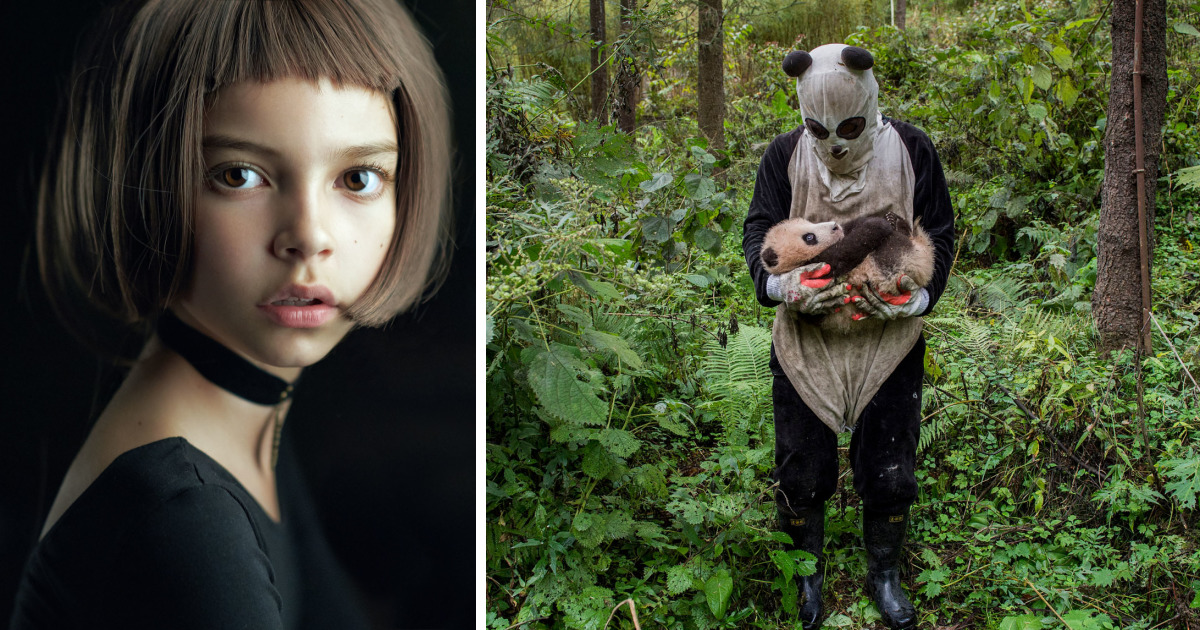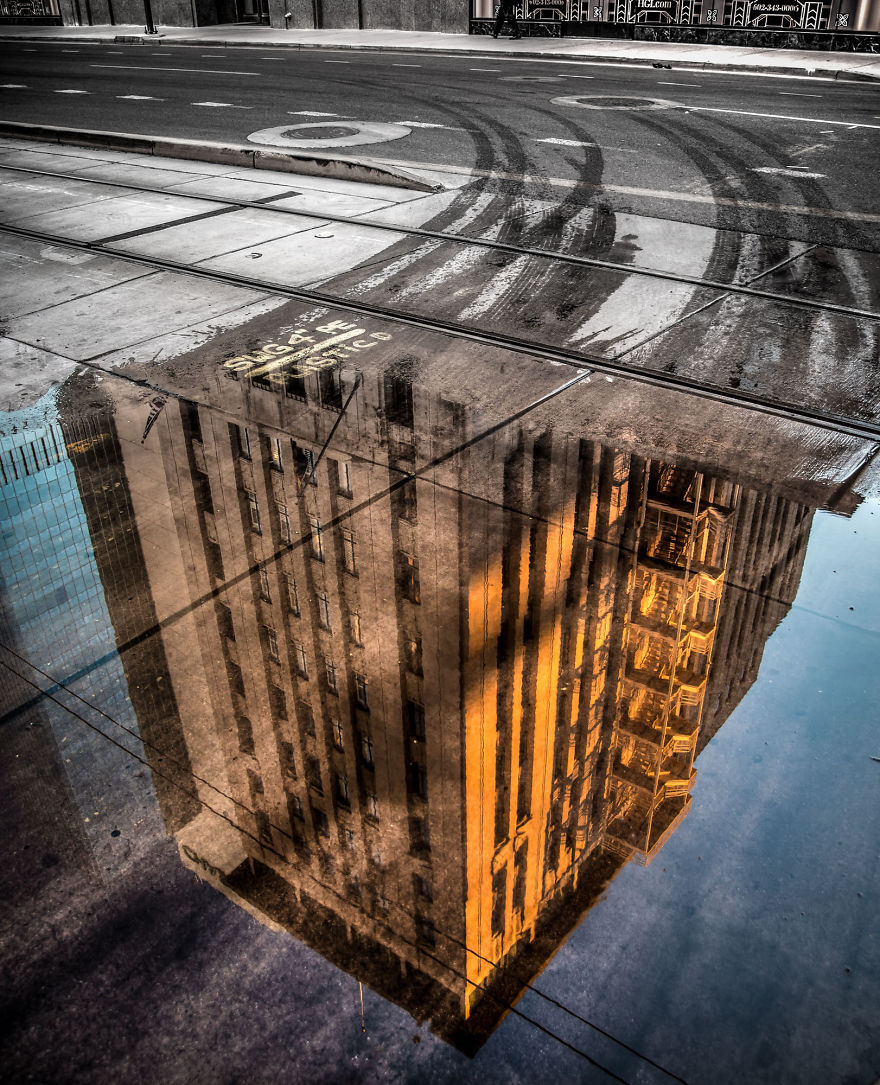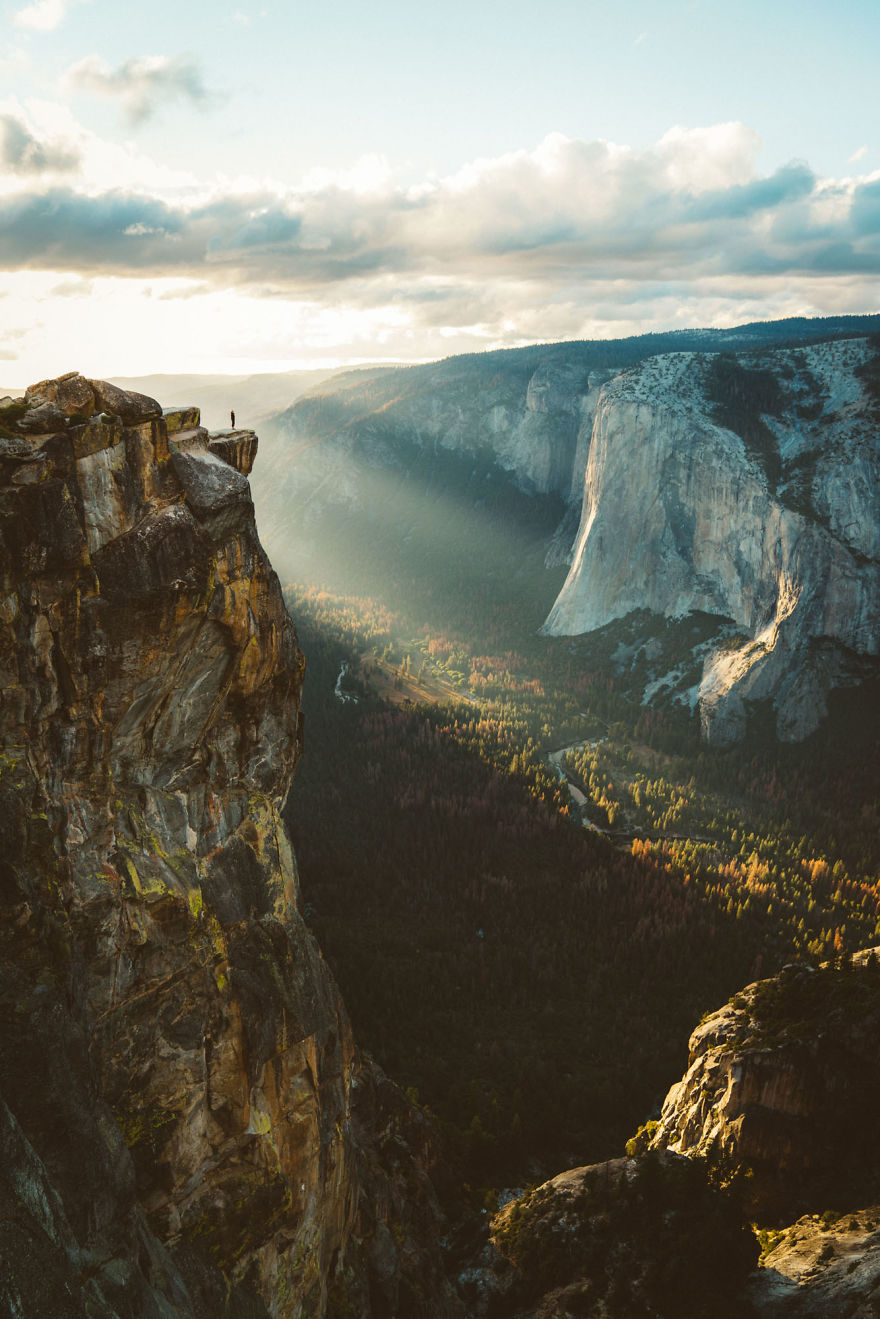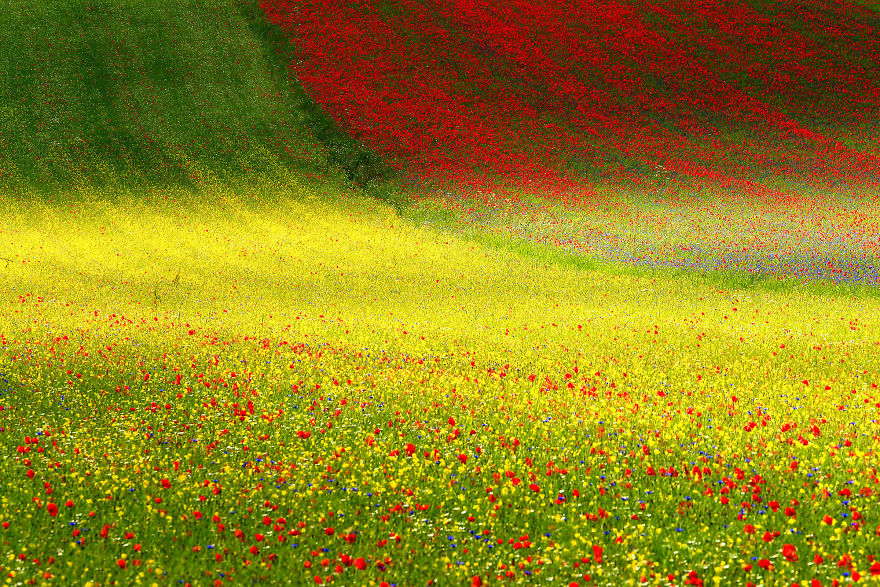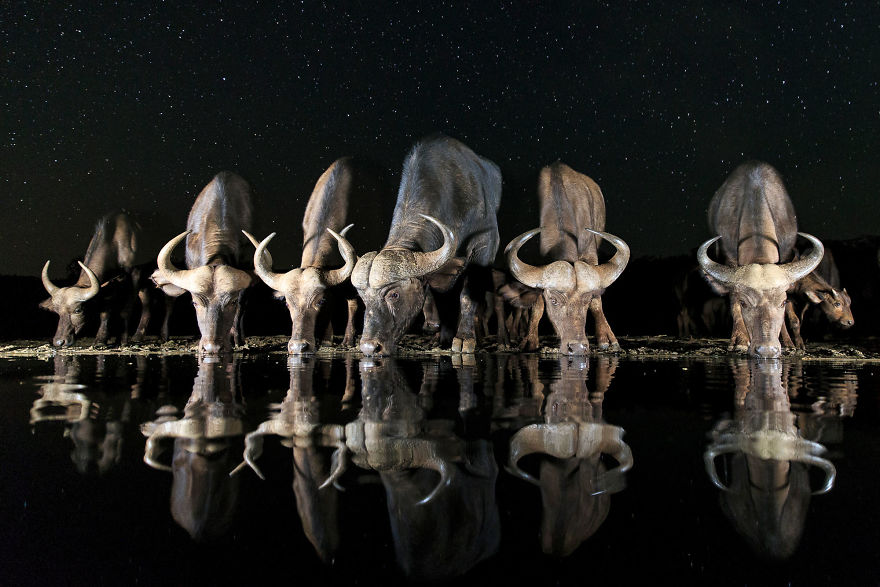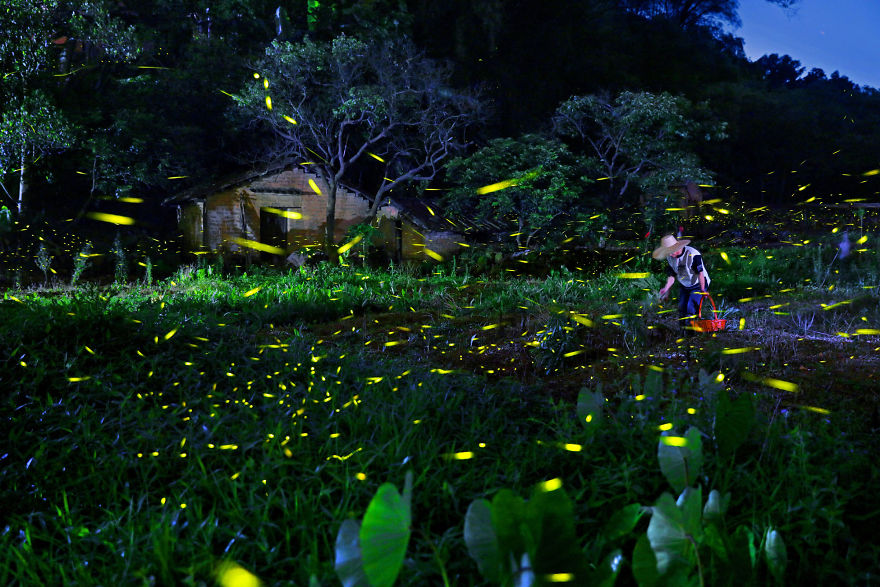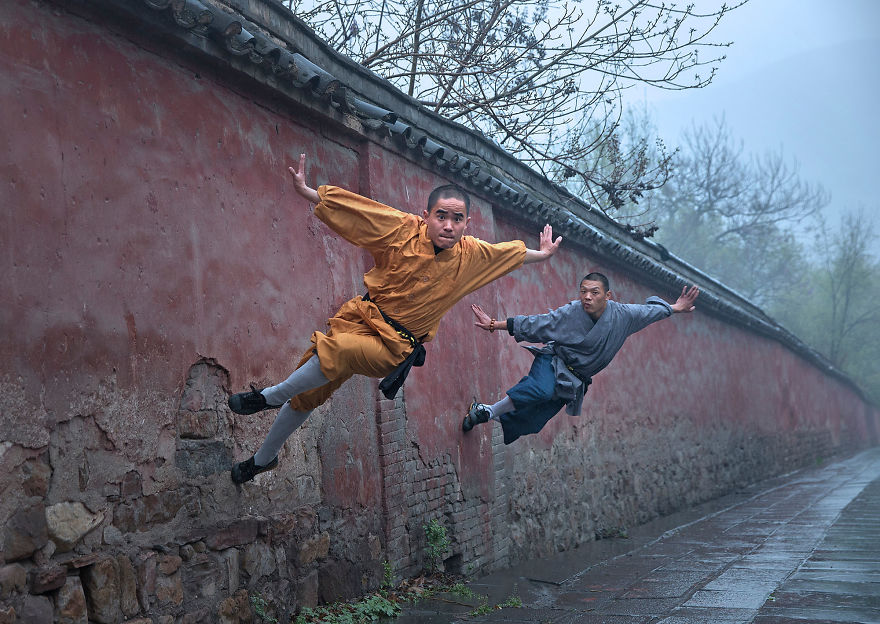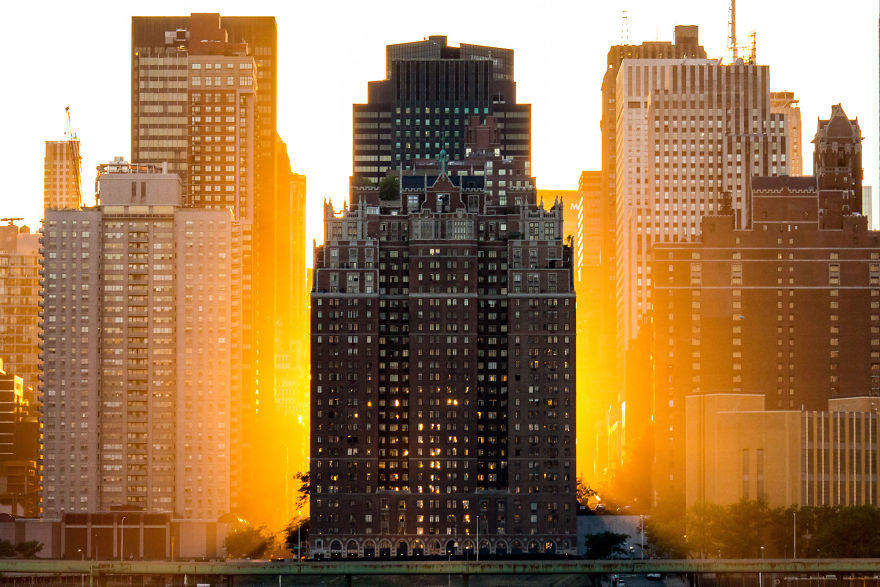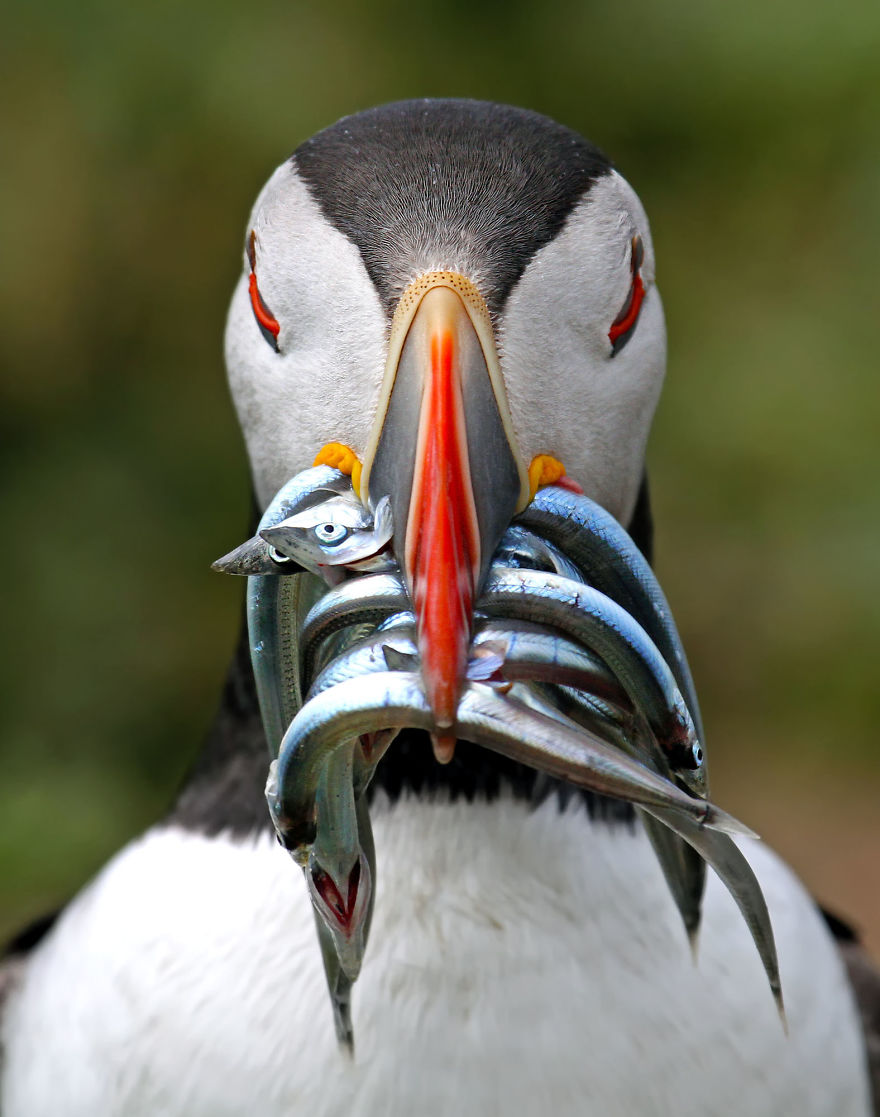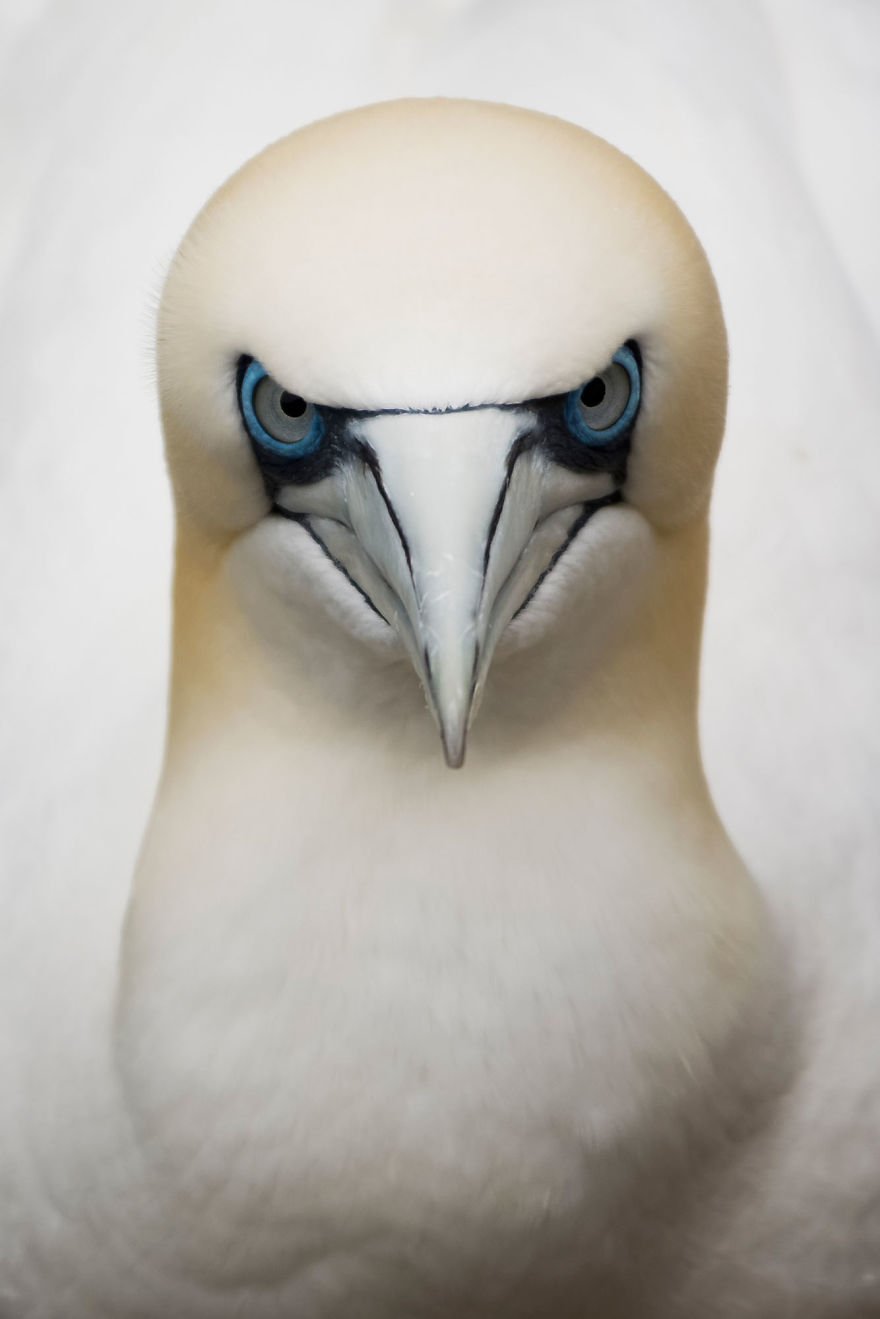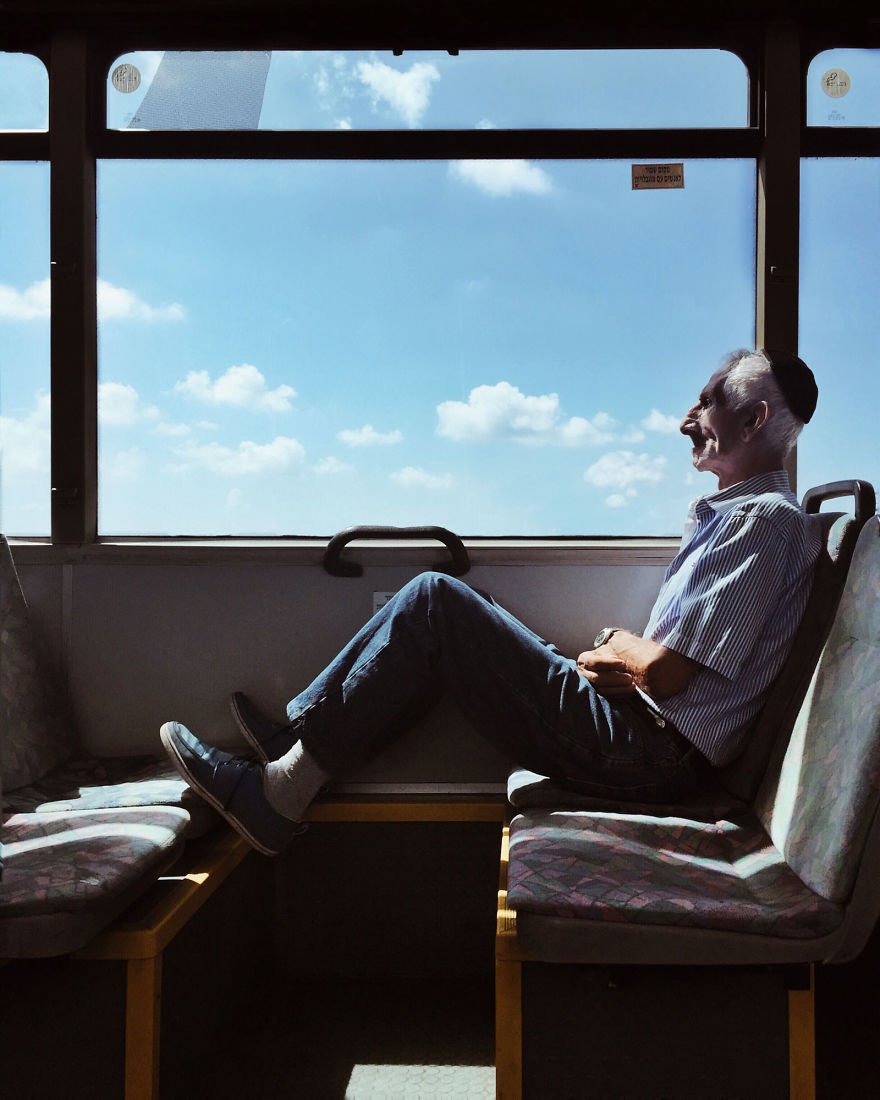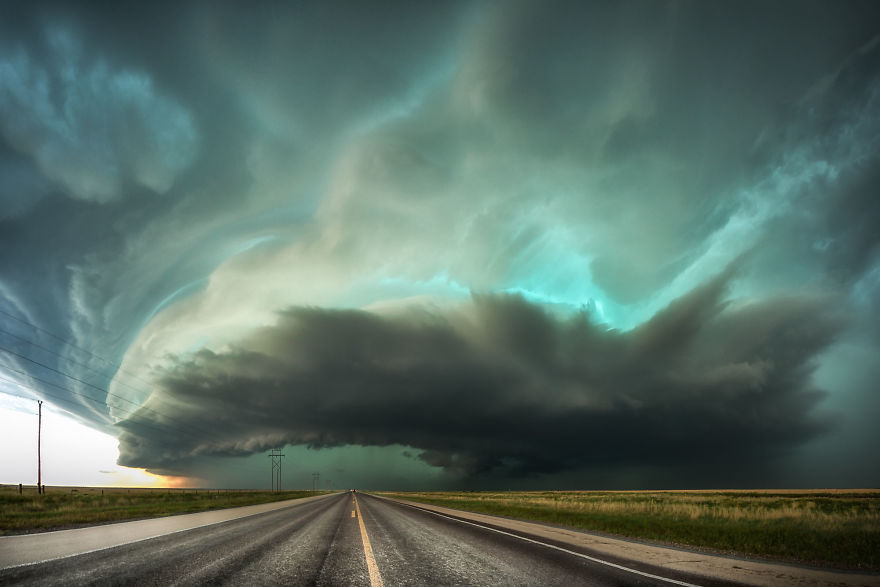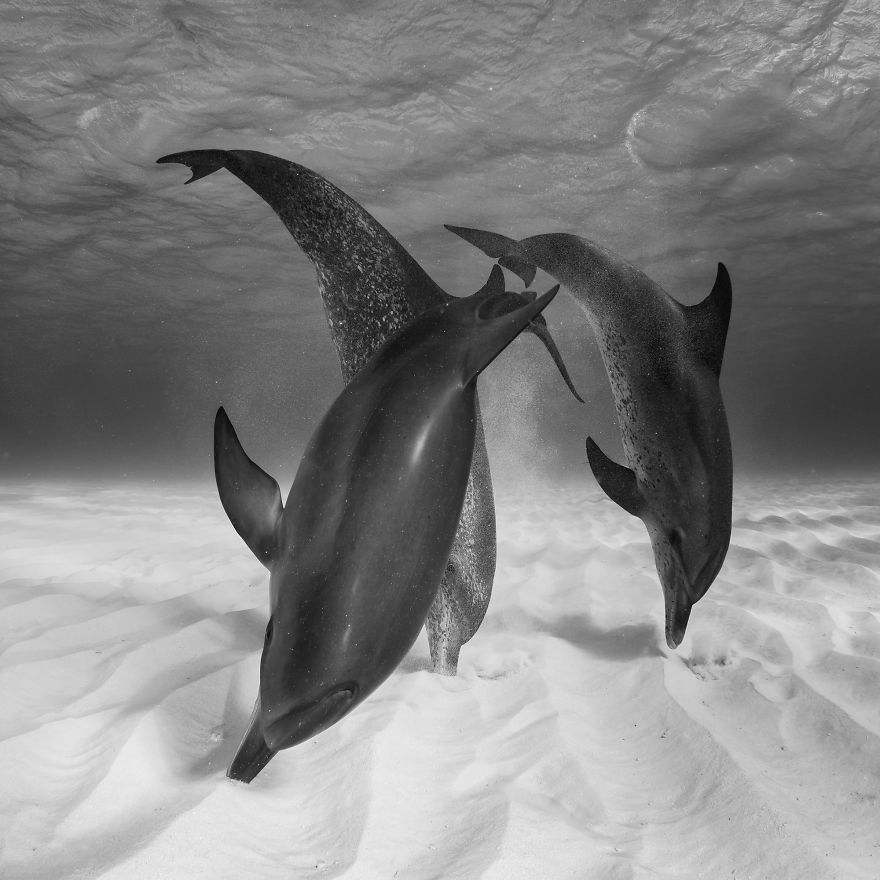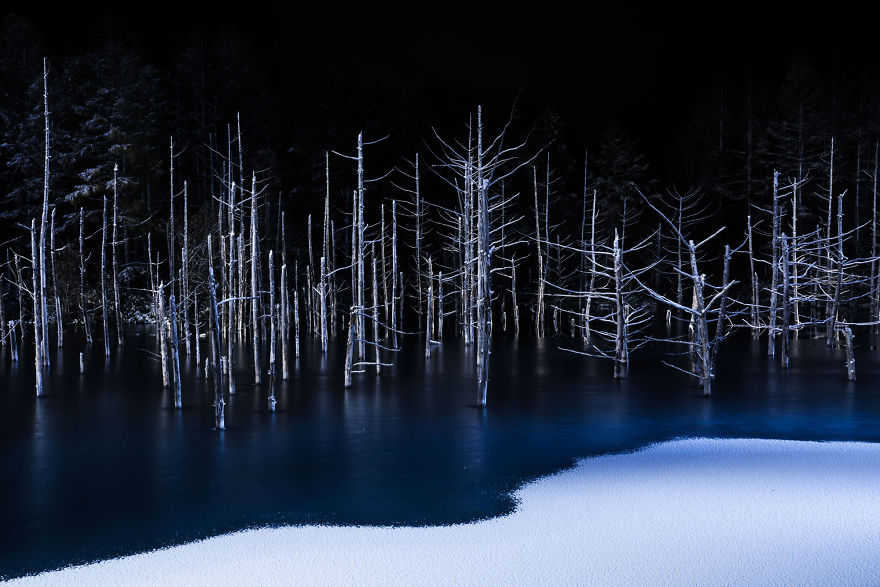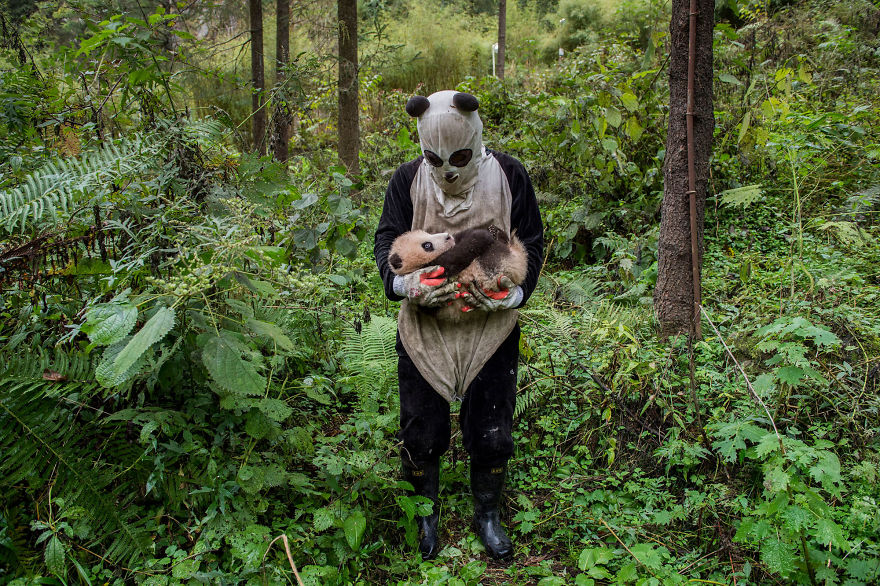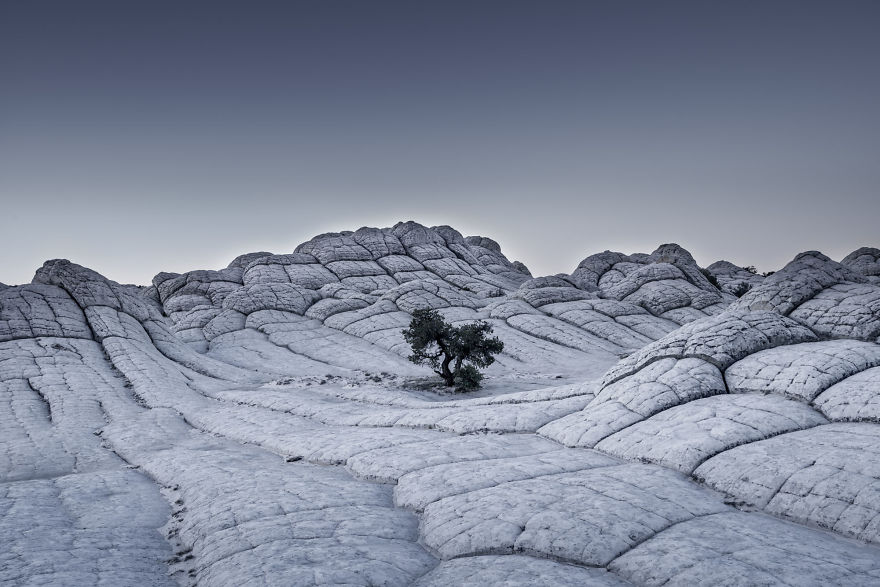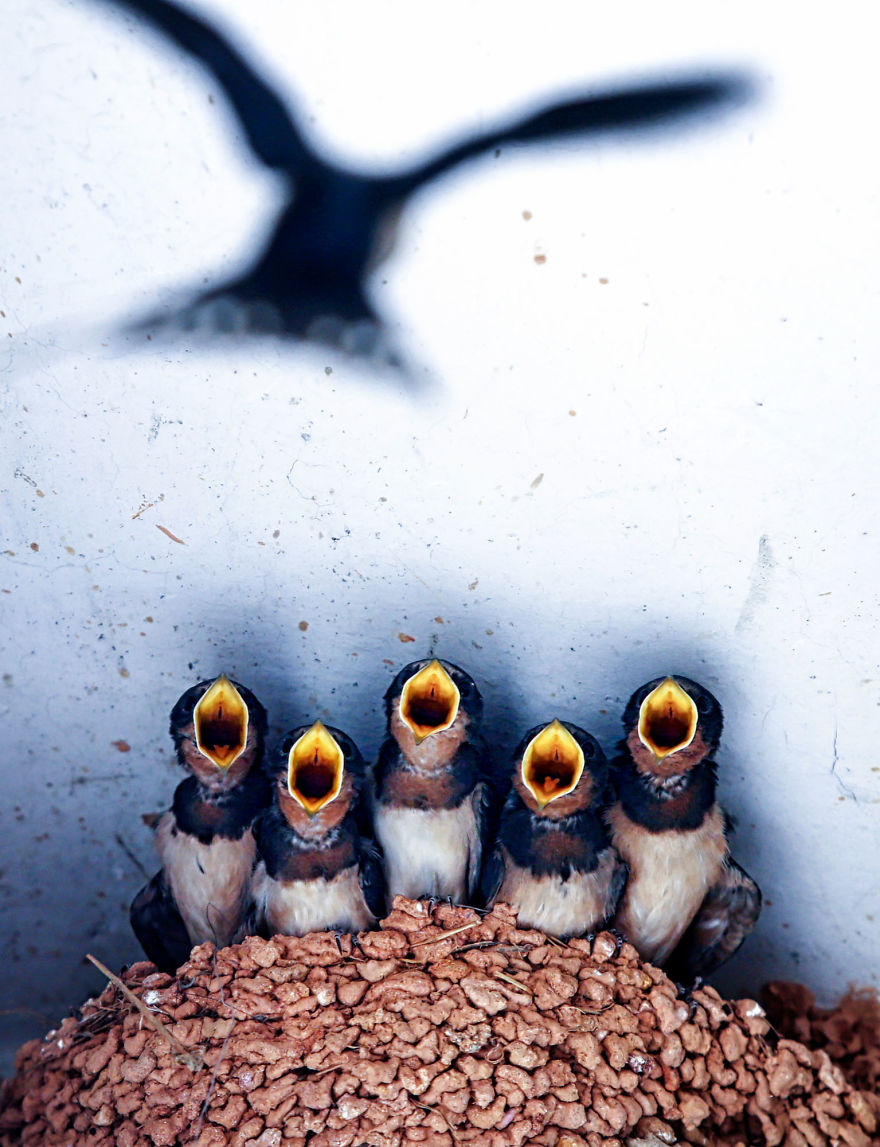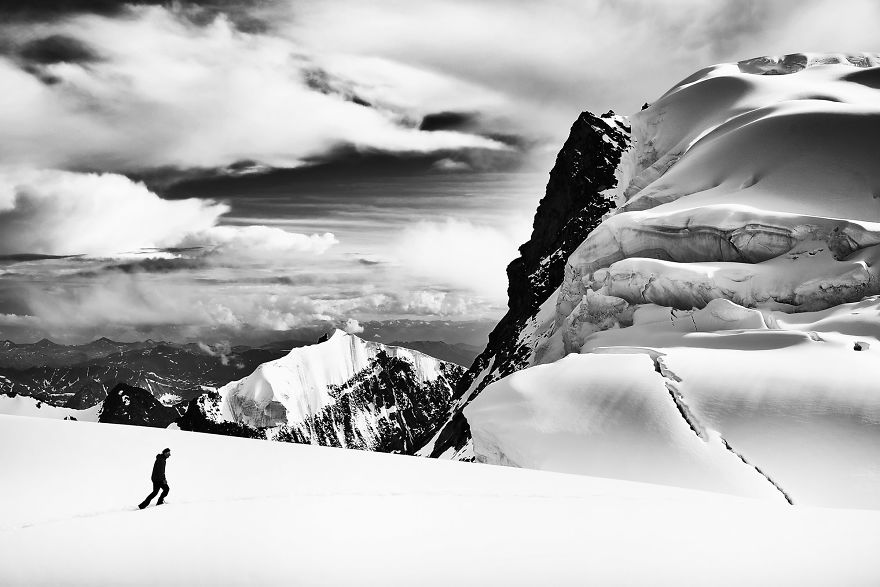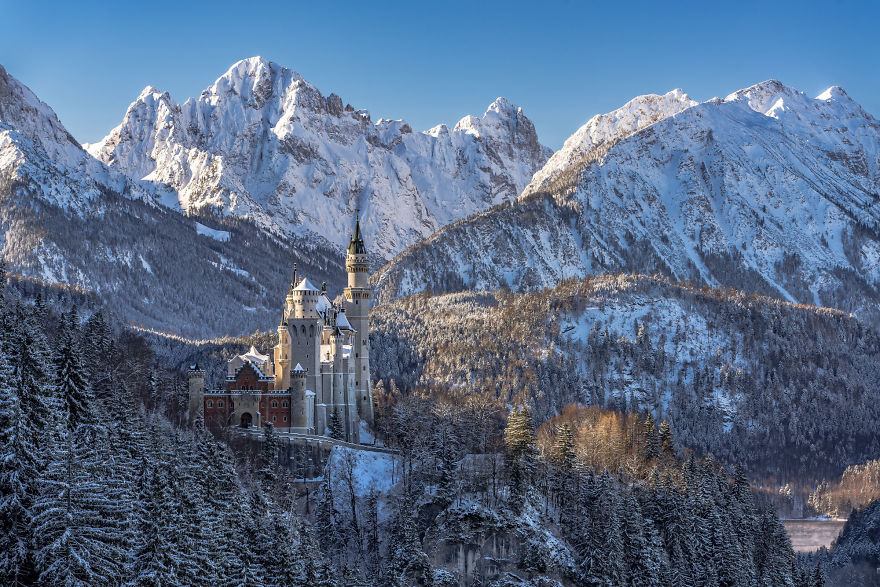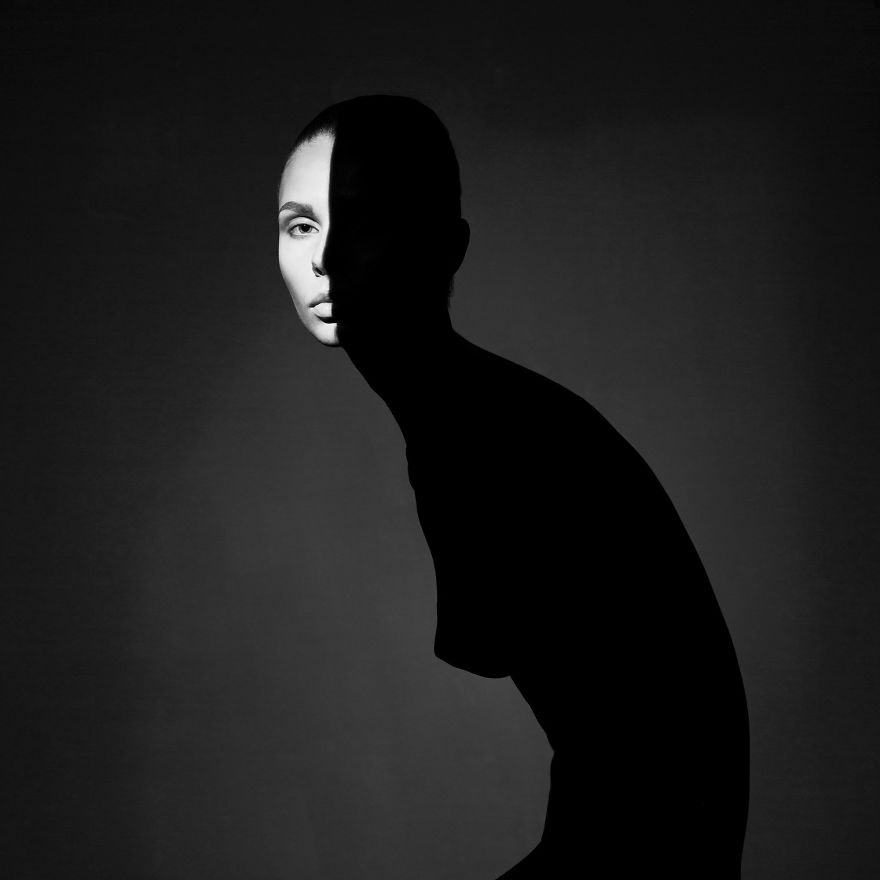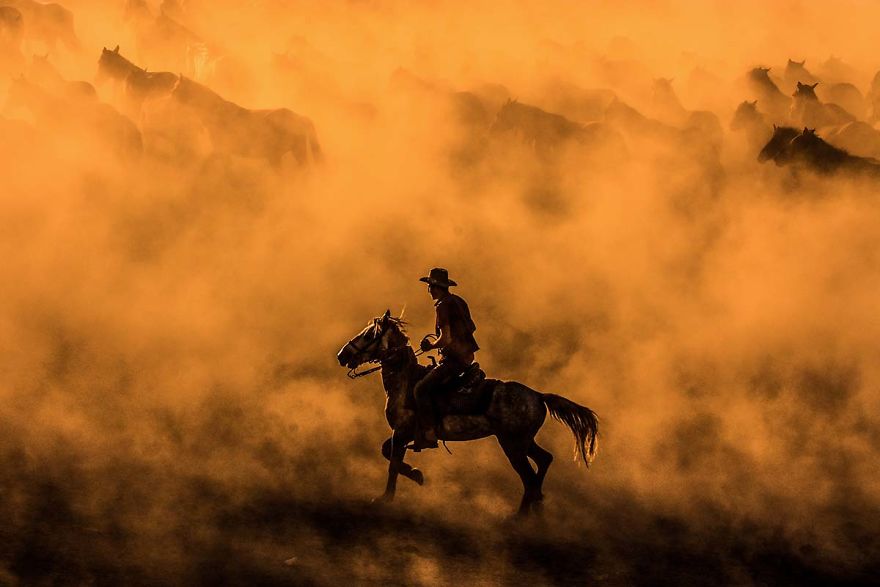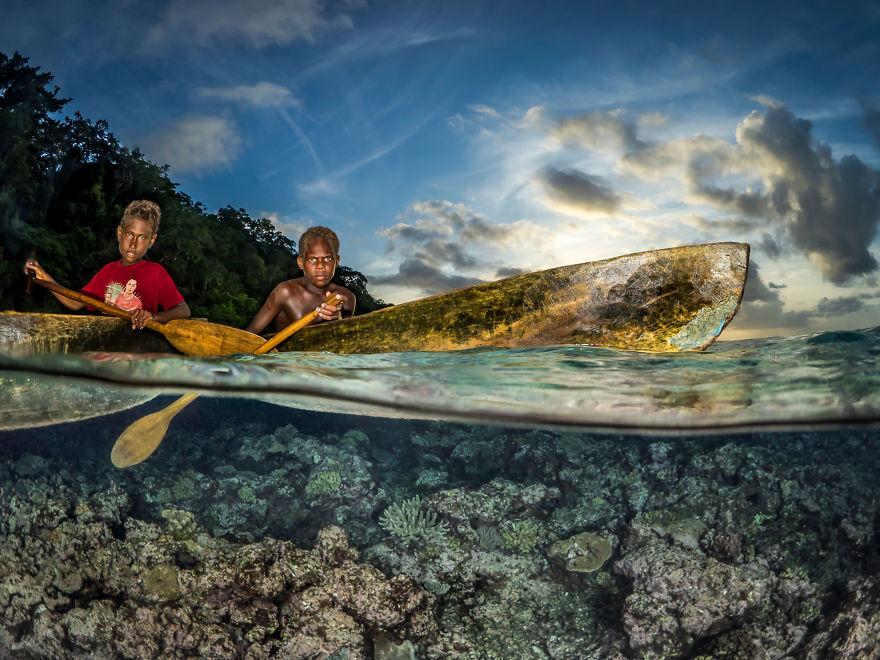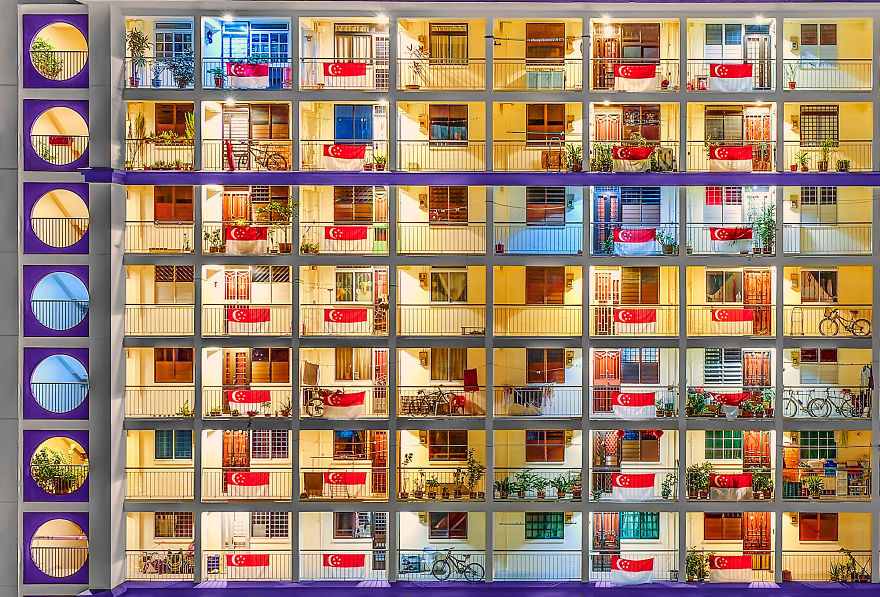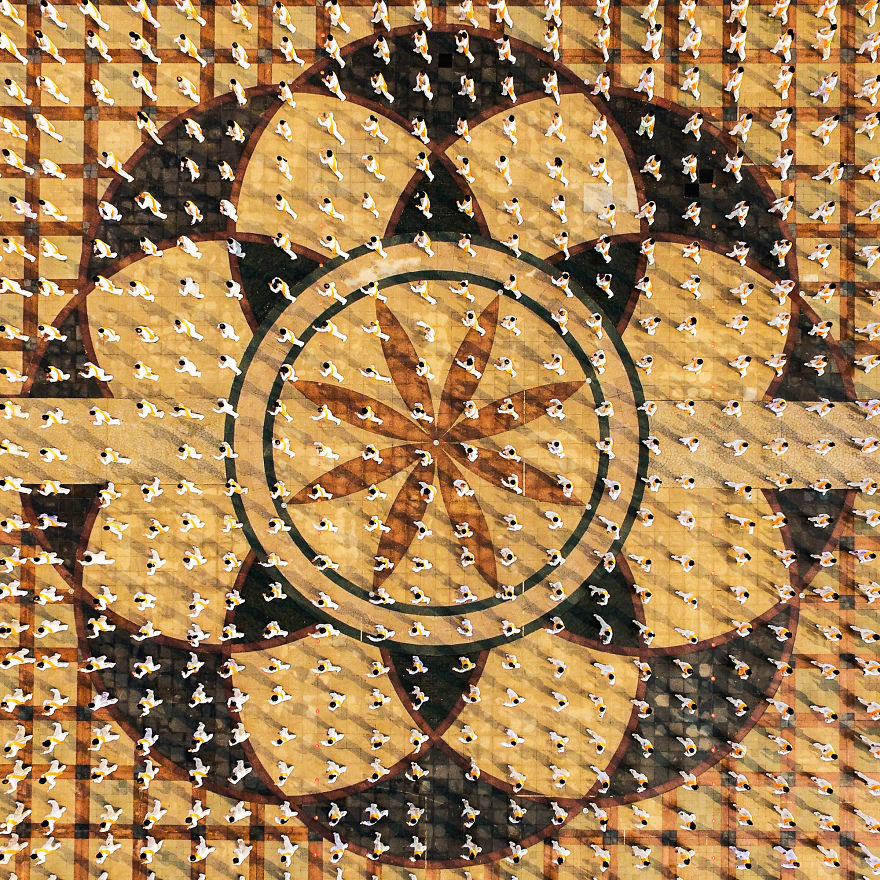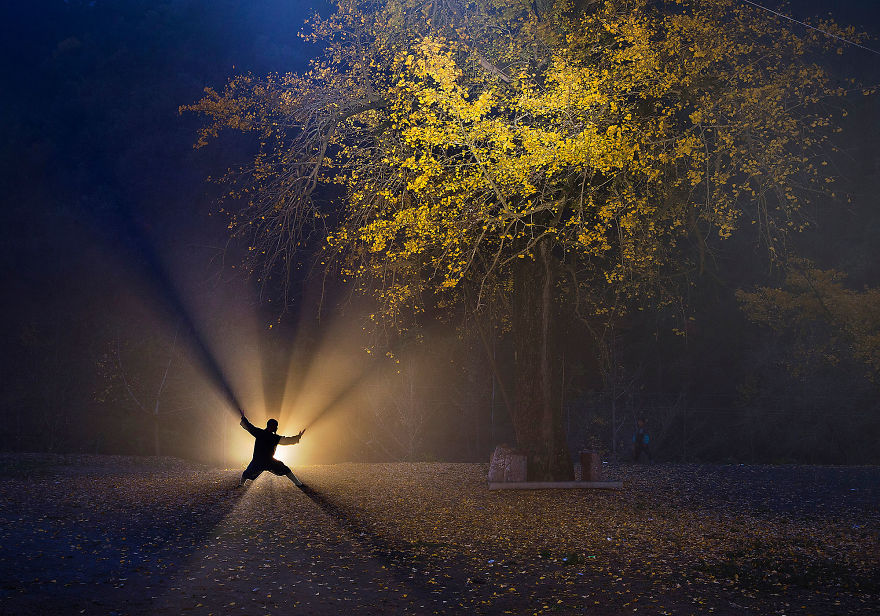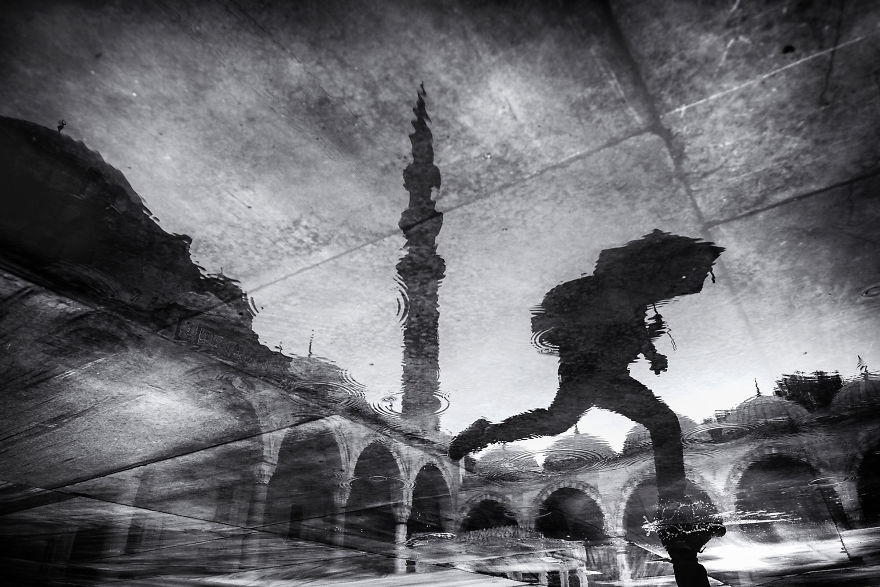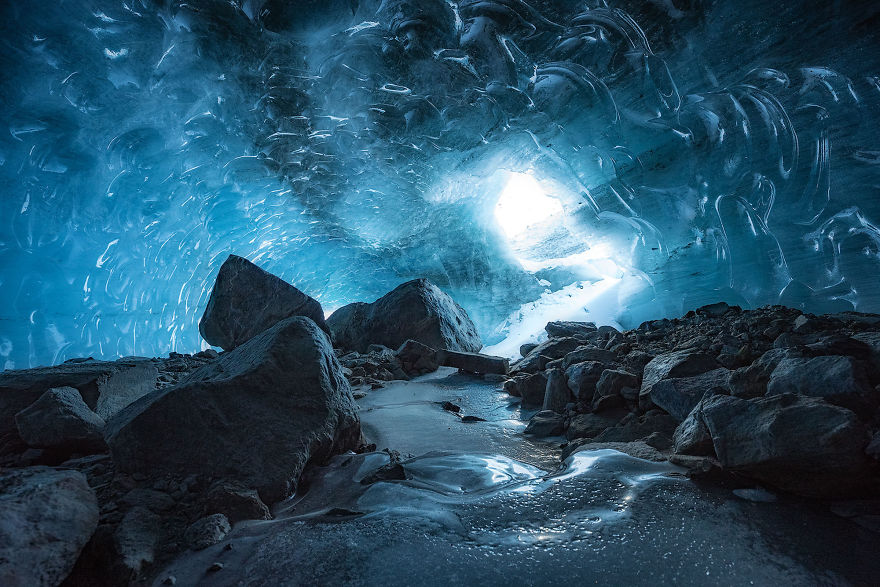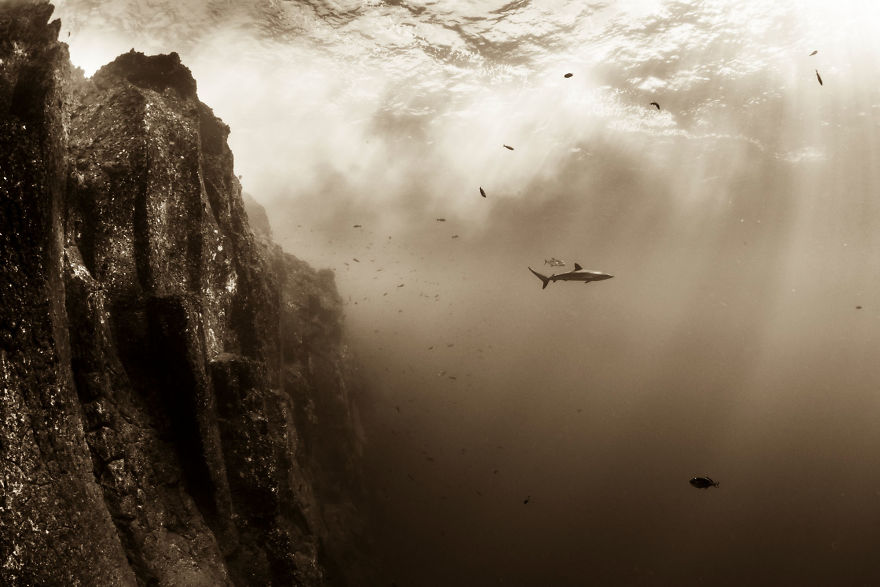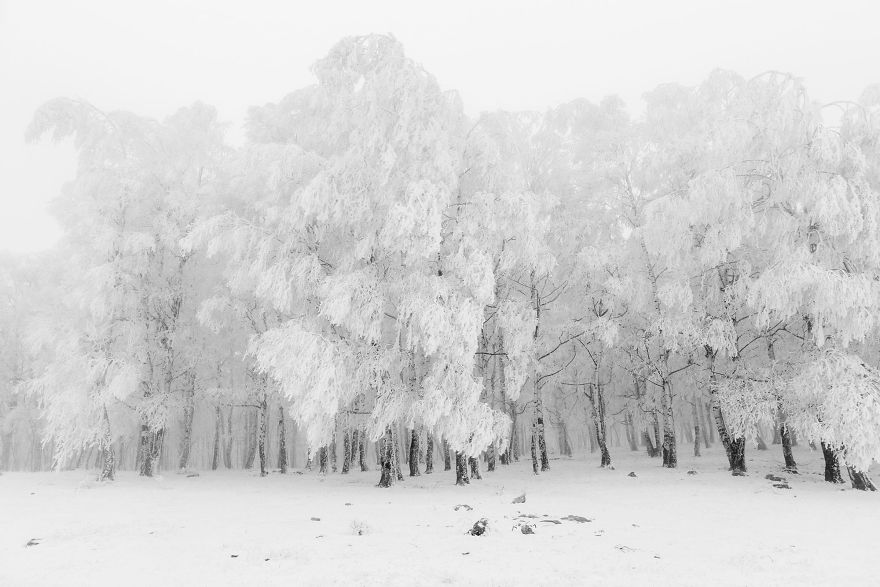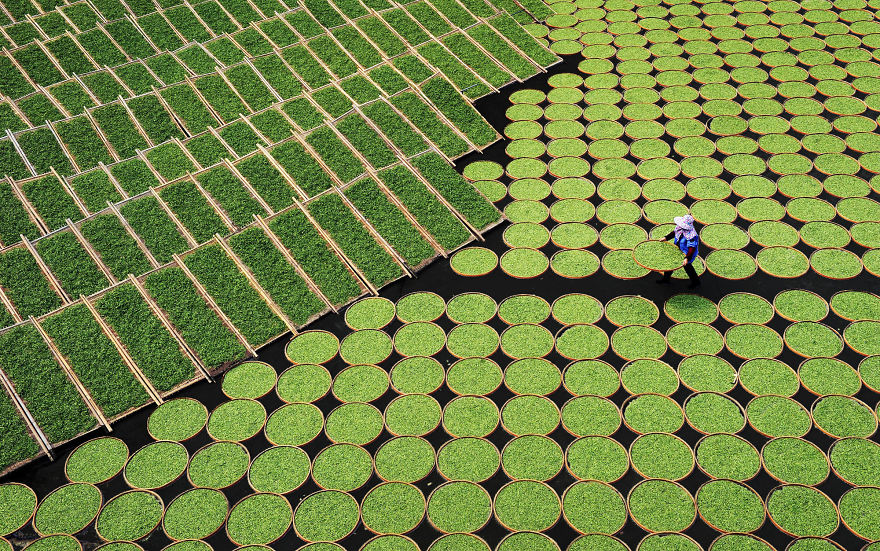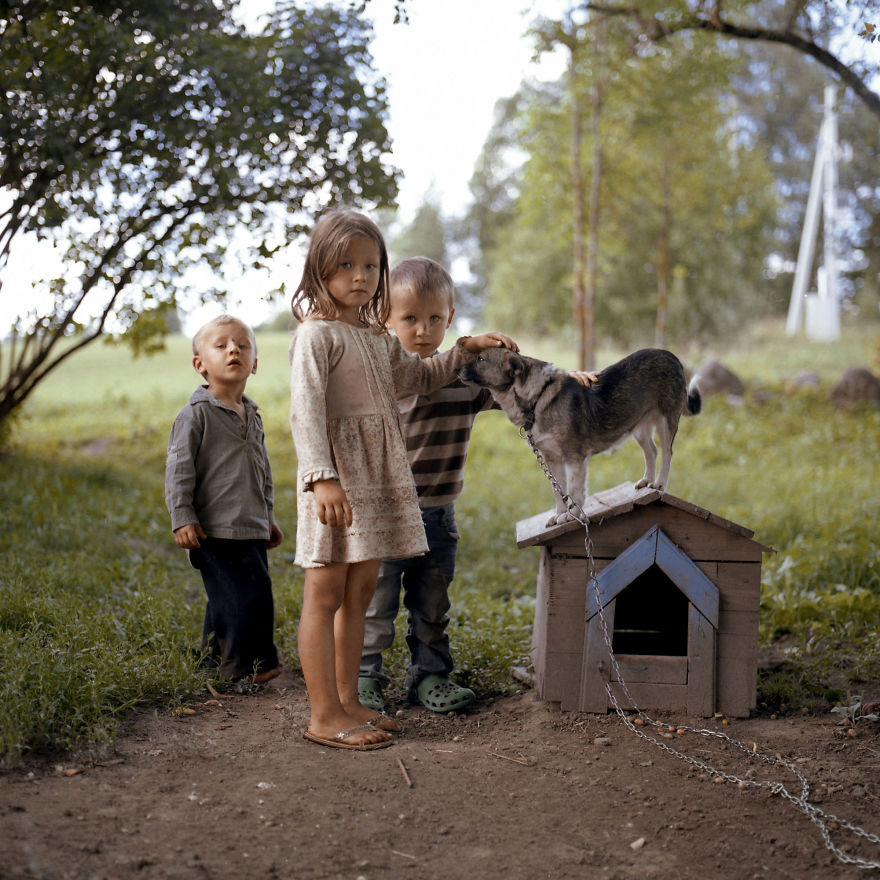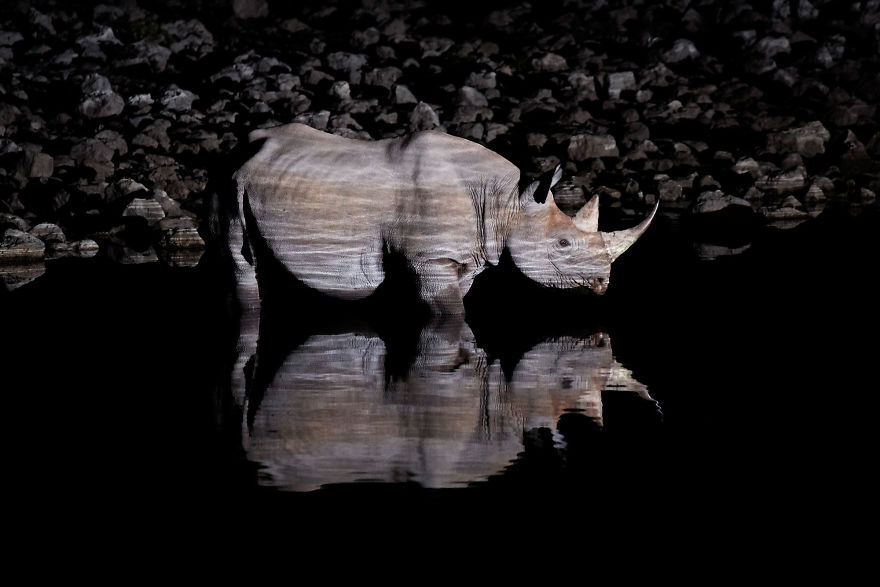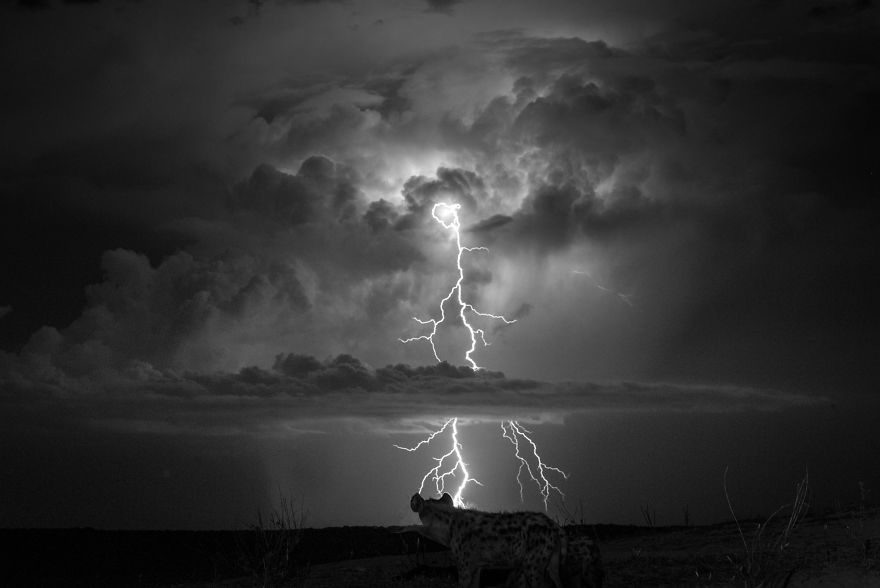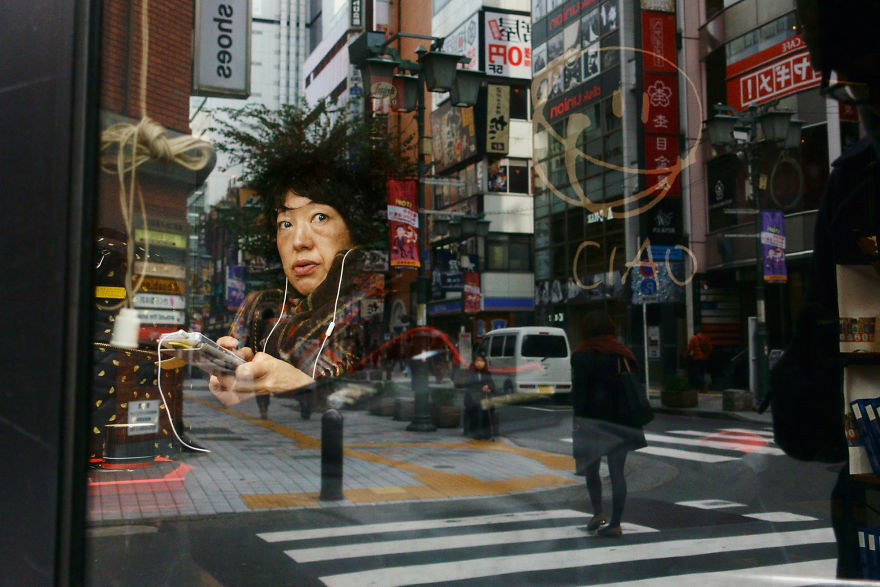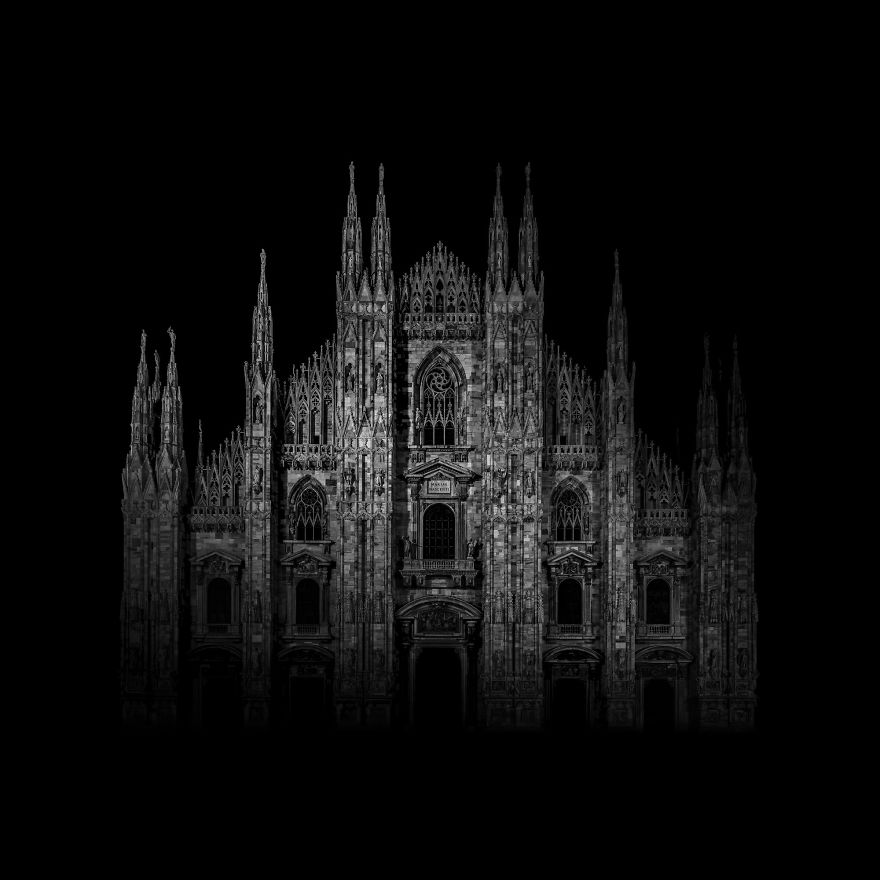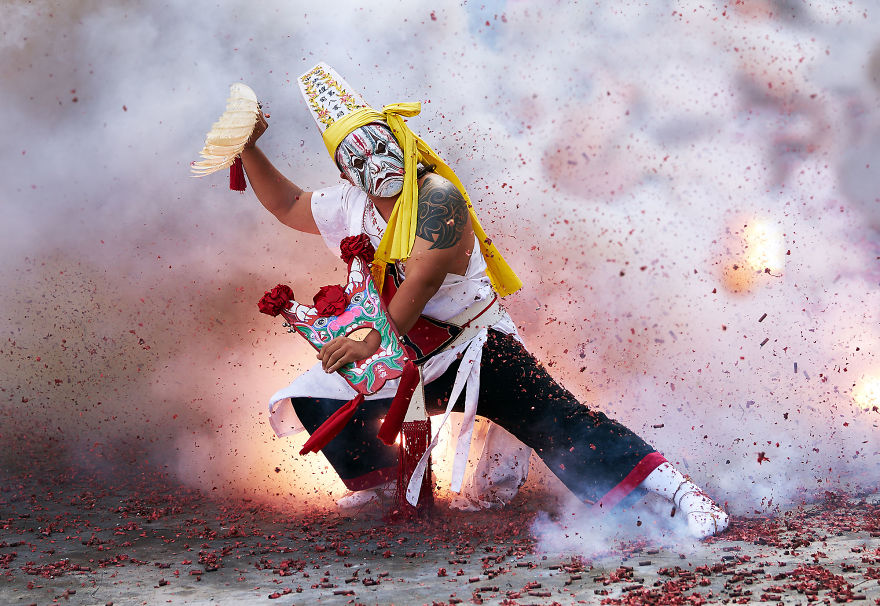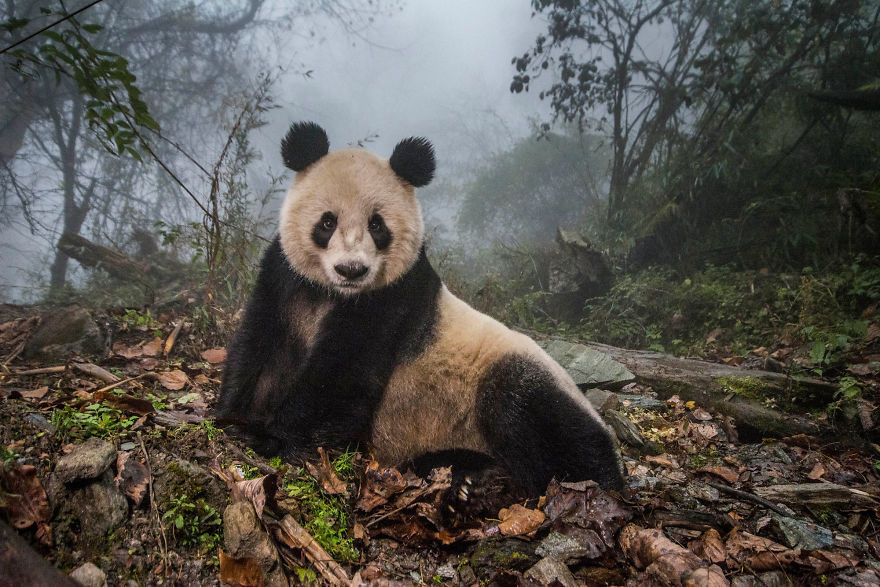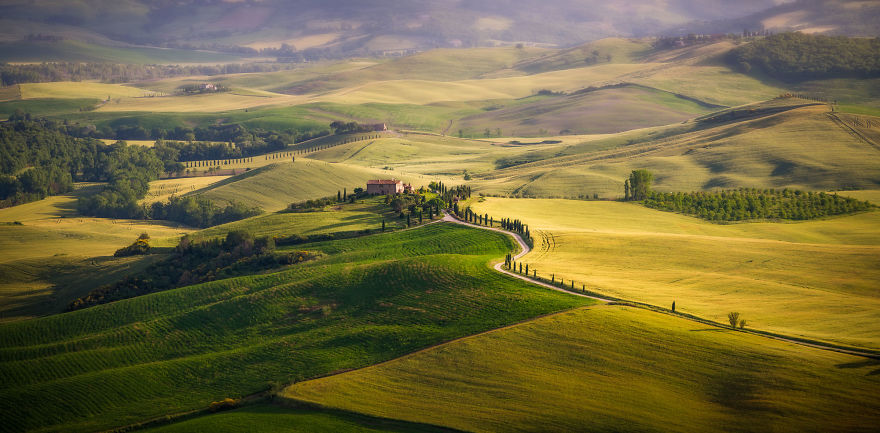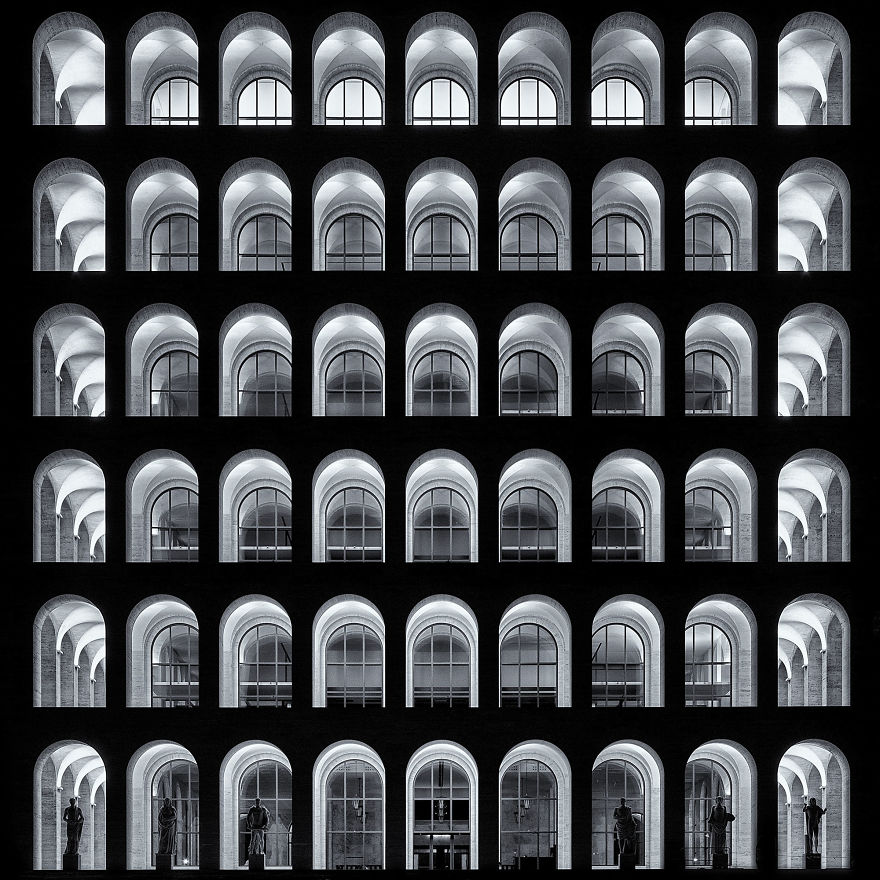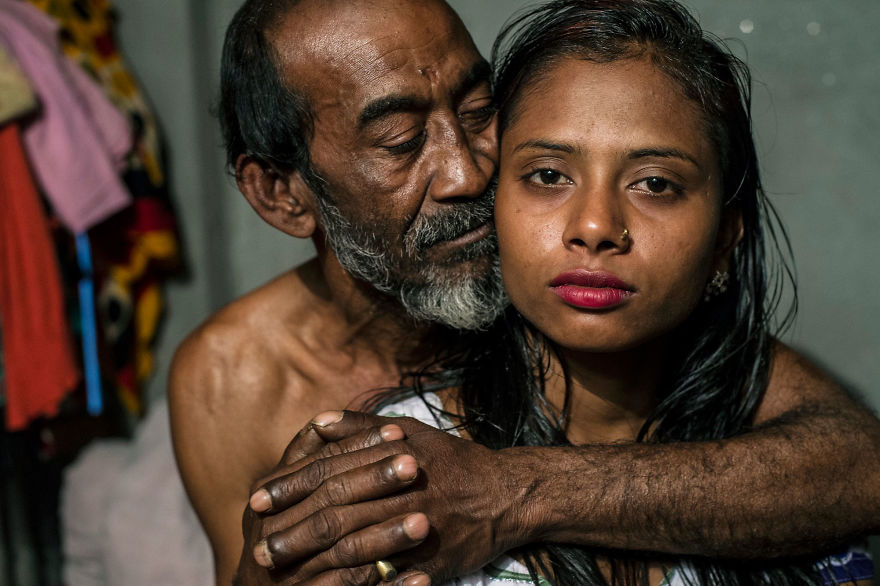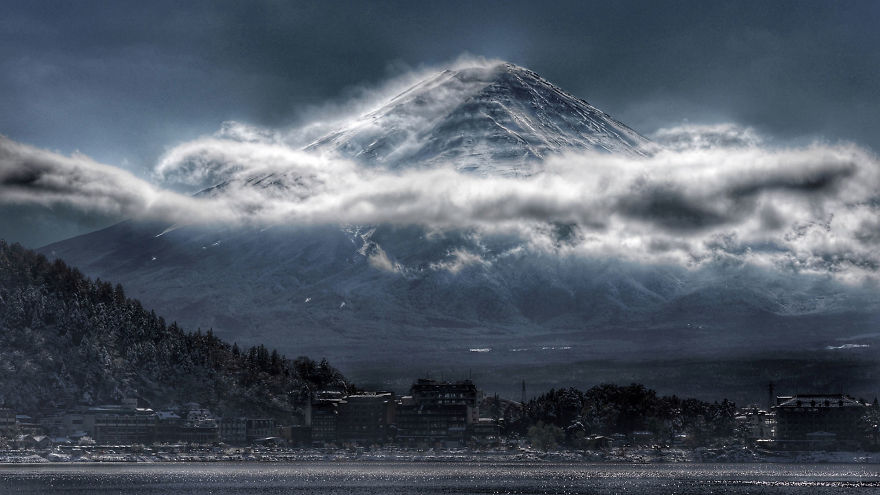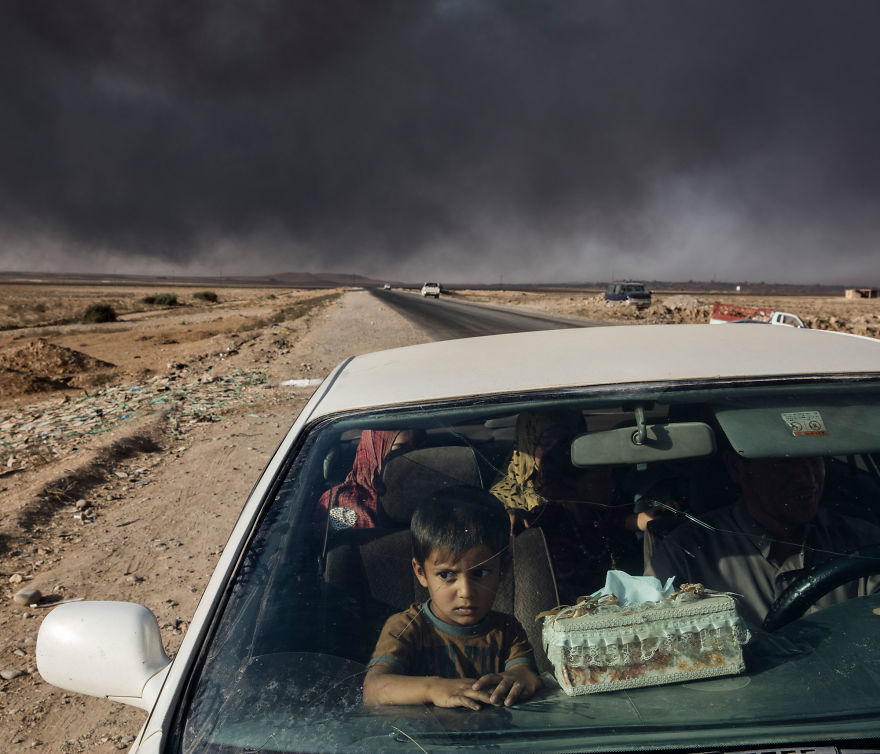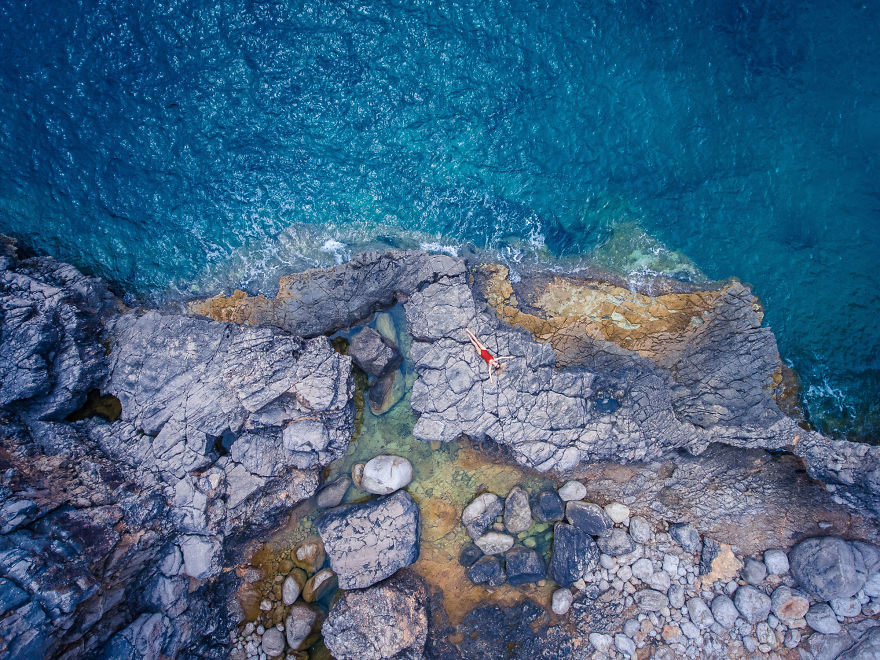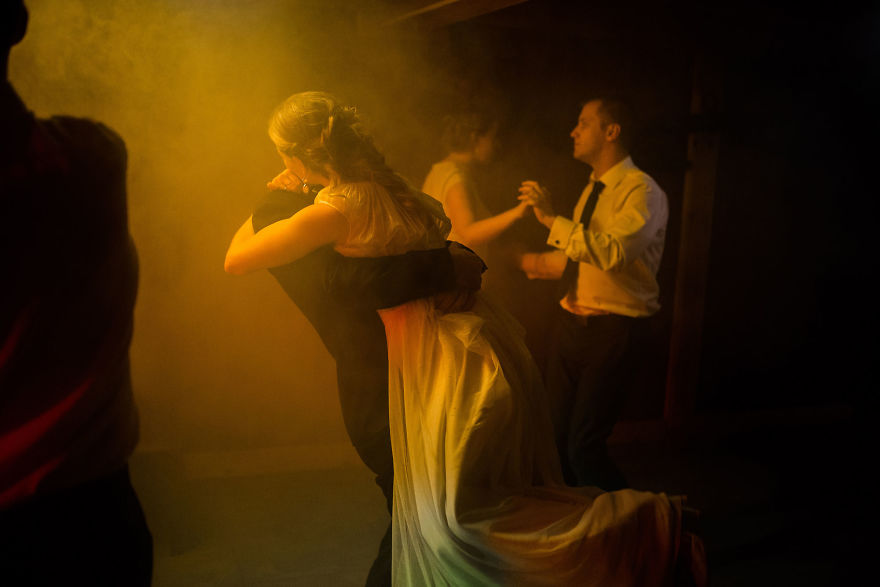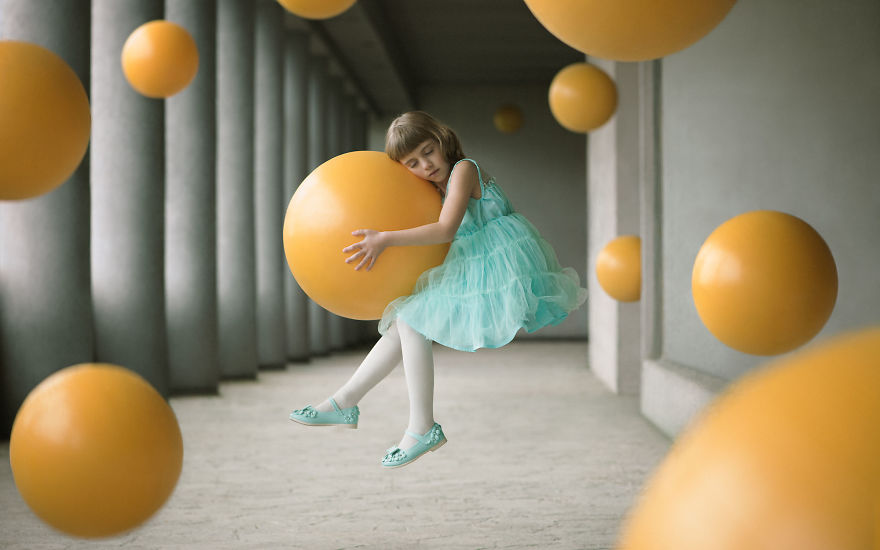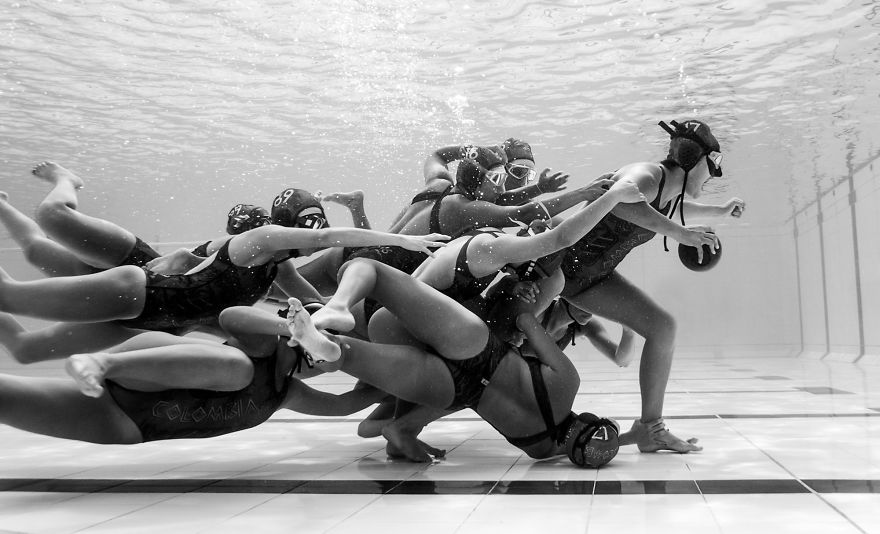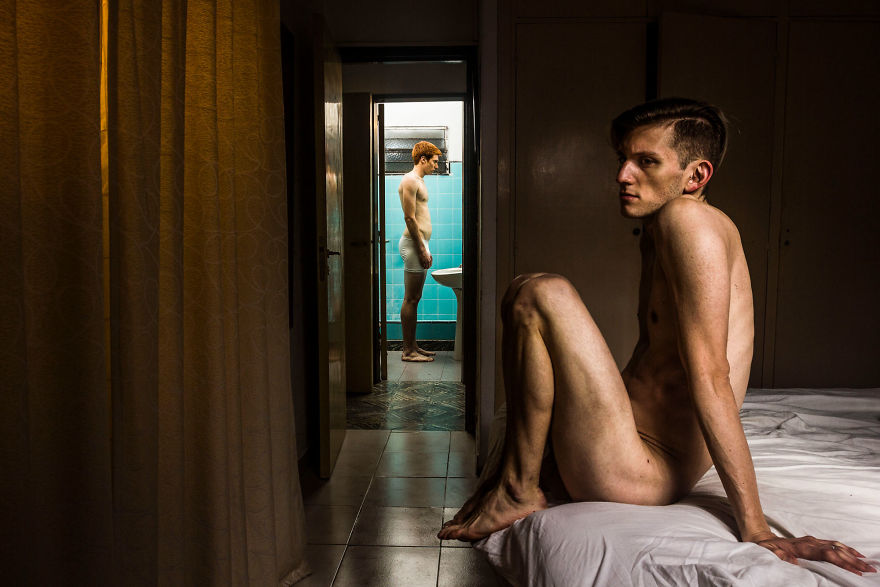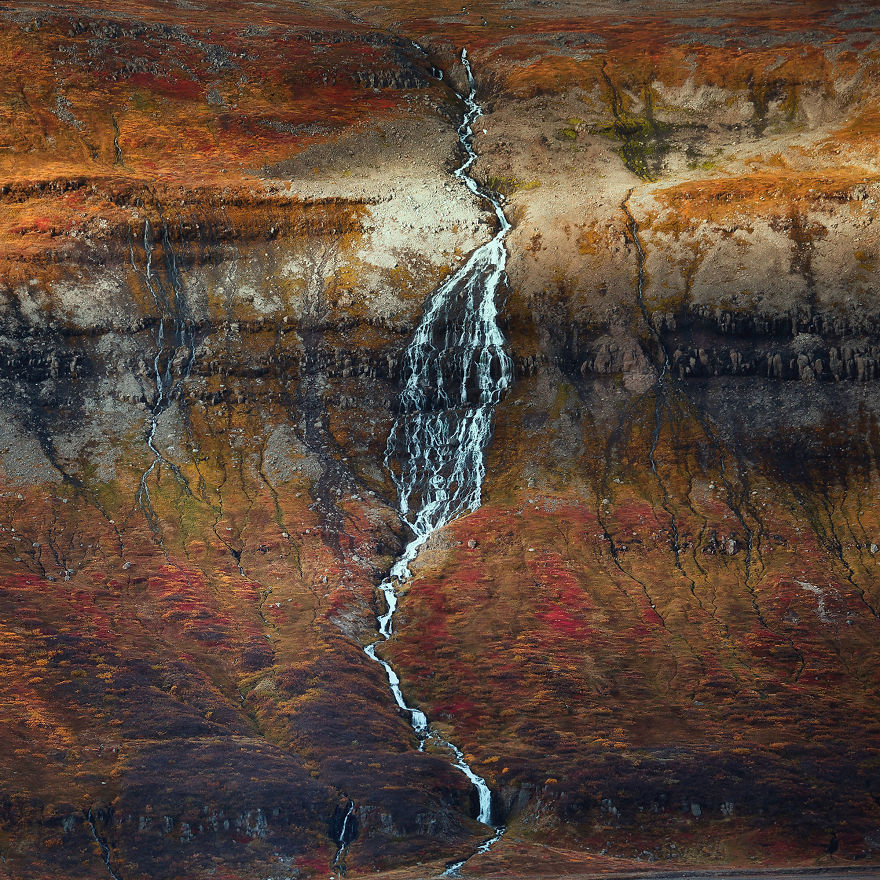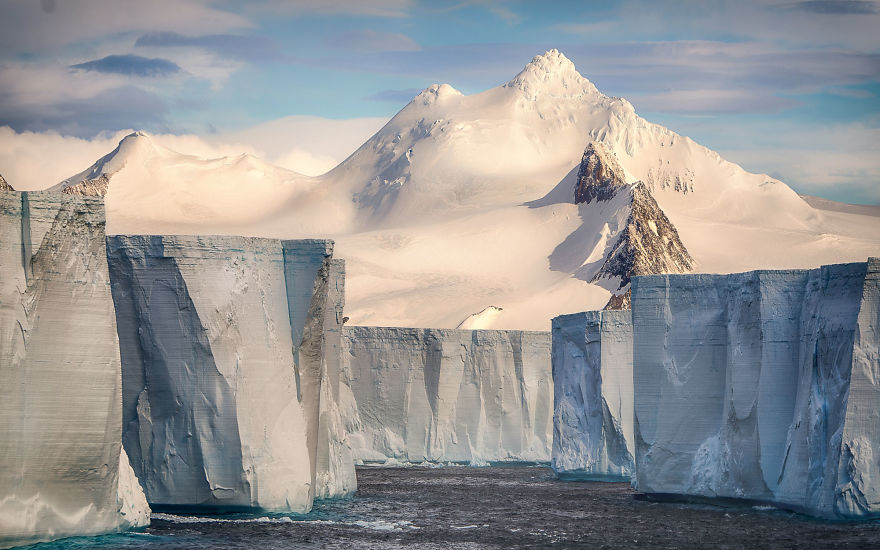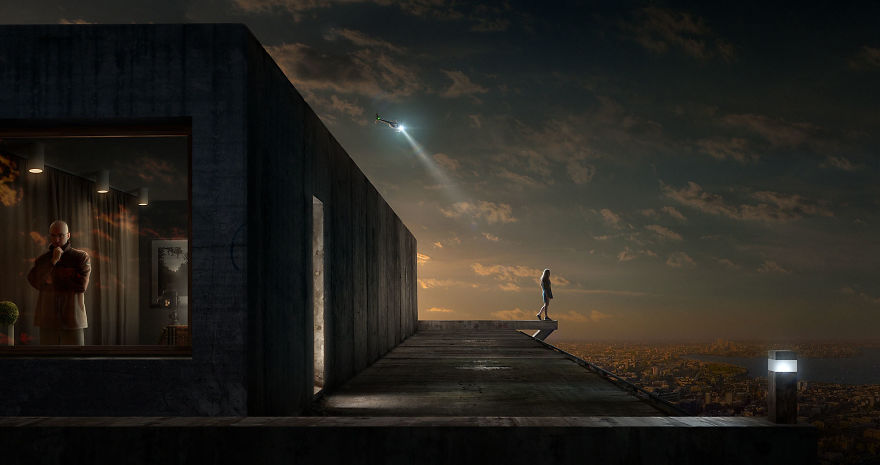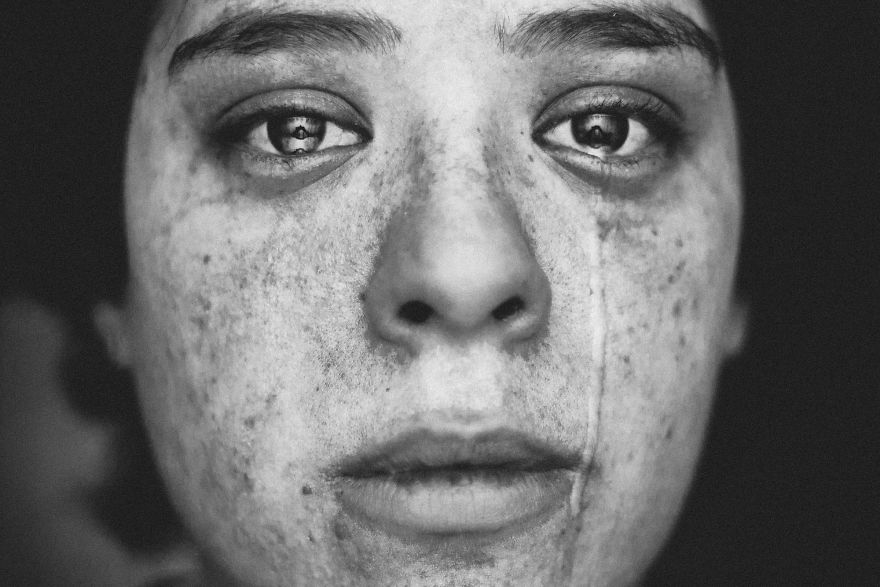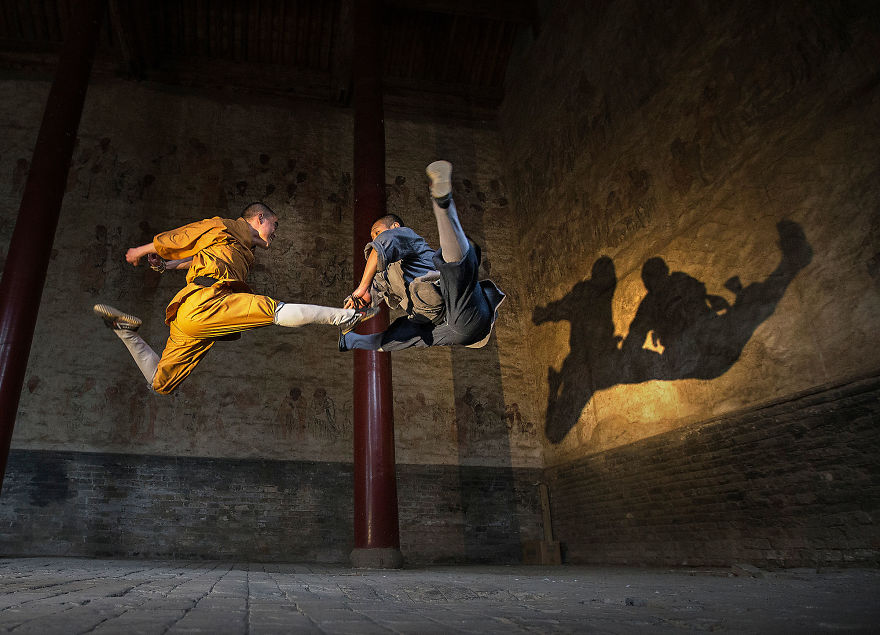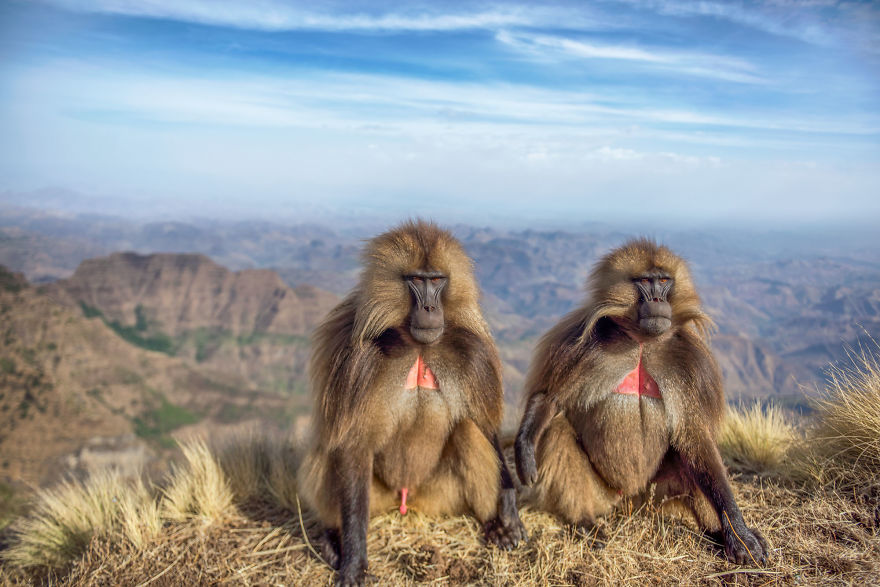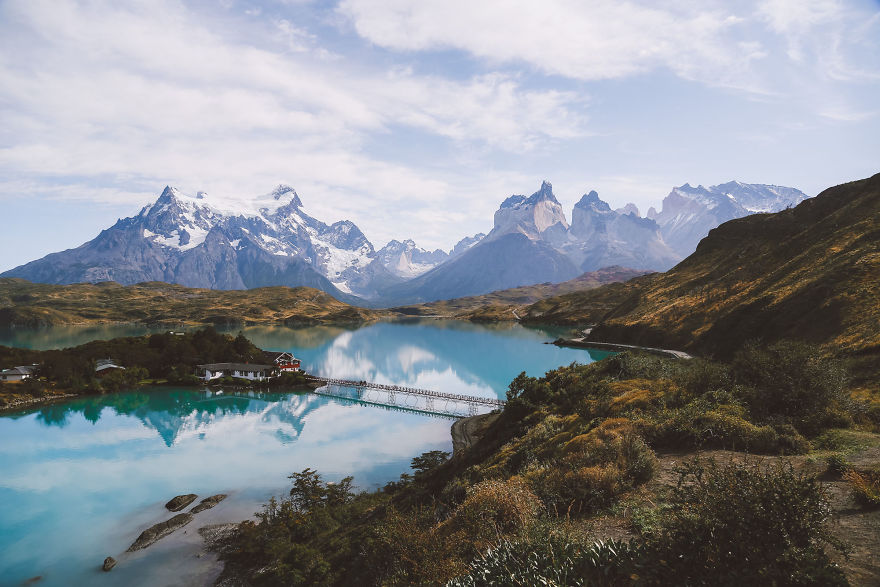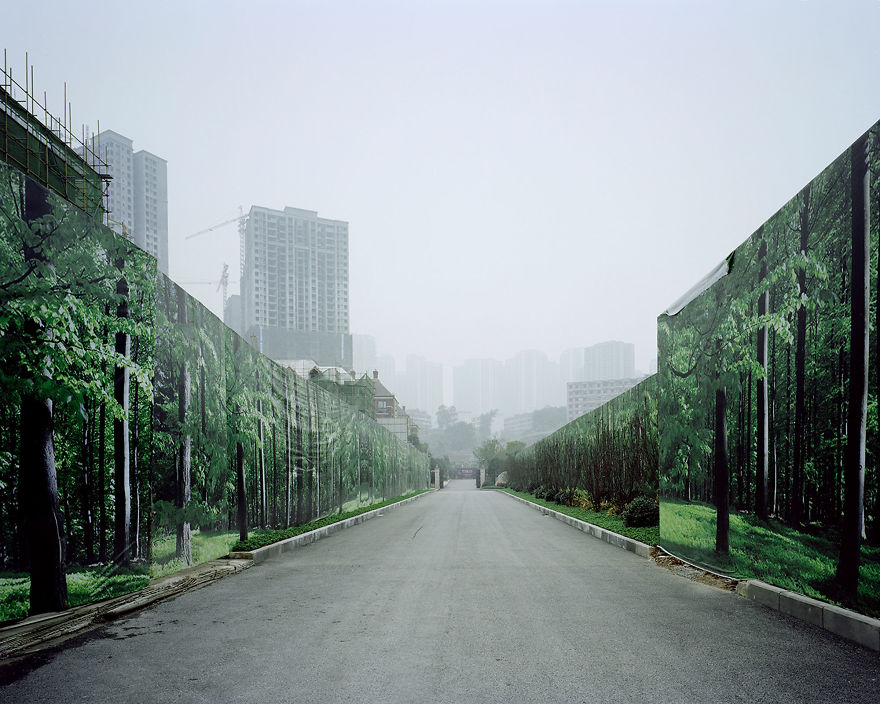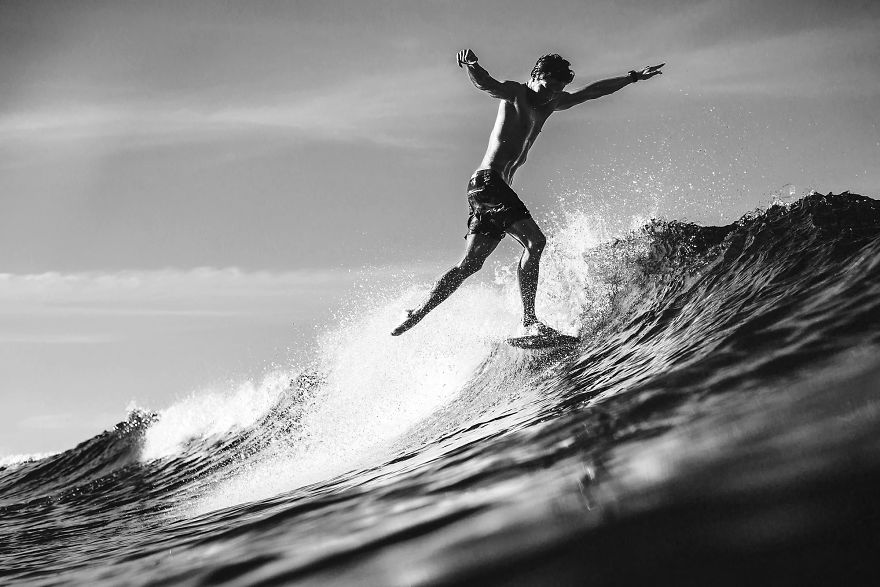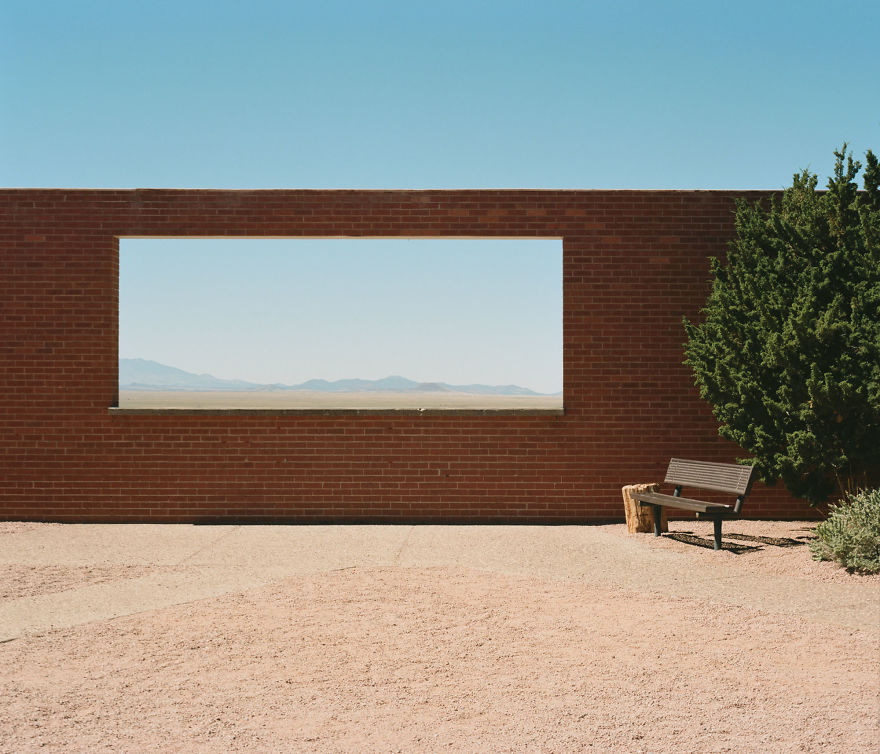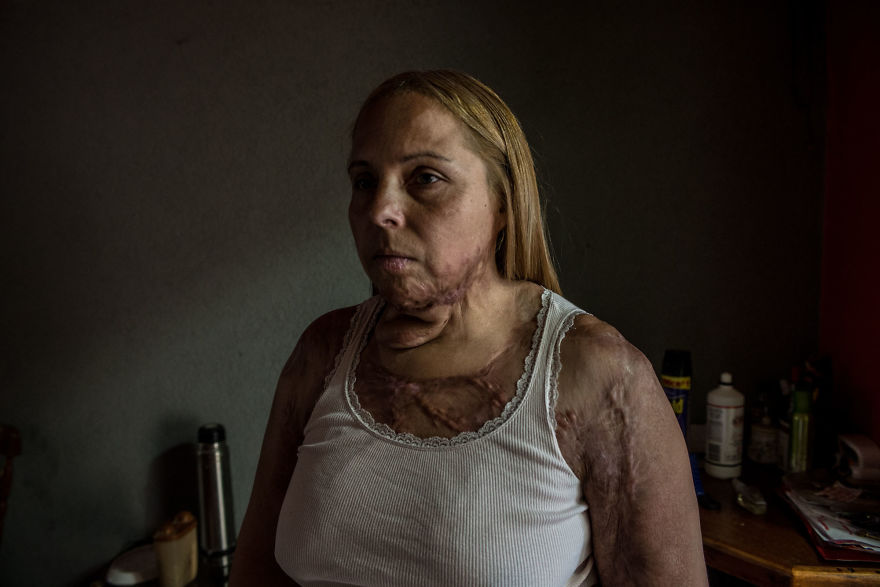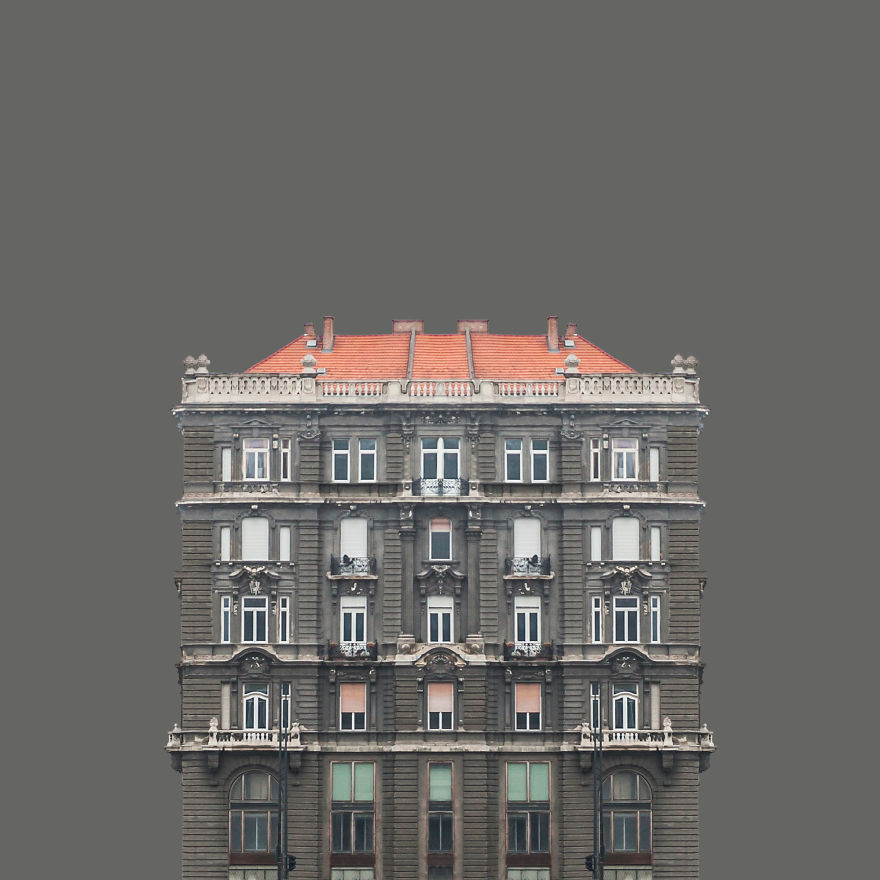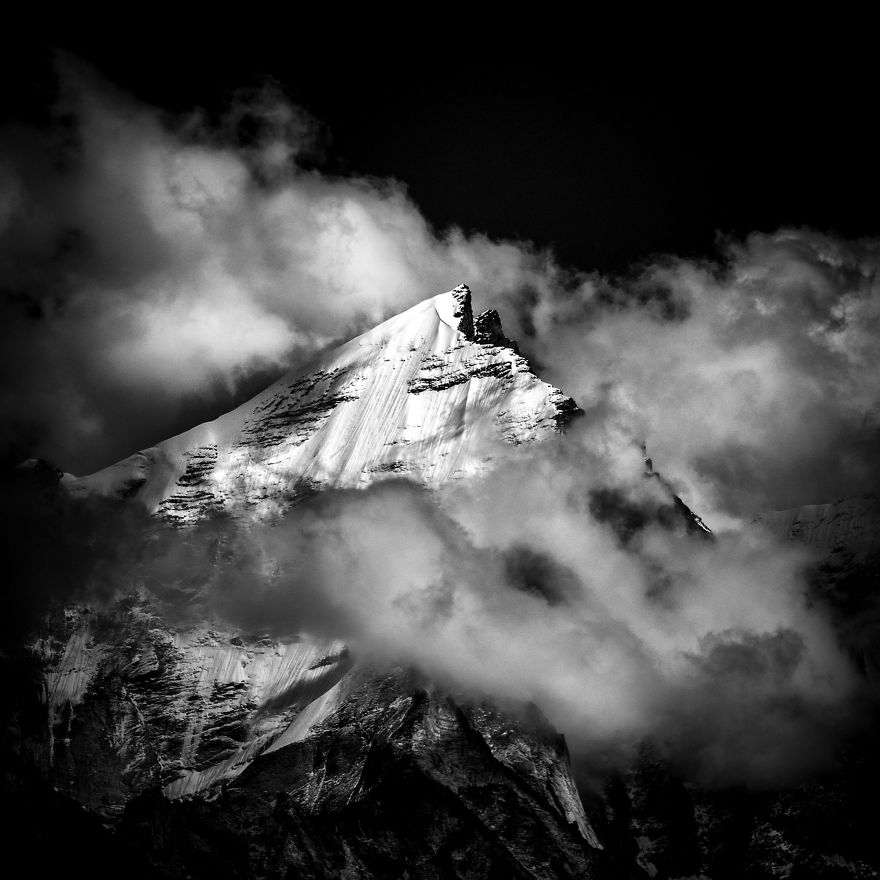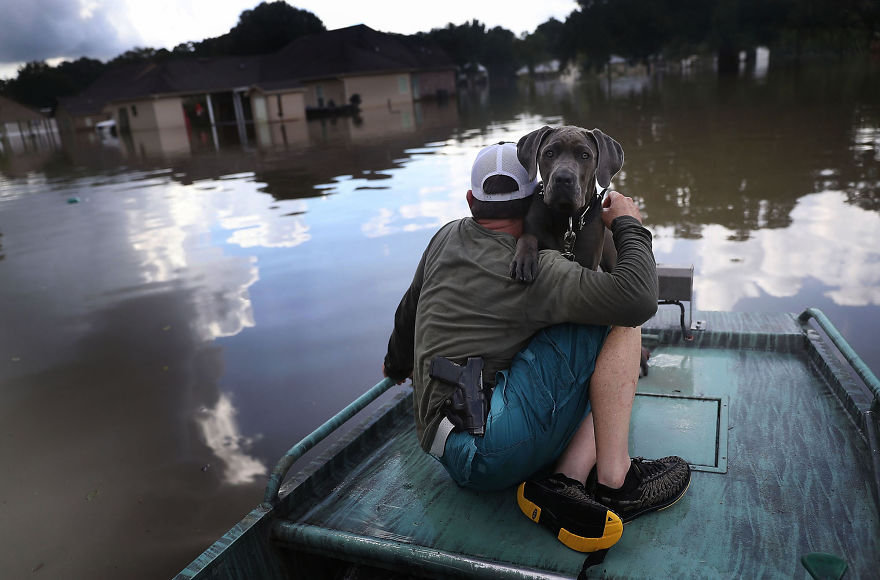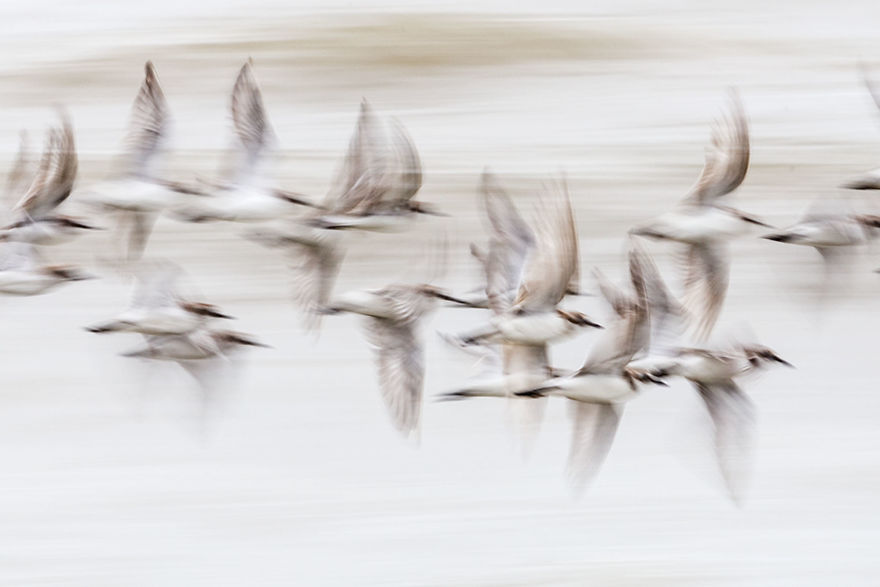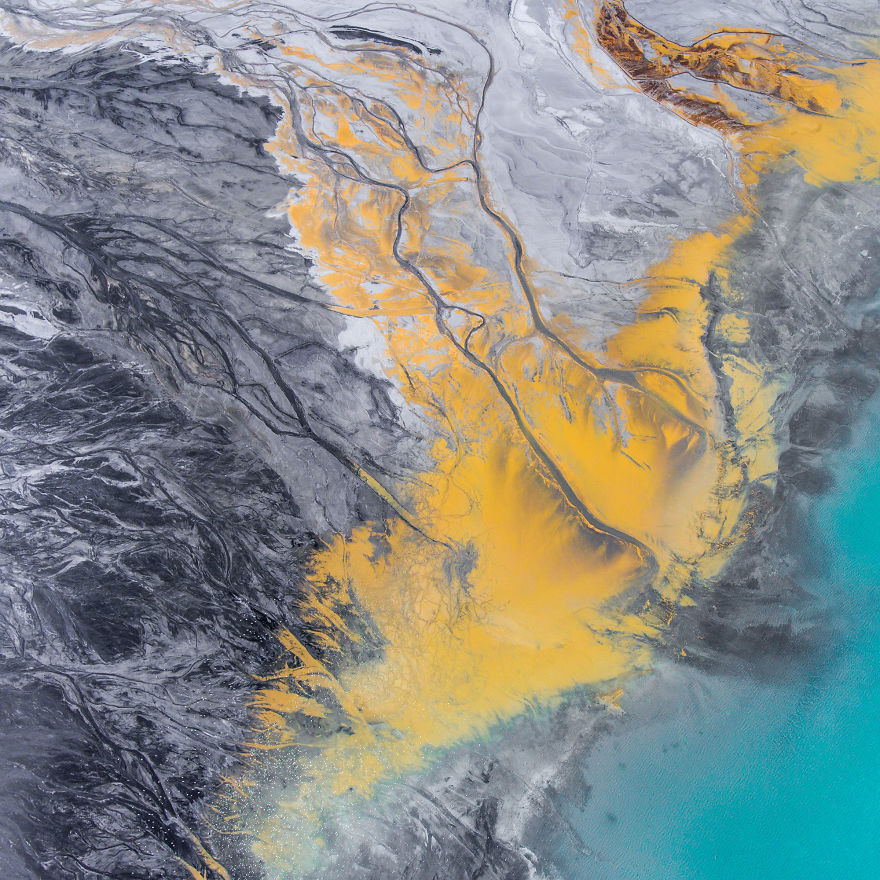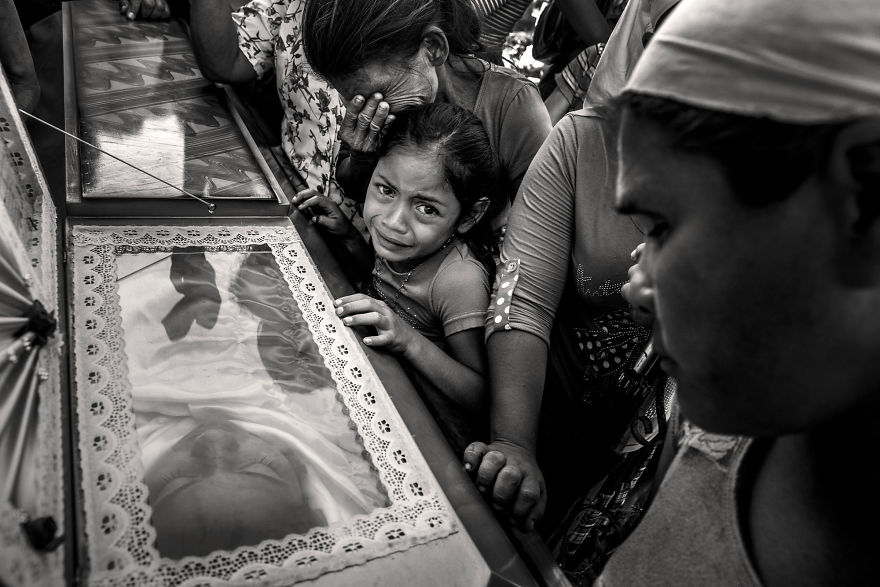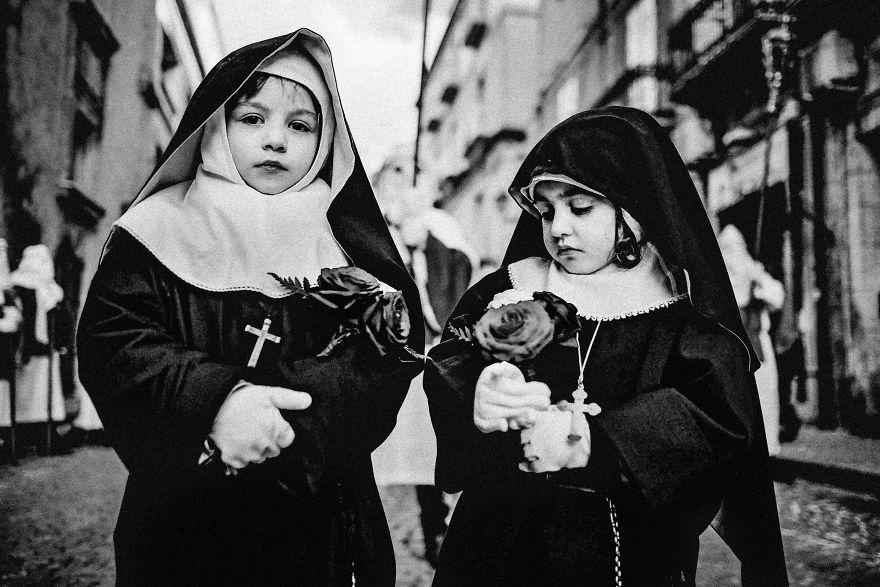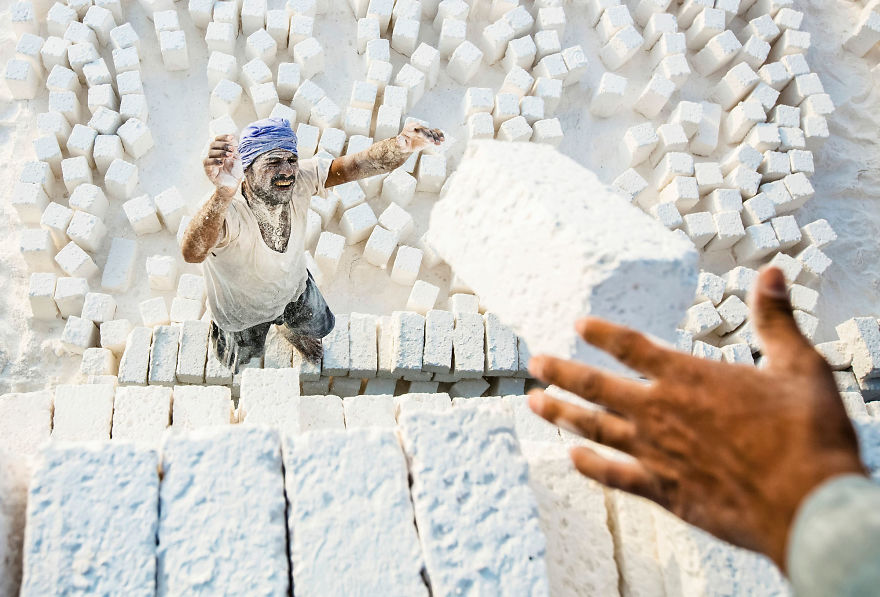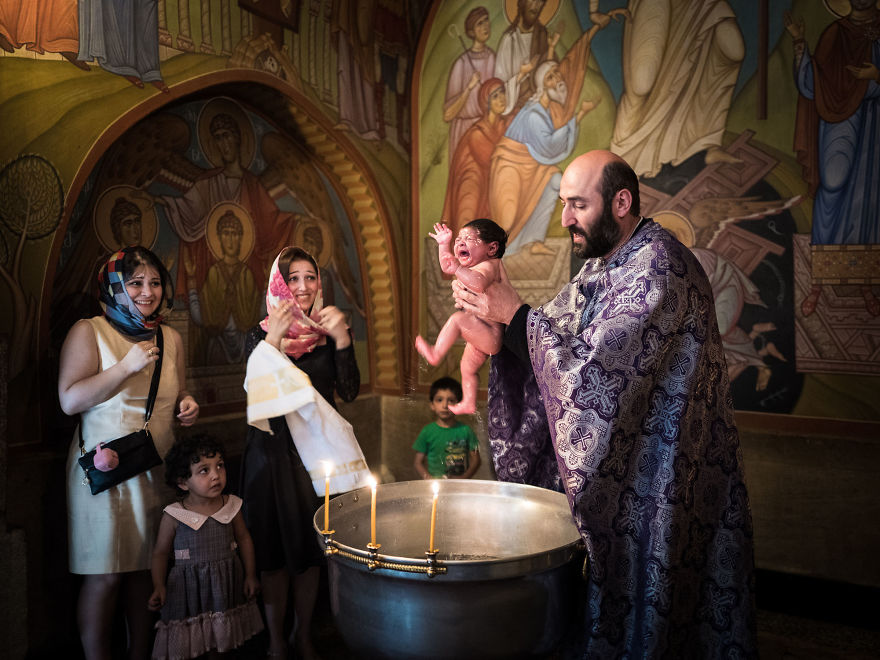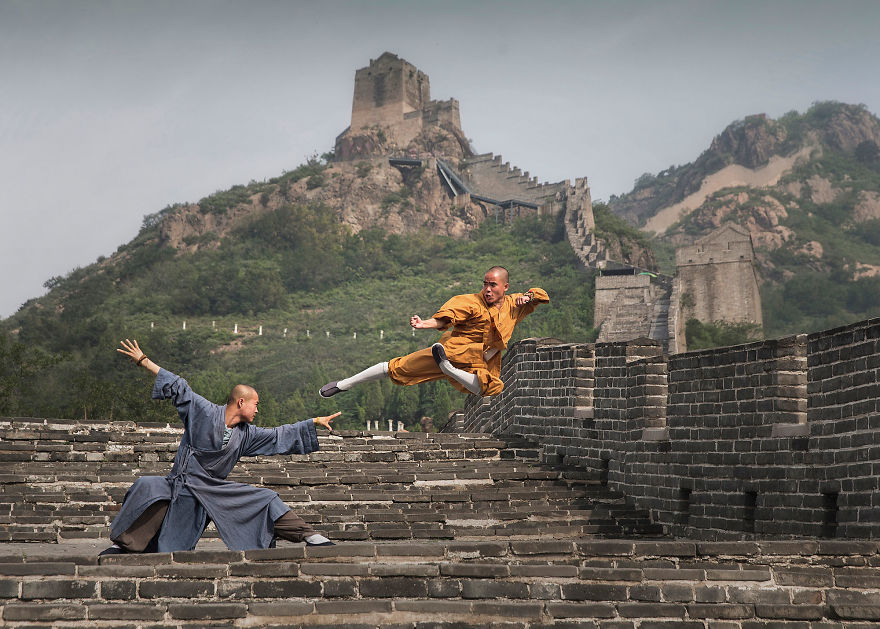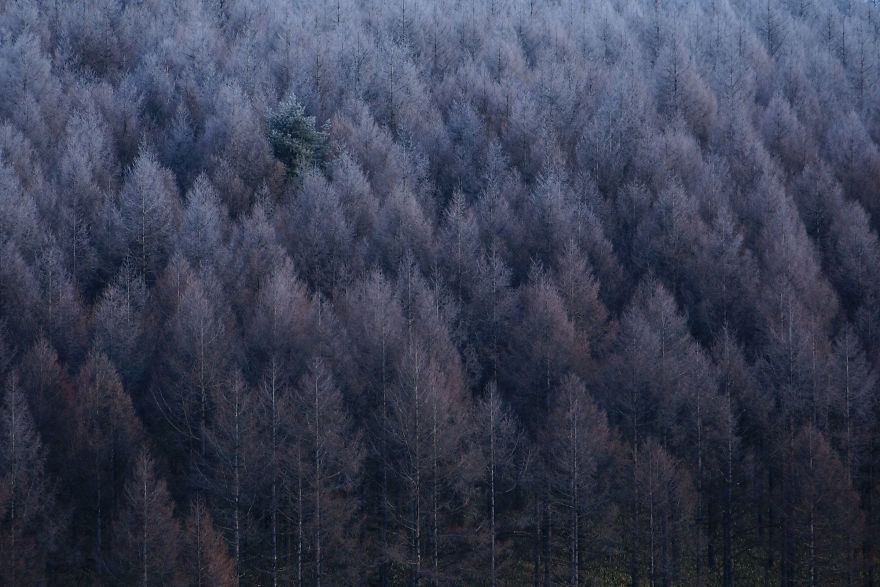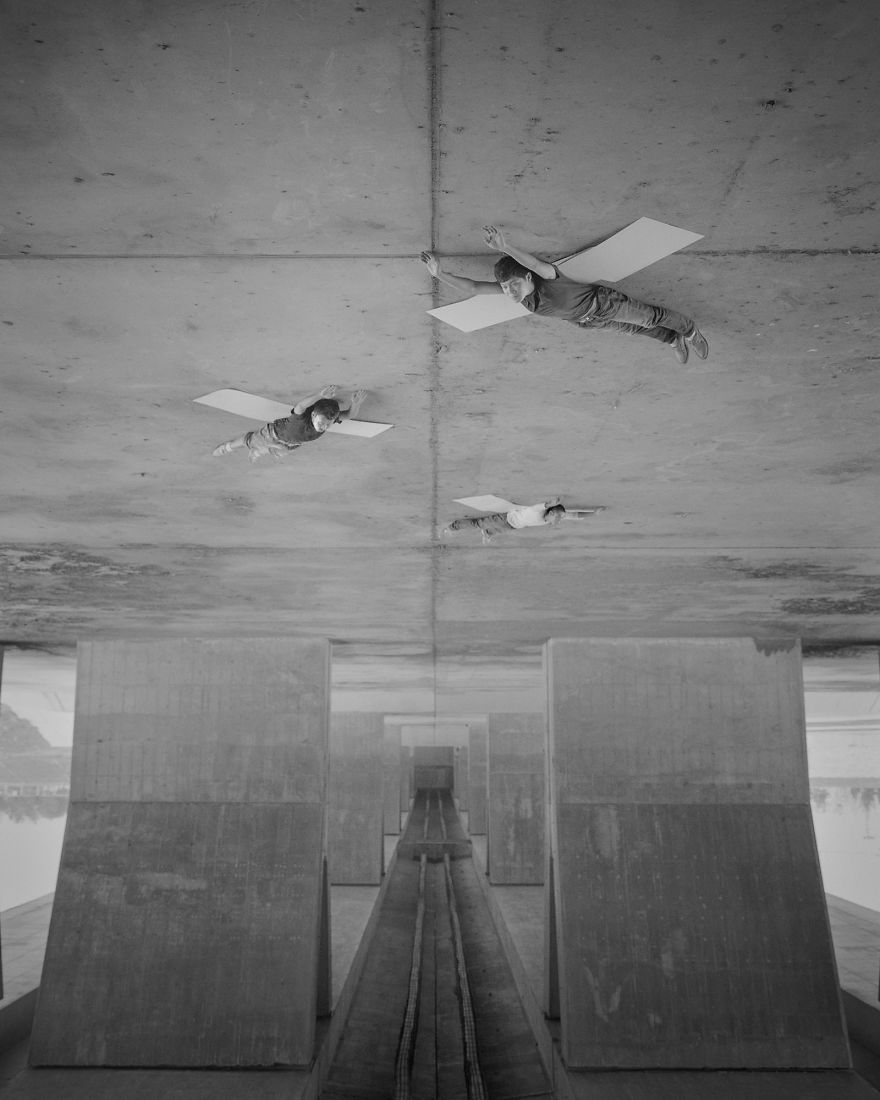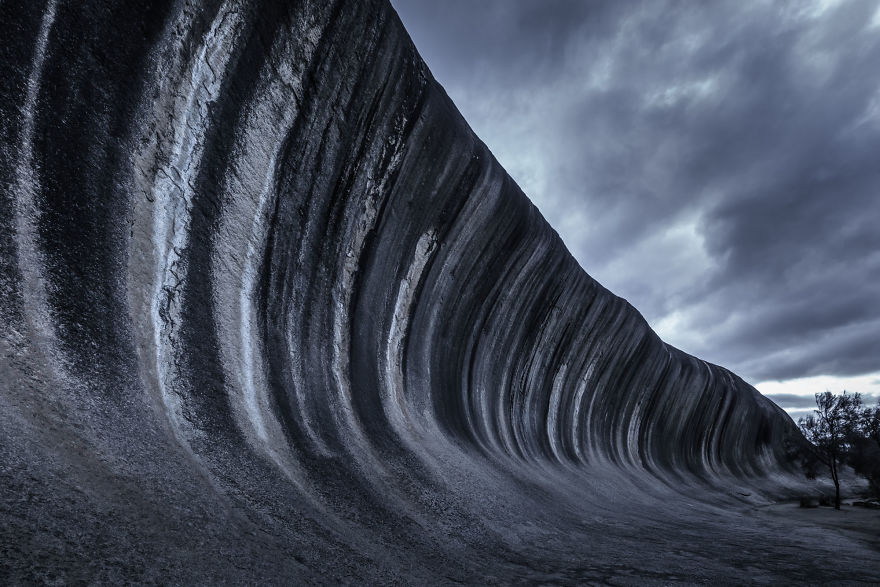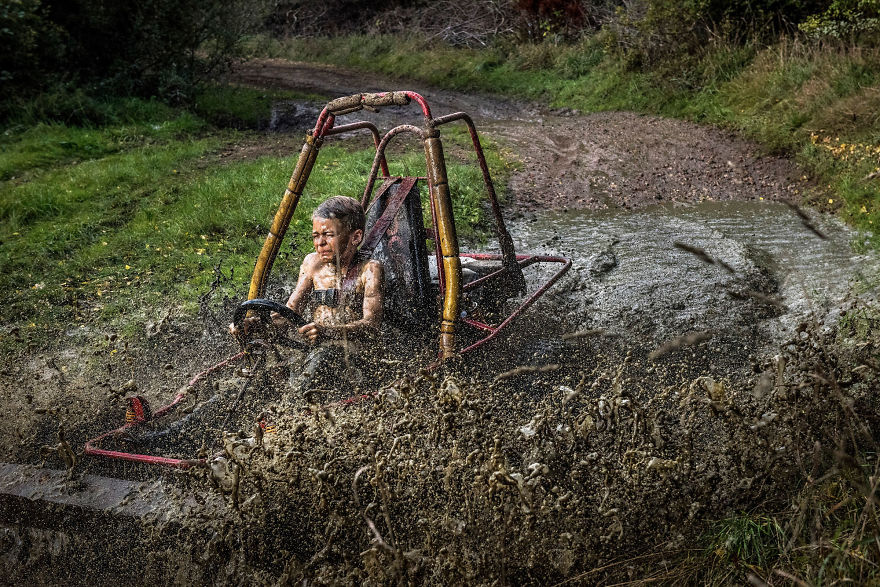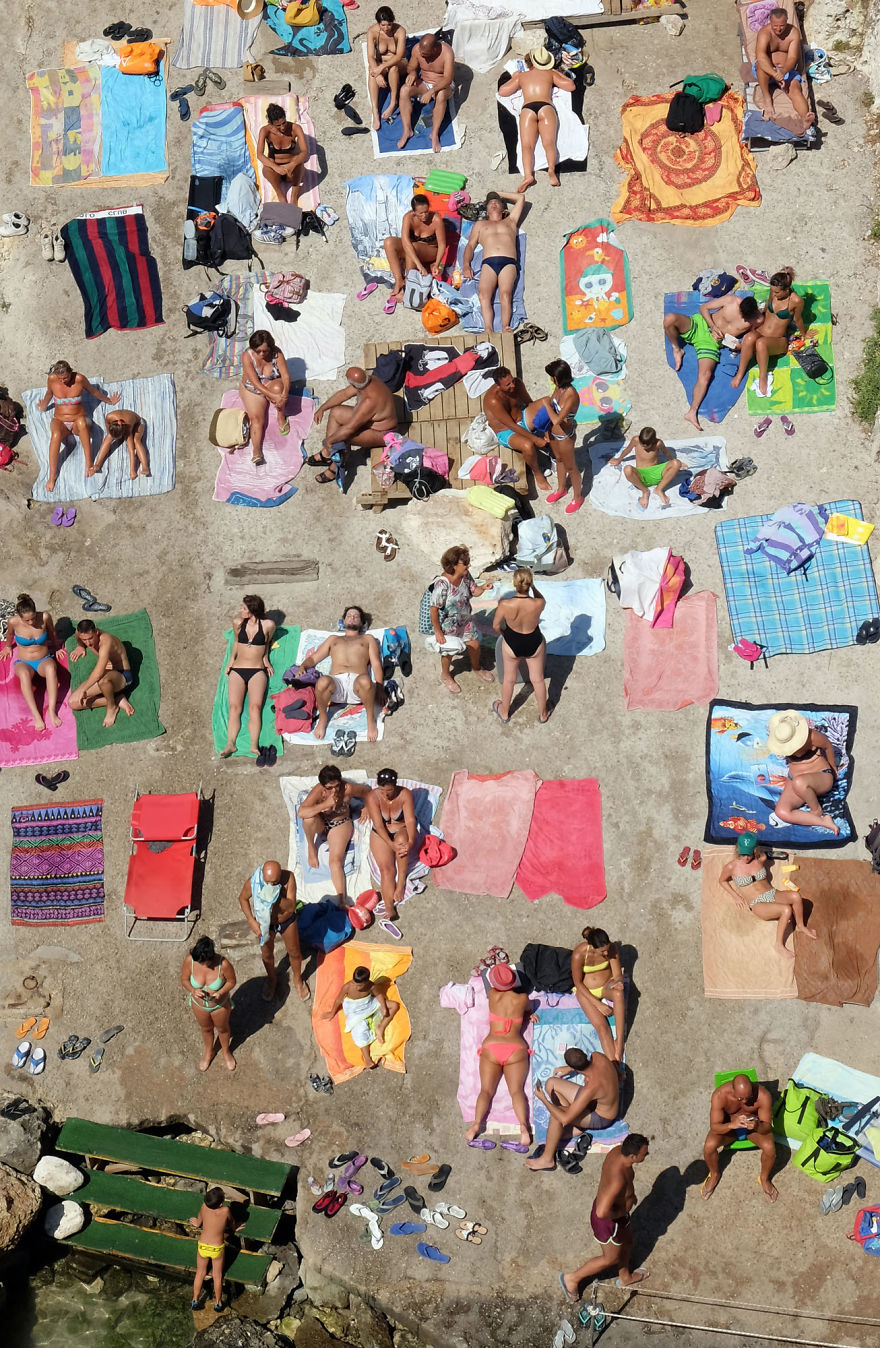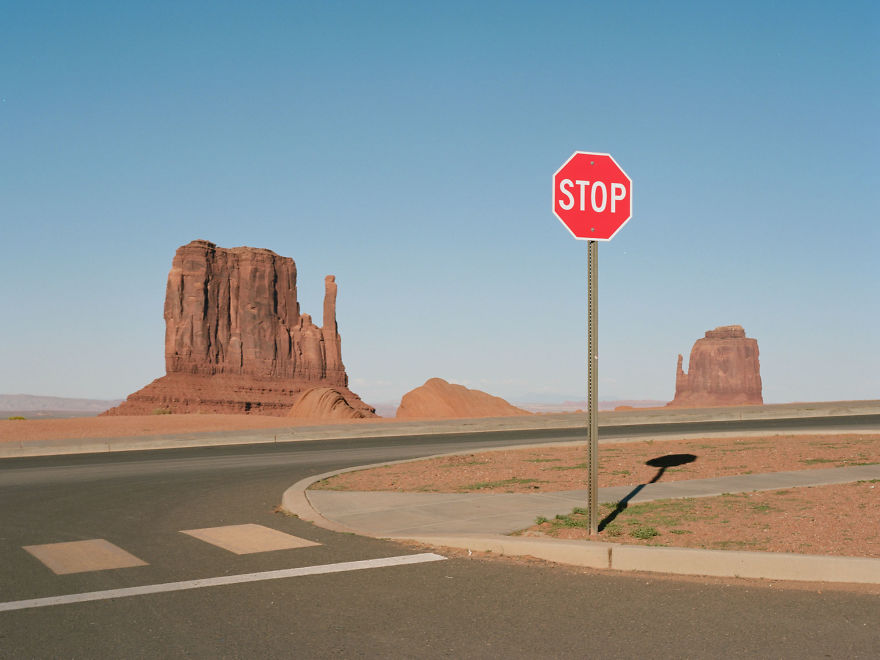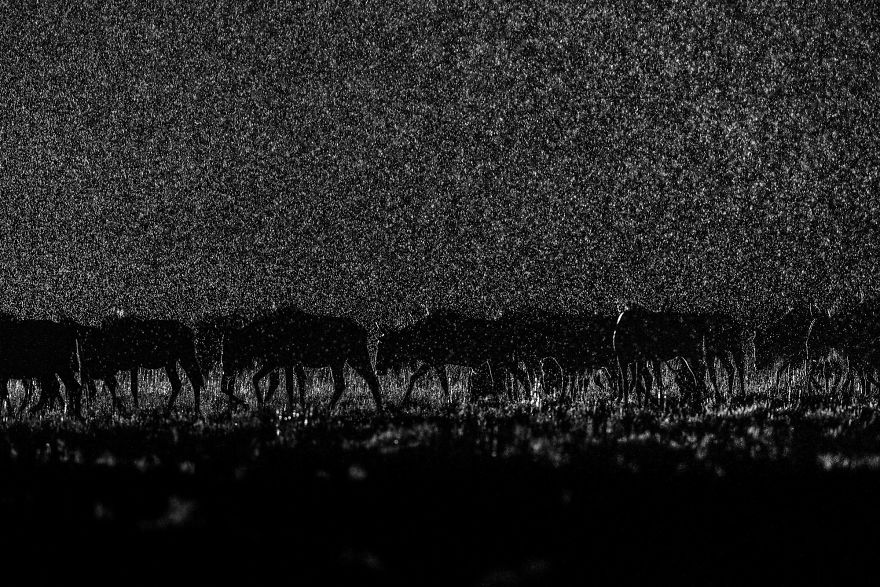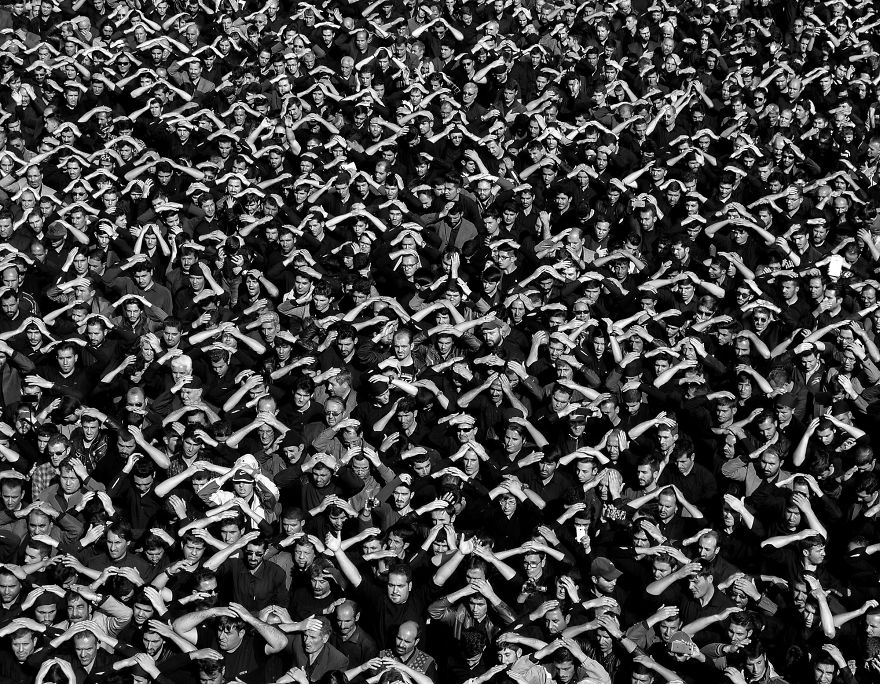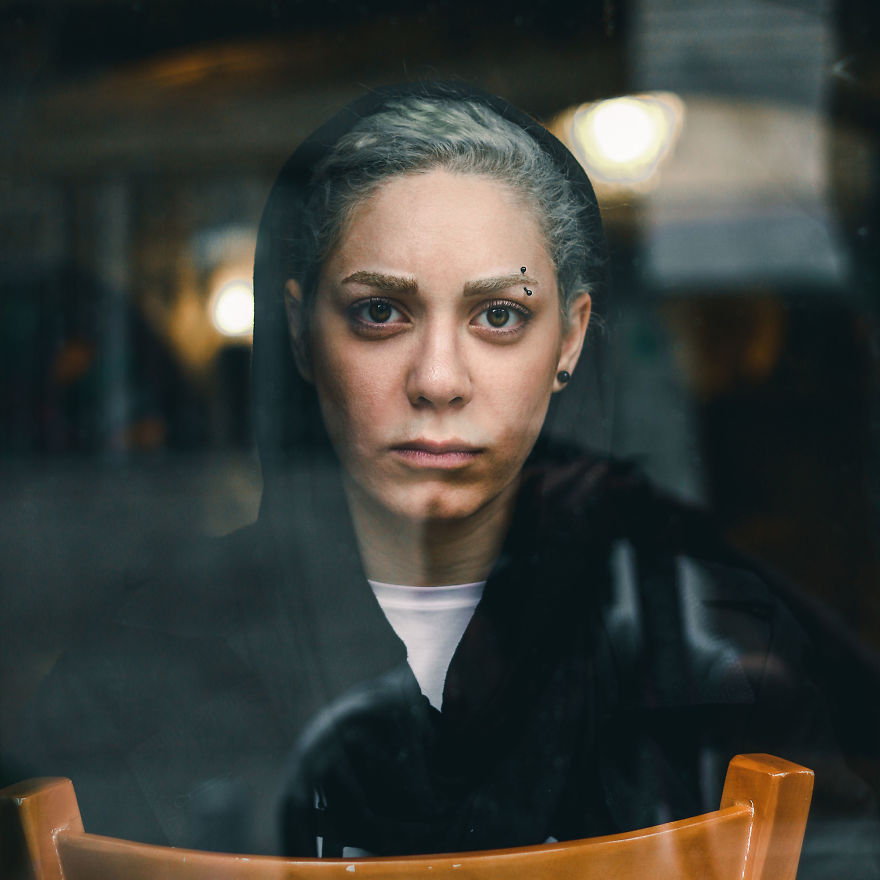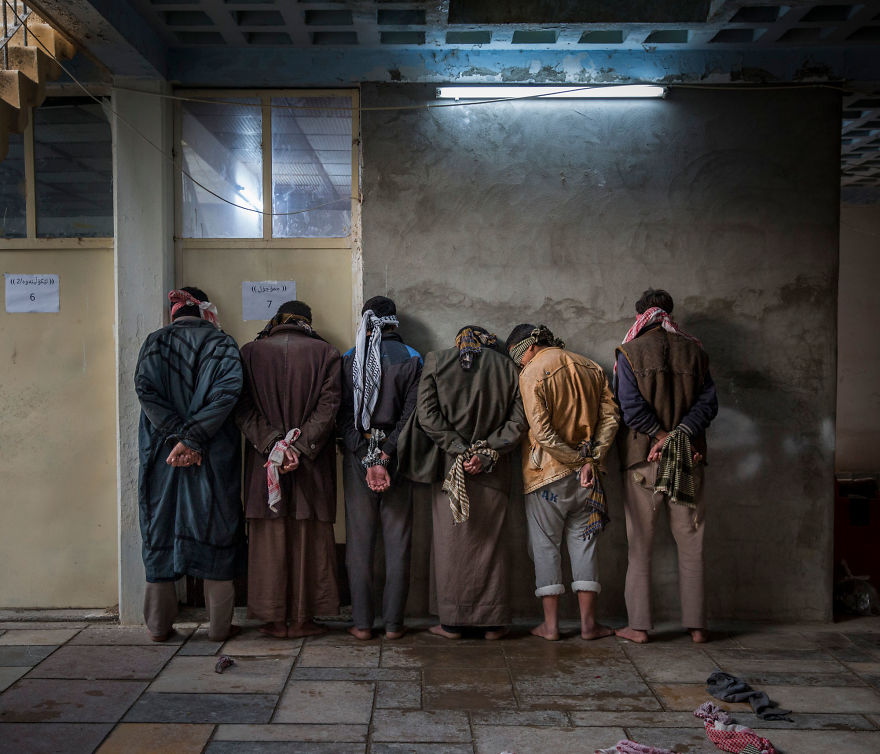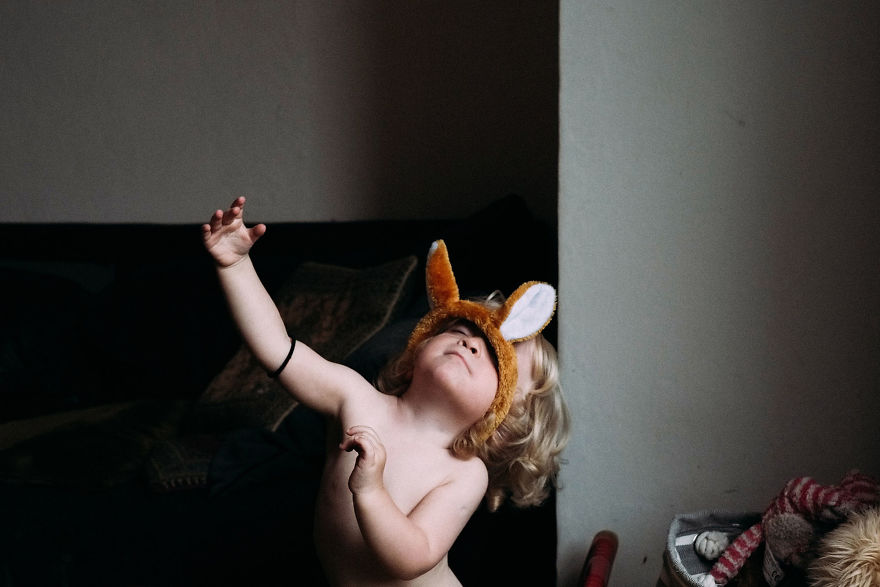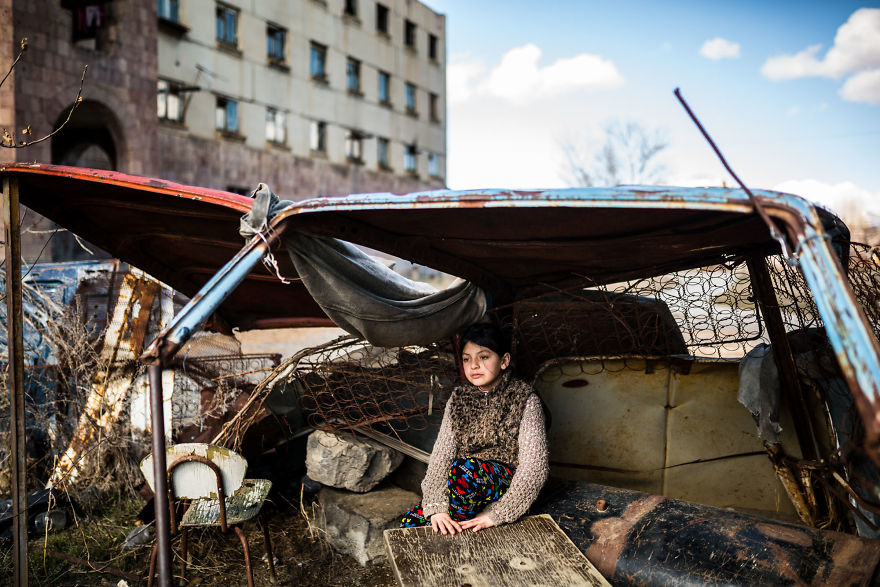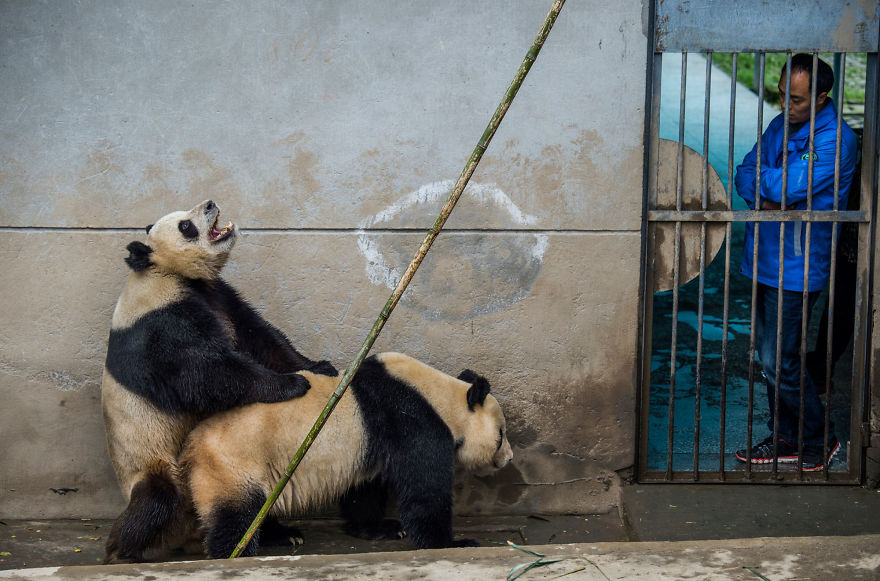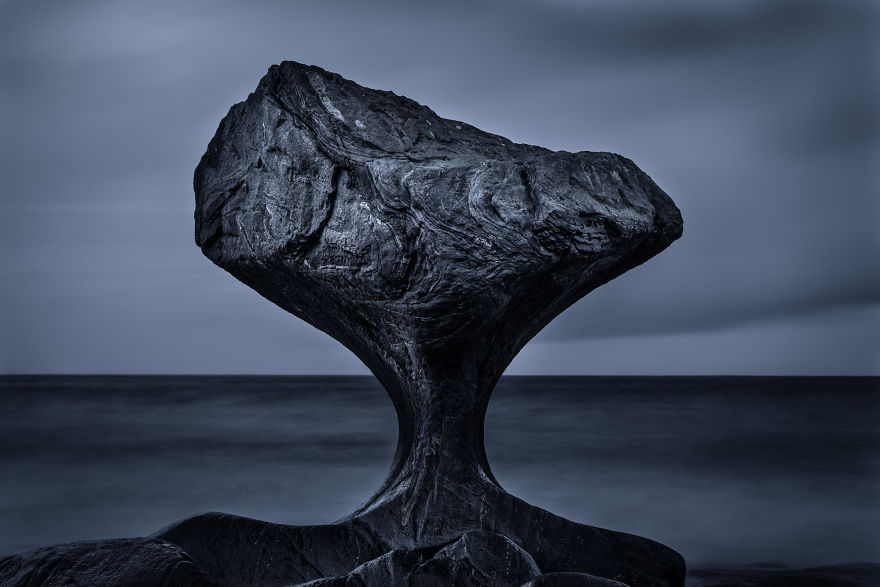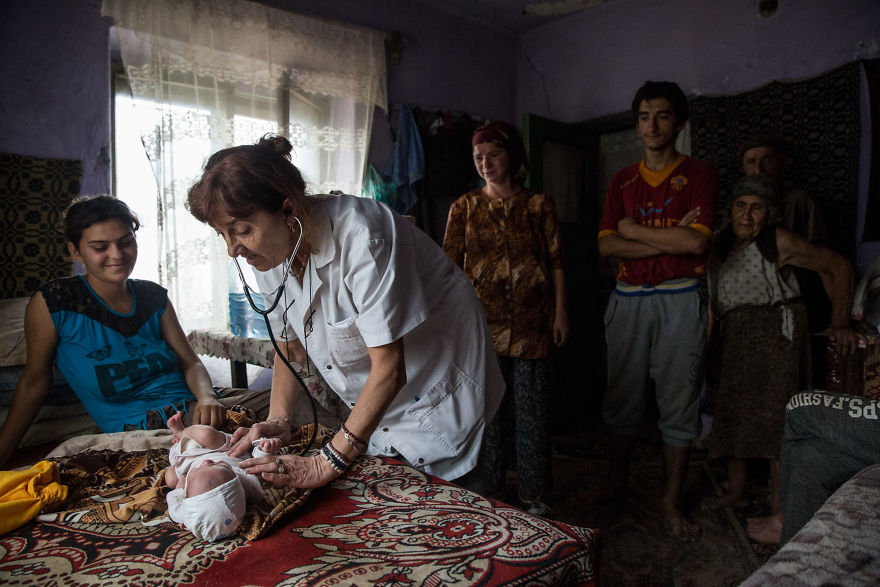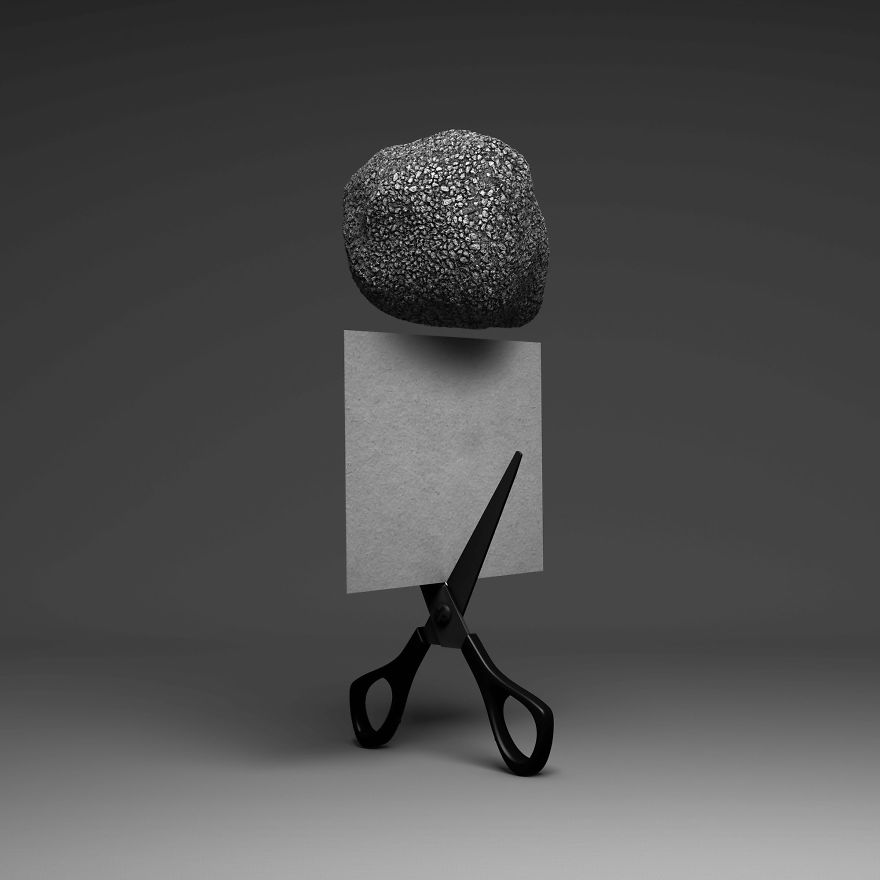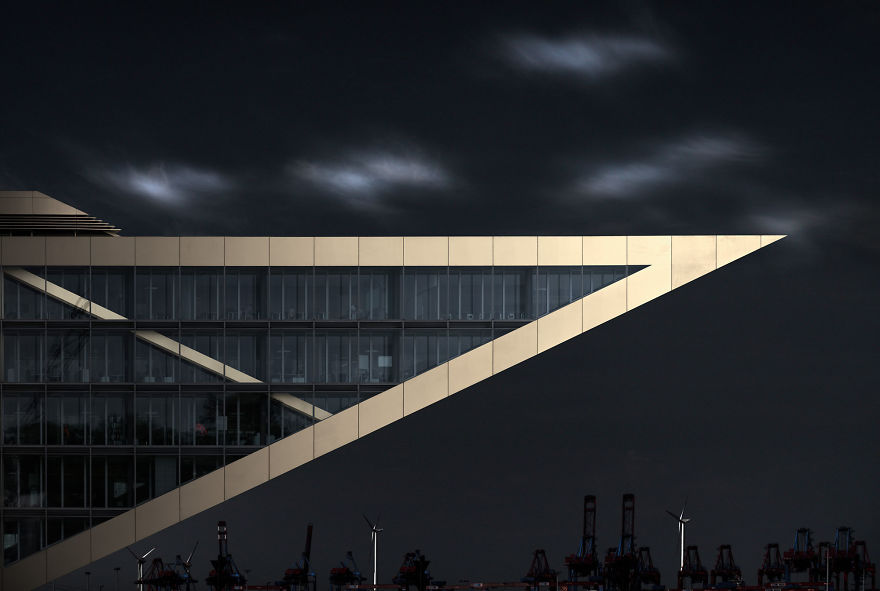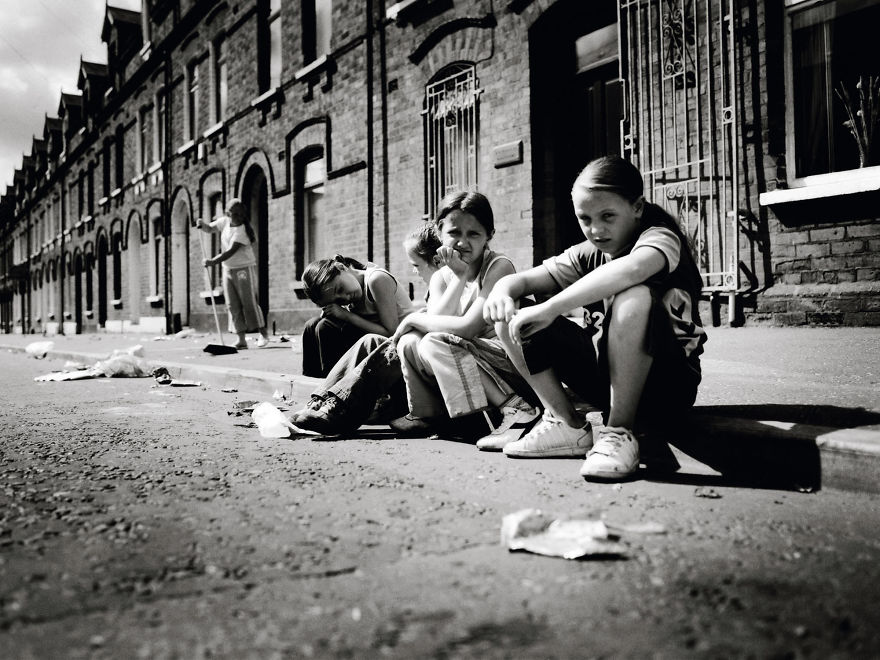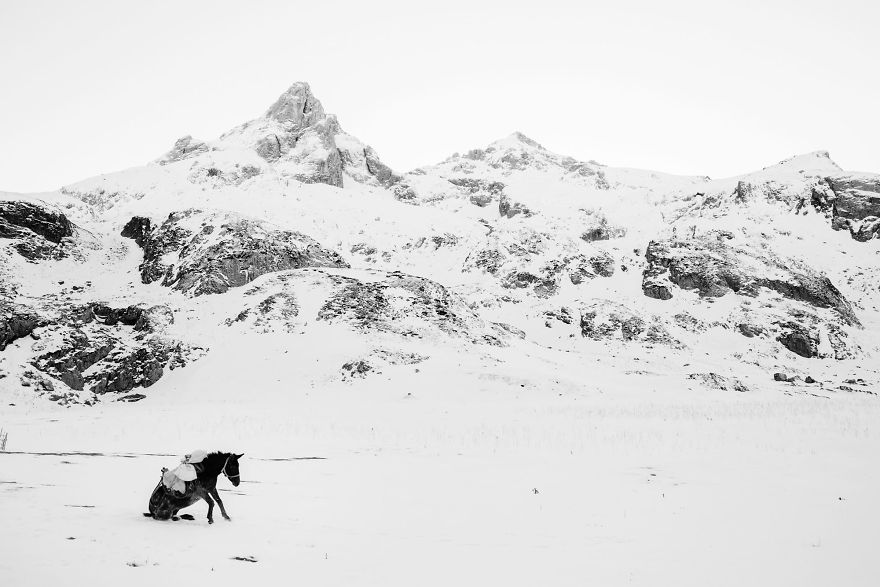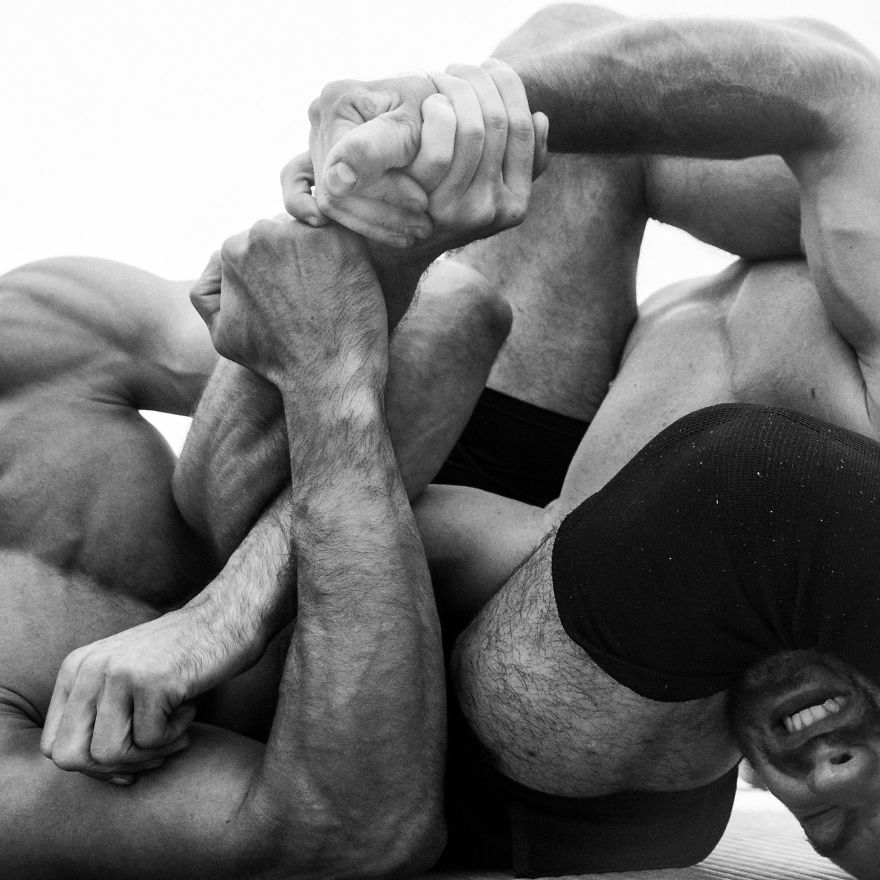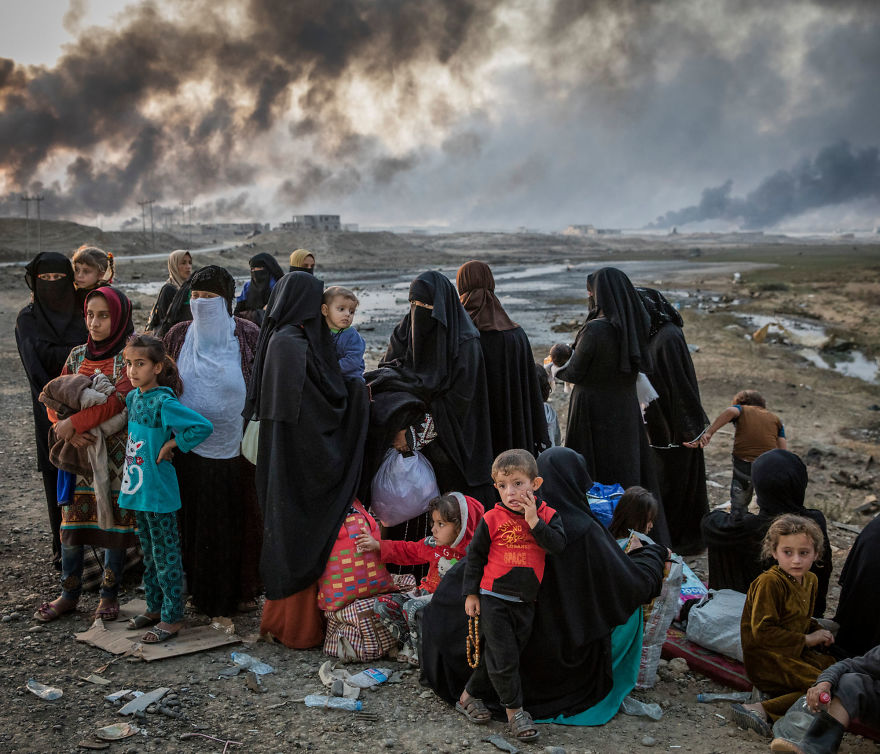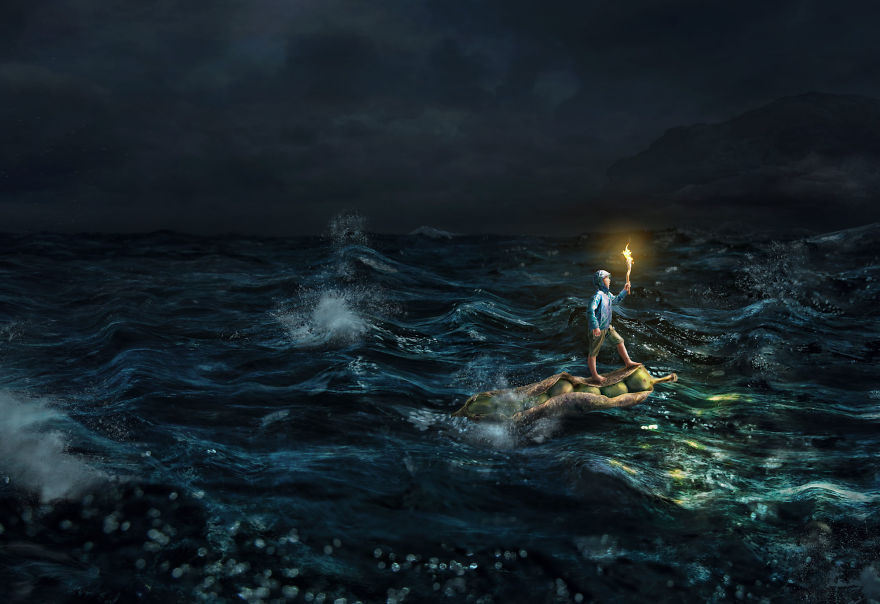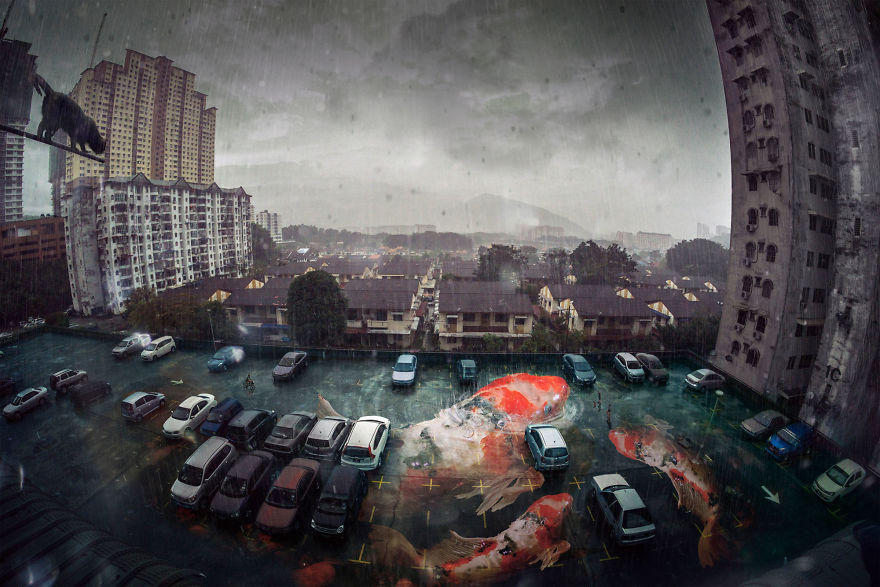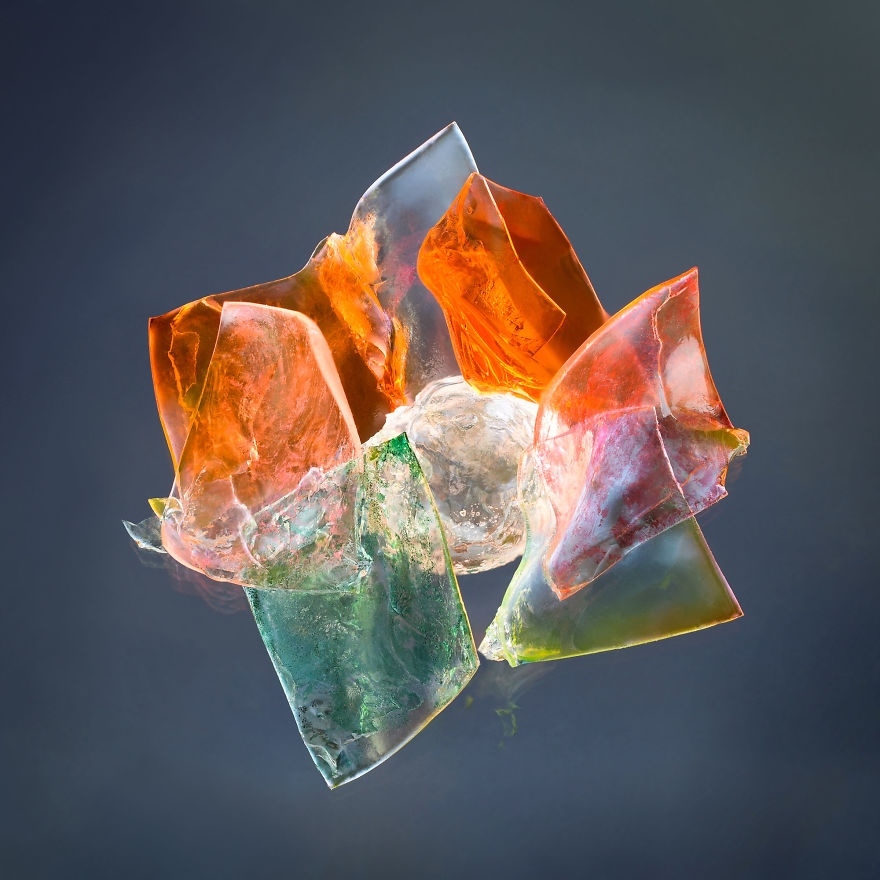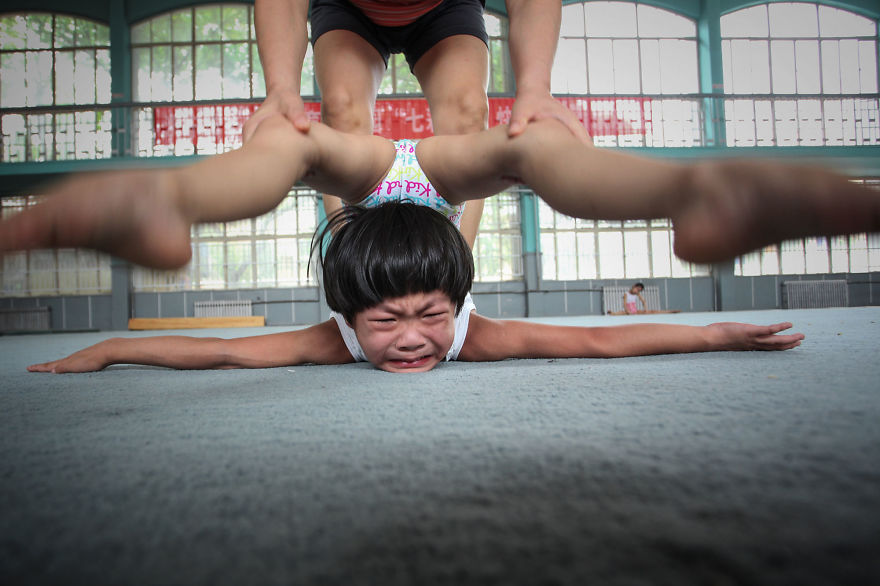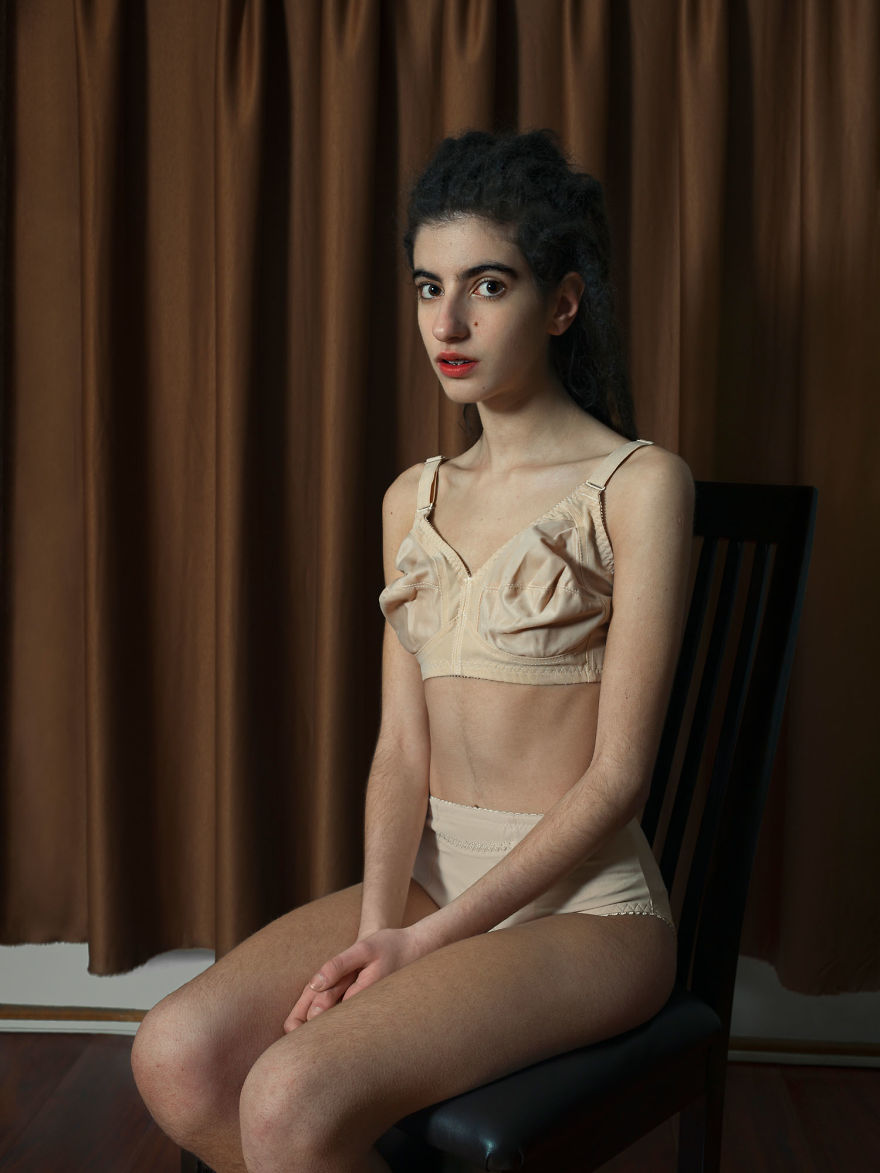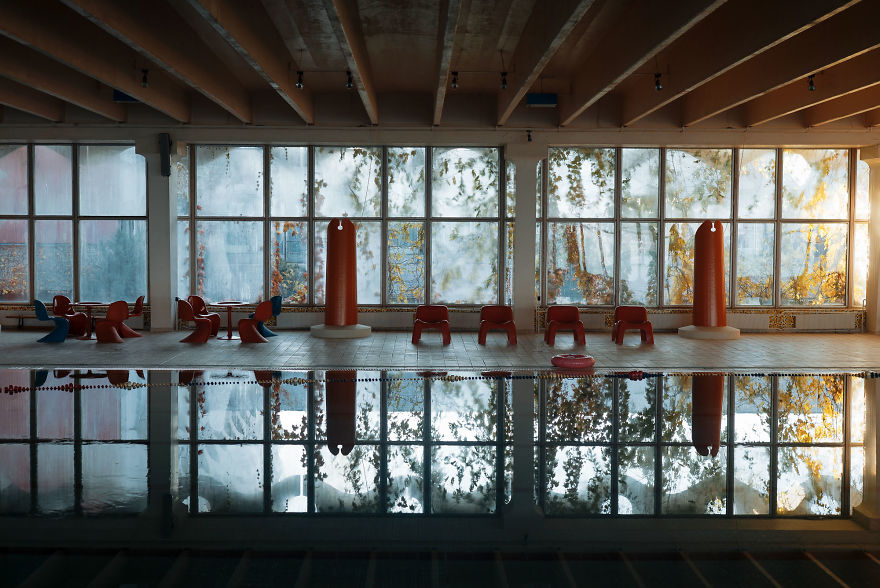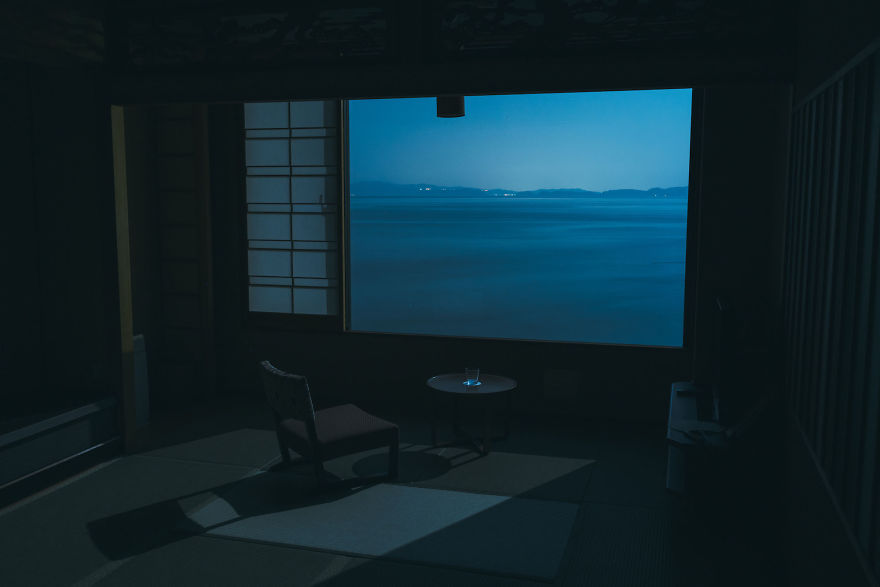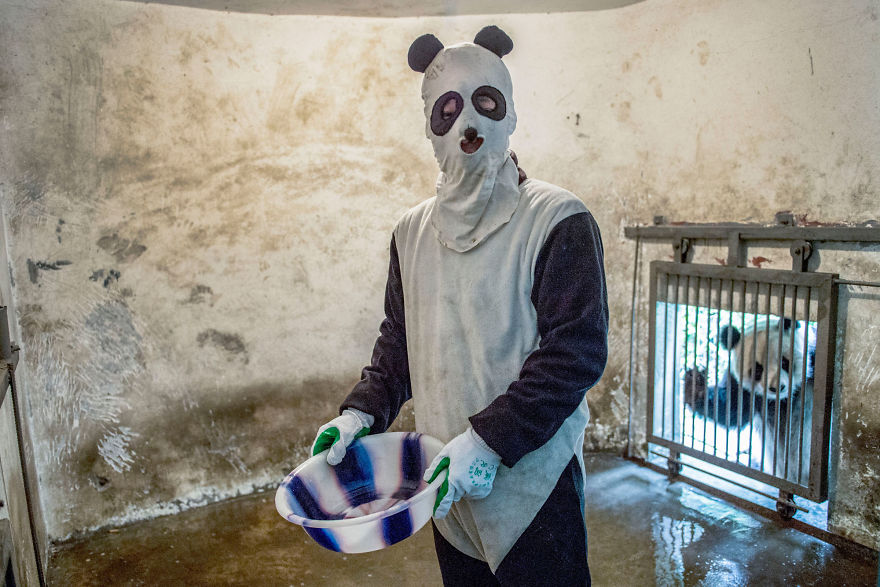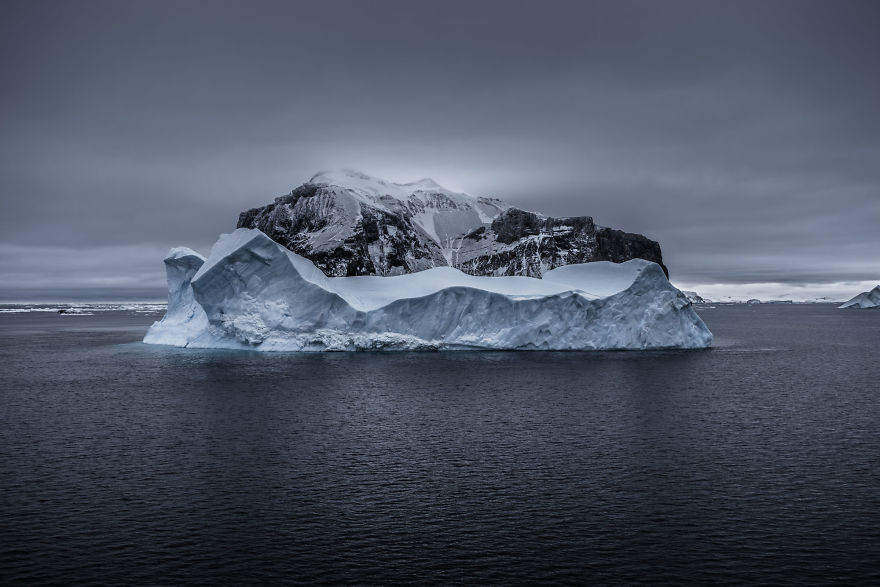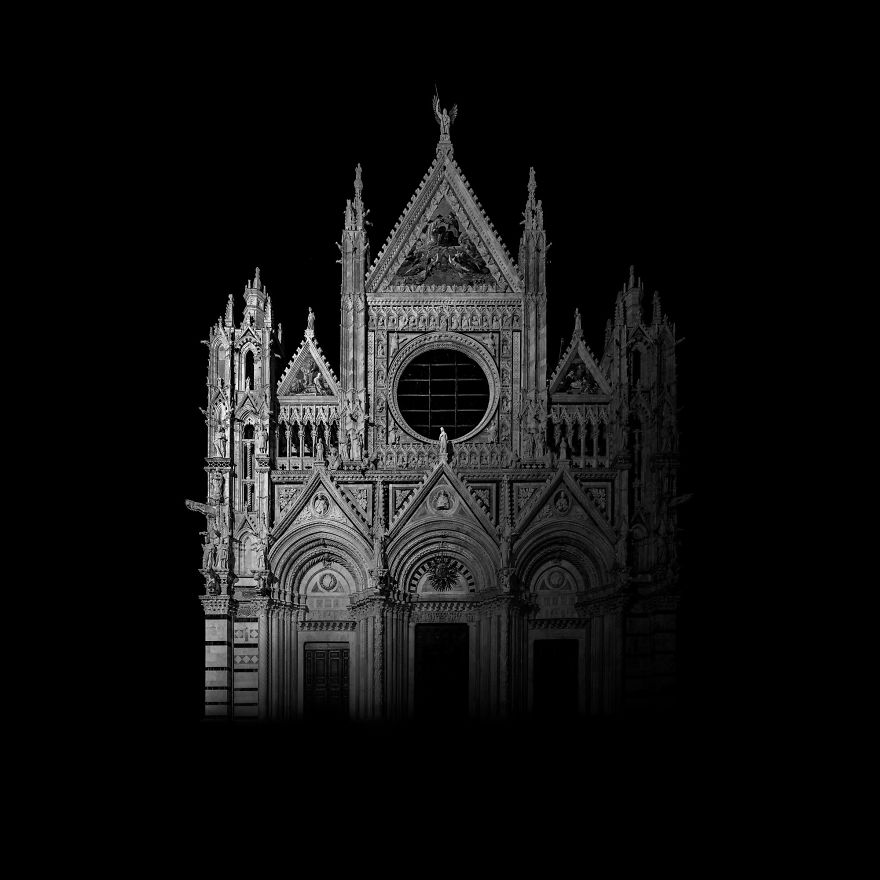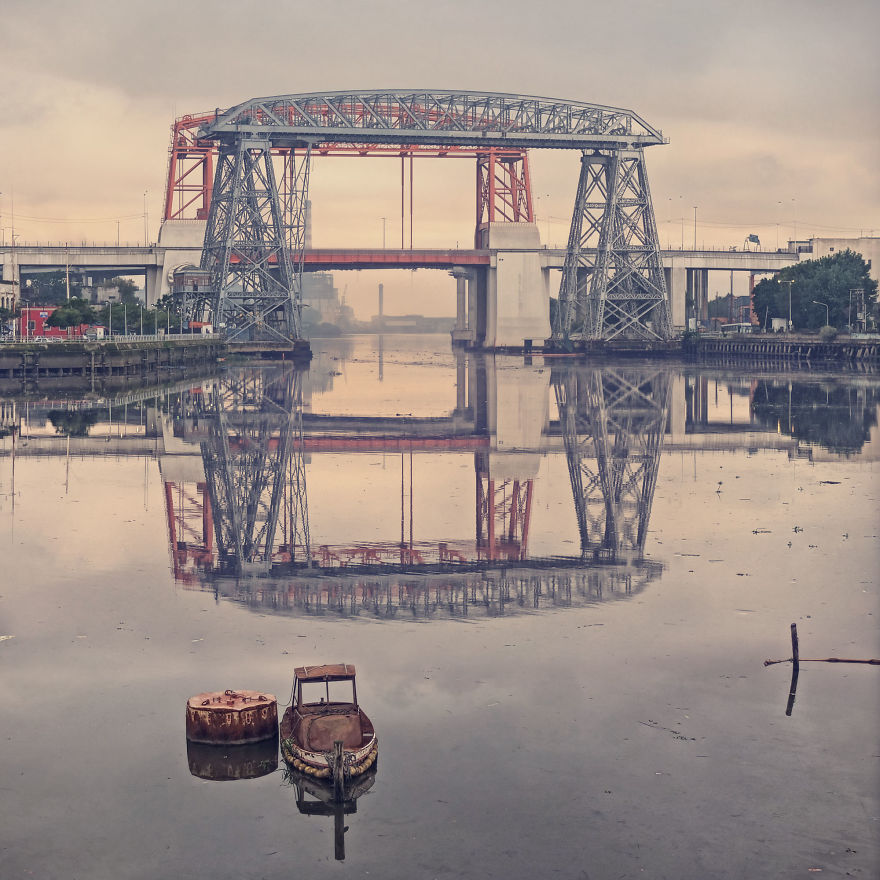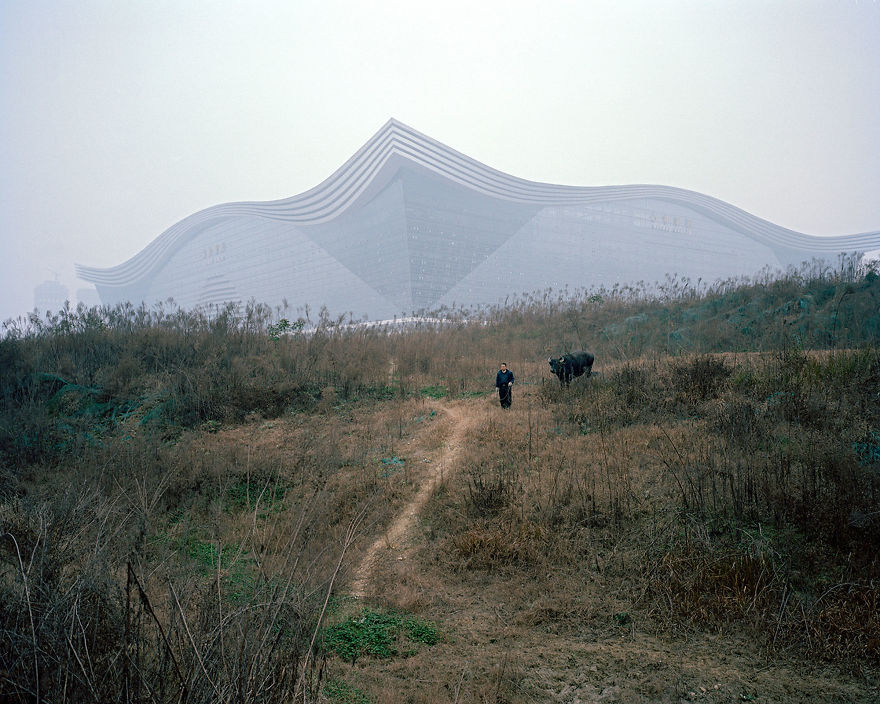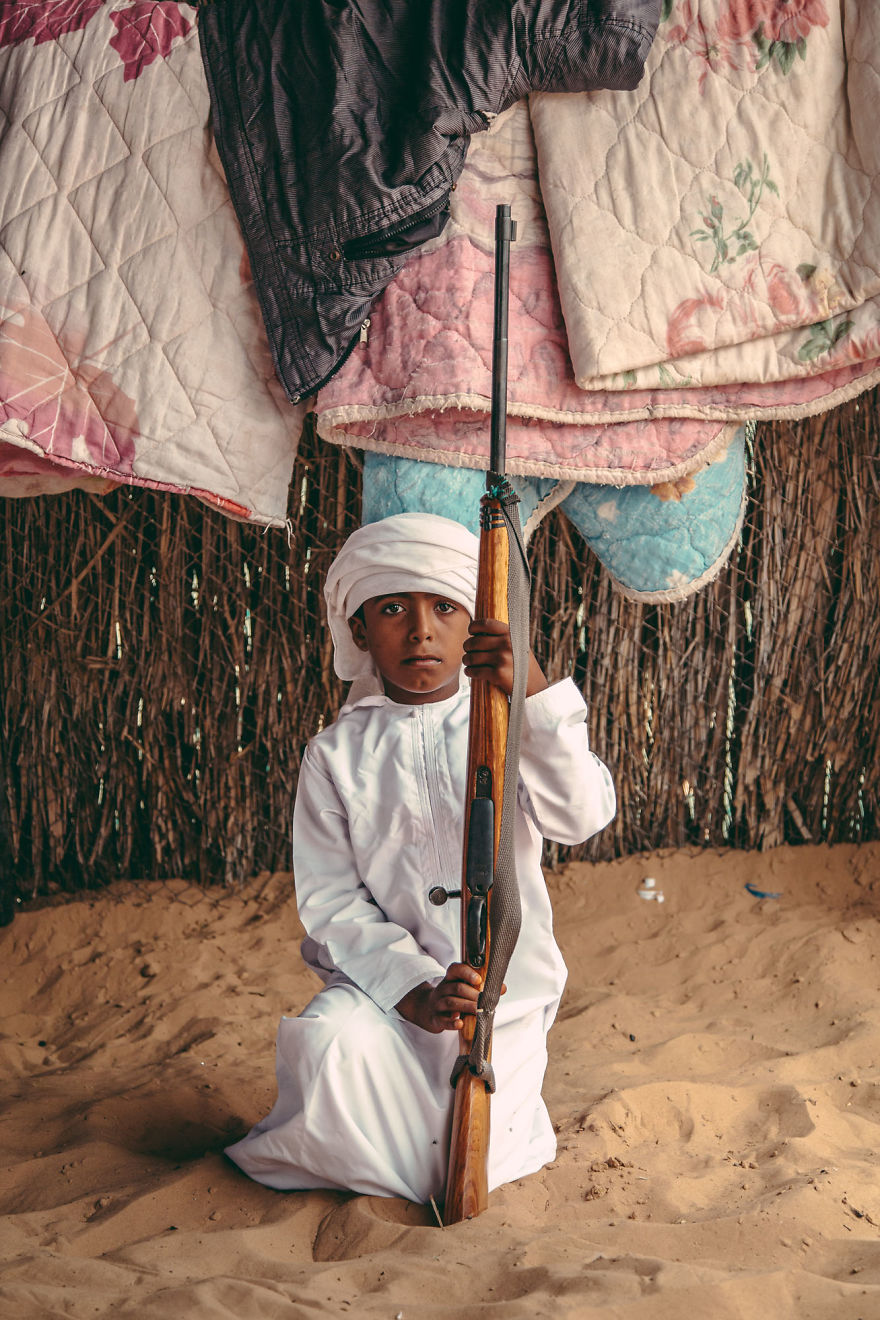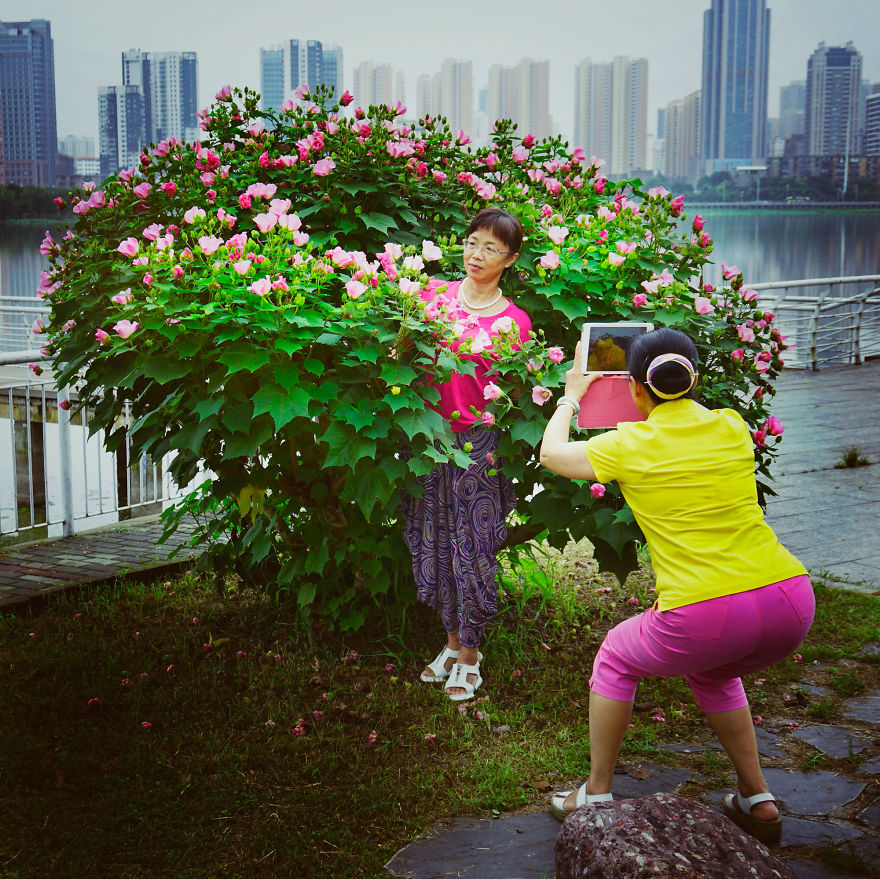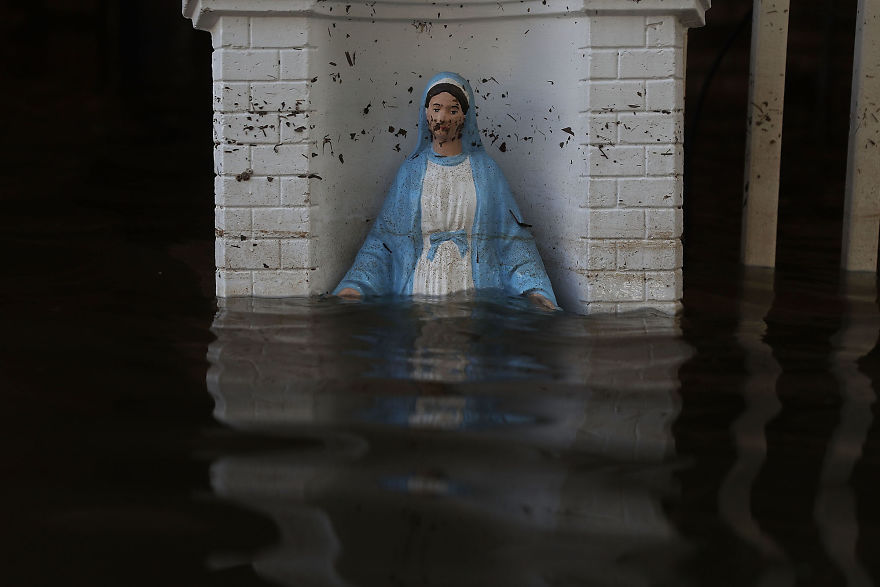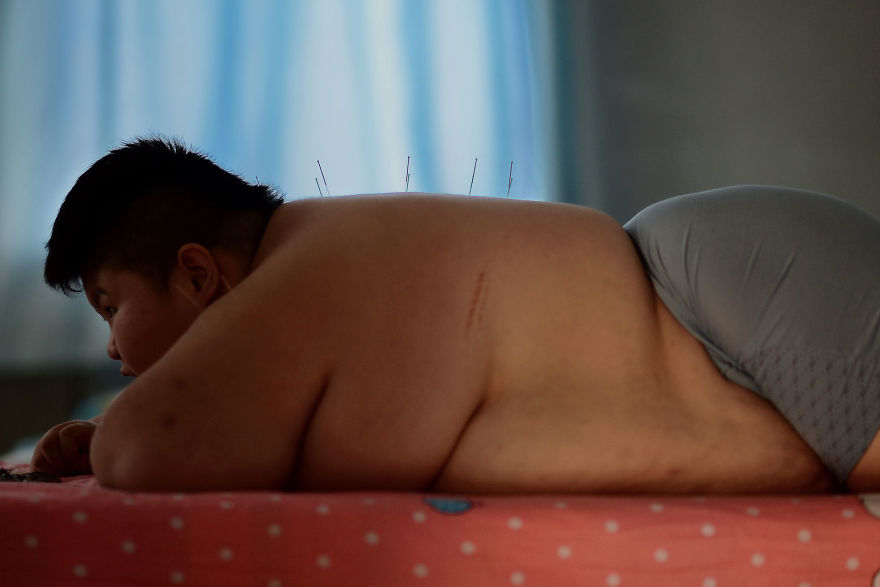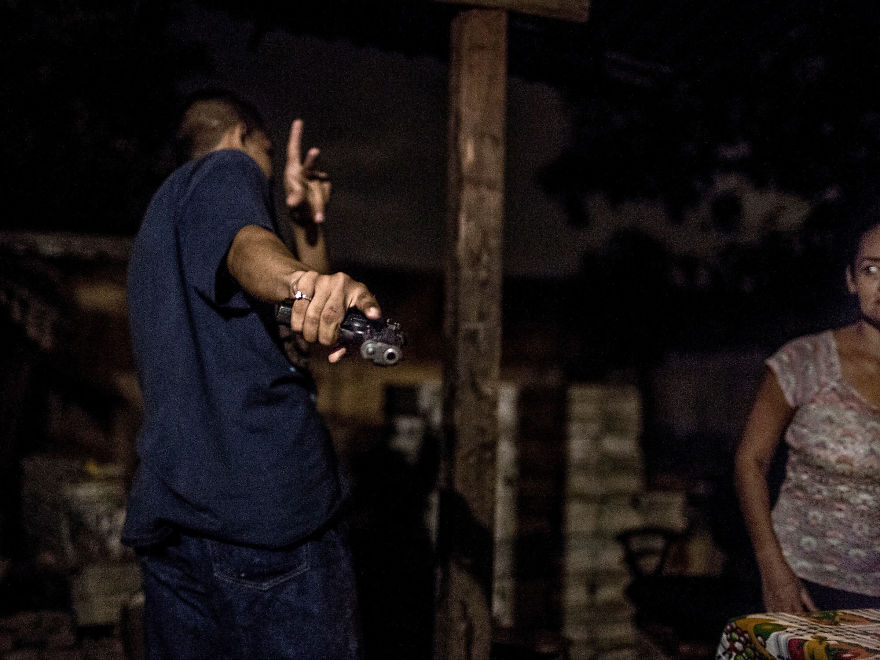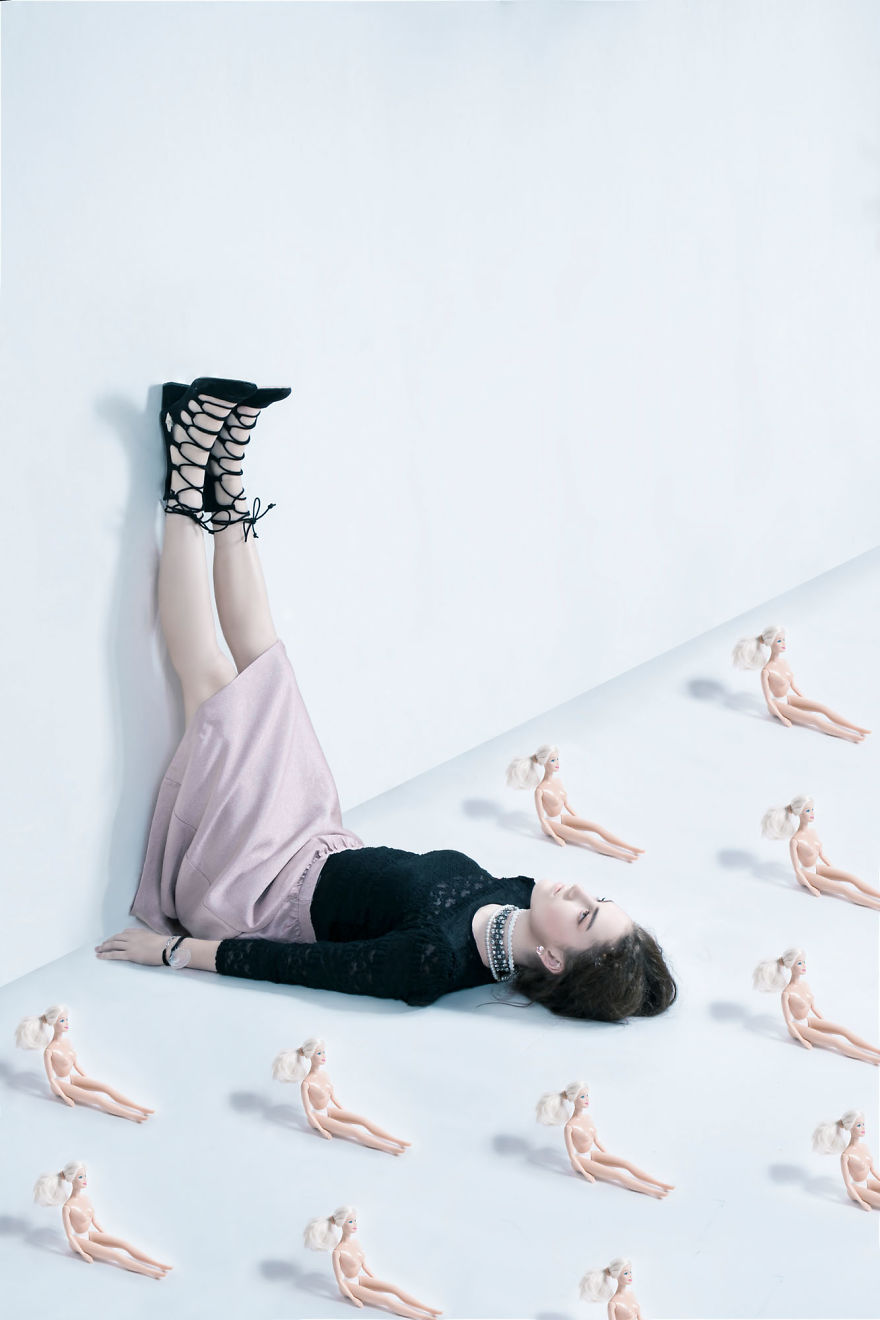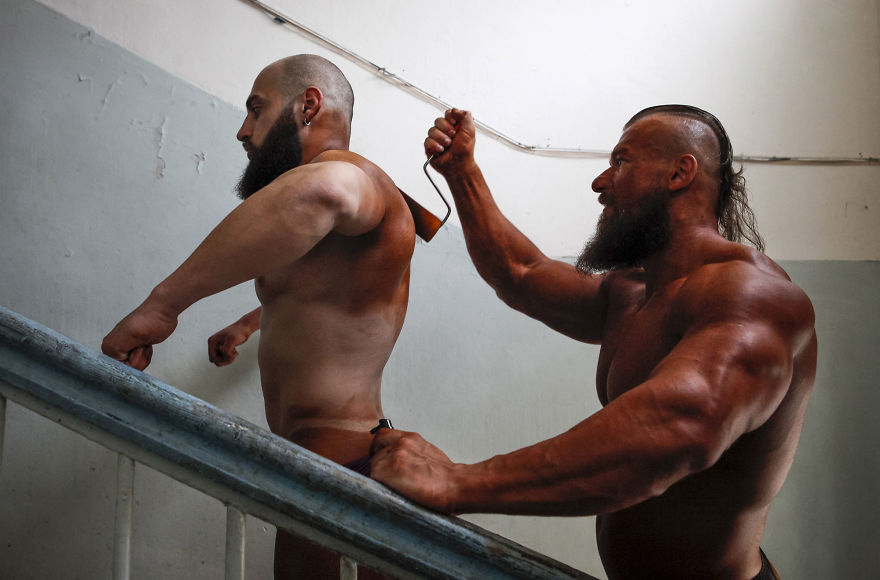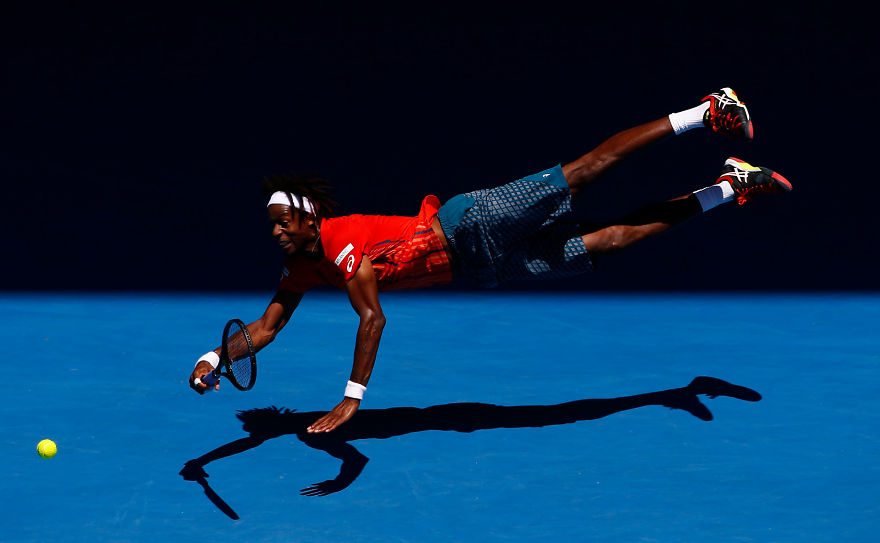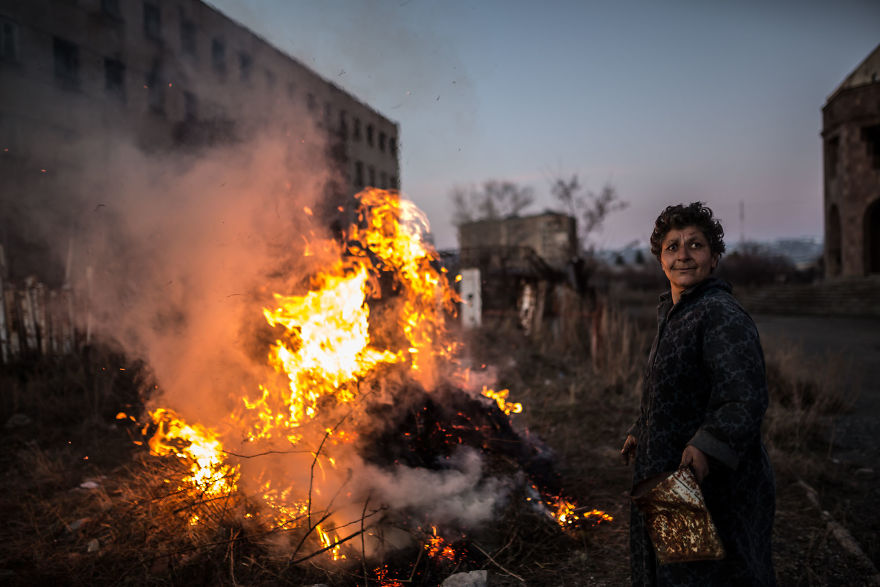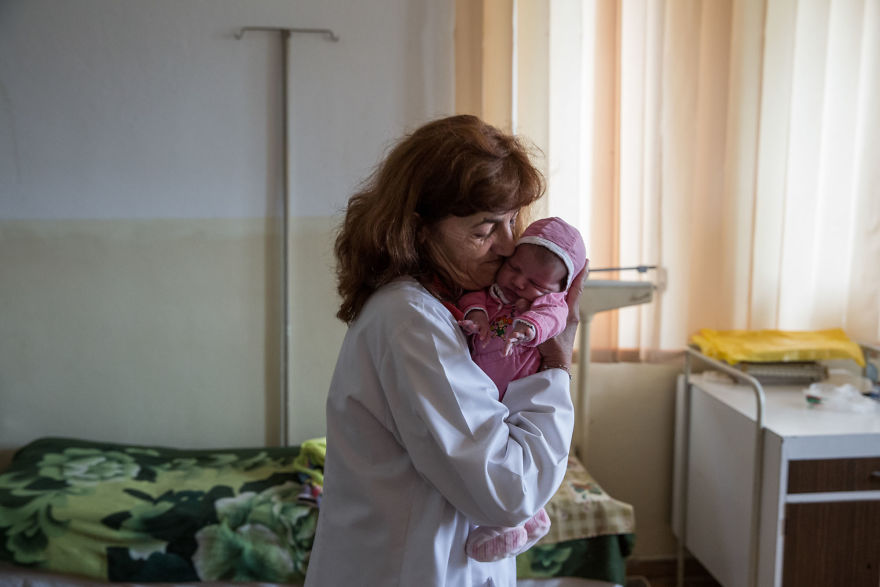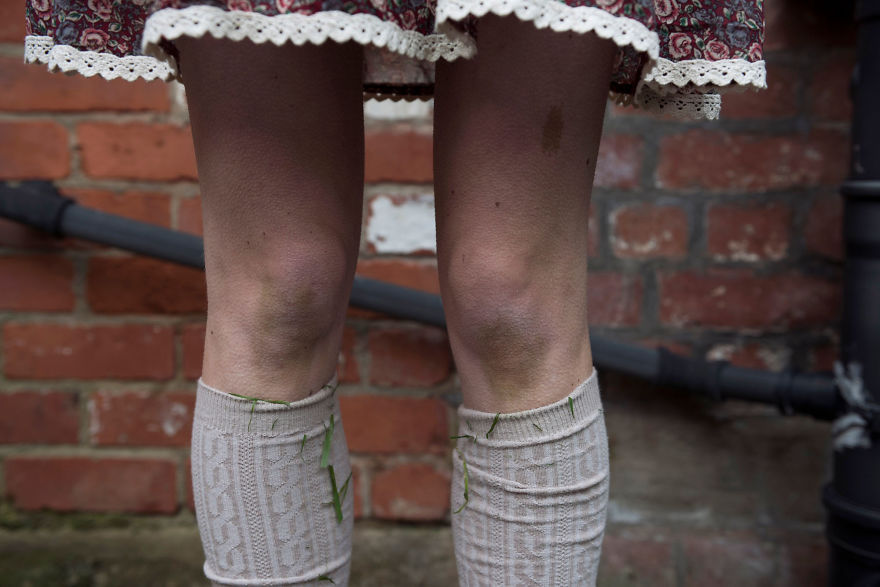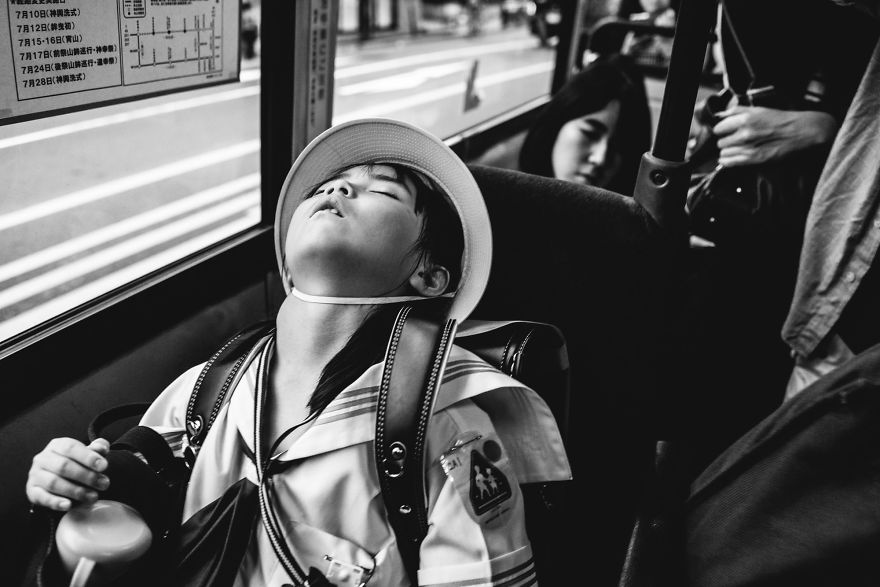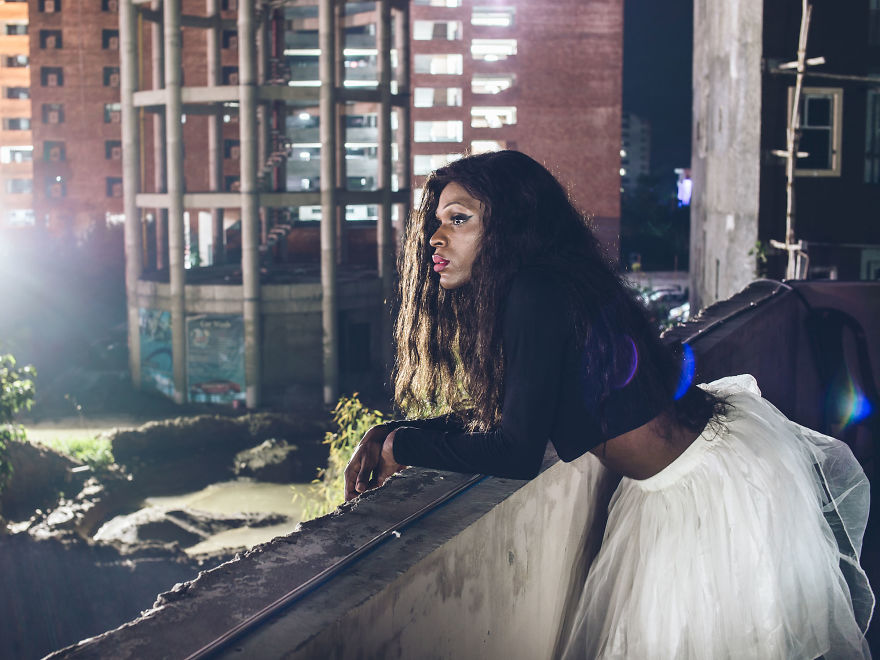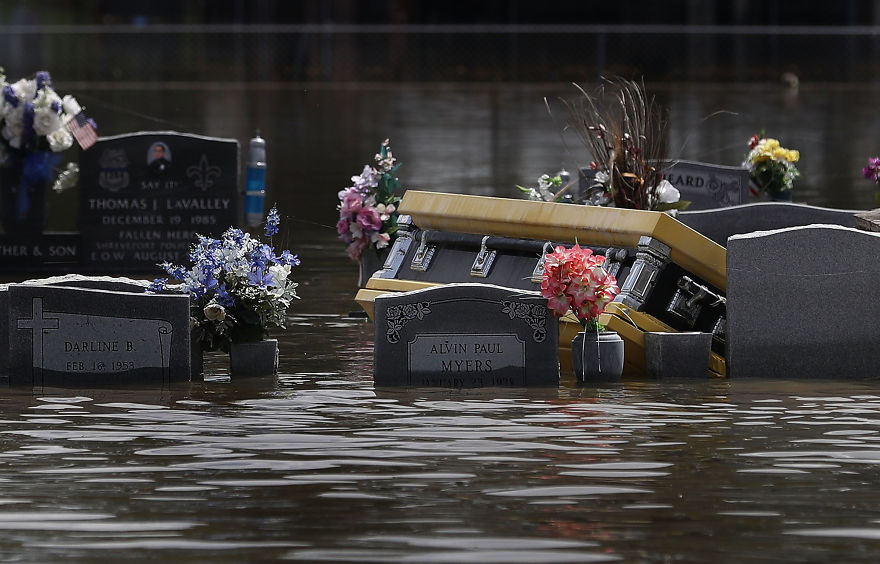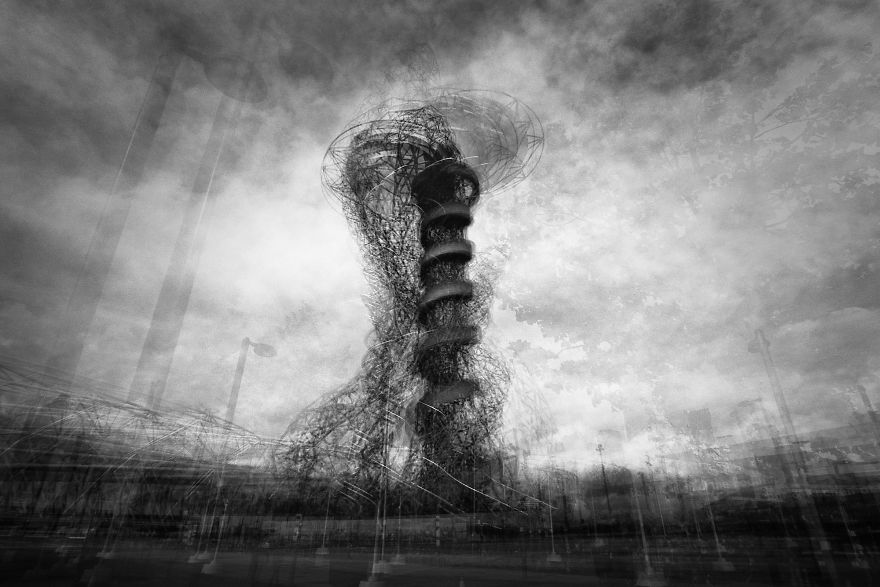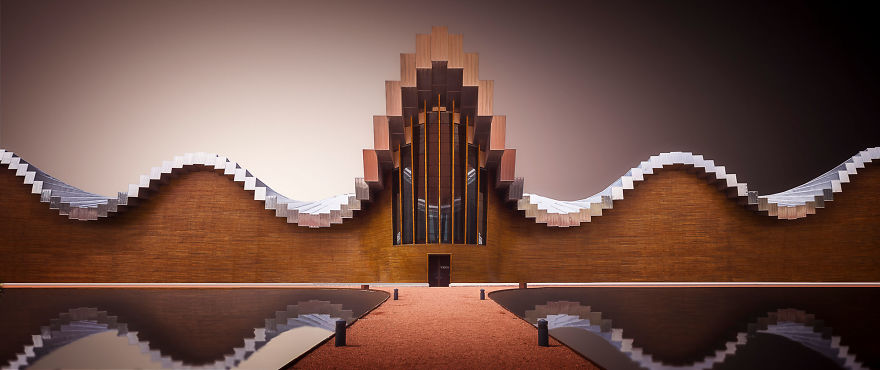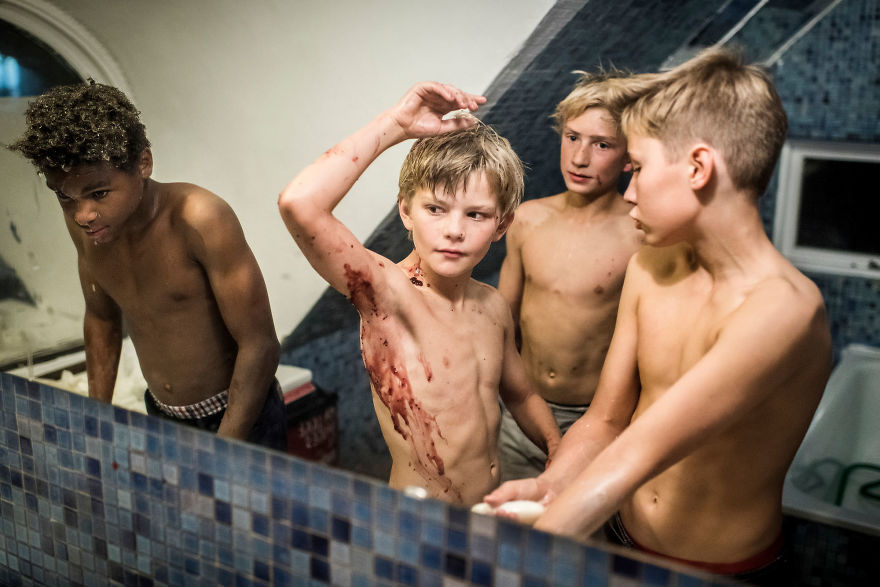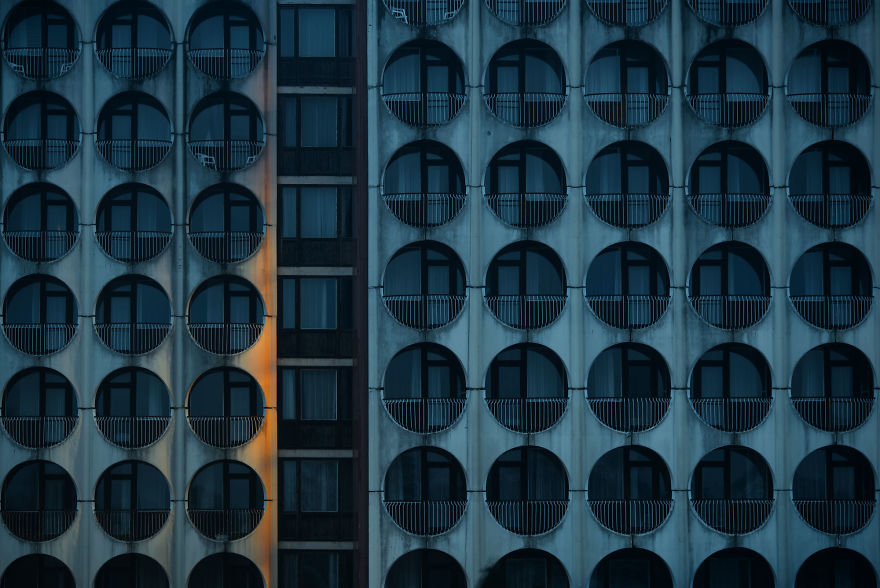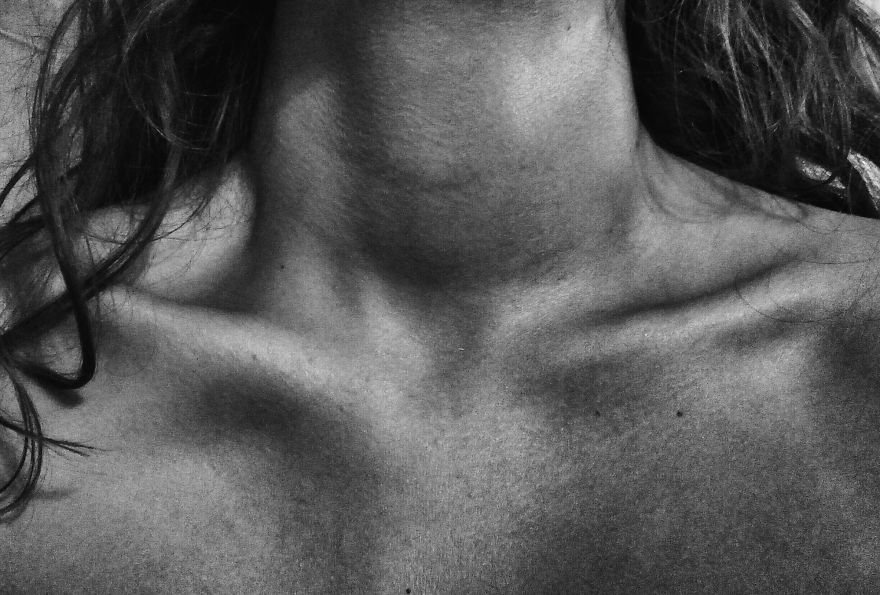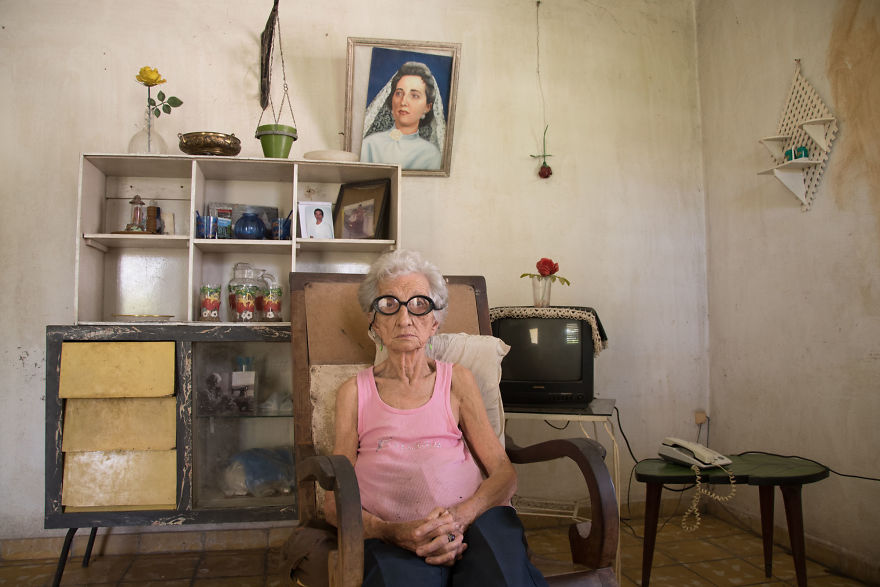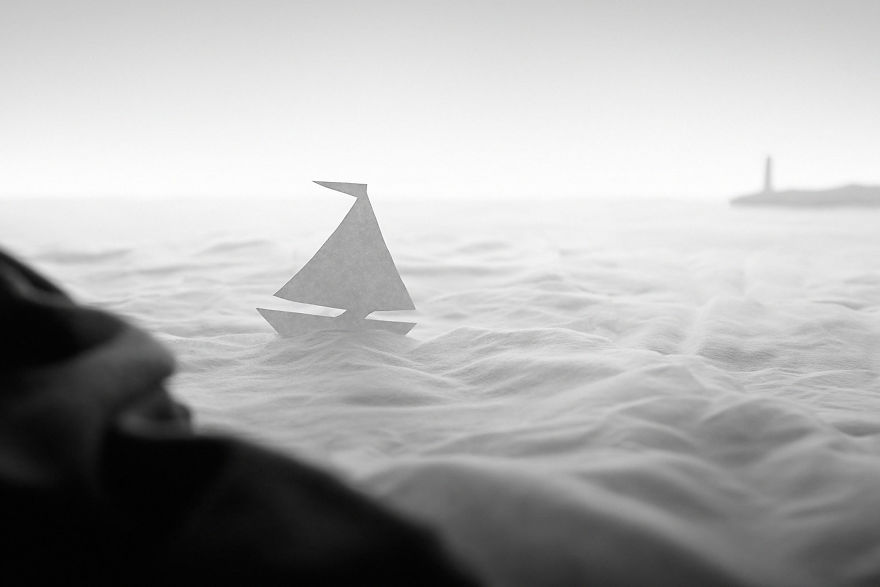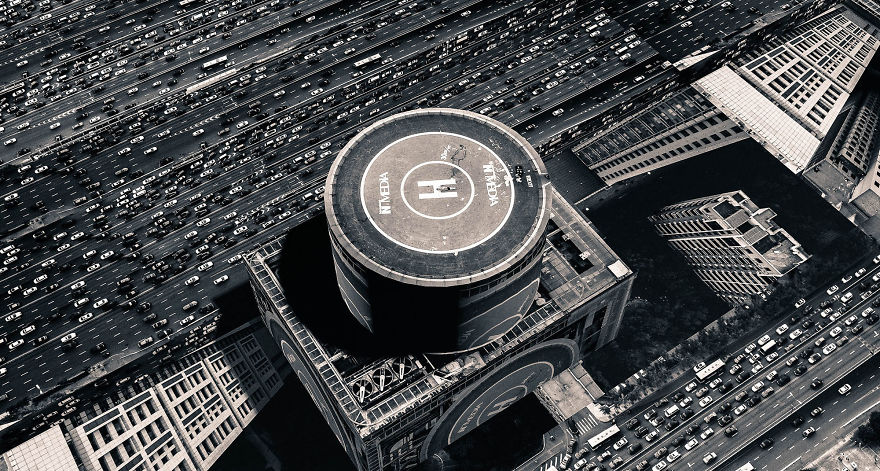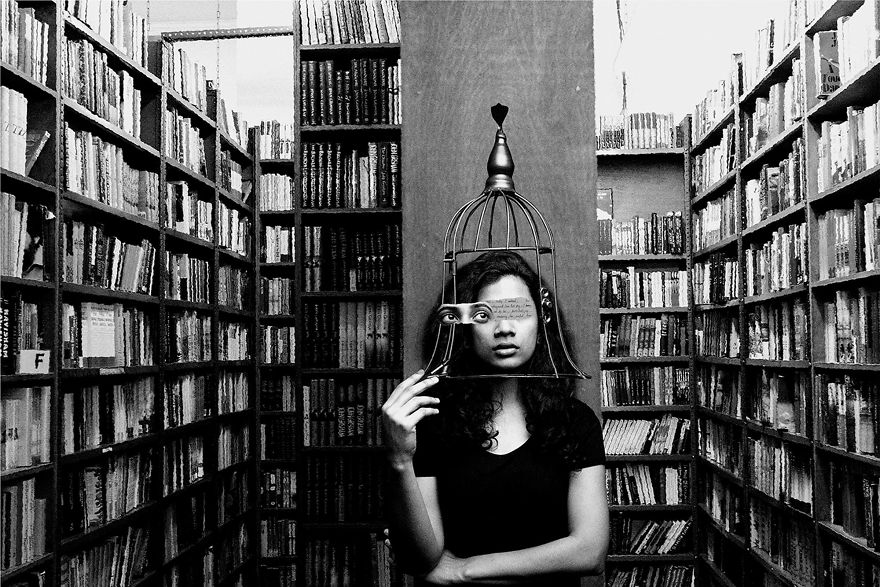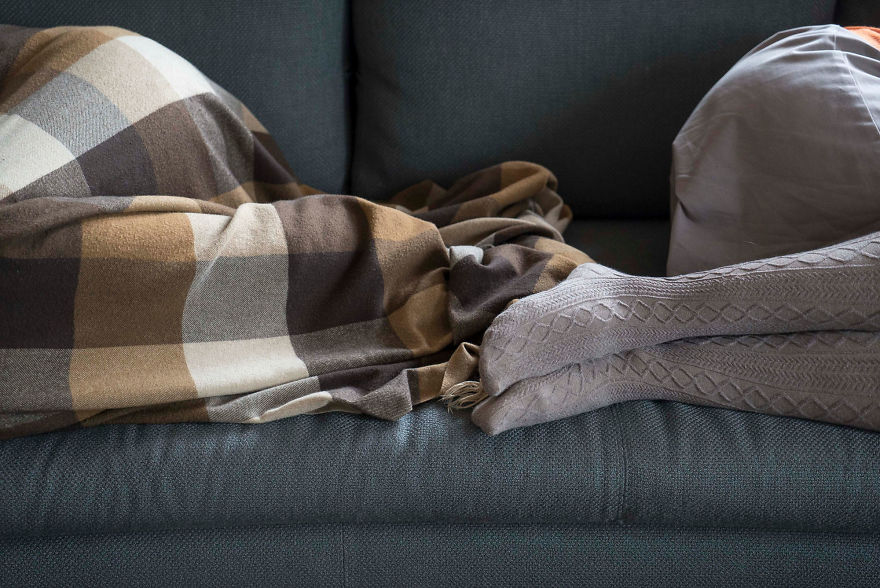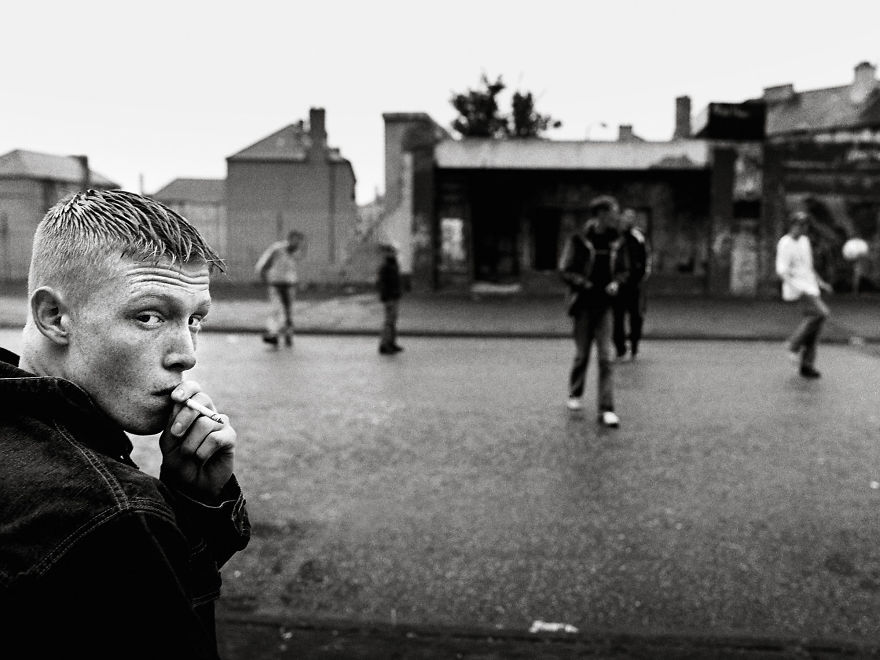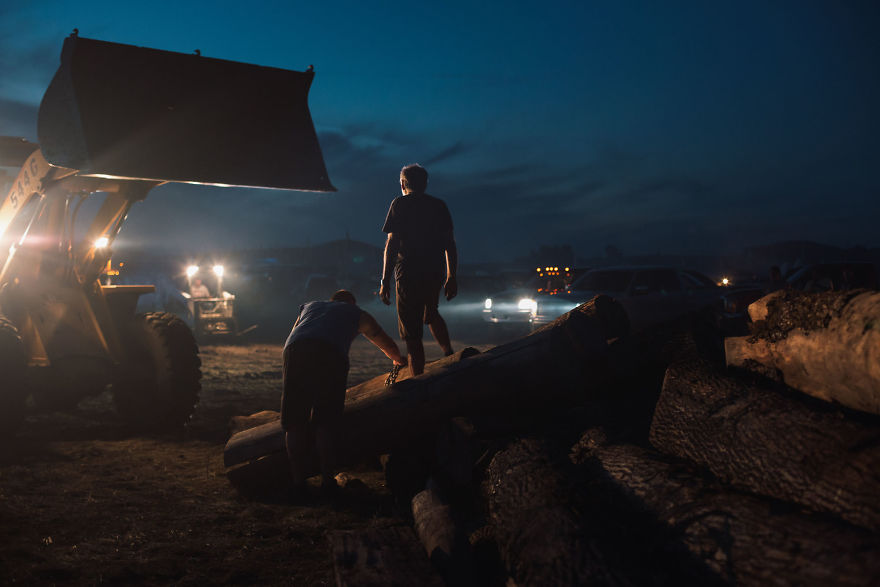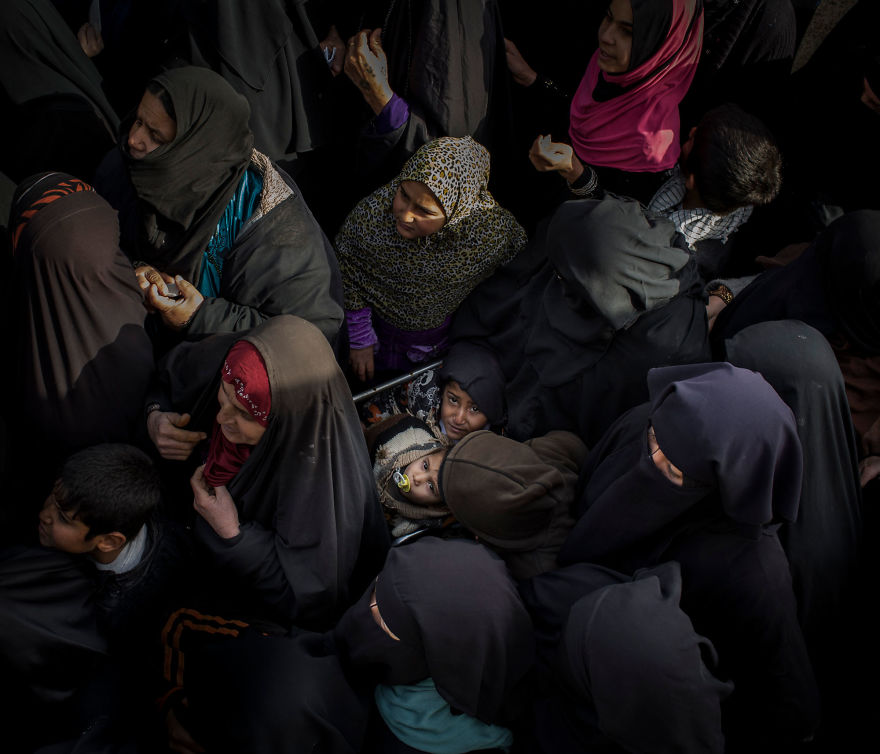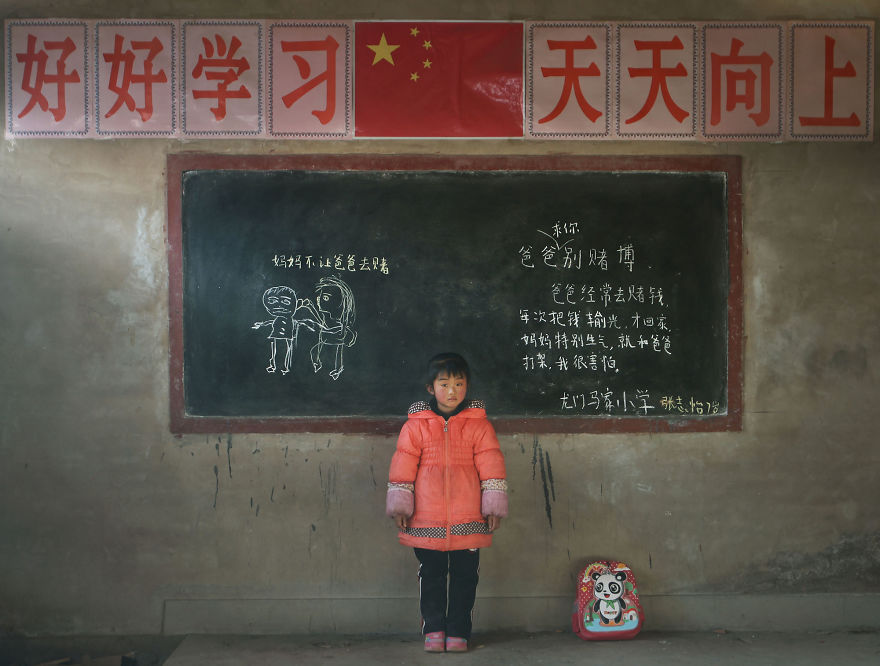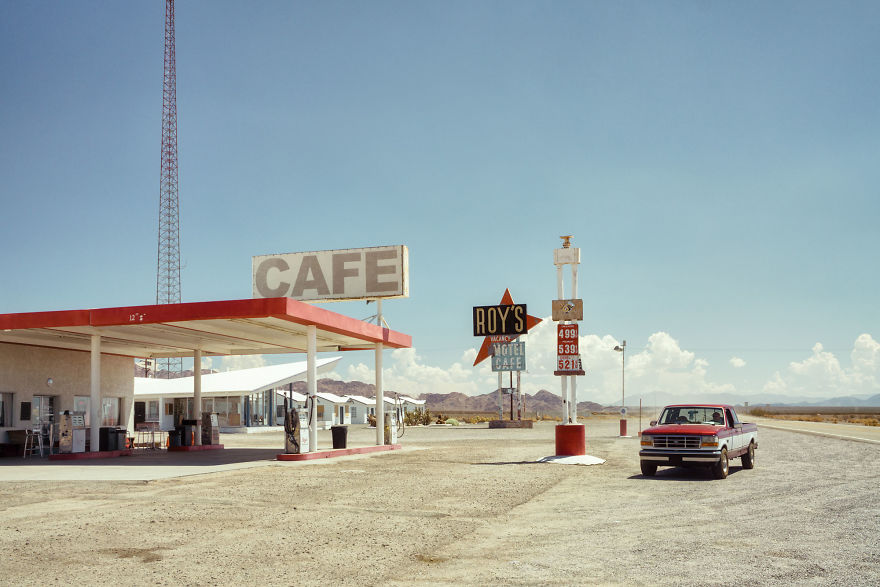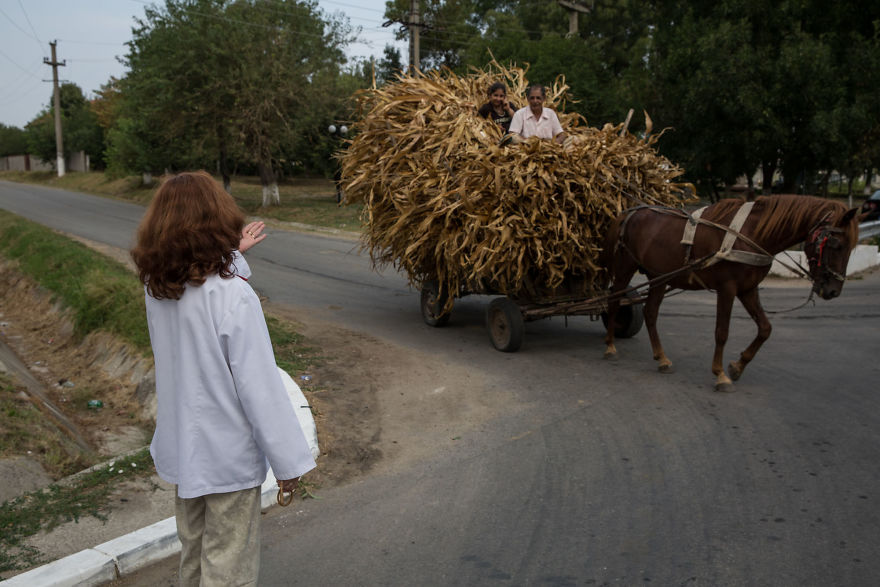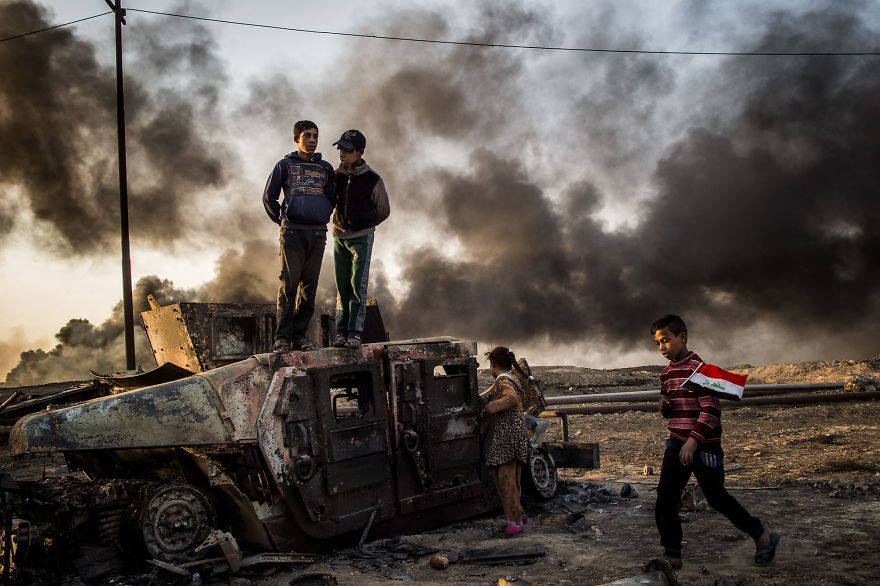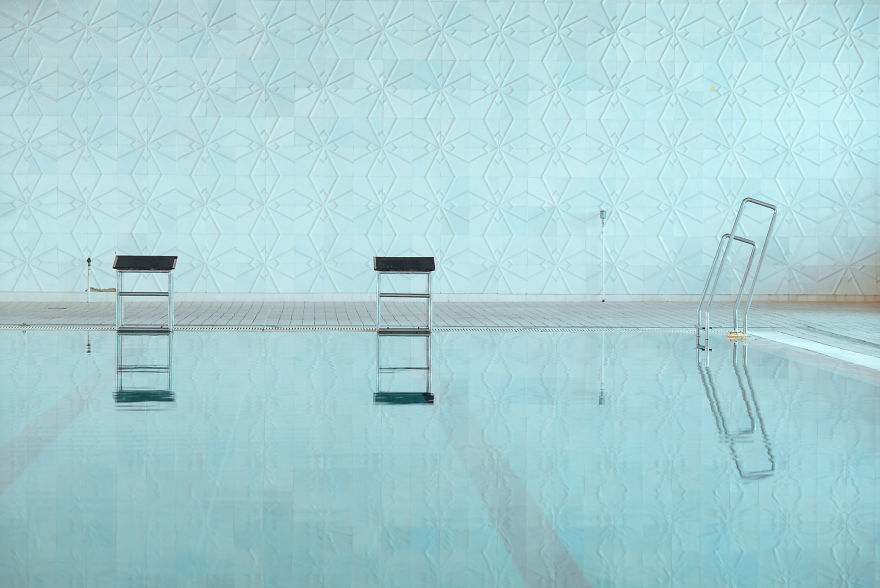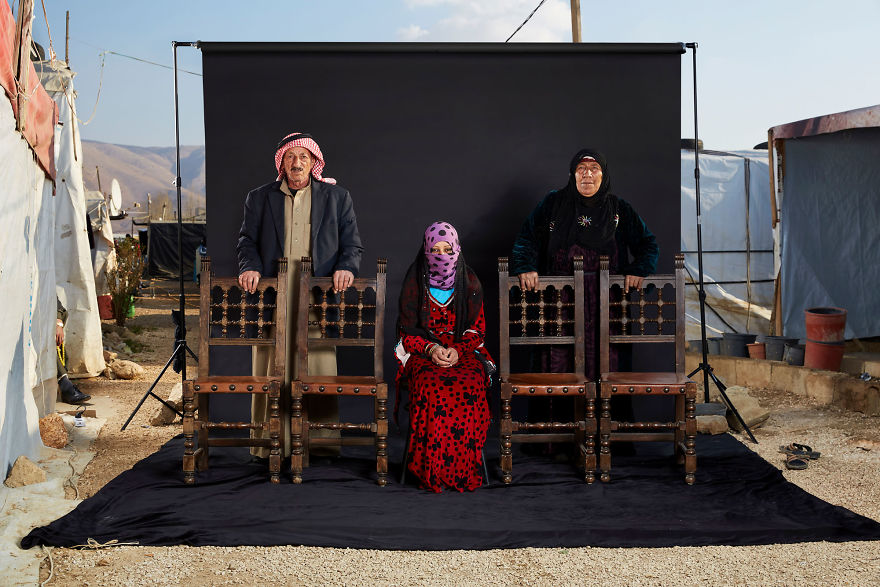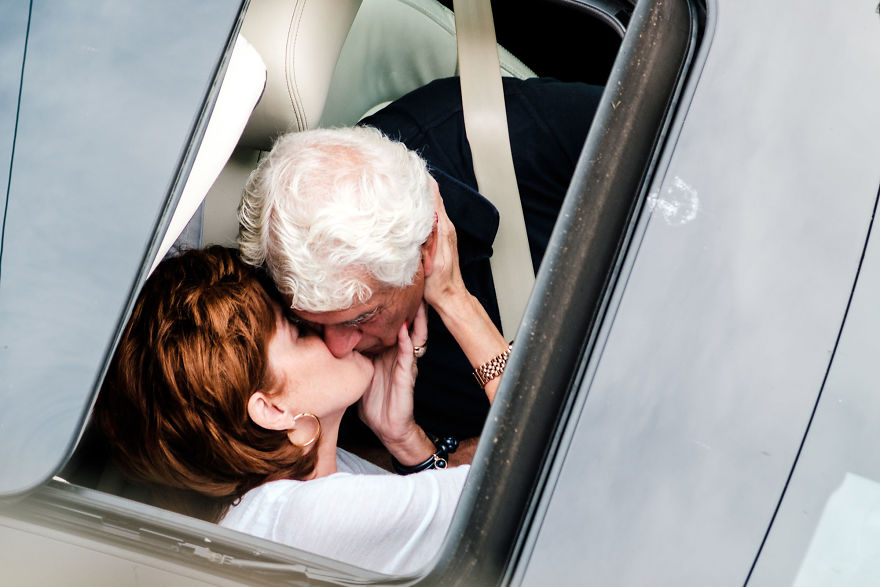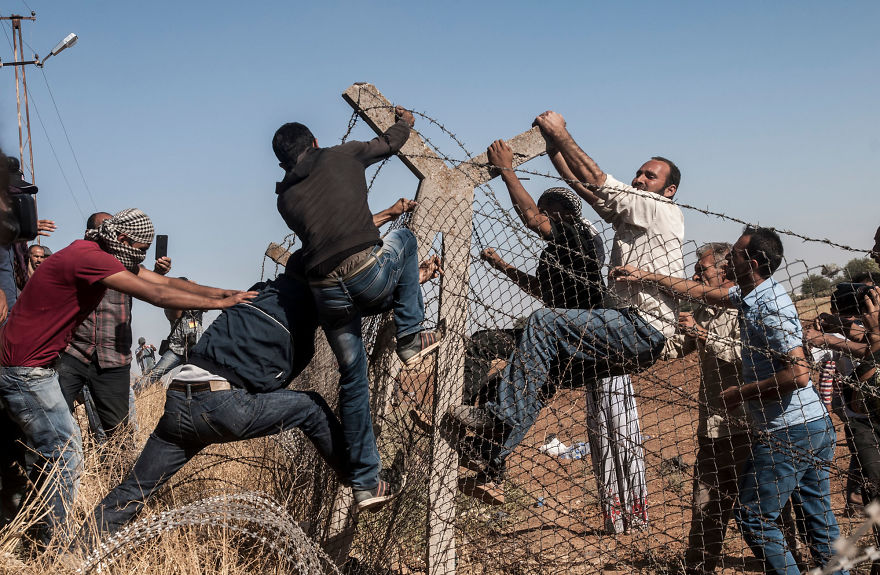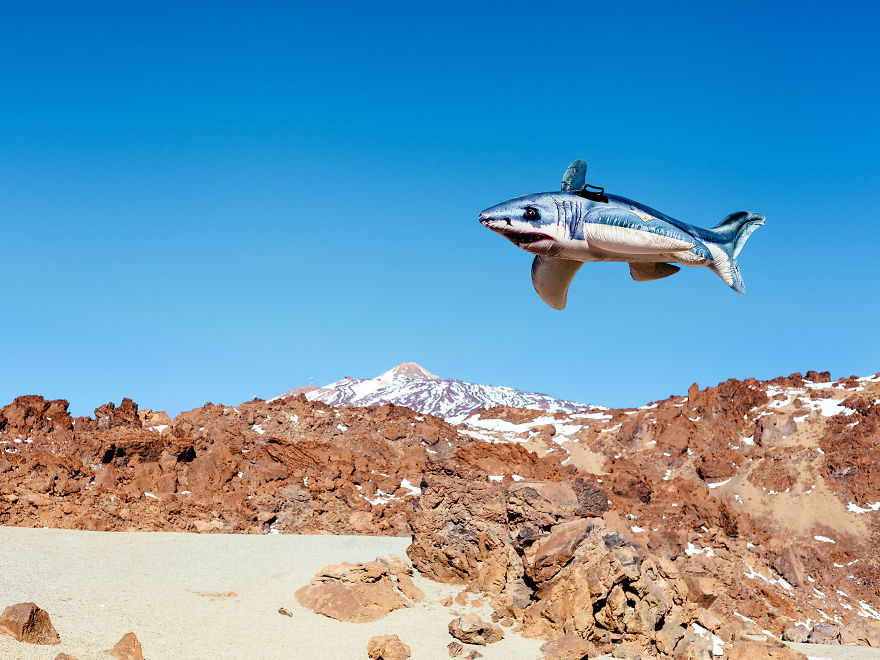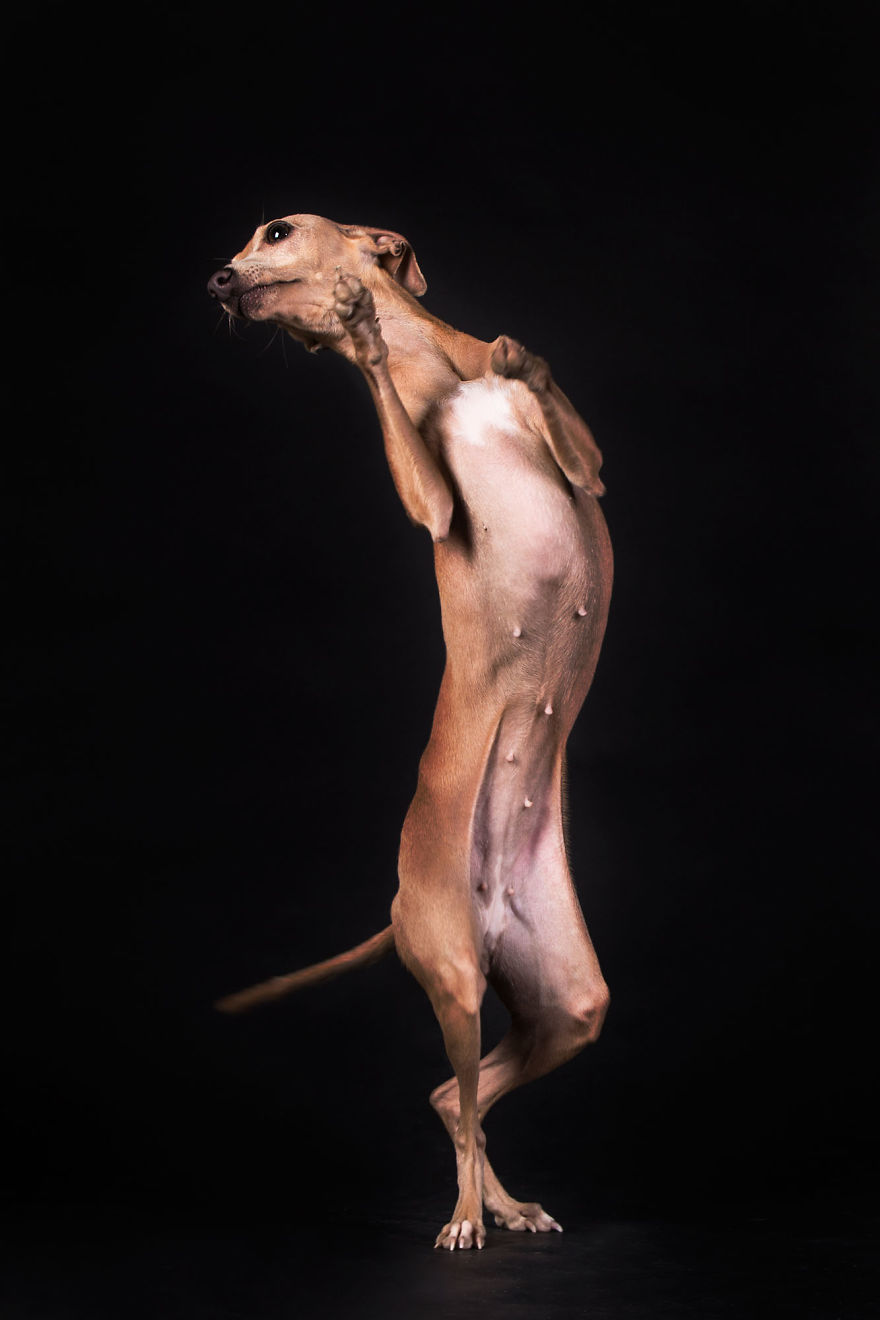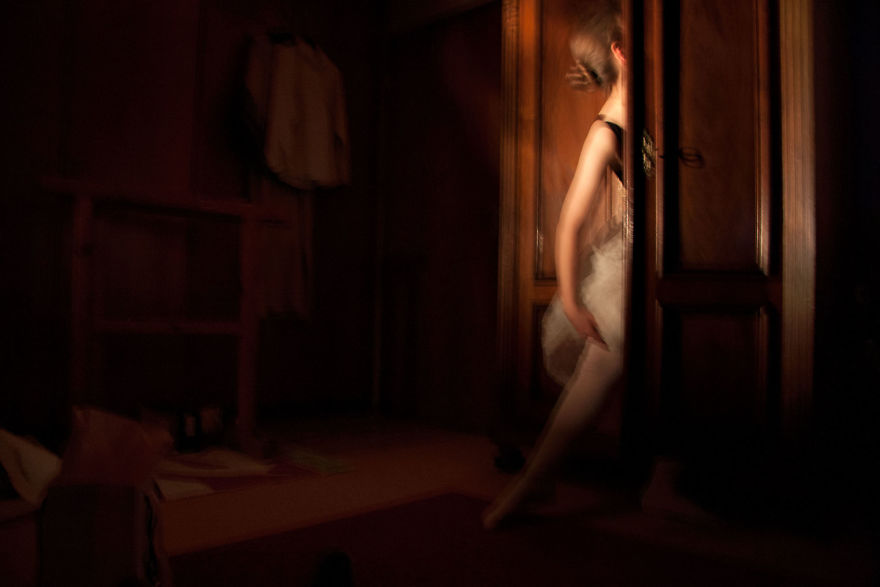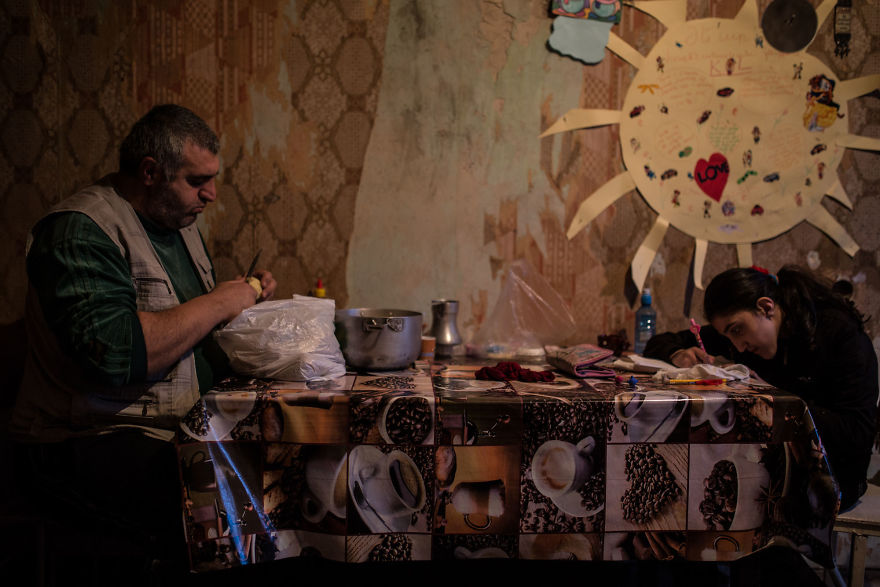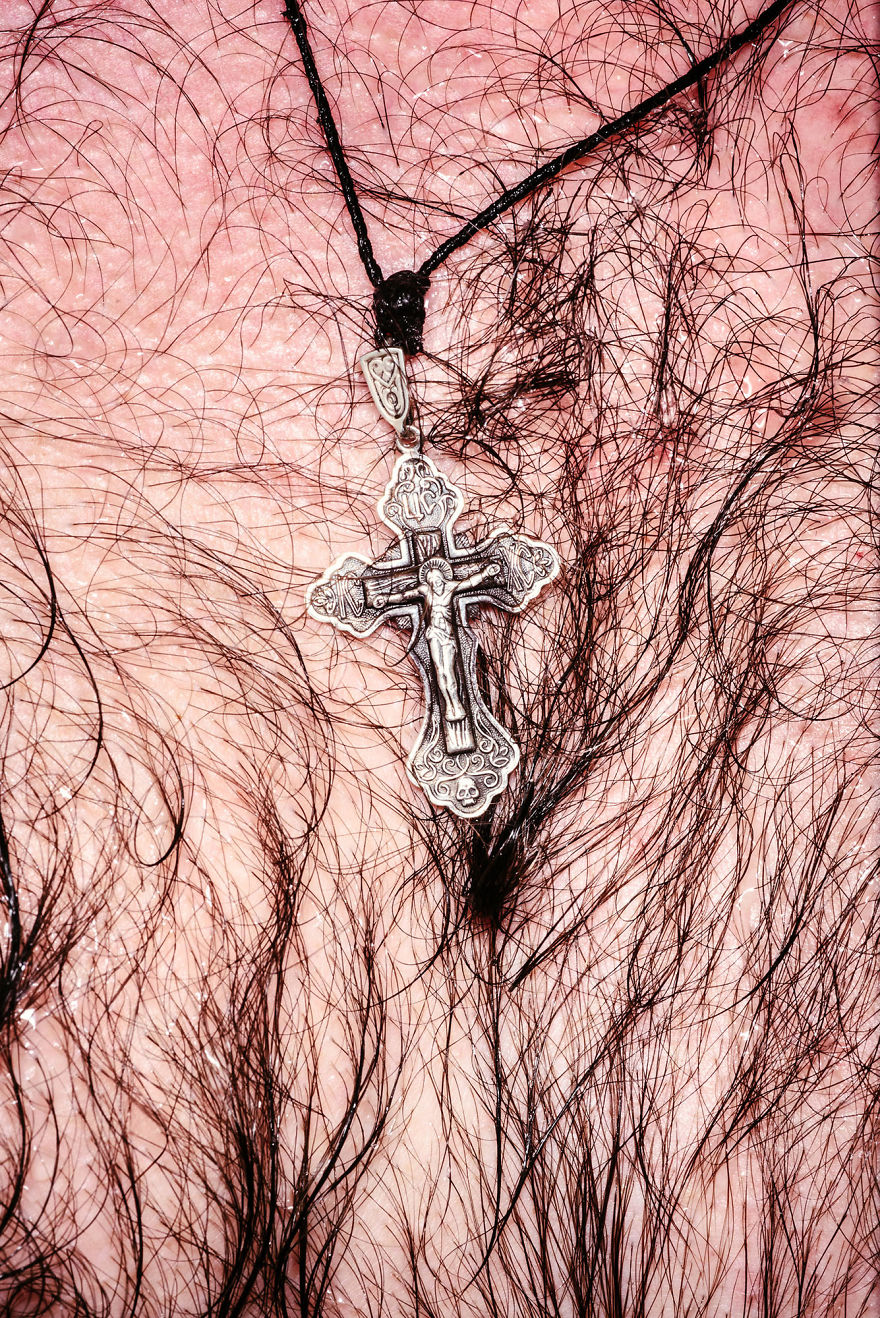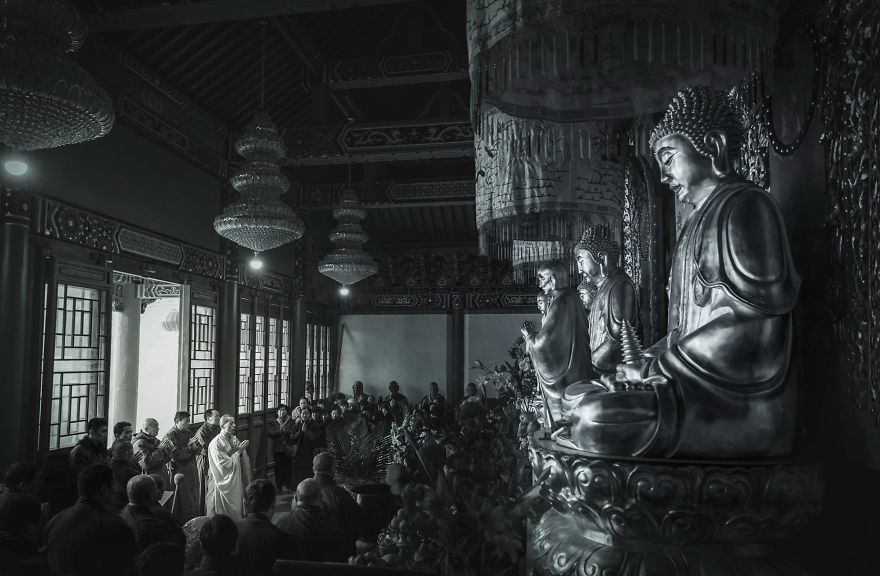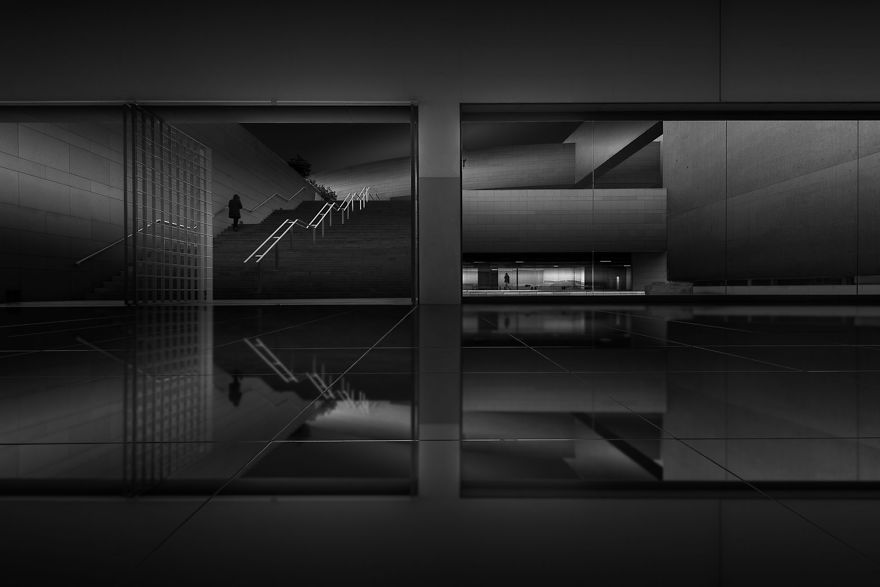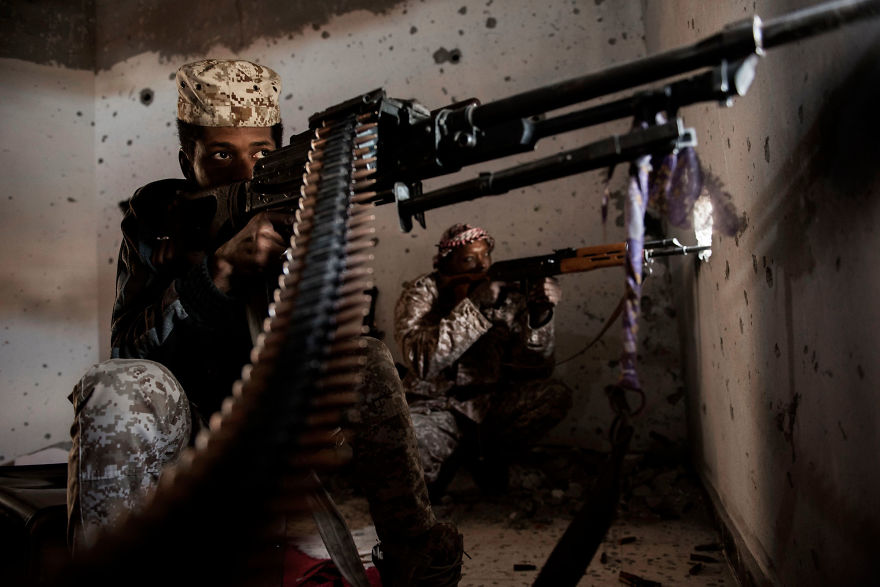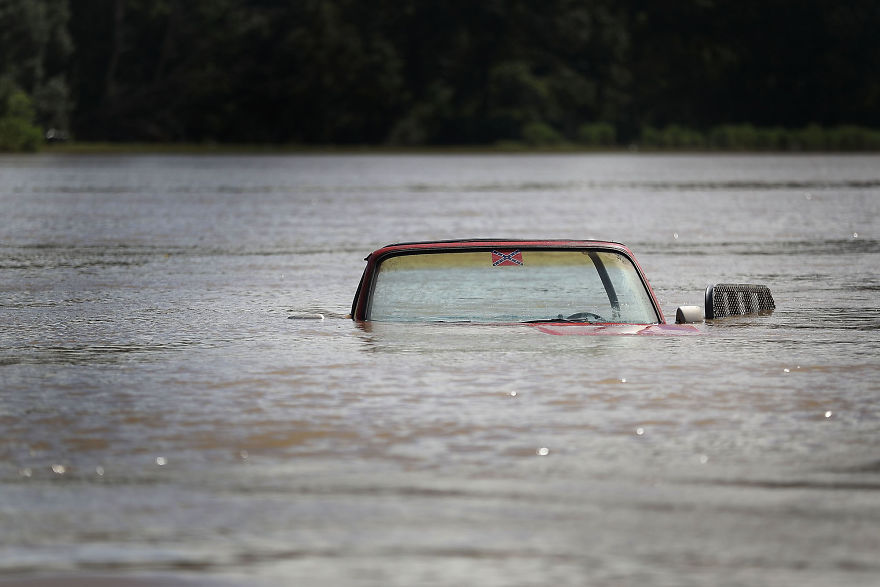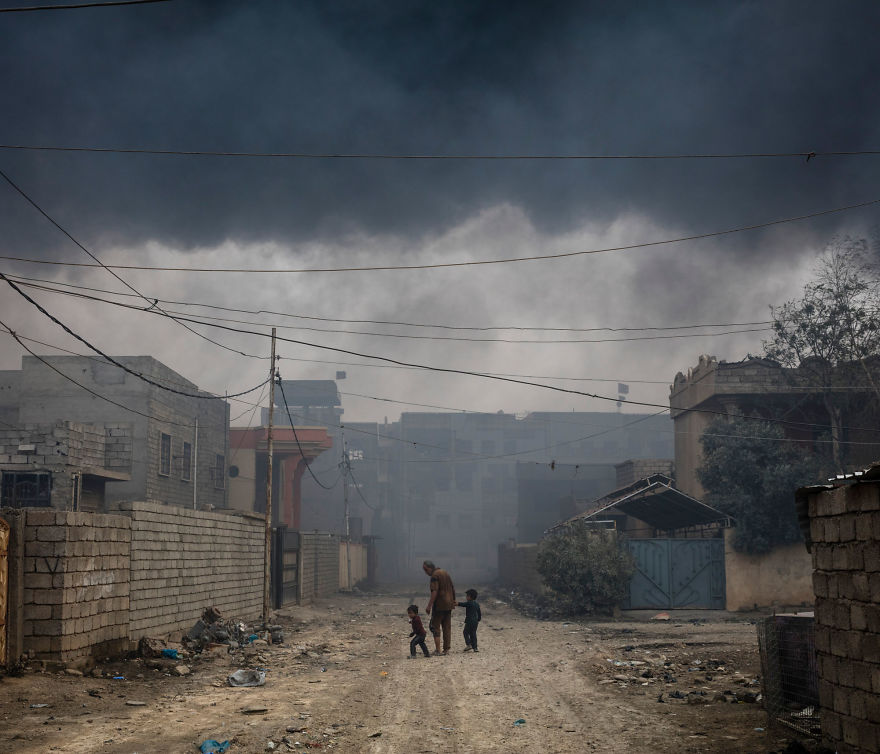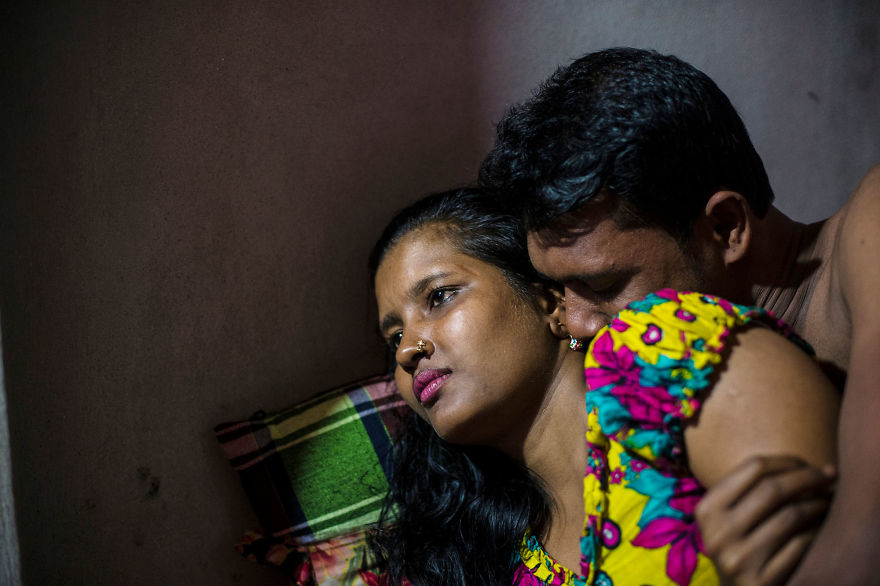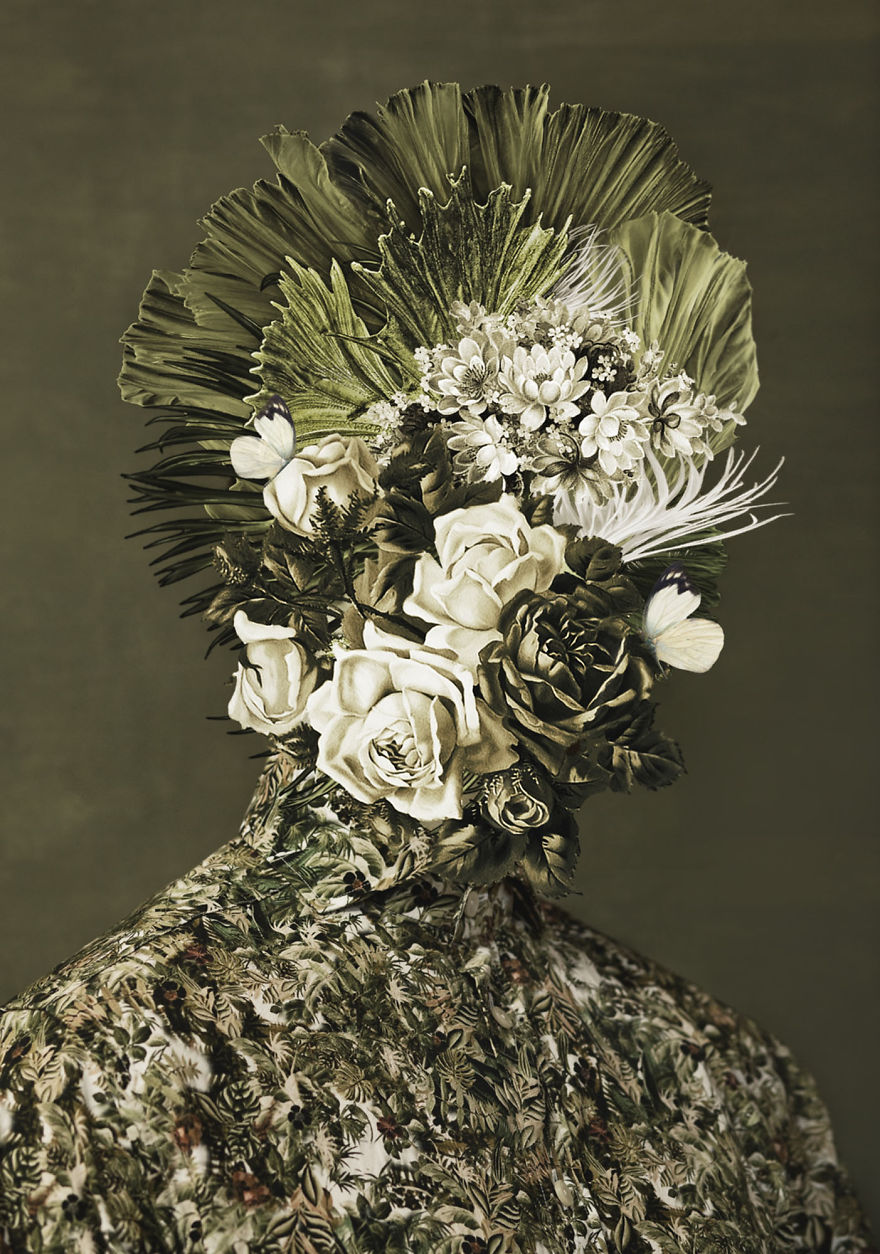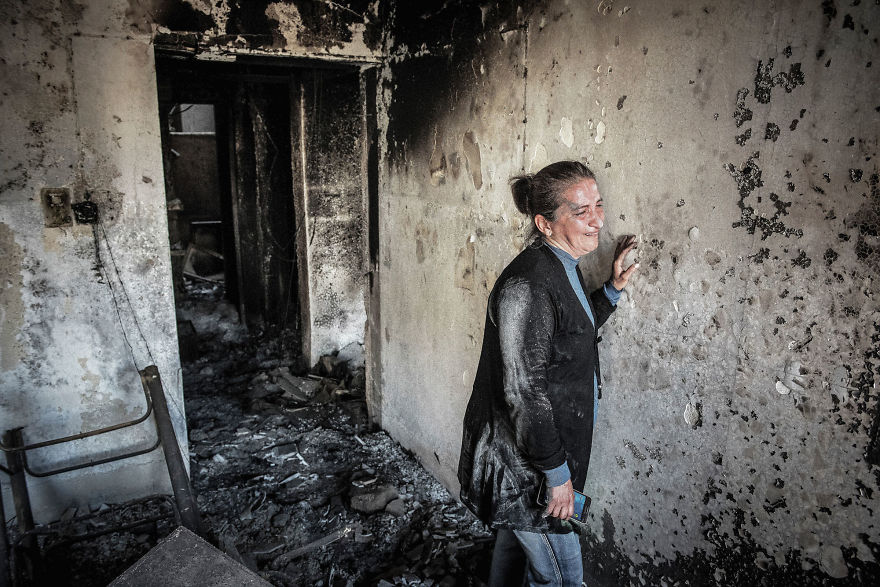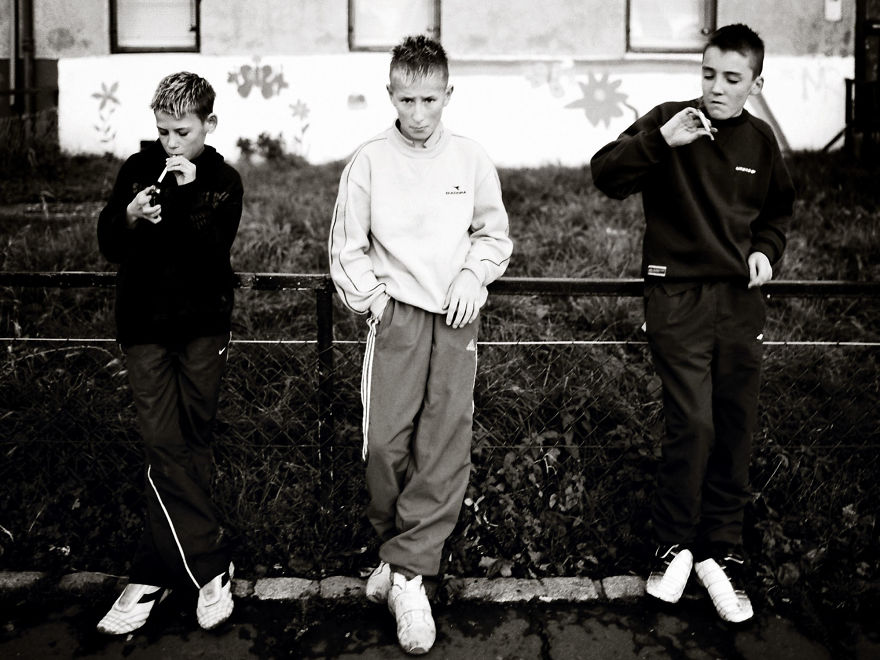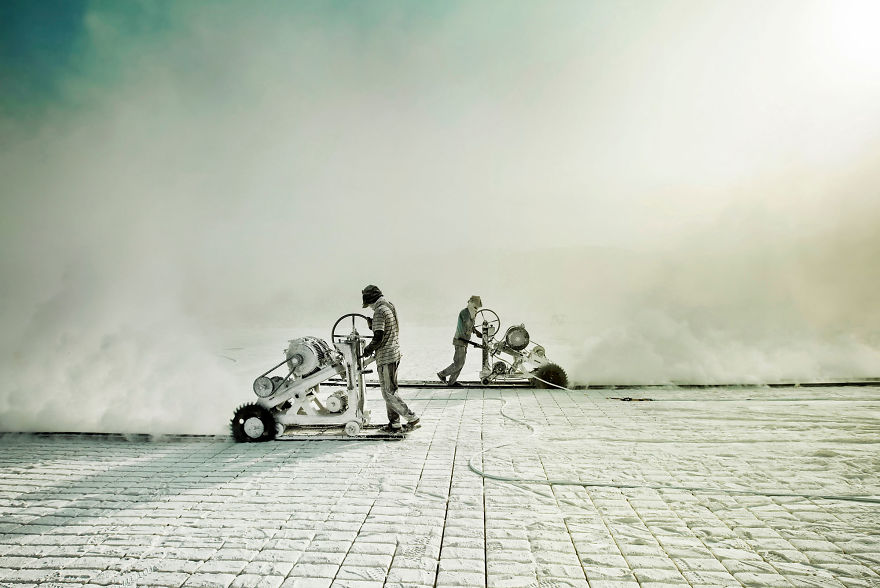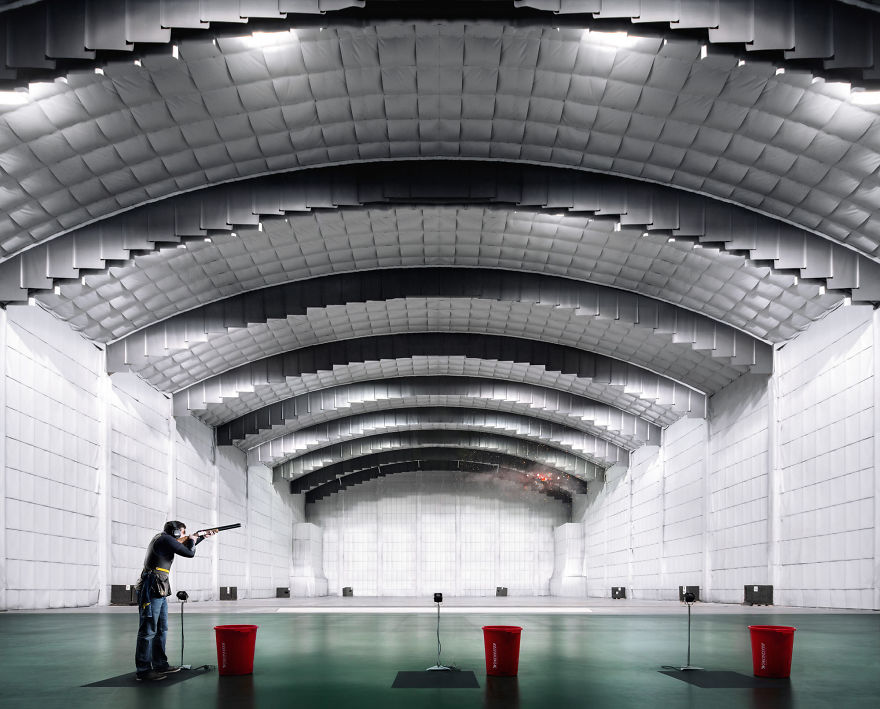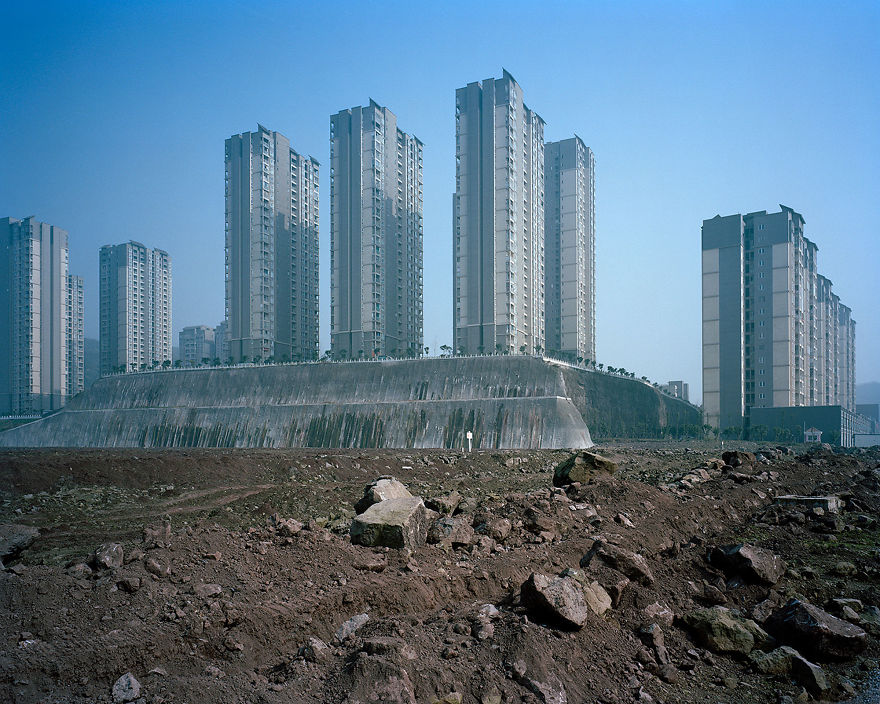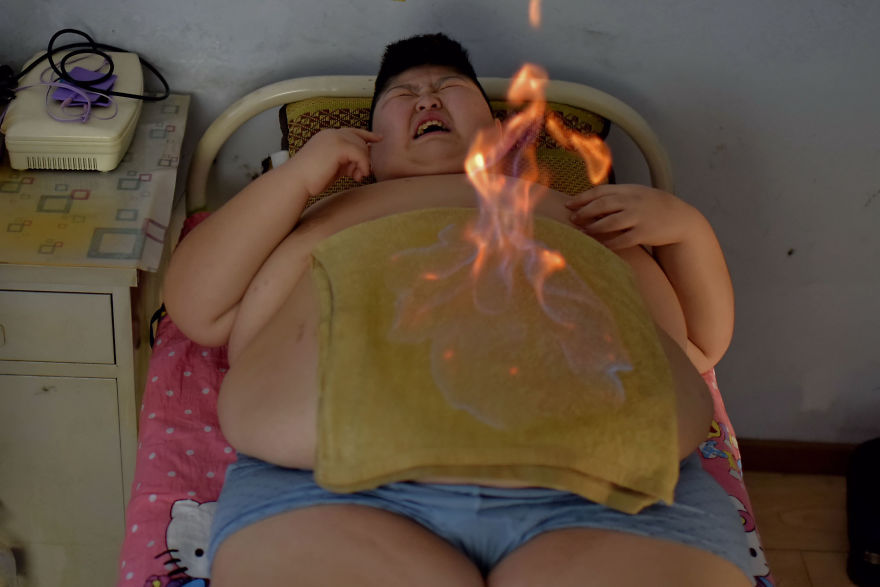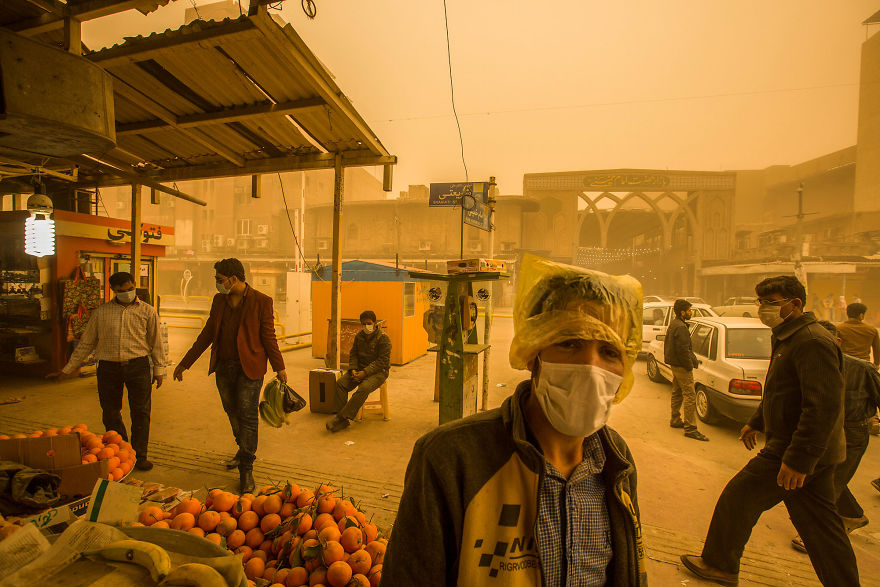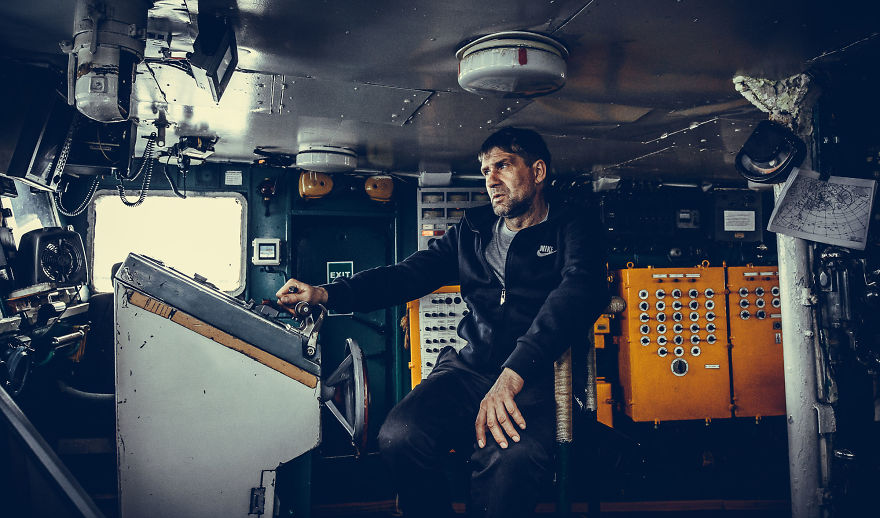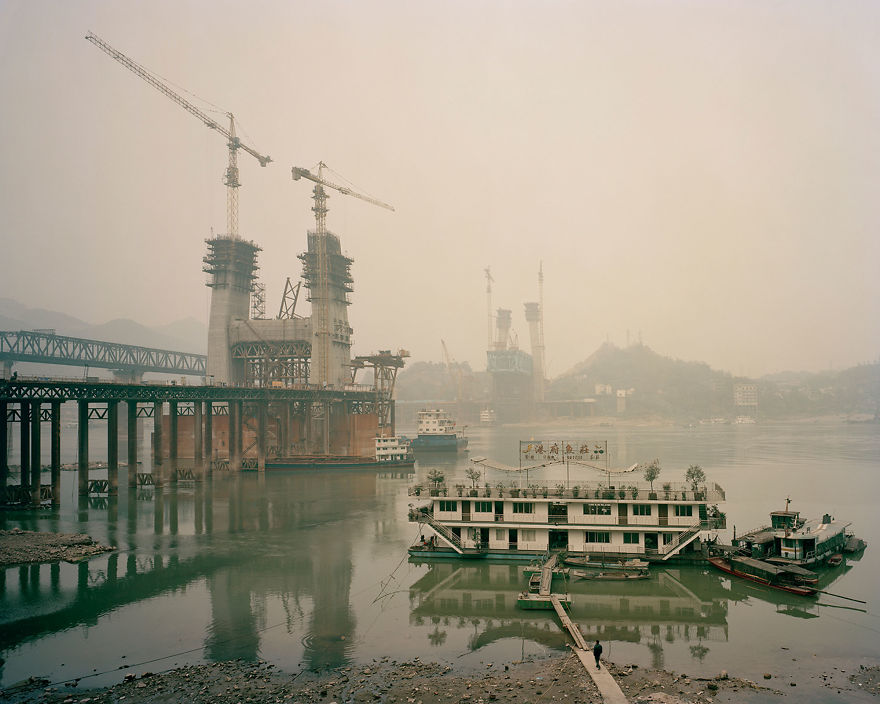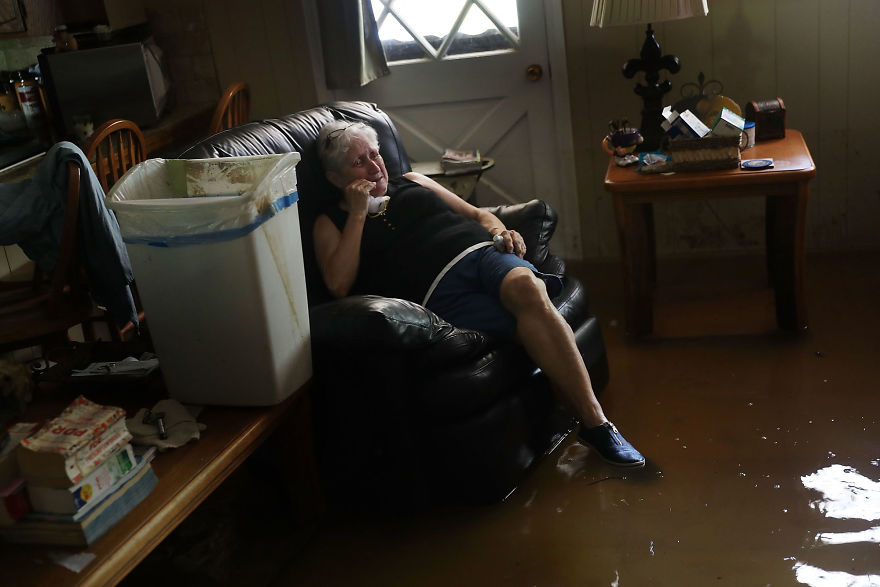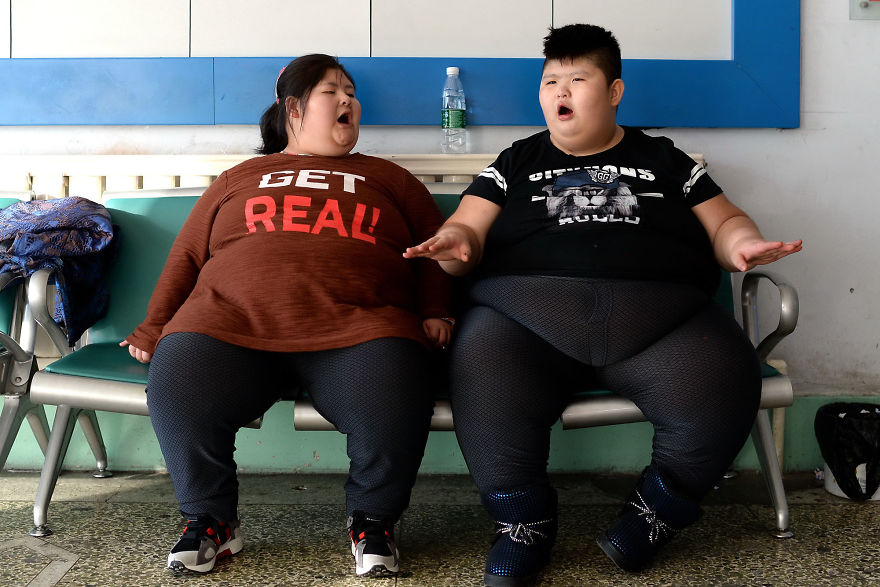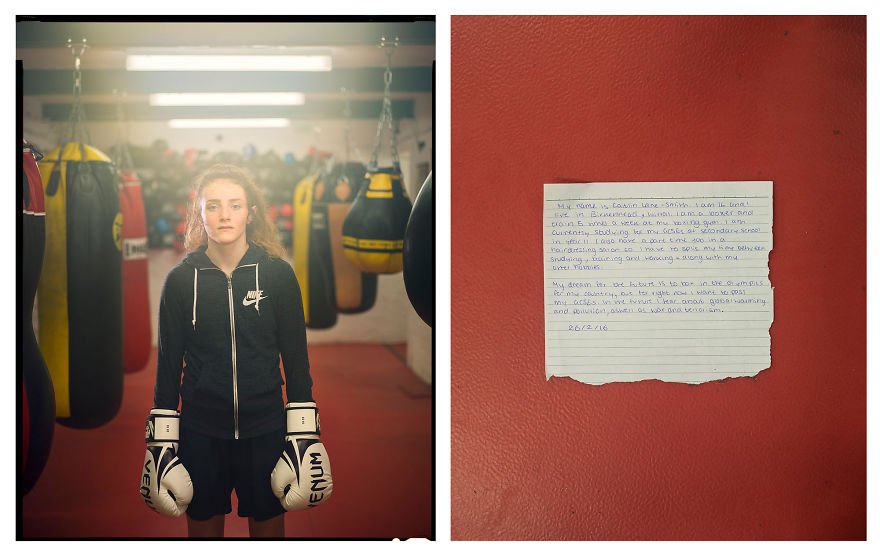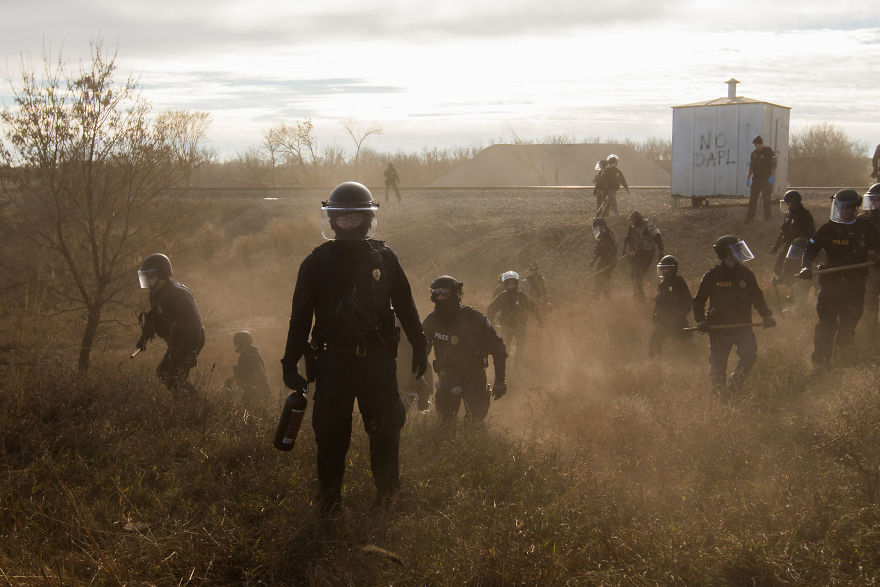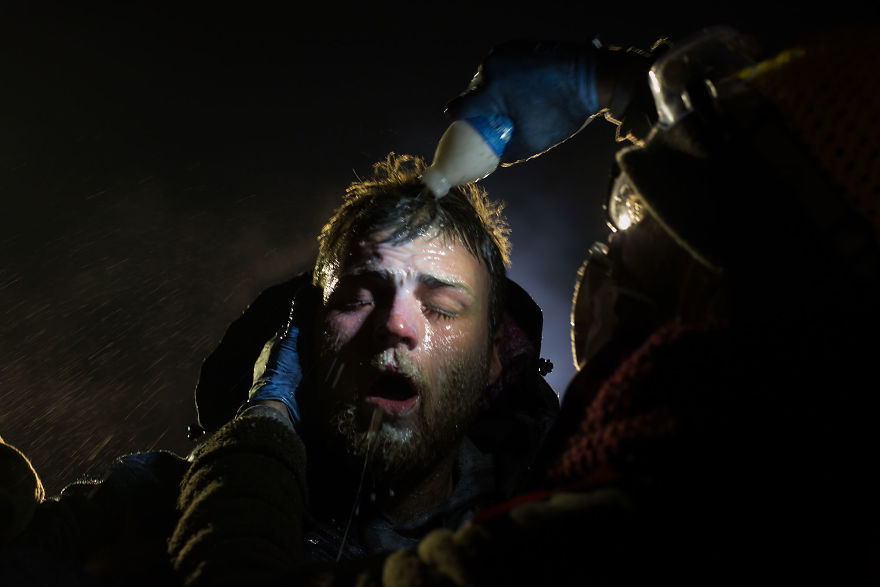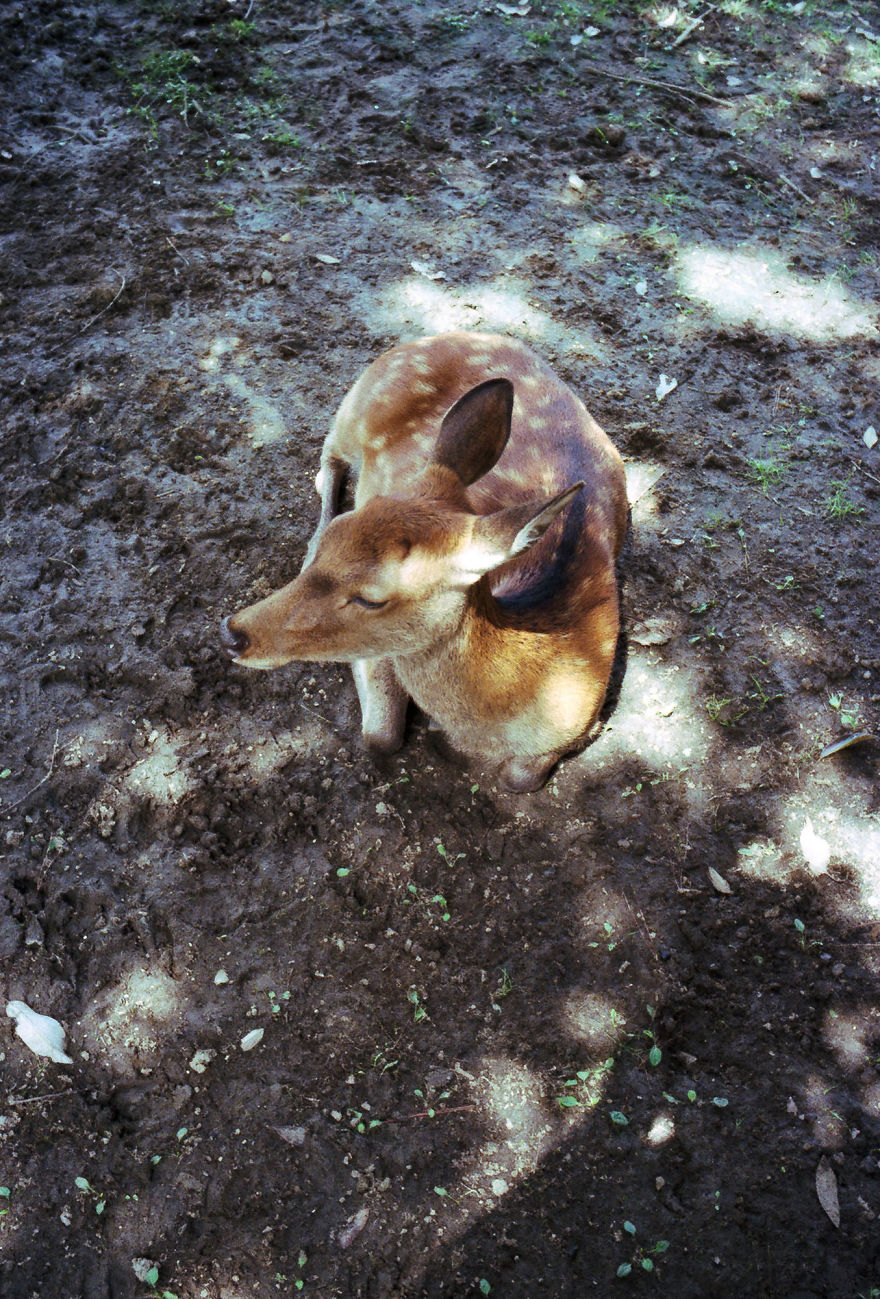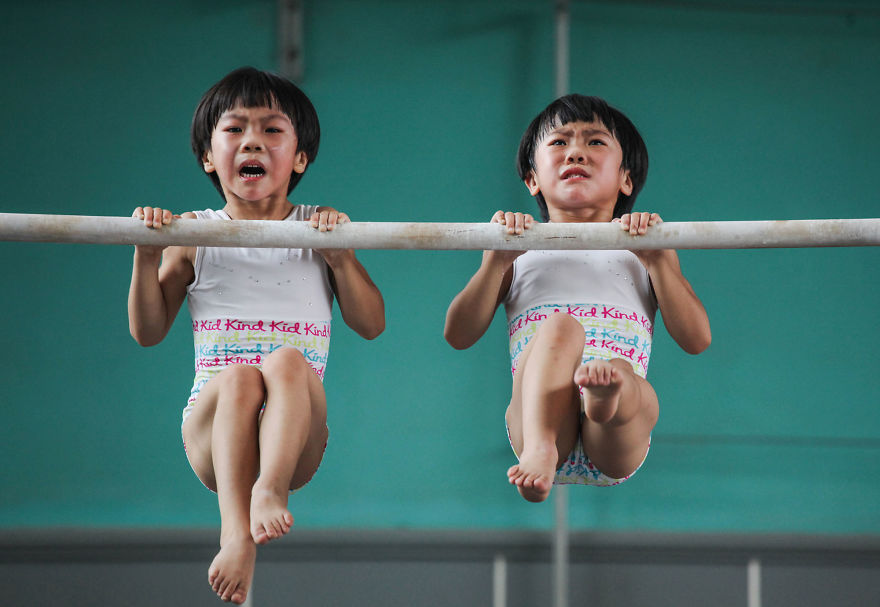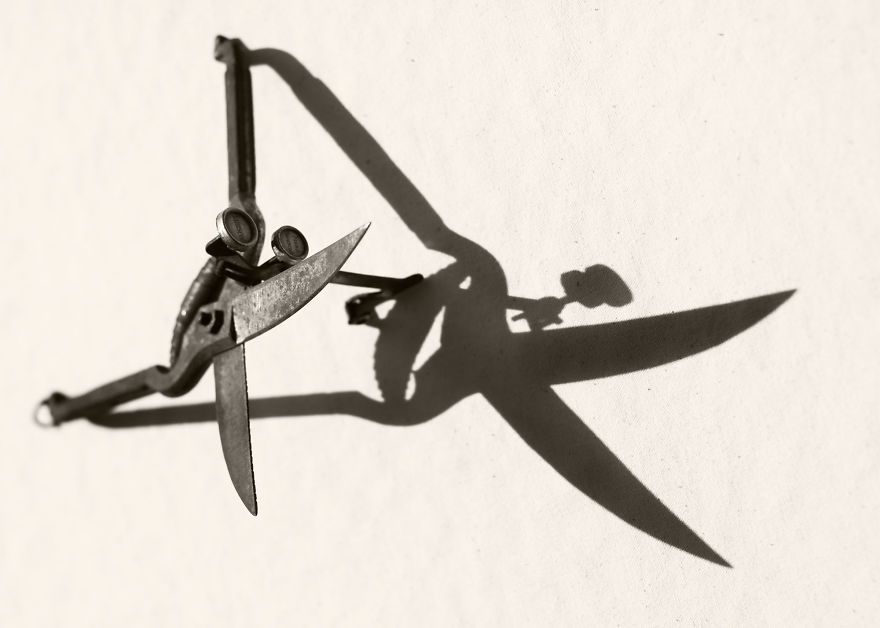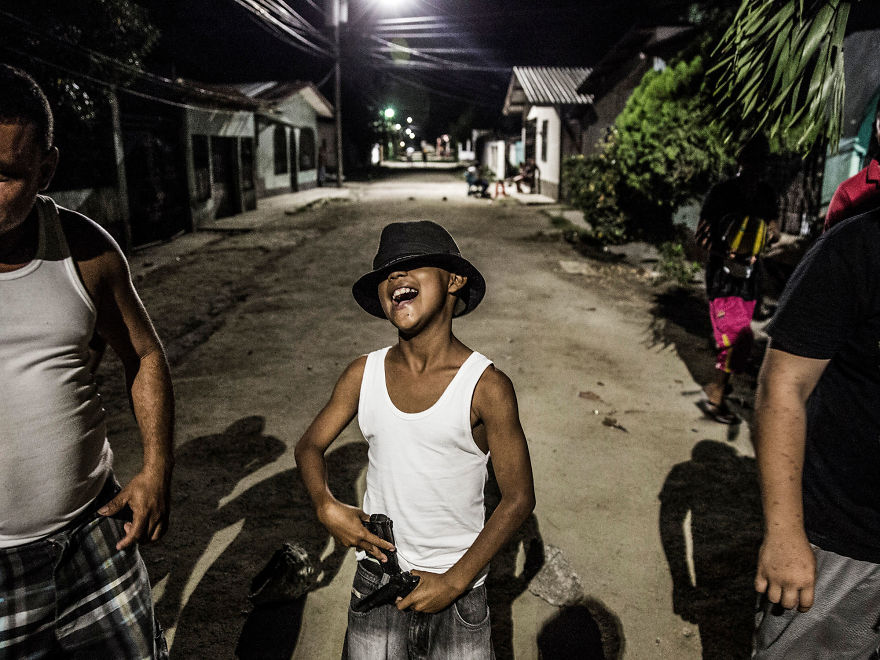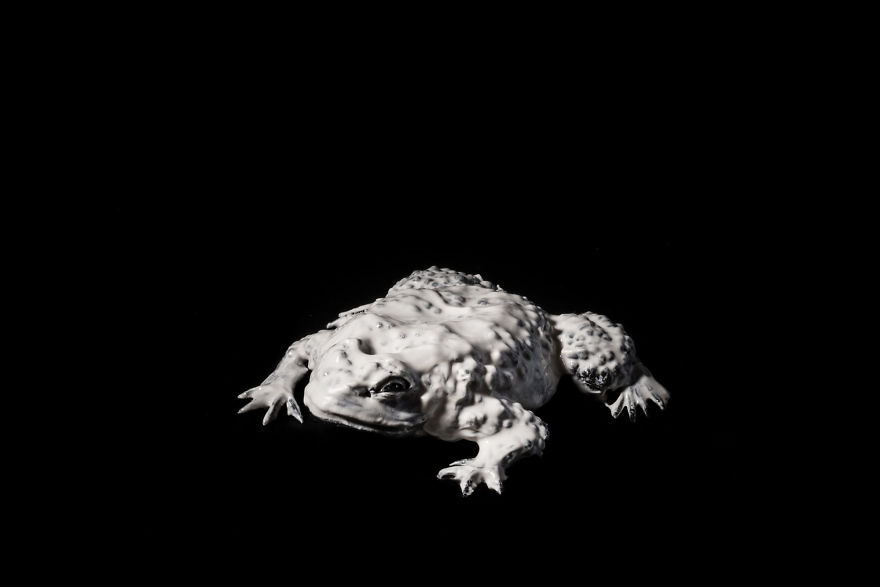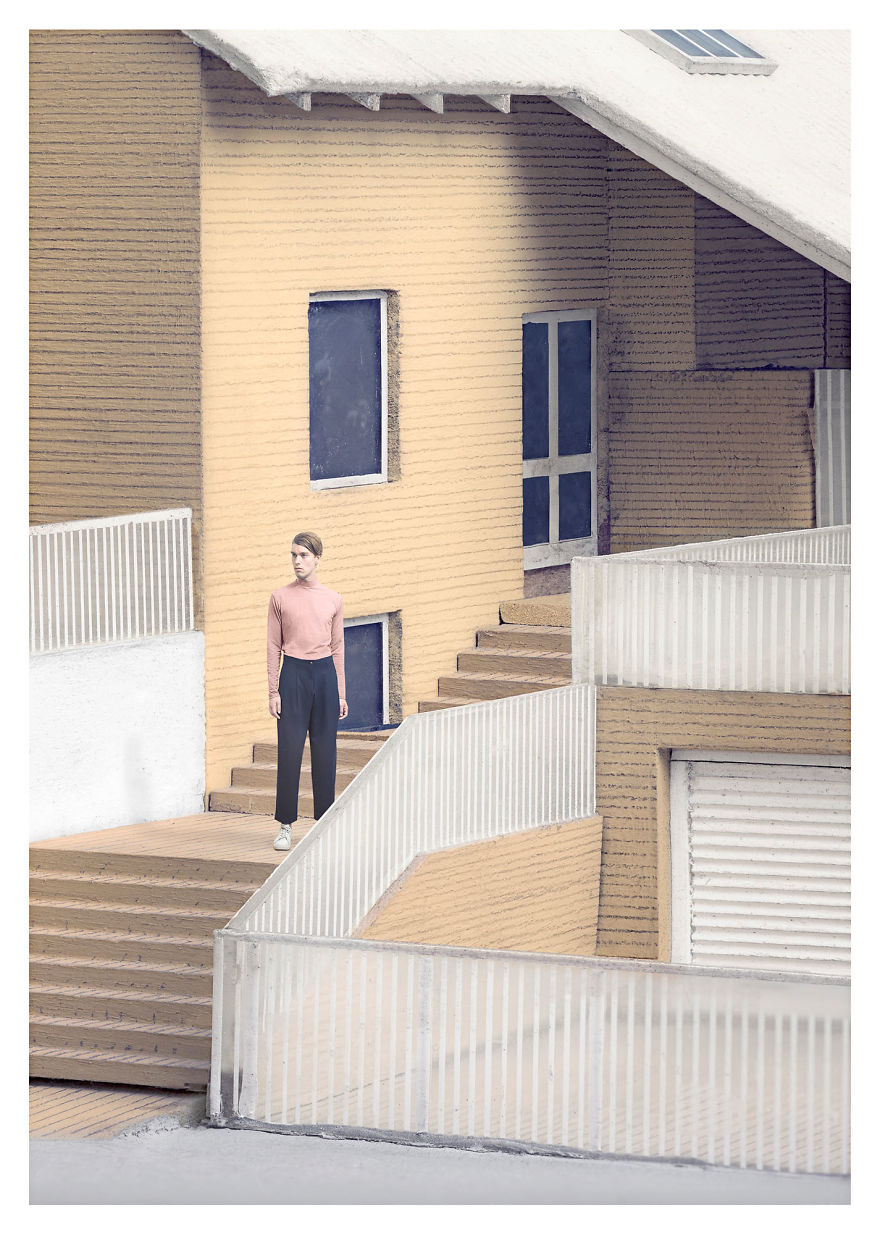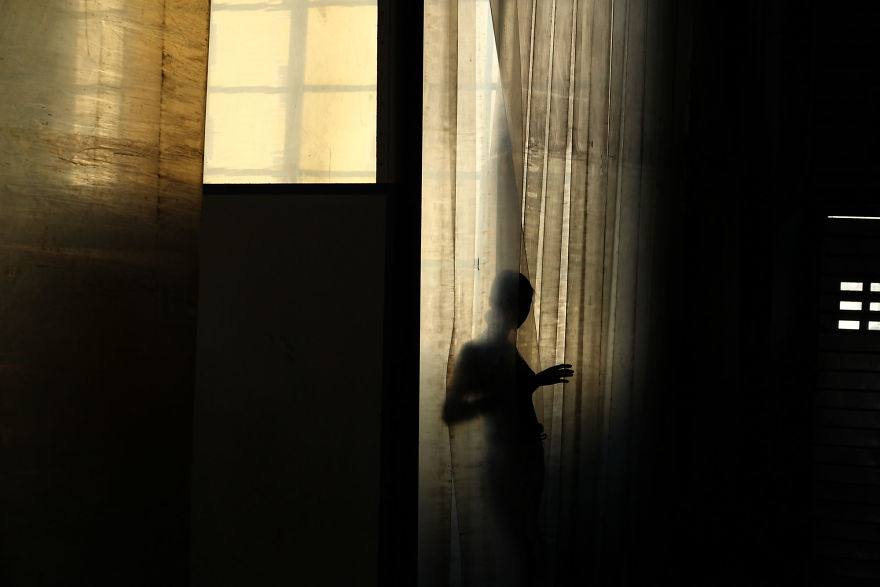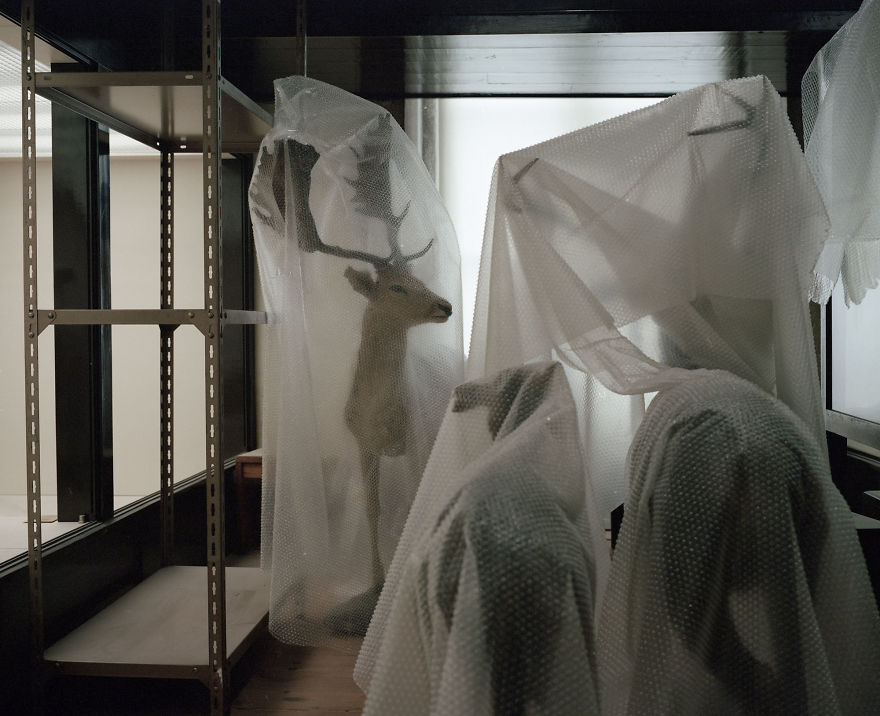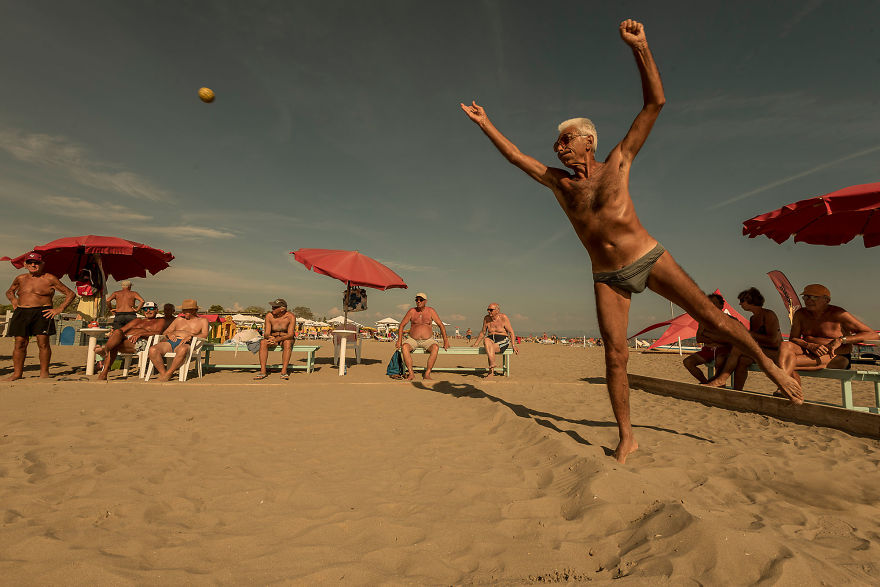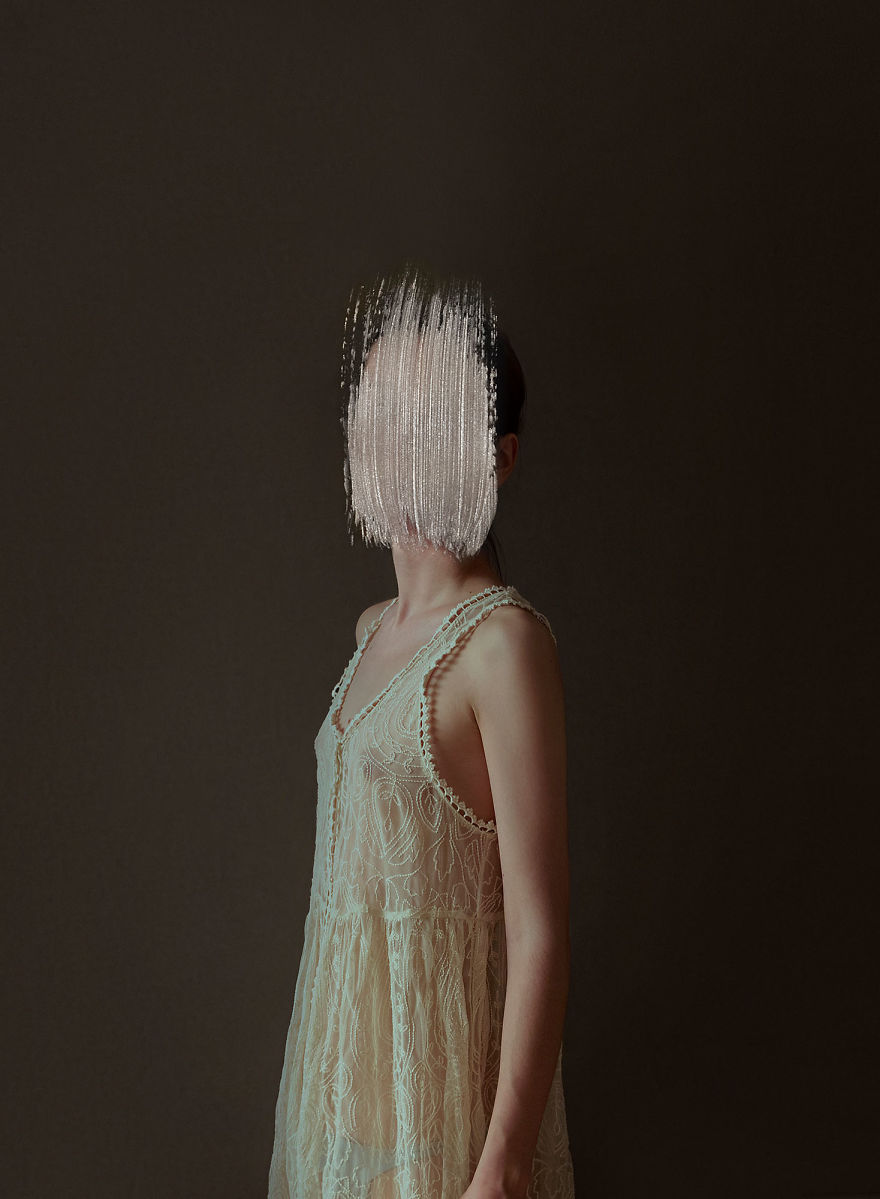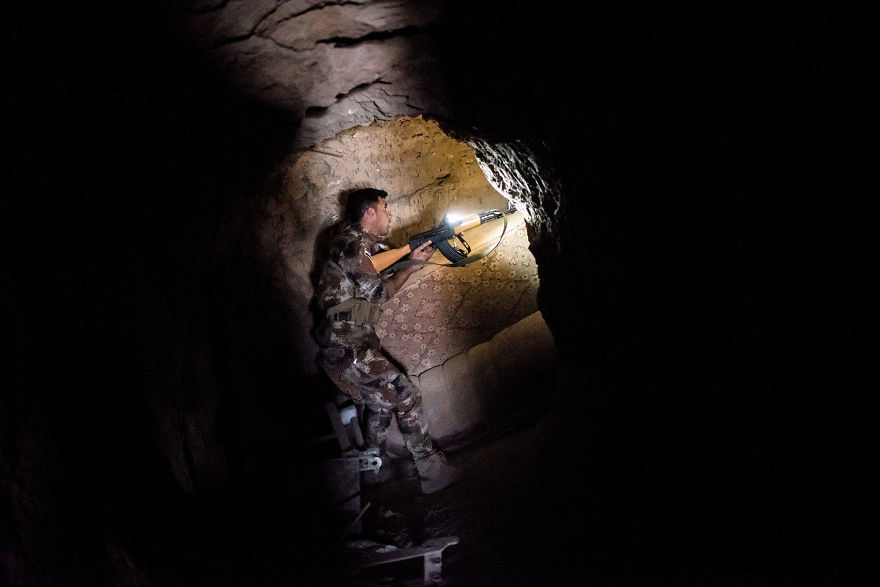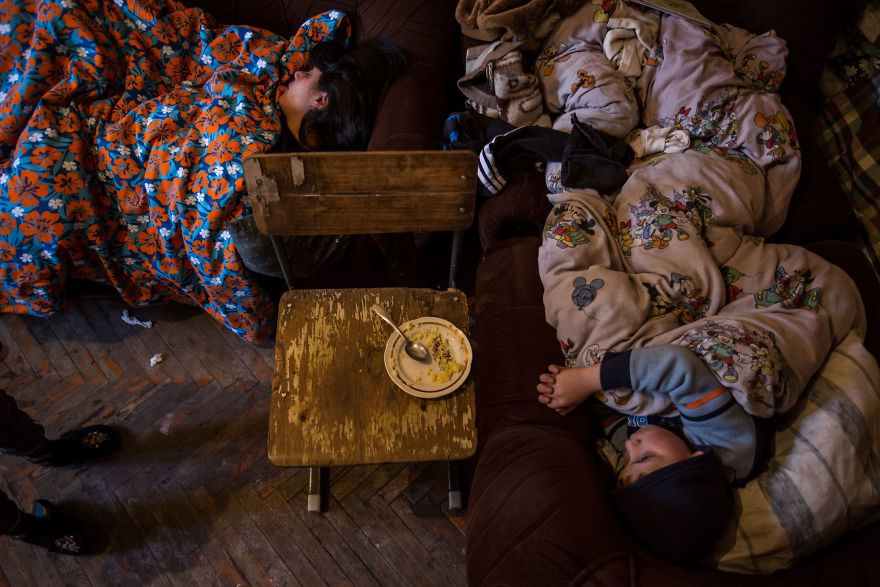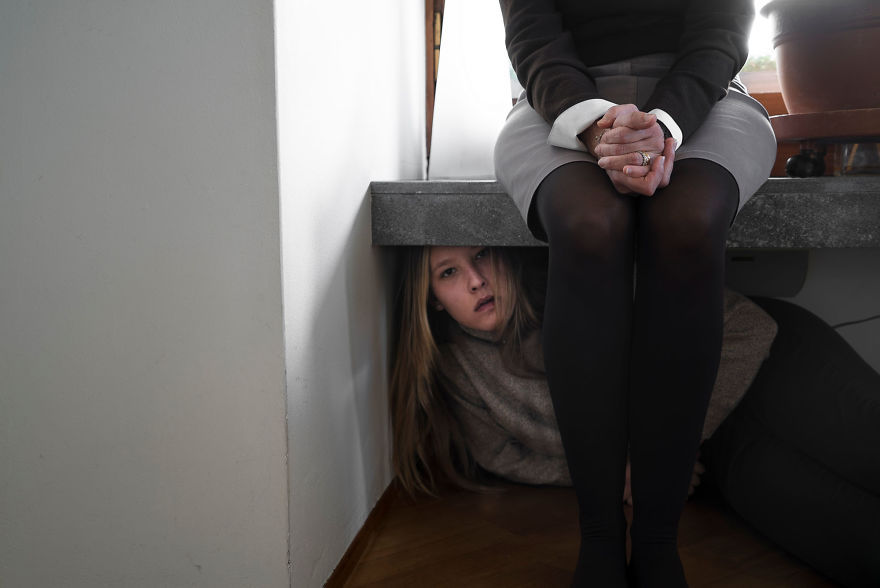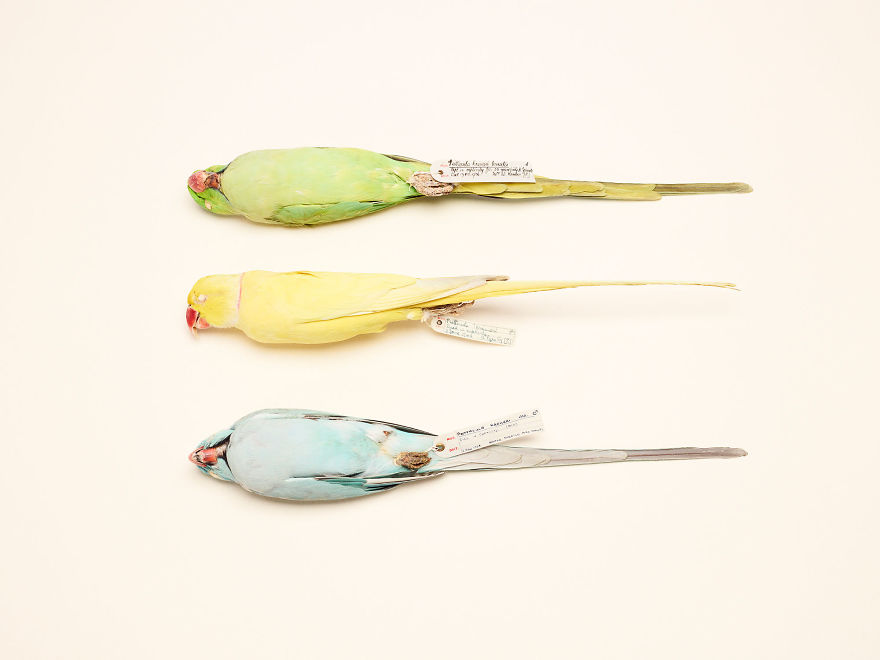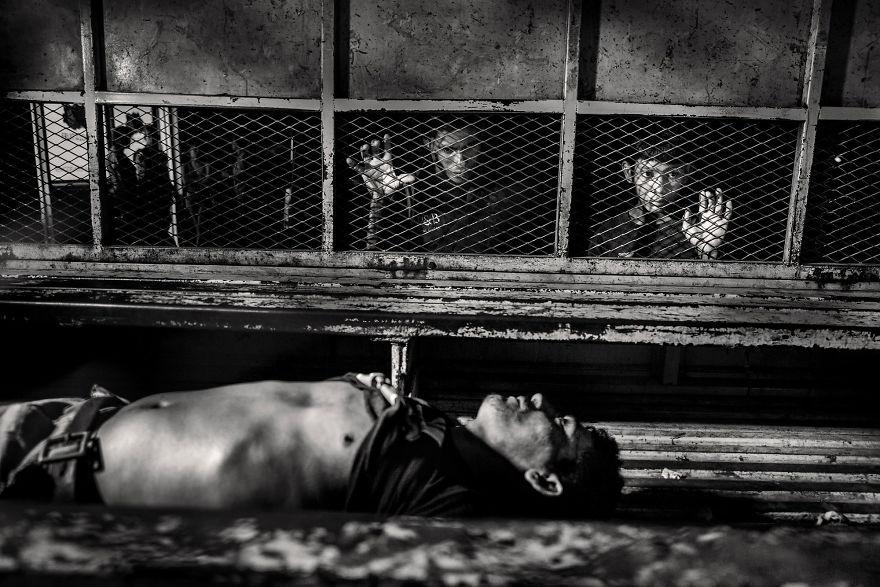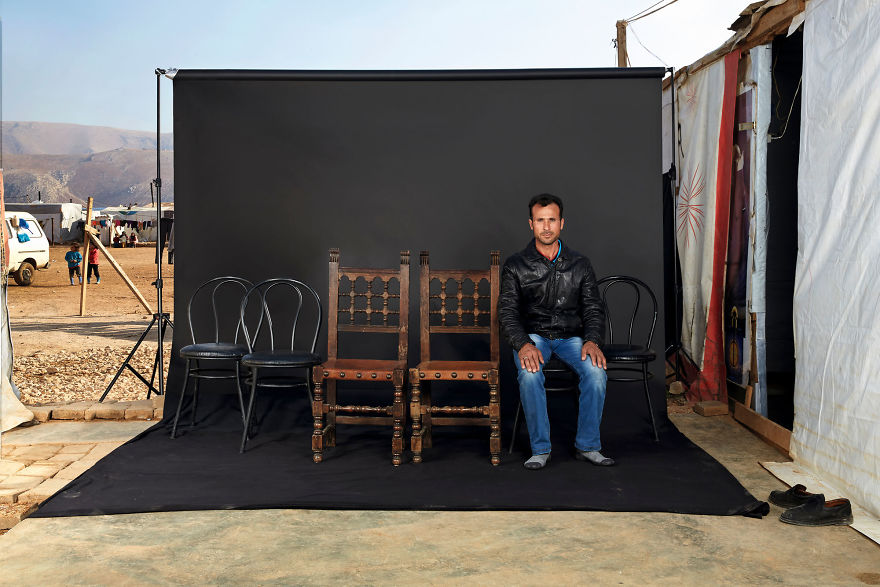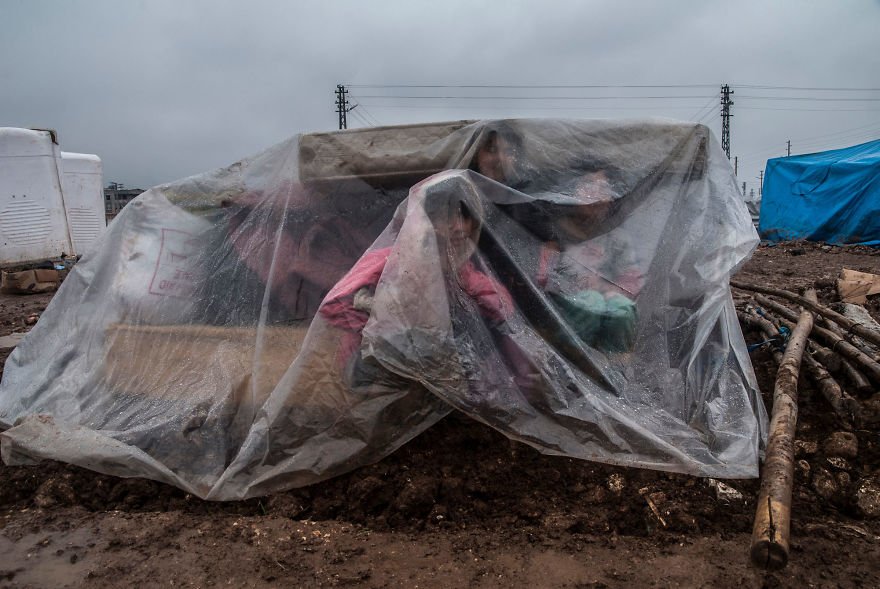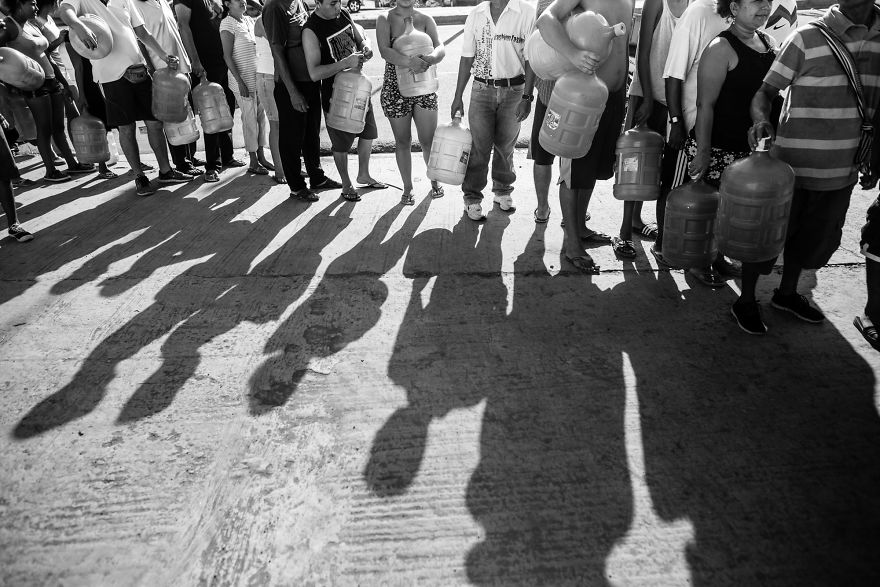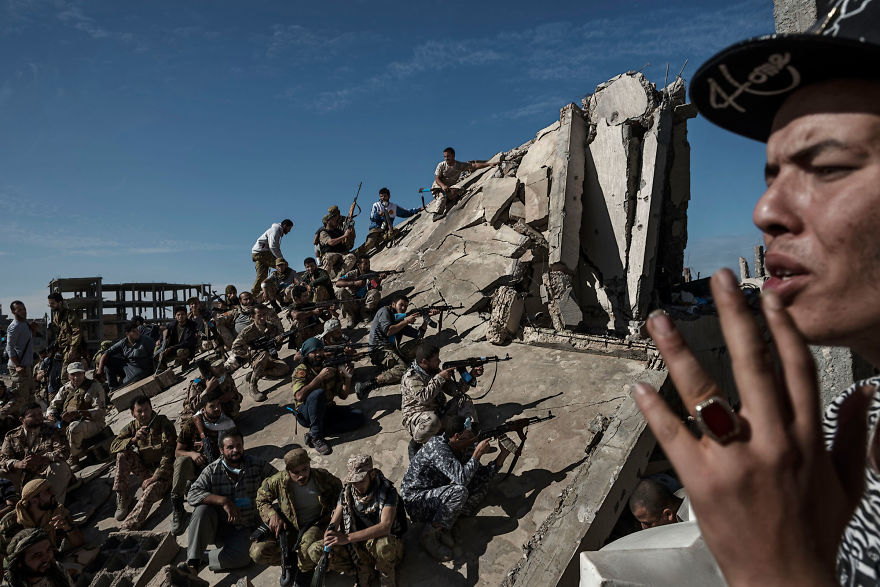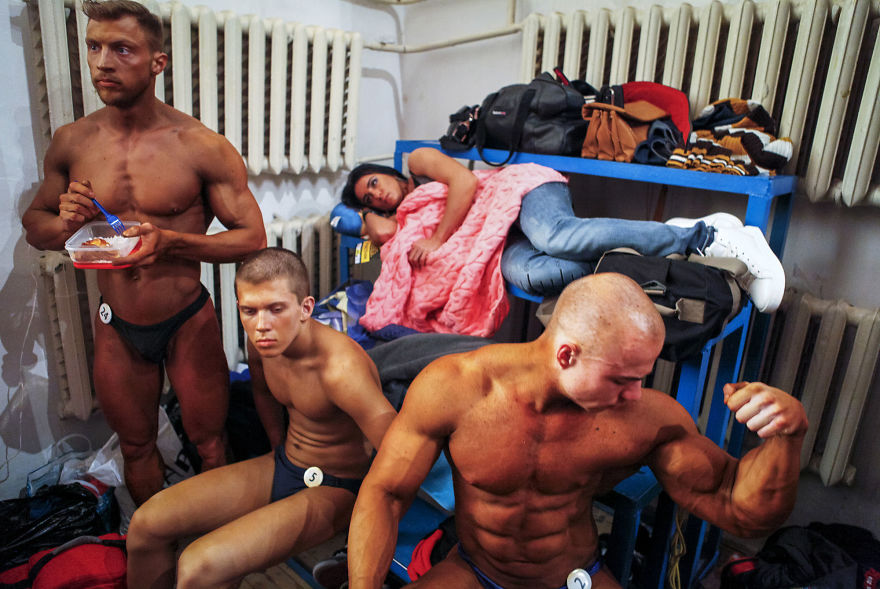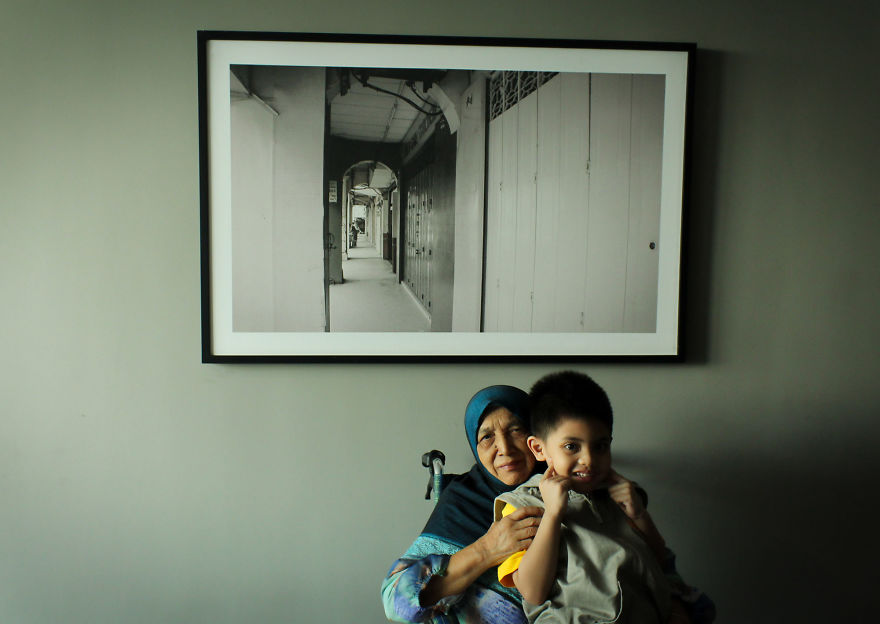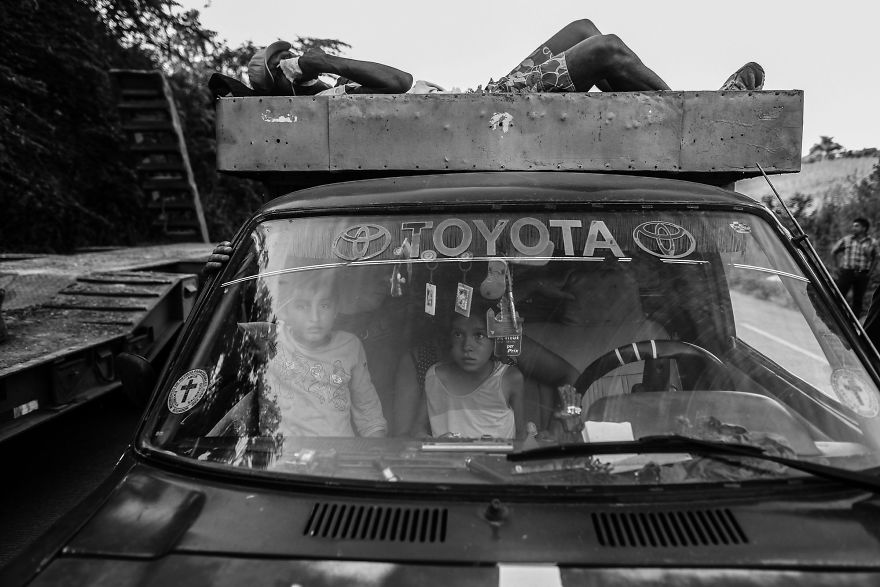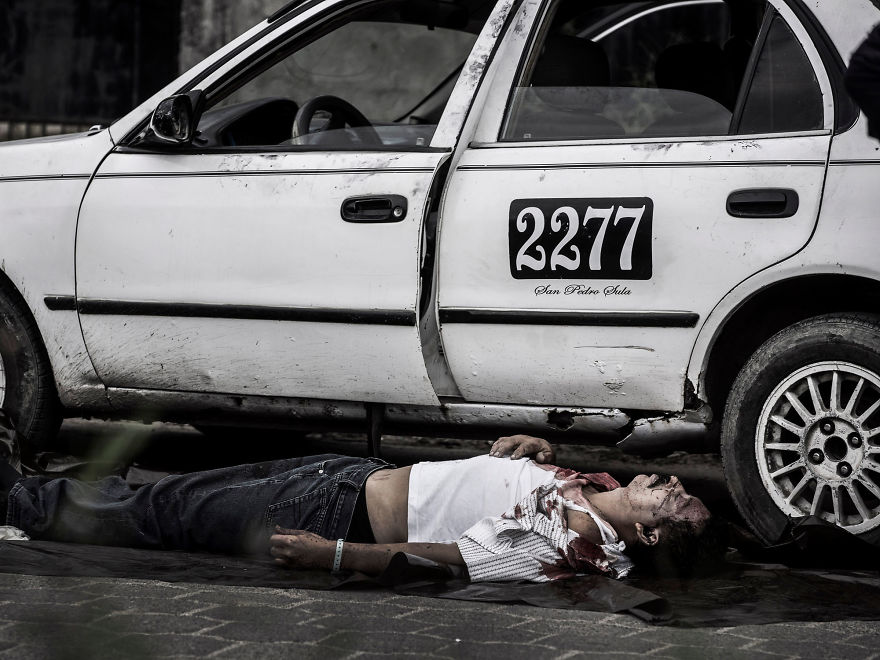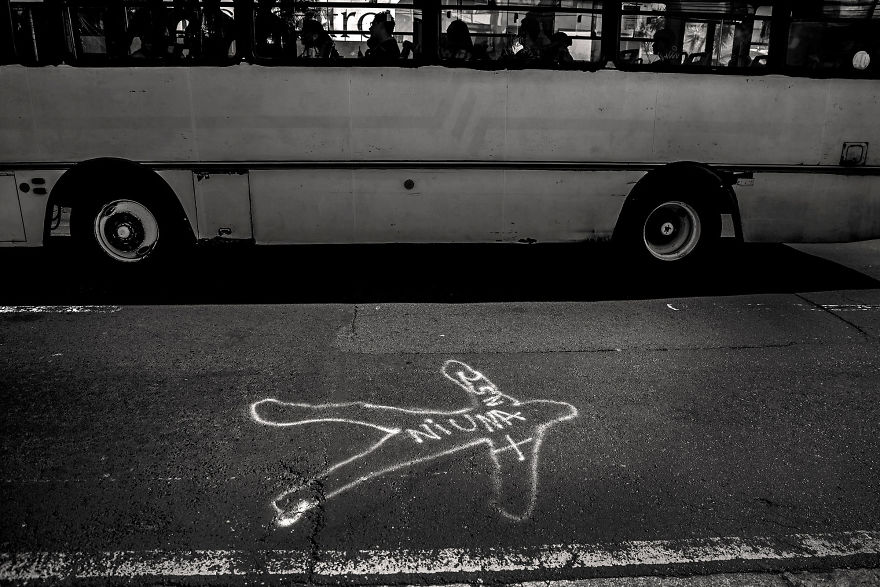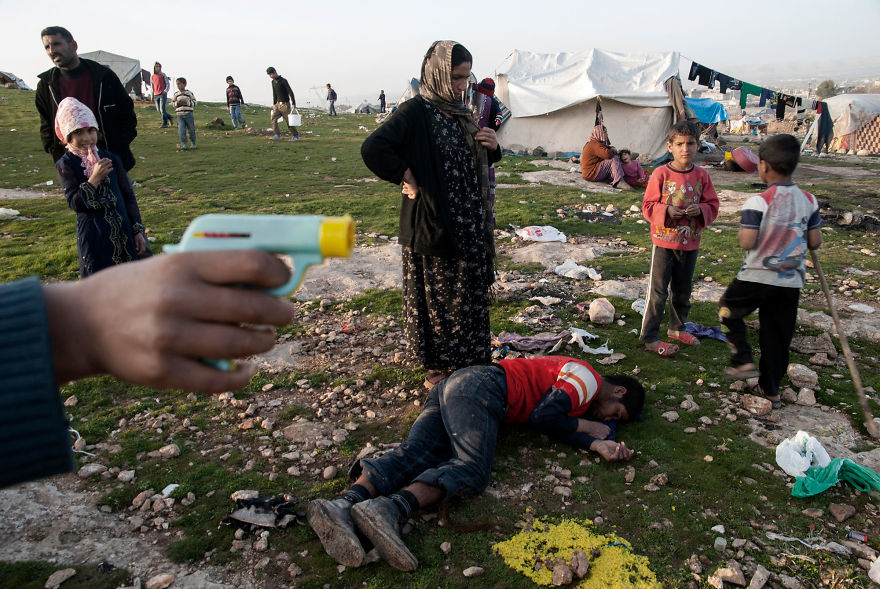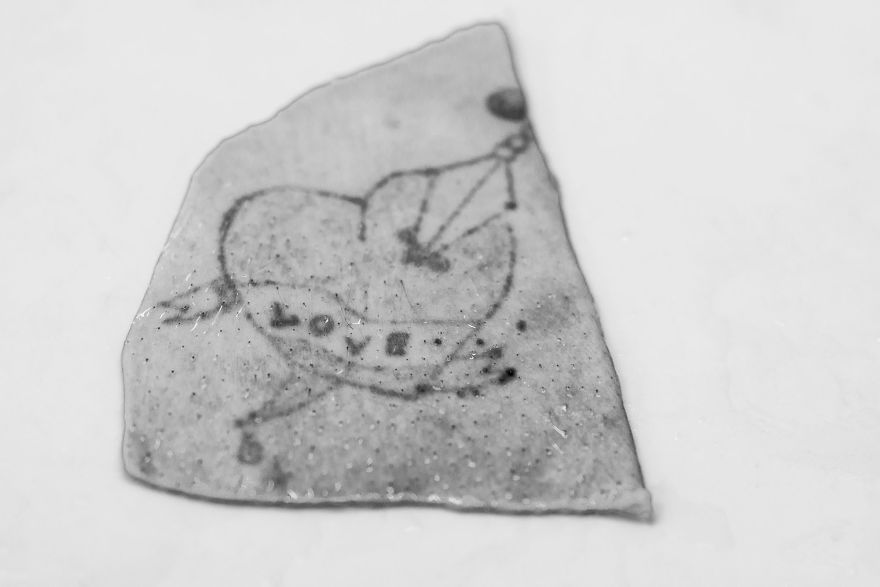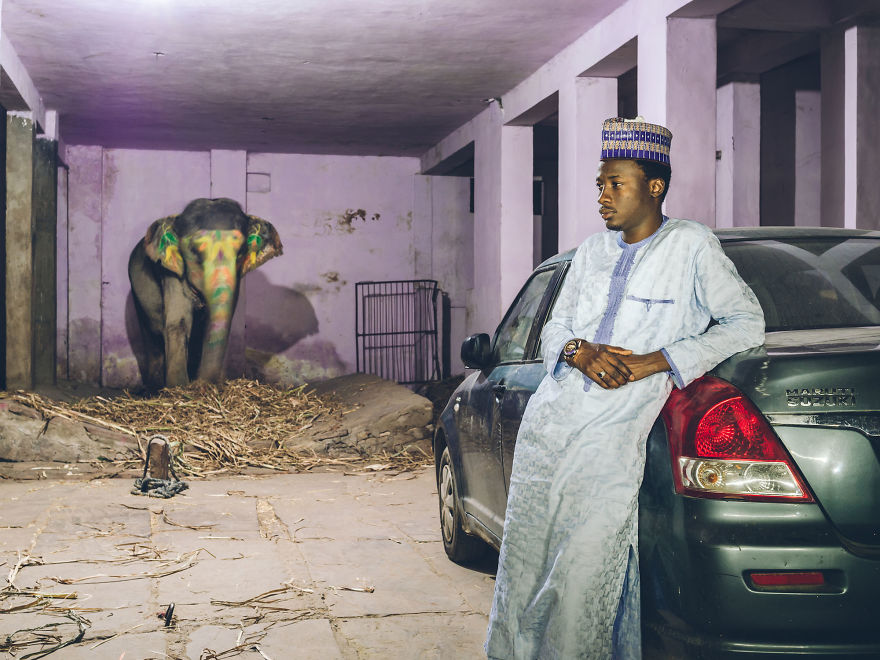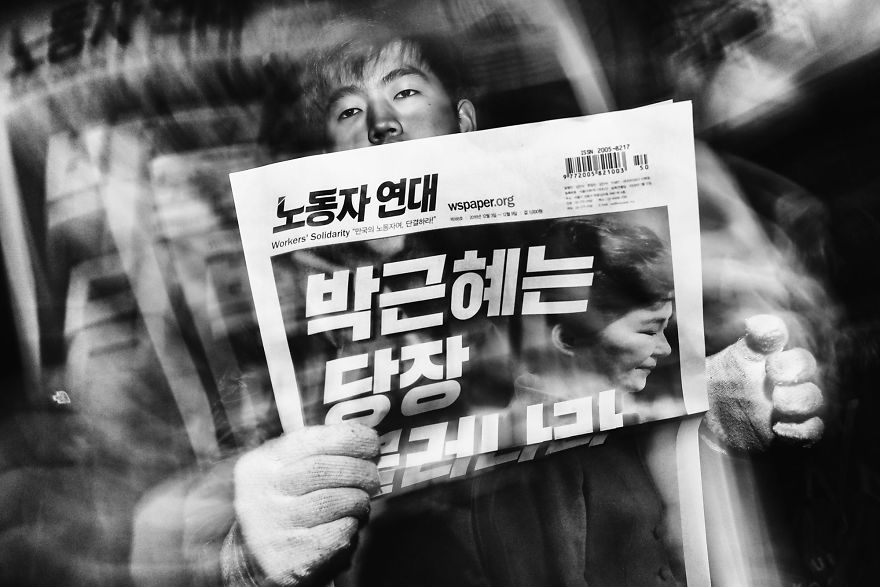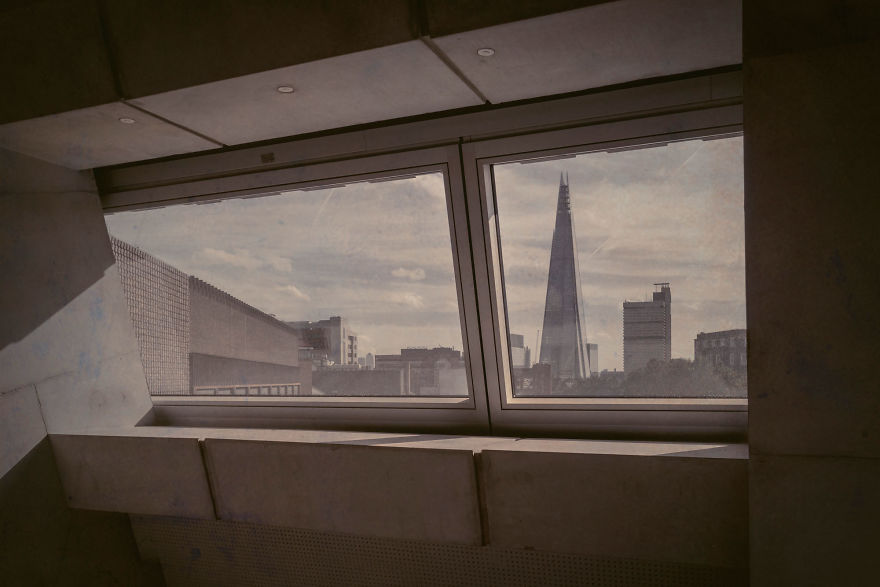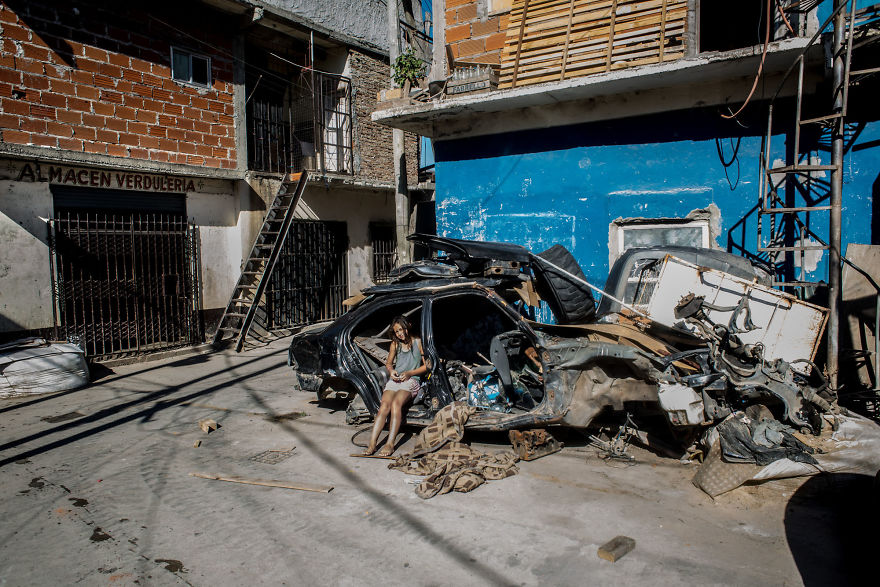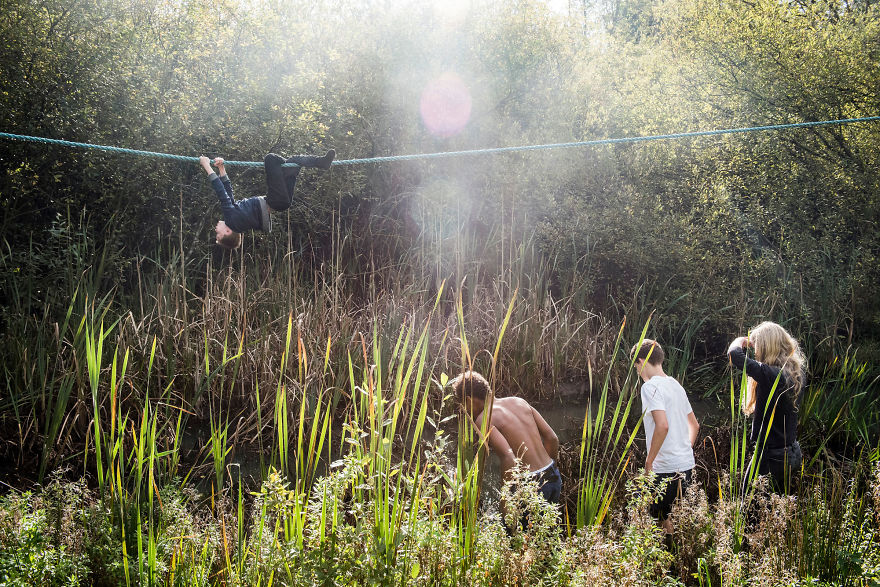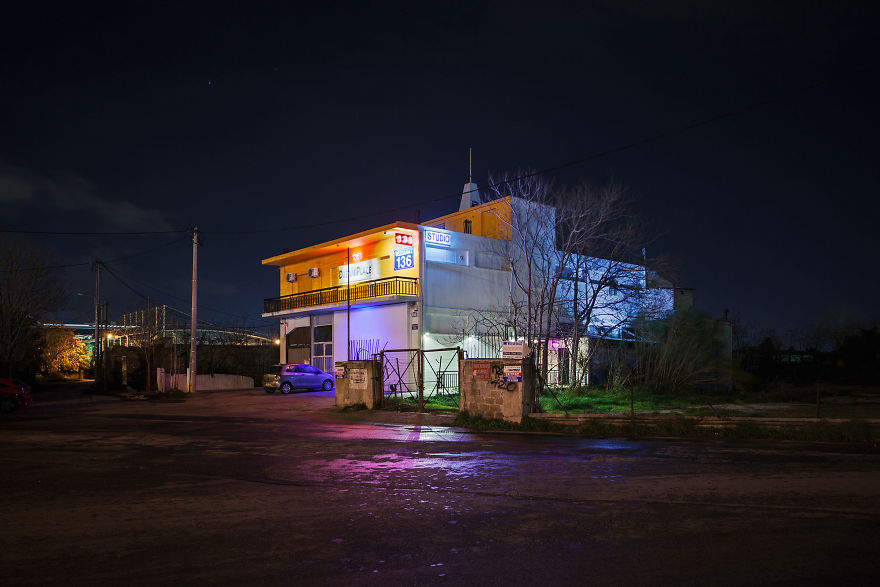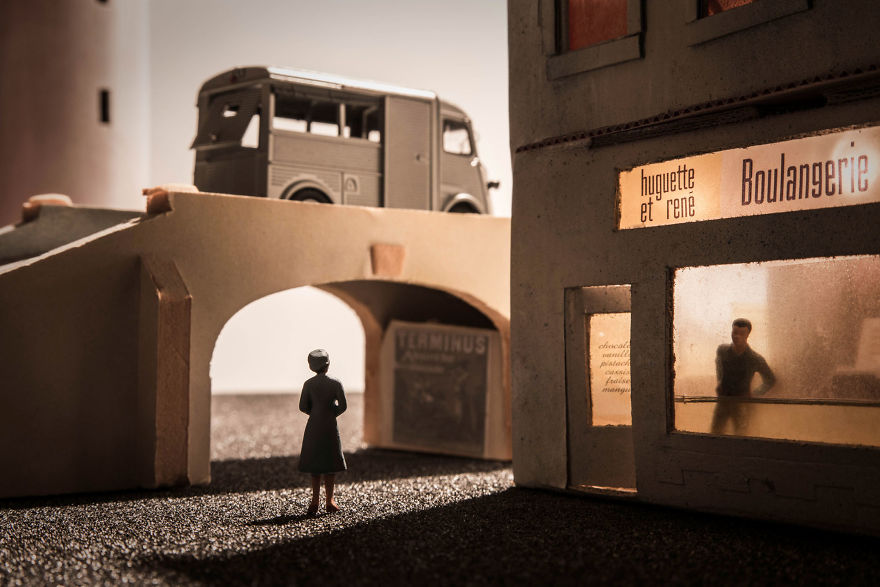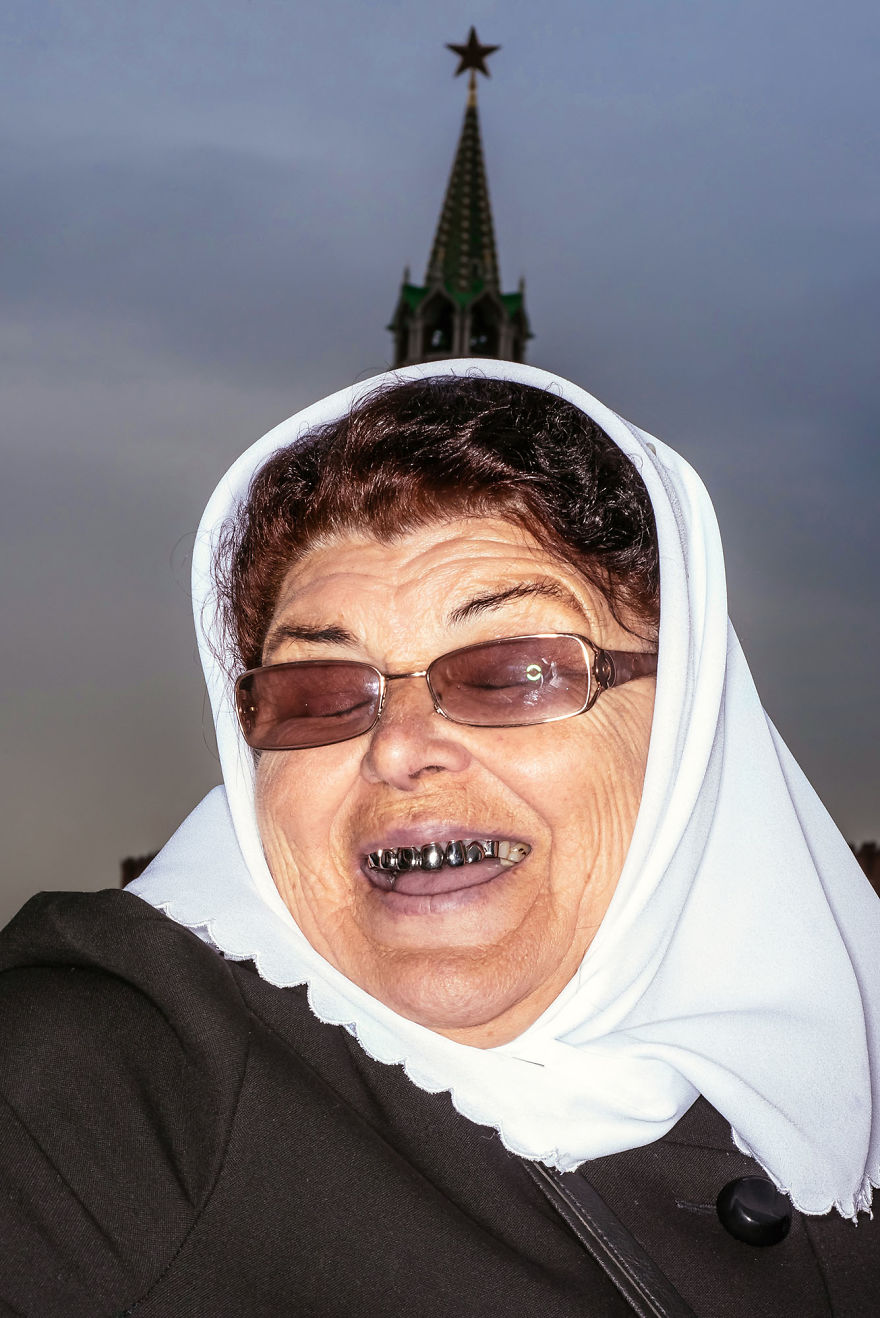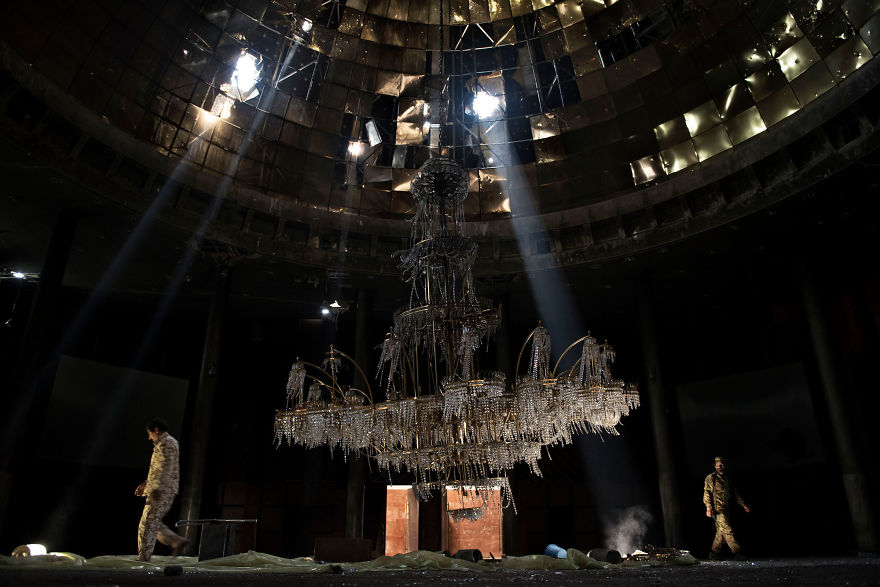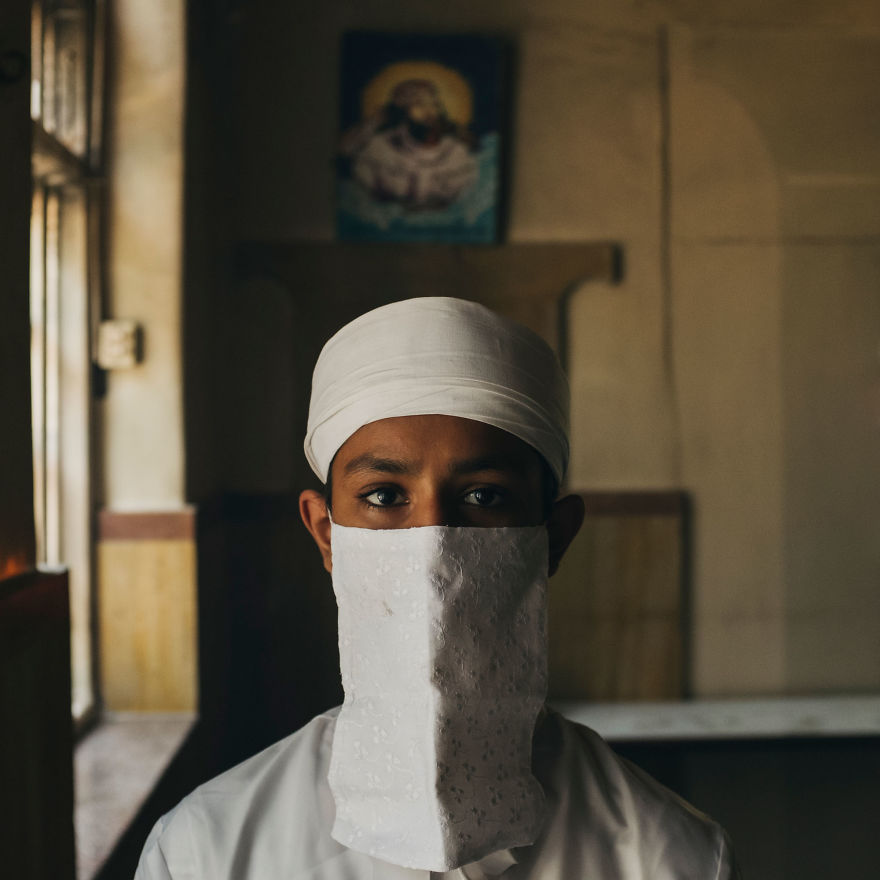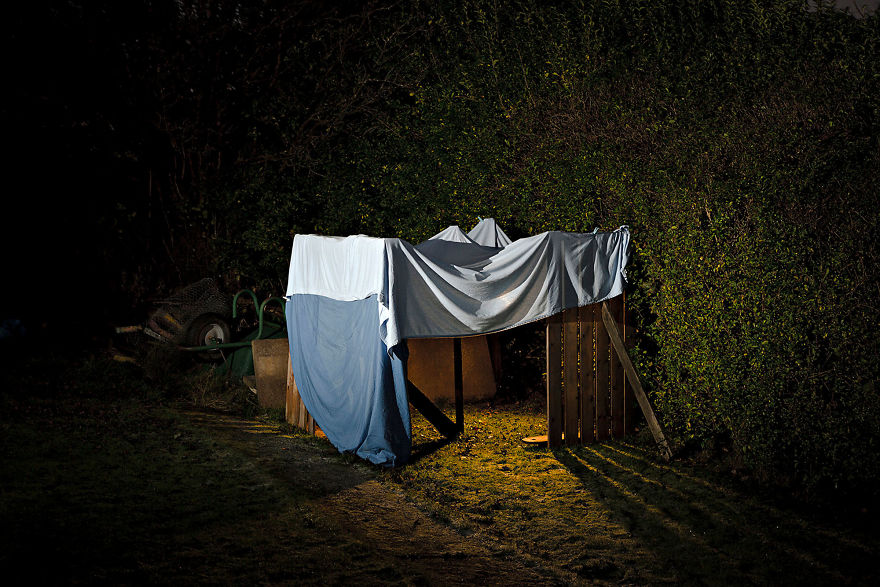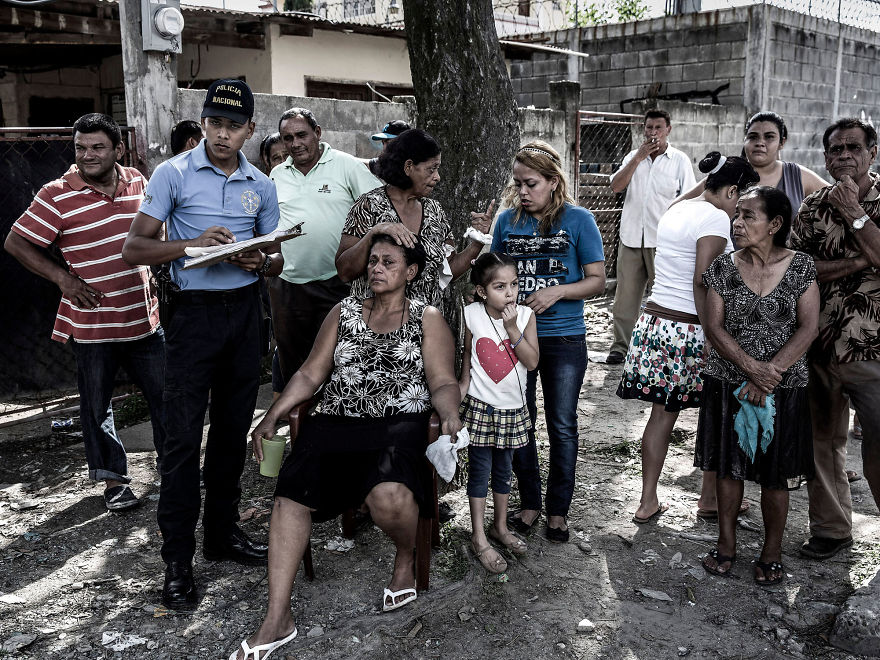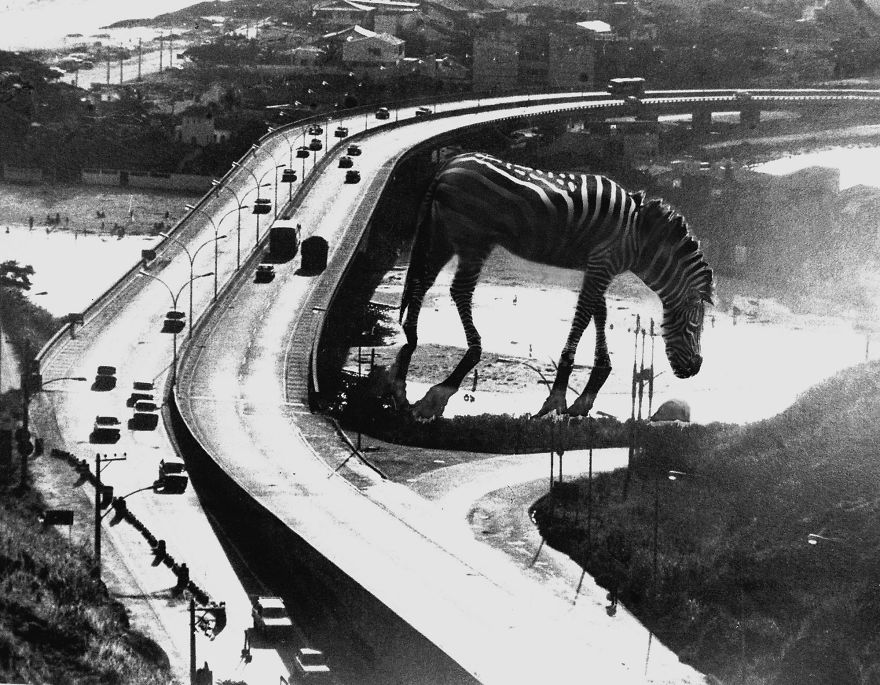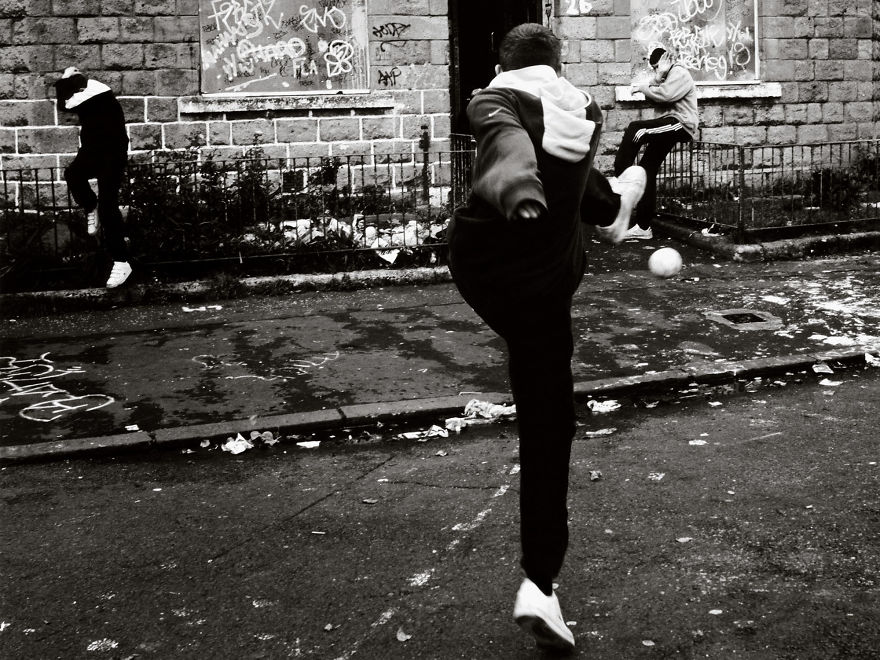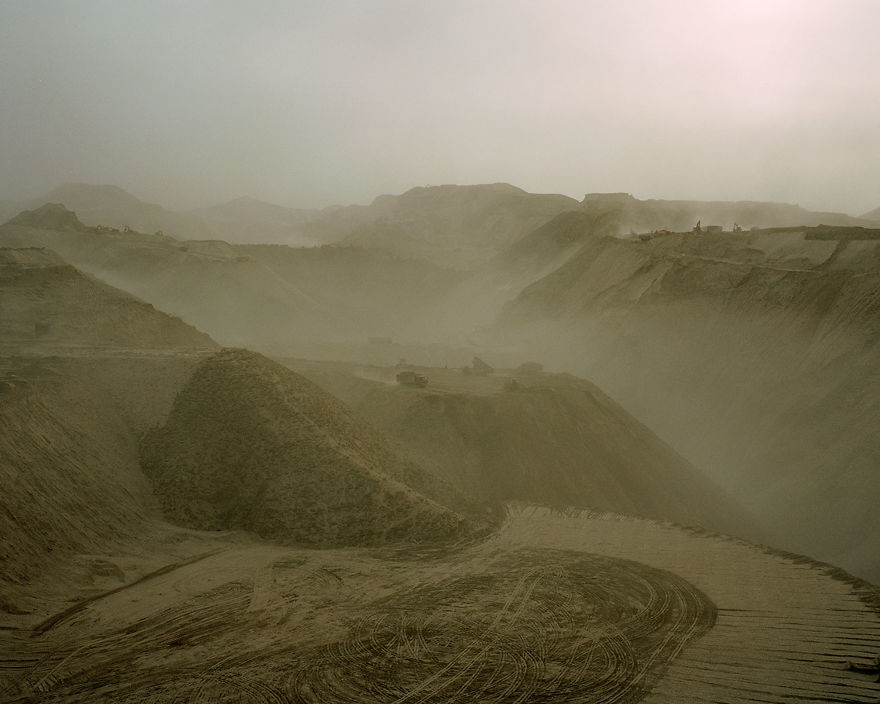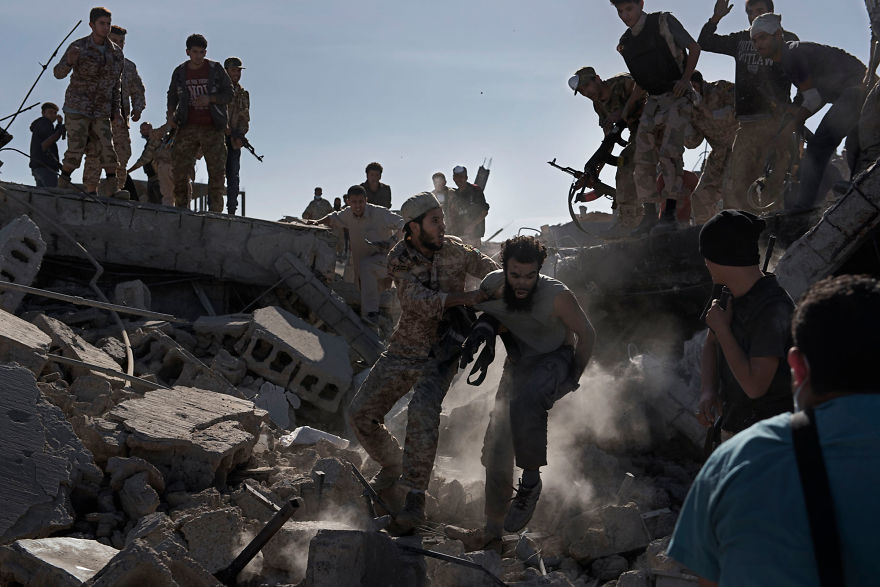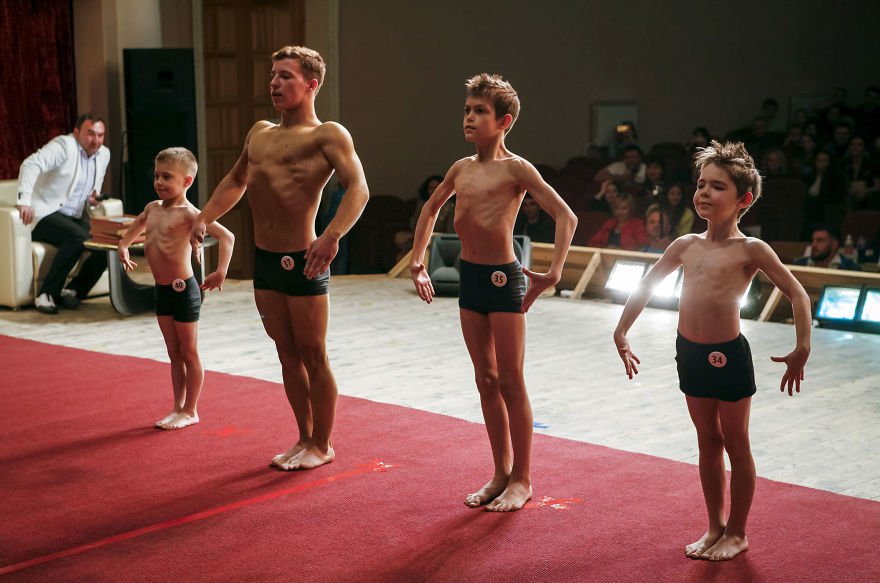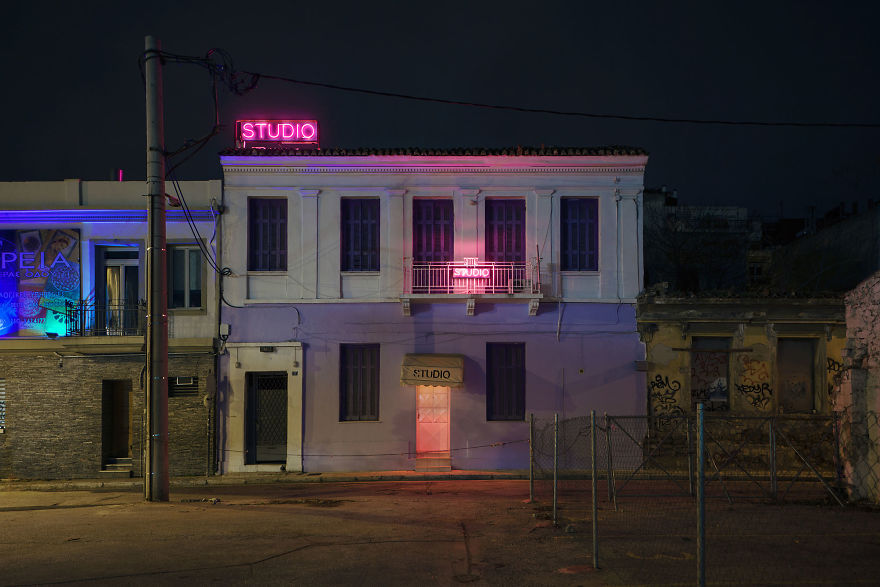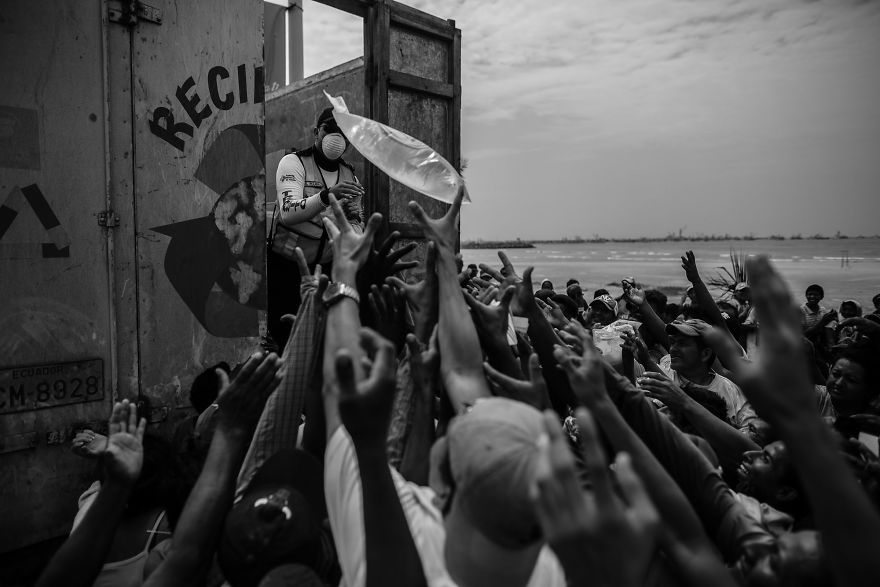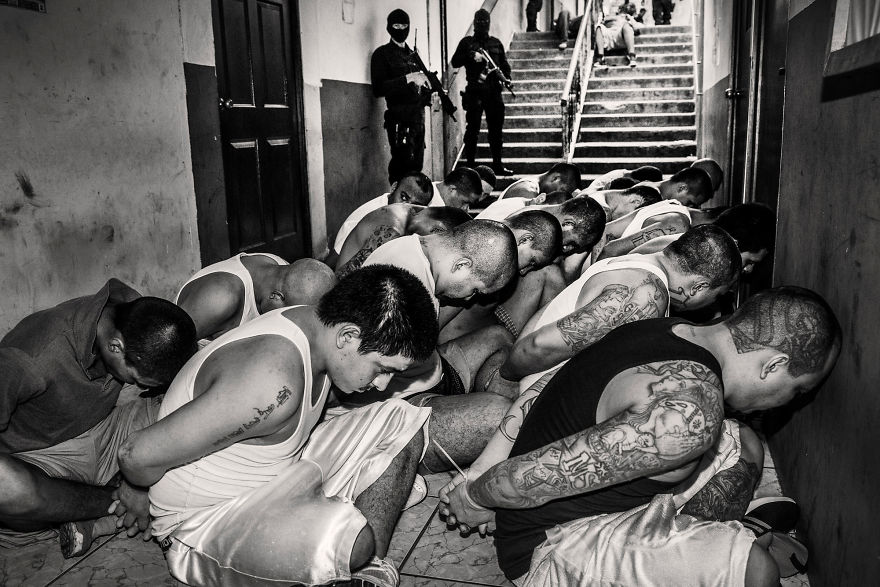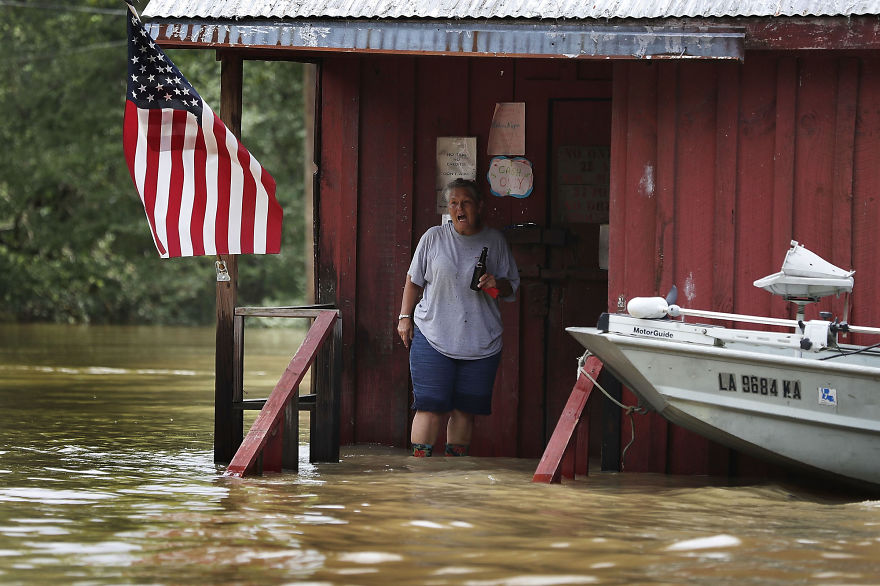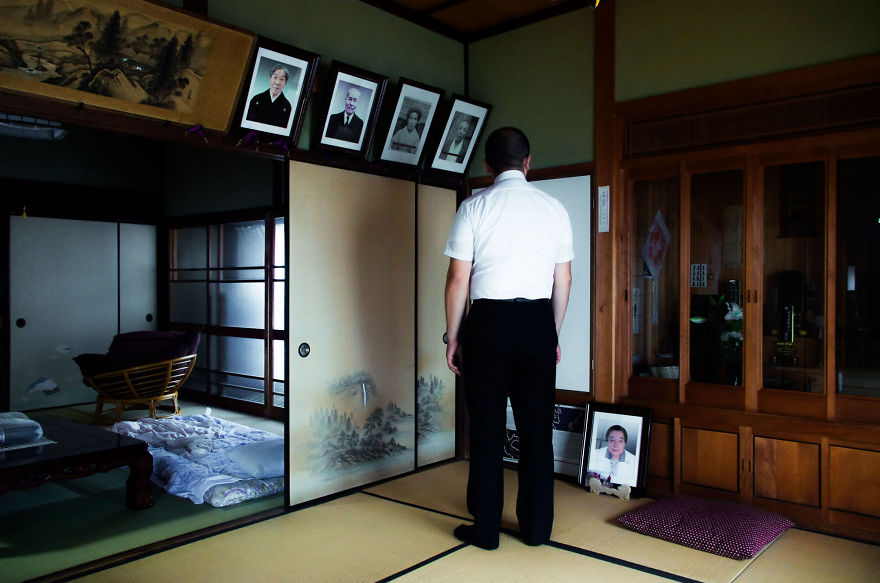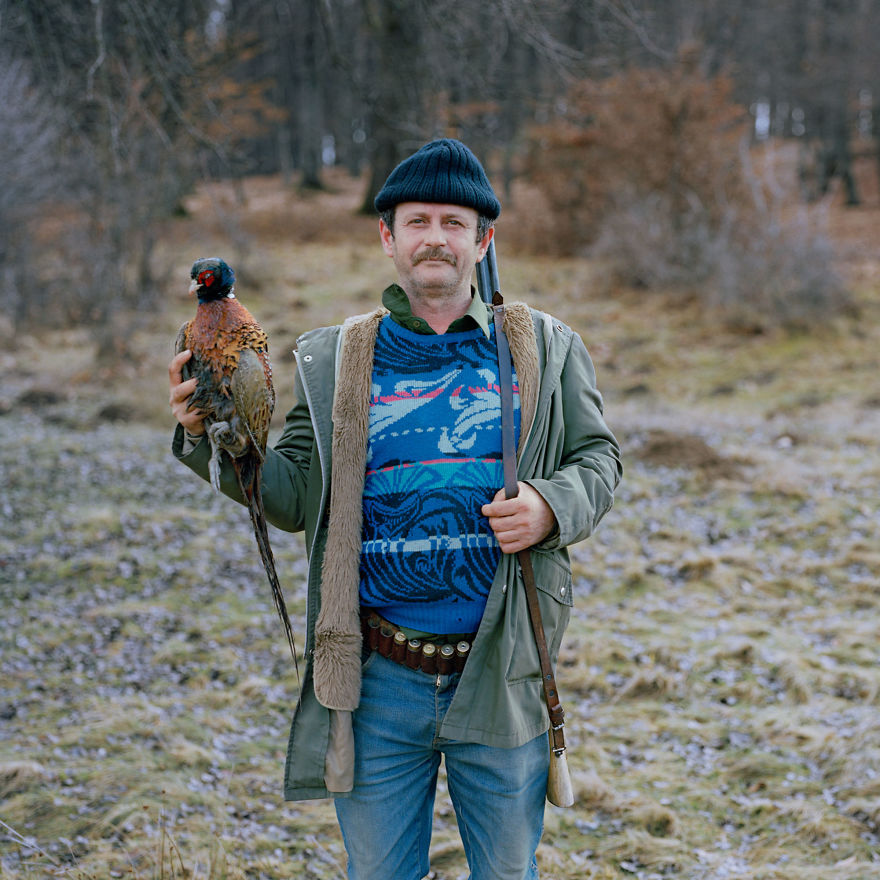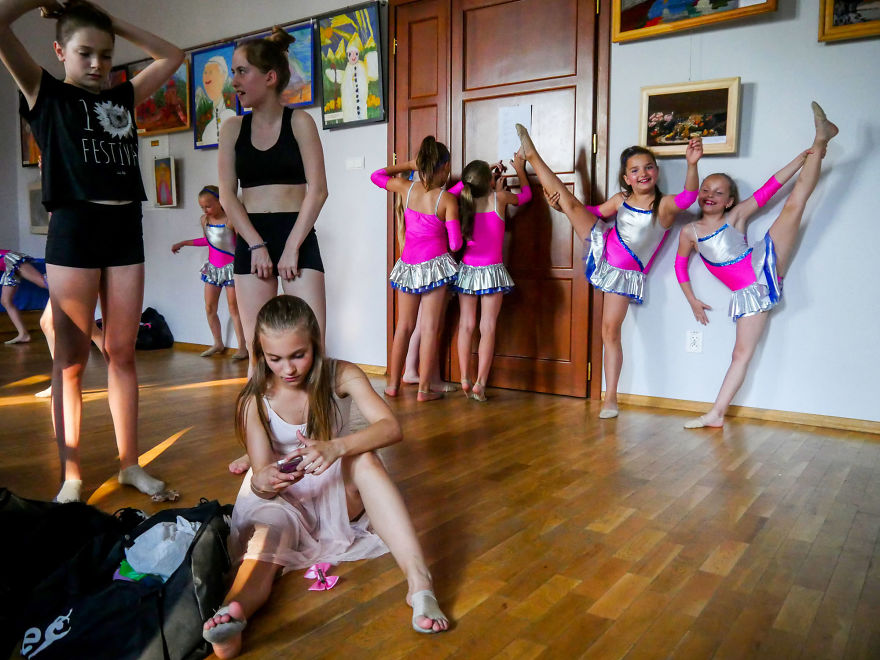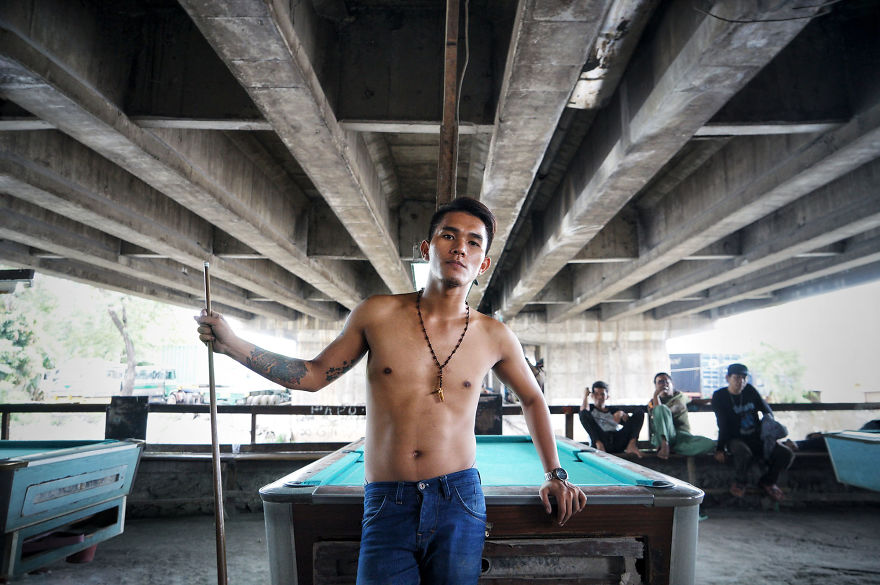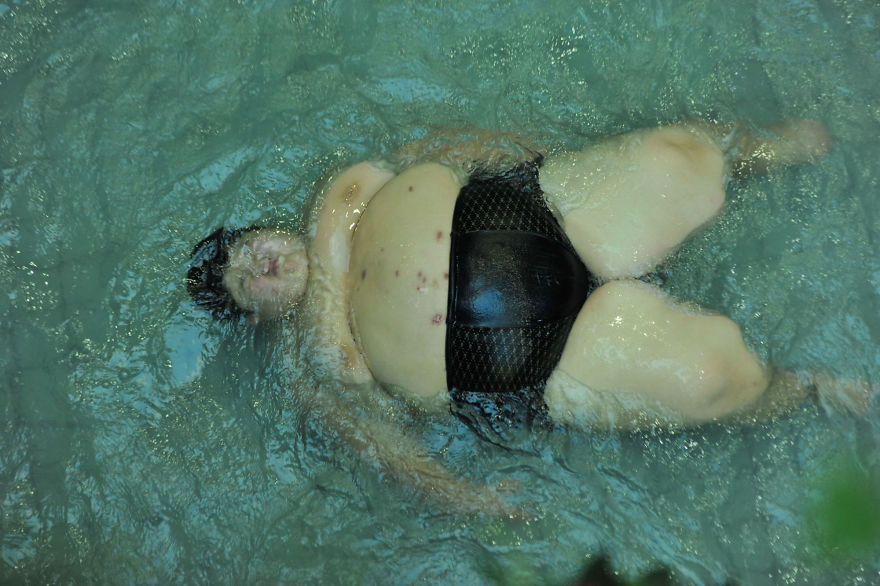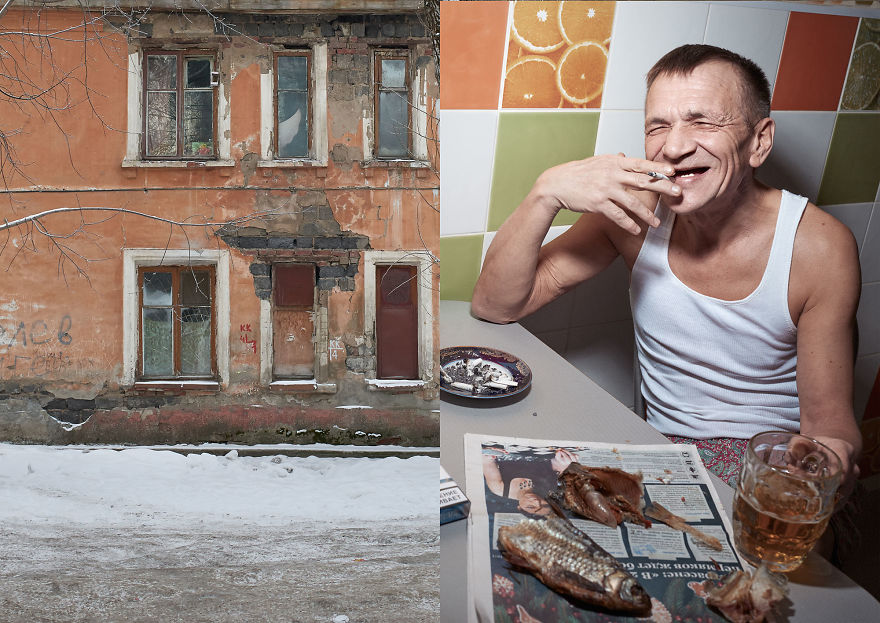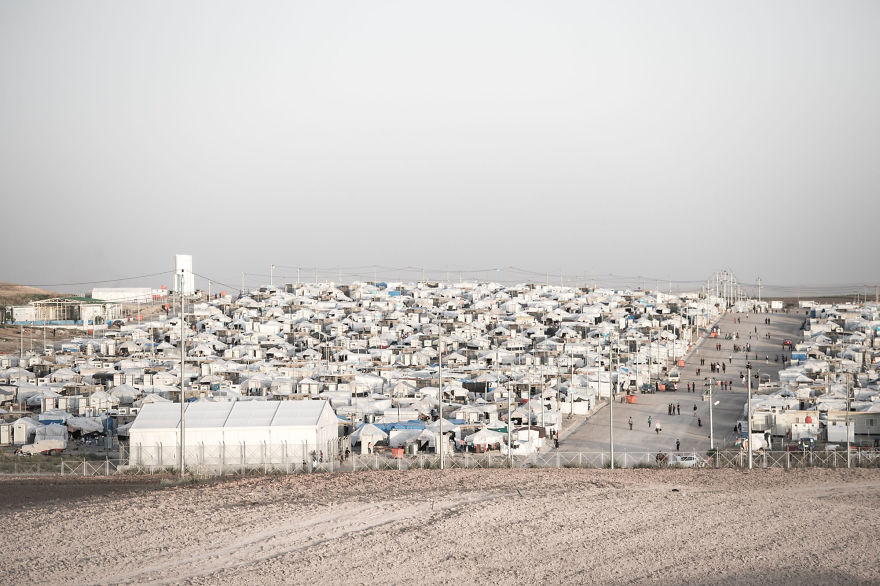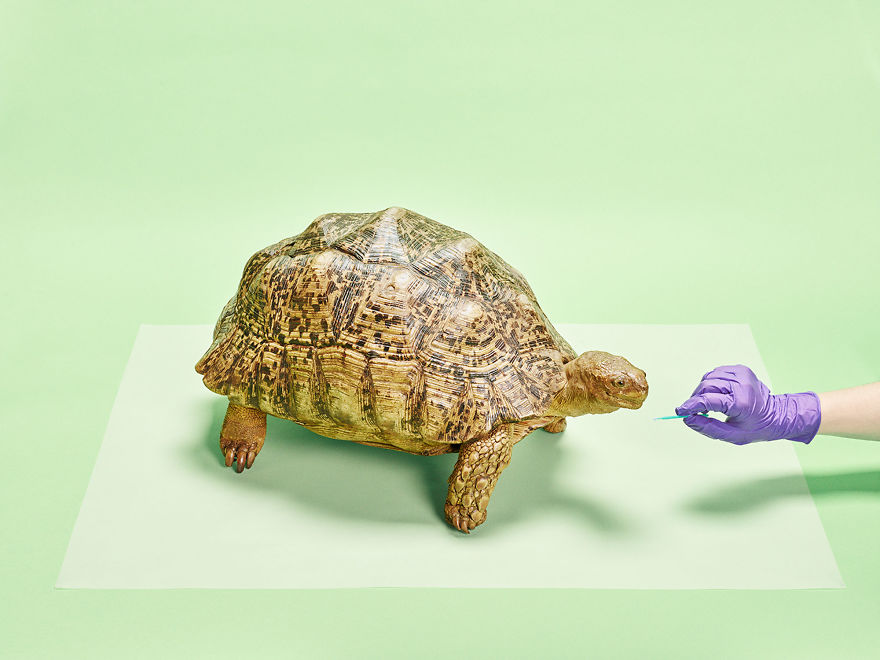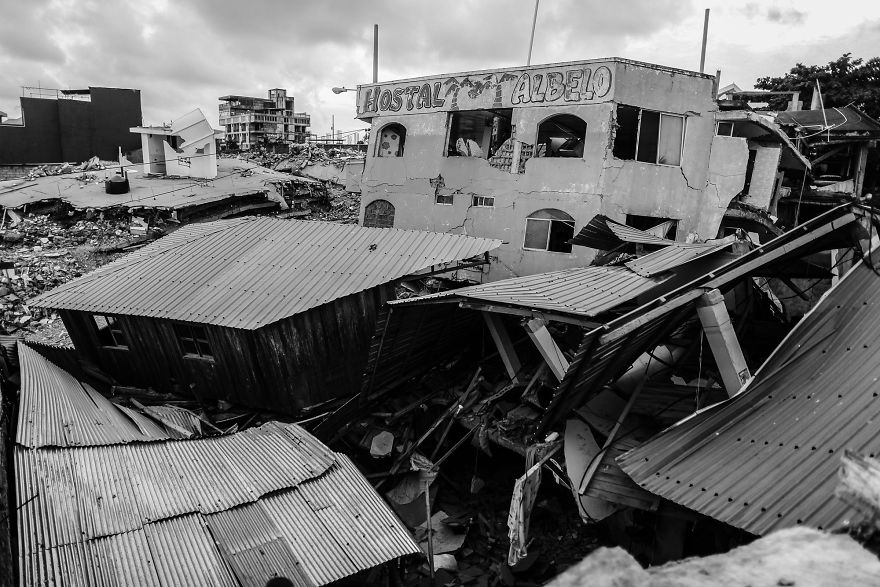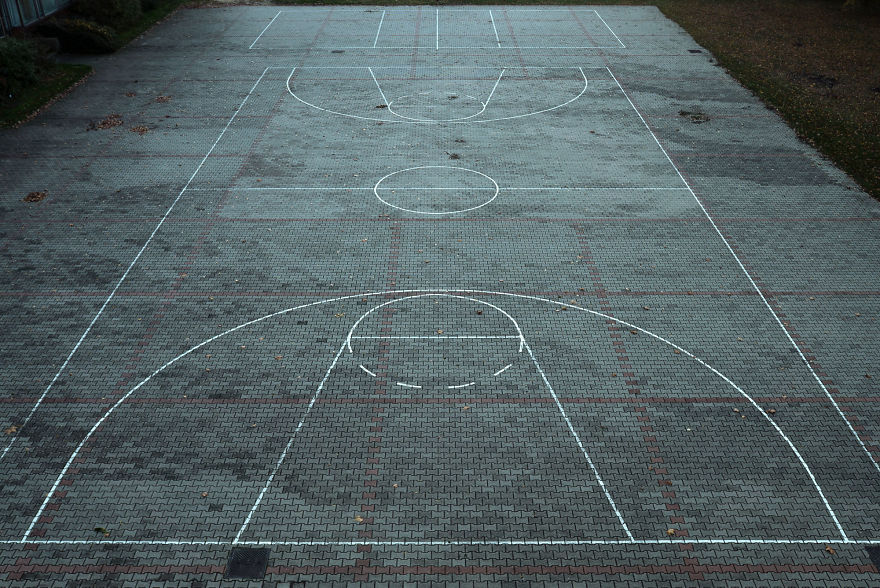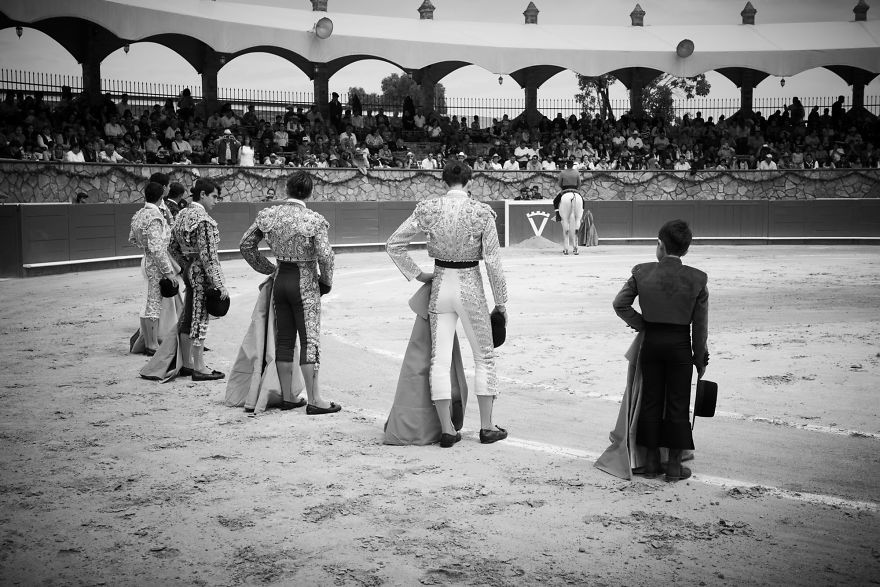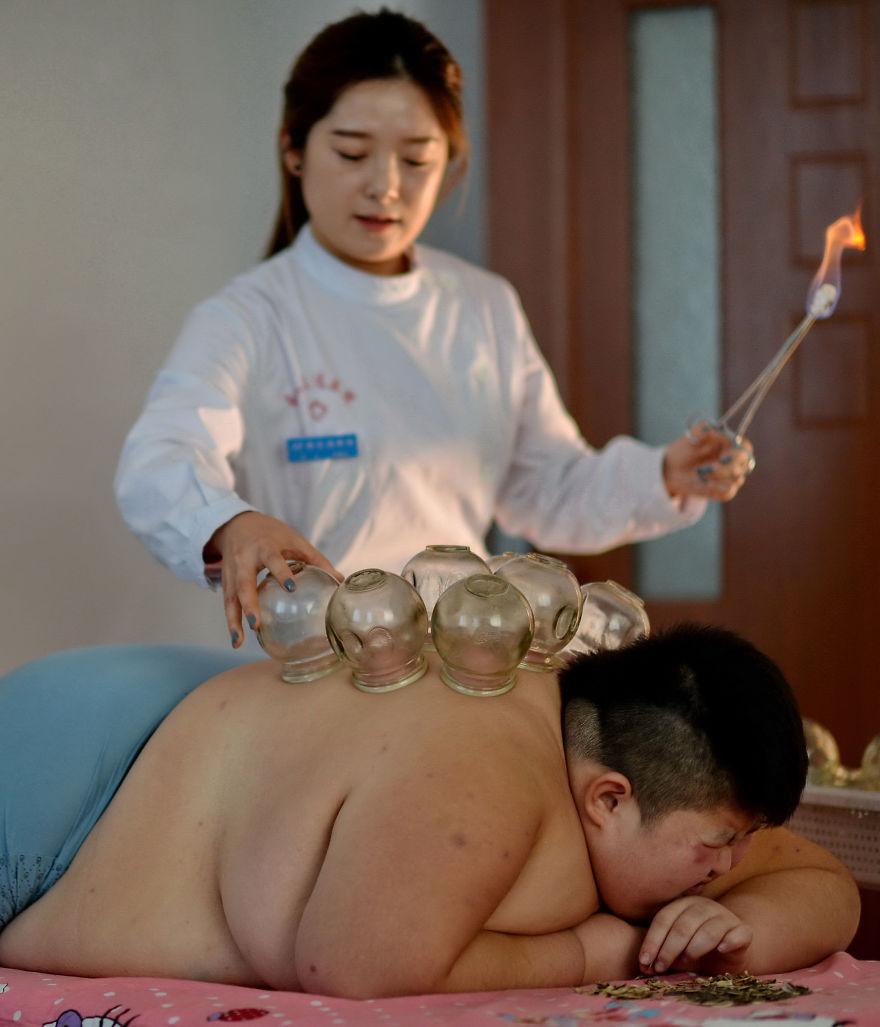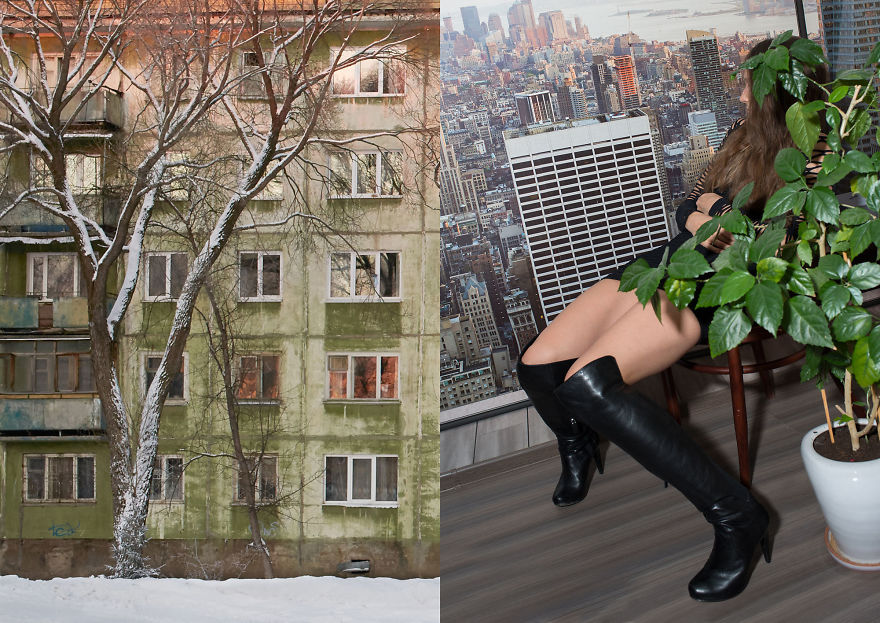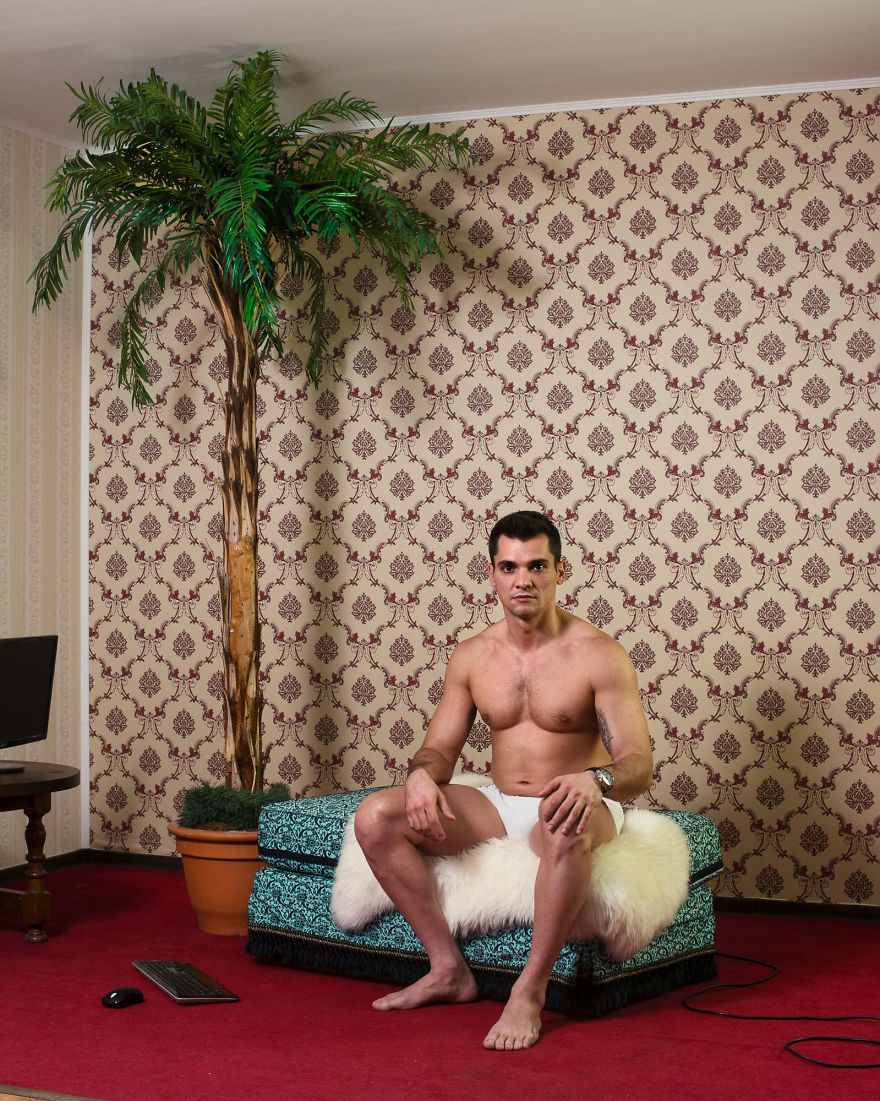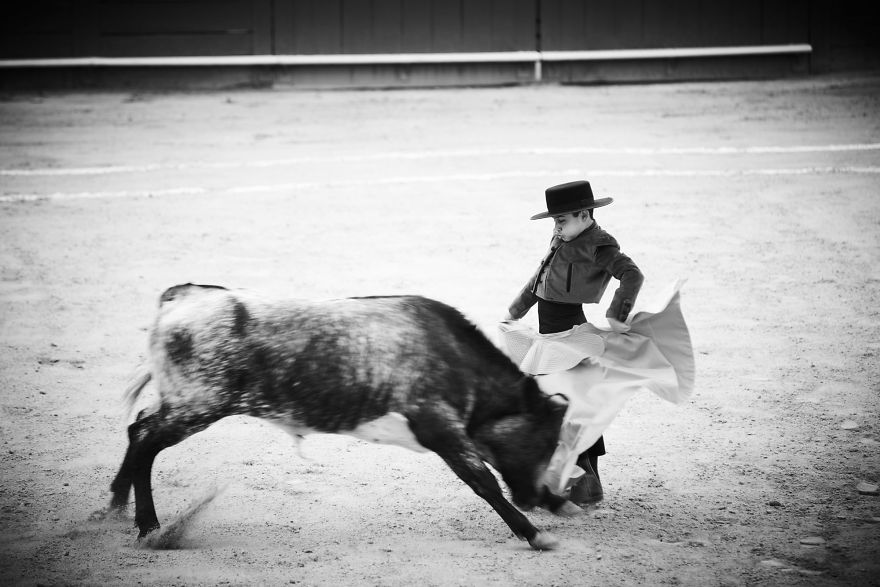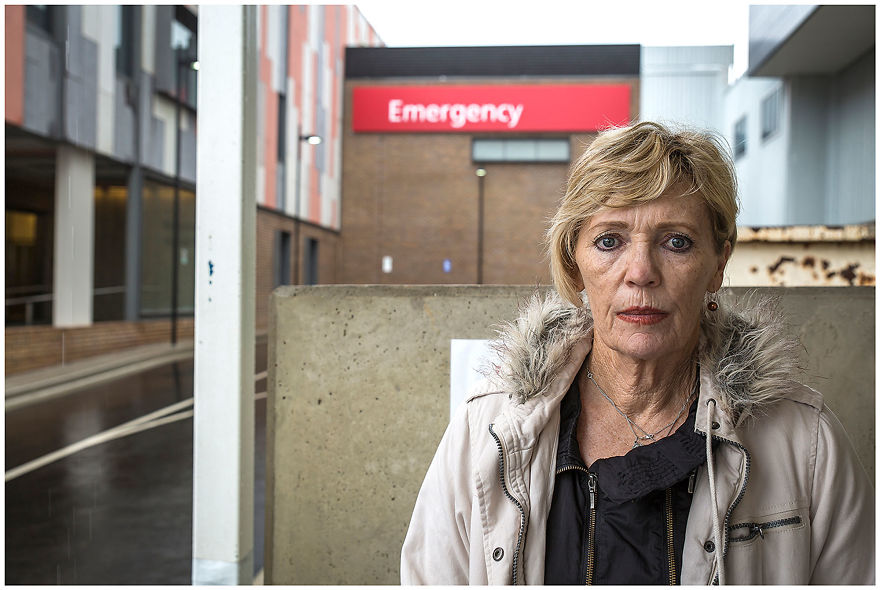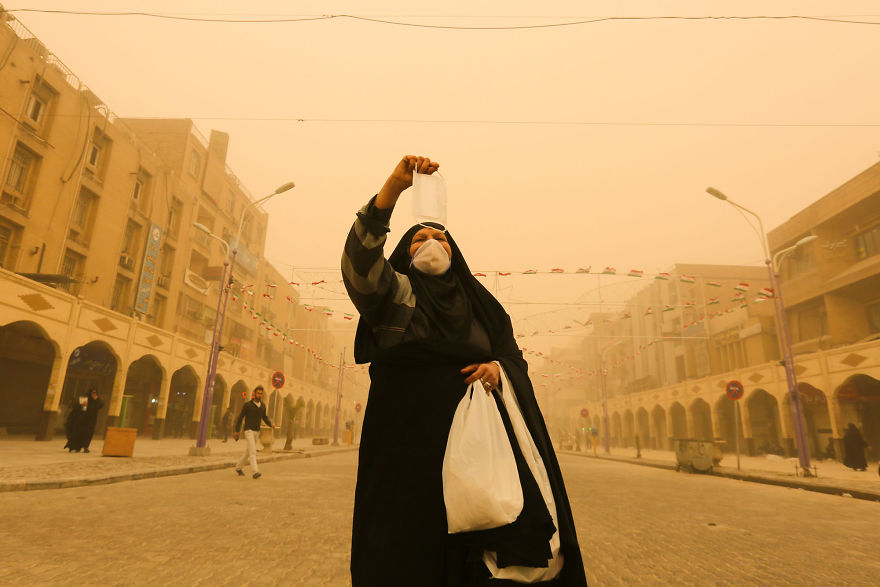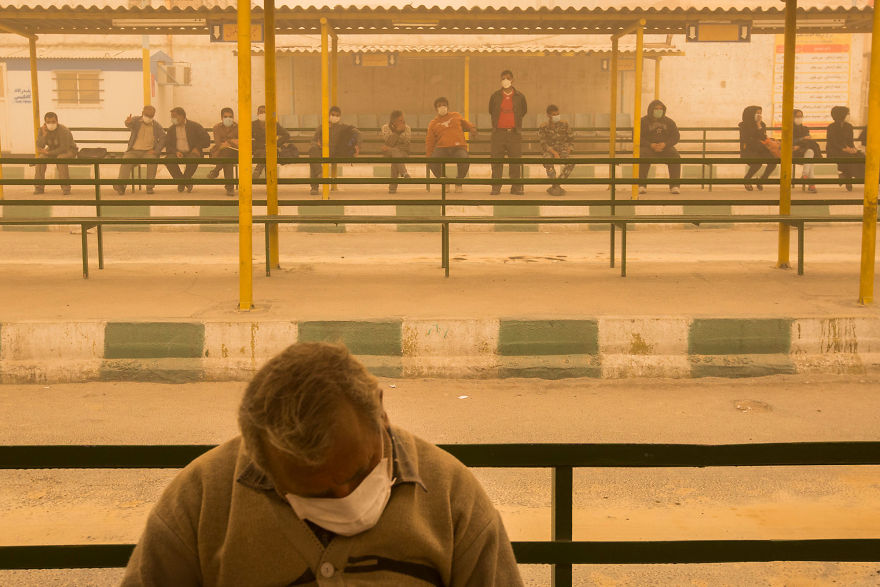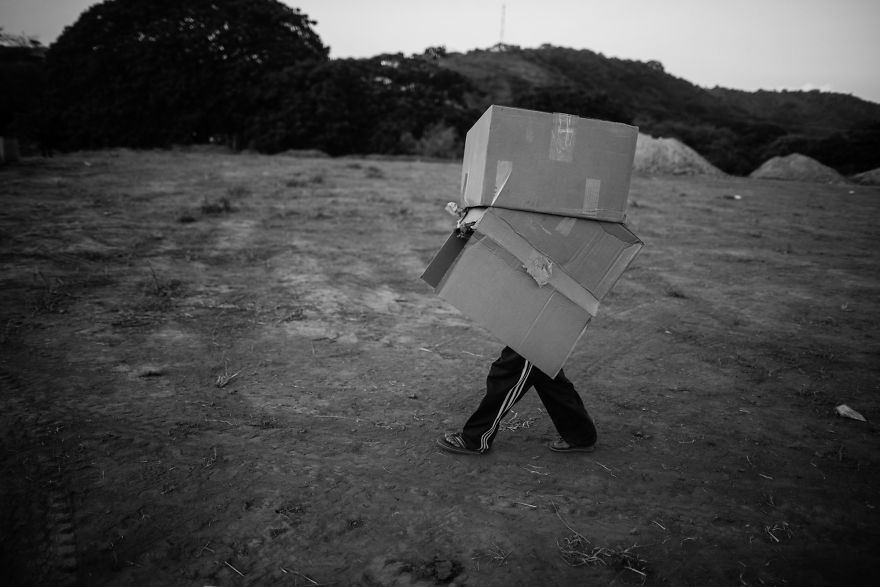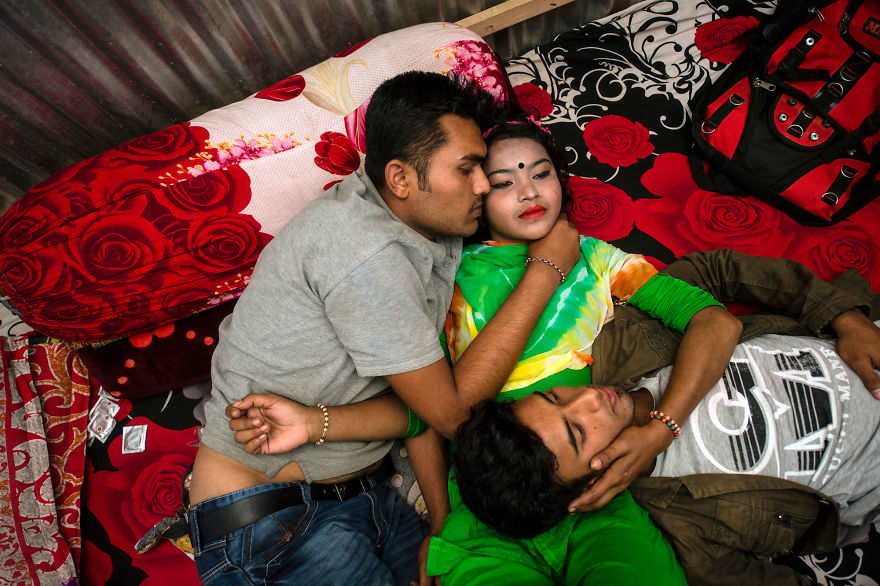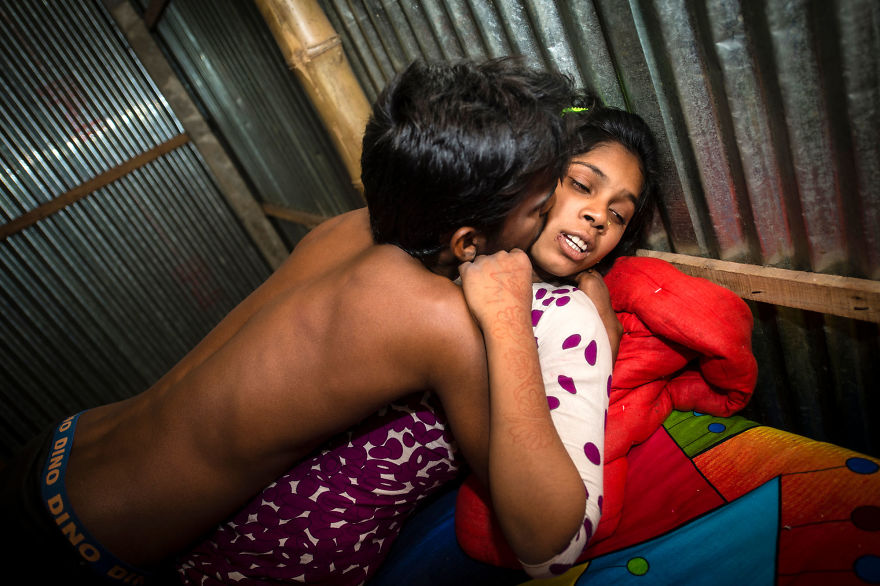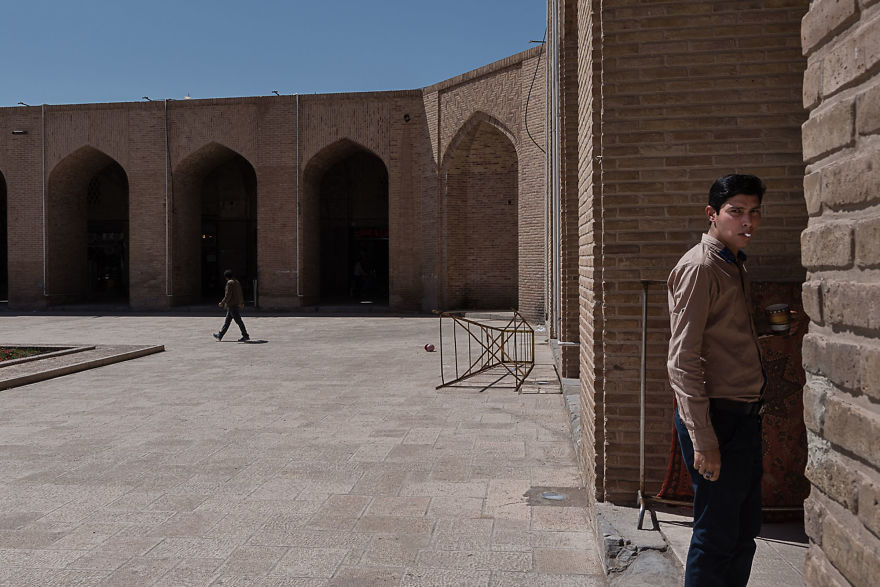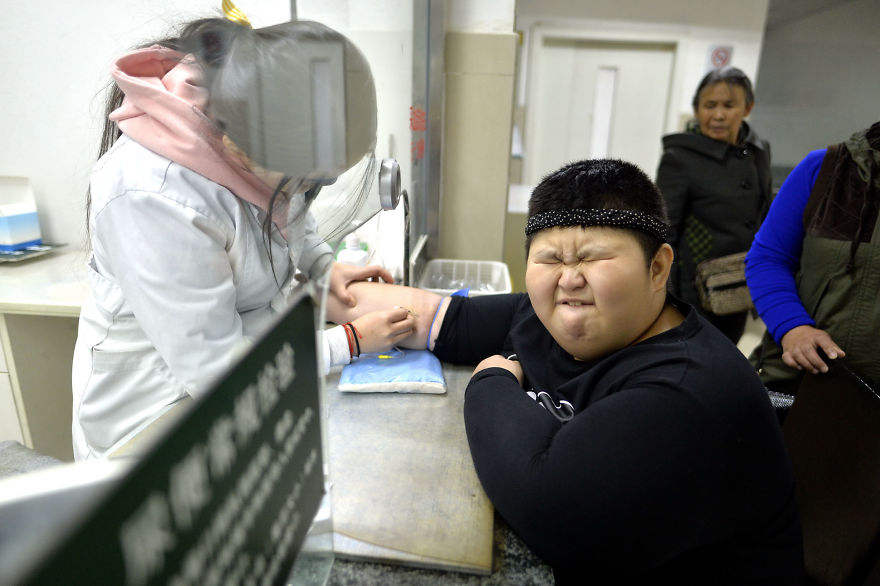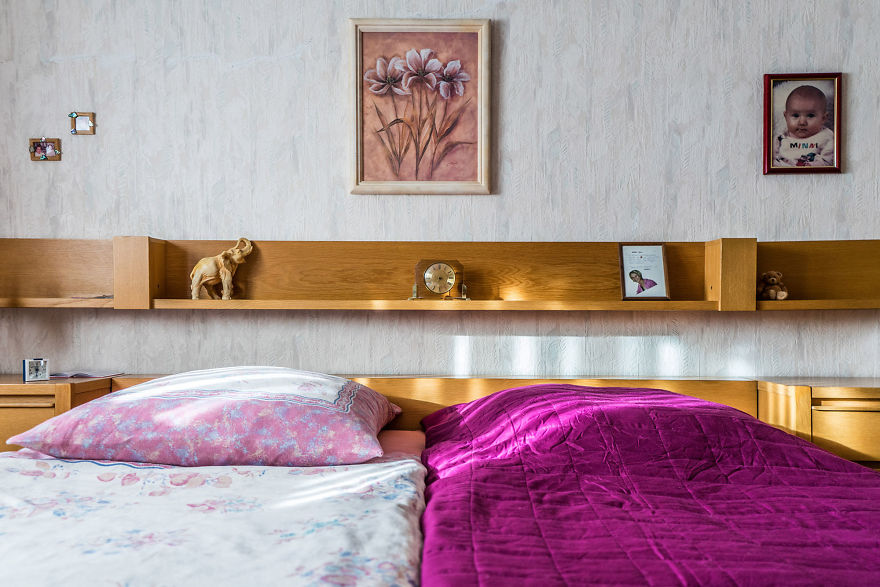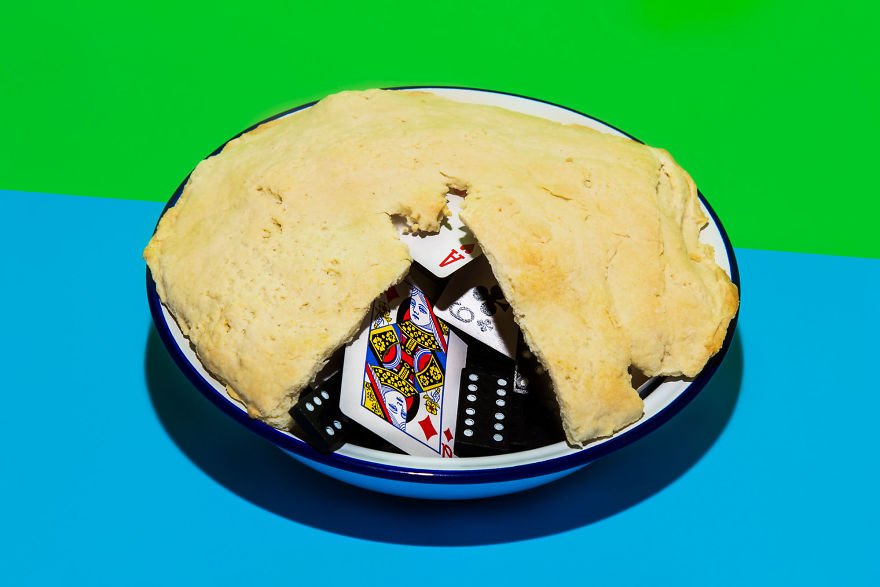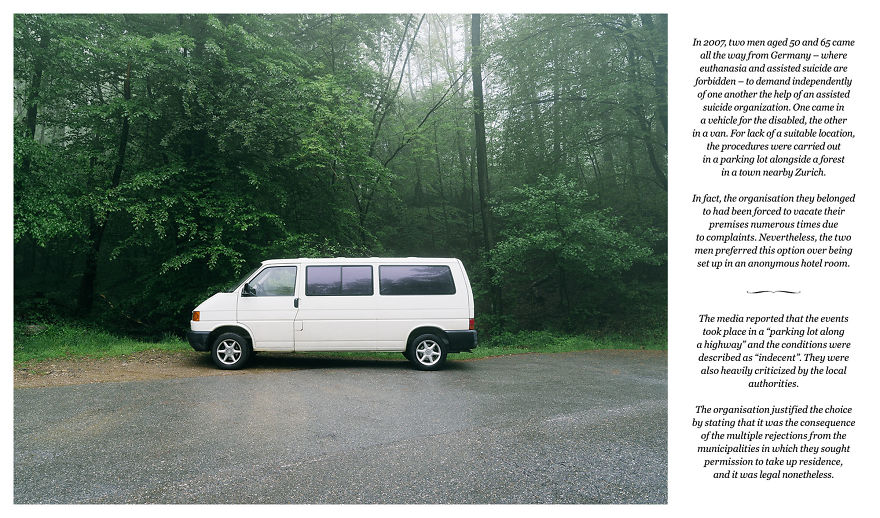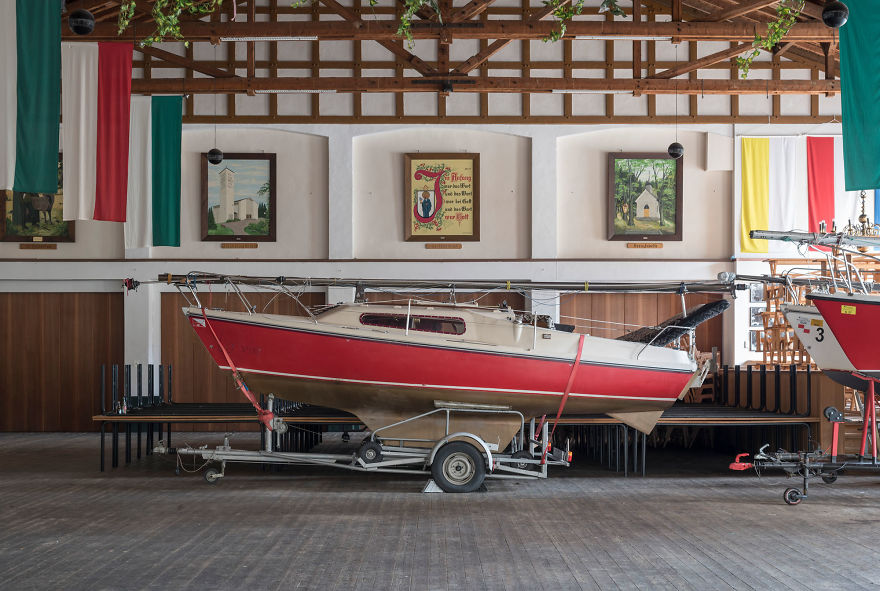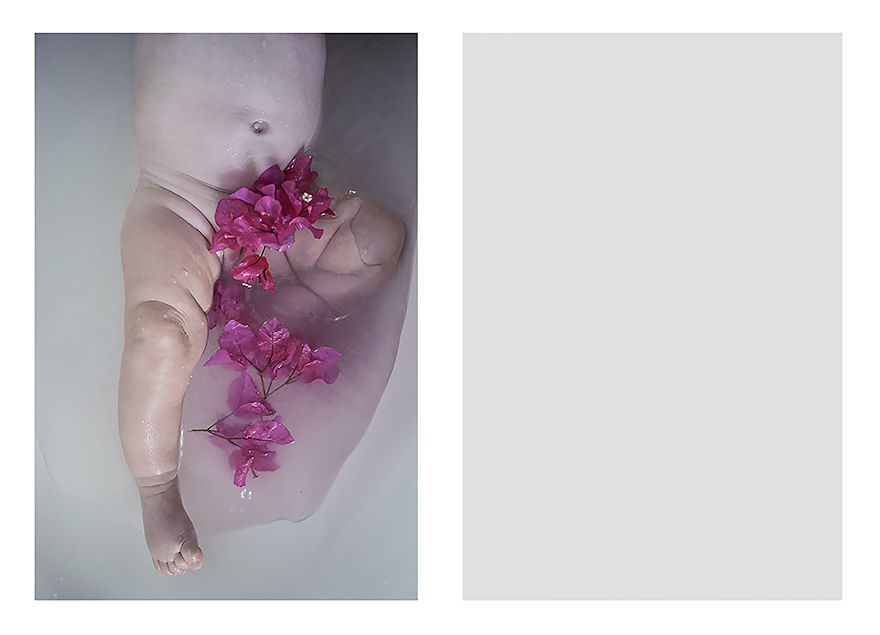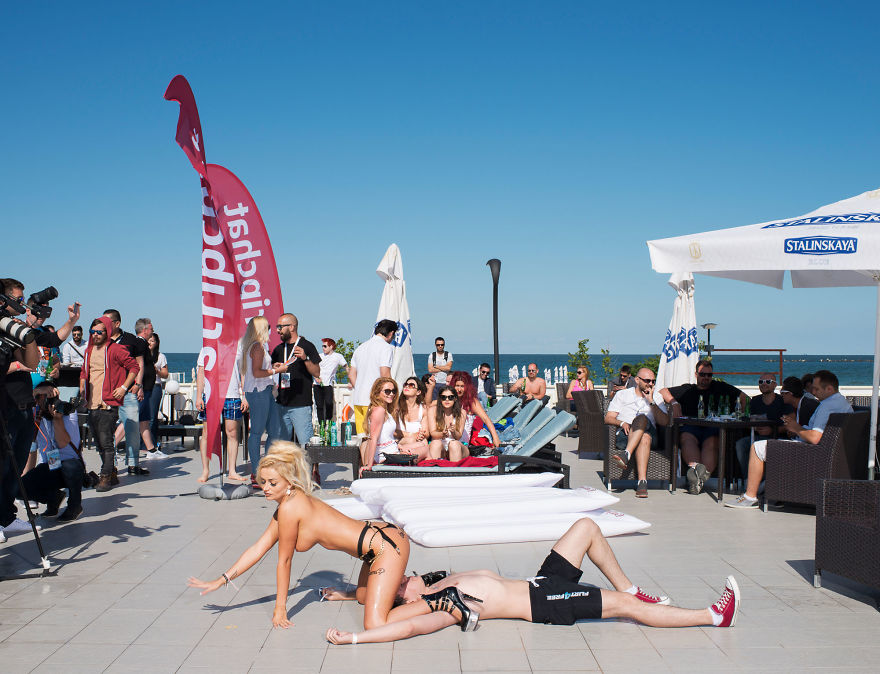It's that time of the year again when Sony announces the shortlist of the best photos competing in the biggest photography contest in the world. As always, these include best shots not only by professionals but by amateur photographers as well.
It's the tenth Sony World Photography Awards and this year it managed to outpace the record-breaking last year's event and gathered photographers from 49 countries; with the shortlist being drawn from 227,596 images, entered from 183 countries, including – for the first time – Armenia, Cuba, Iceland, and Saudi Arabia.
The winning photographers will be announced on 20 April, with the overall Photographer of the Year scooping a $25,000 cash prize plus some goodies from Sony.
More info: Sony World Photography Awards
This post may include affiliate links.
Masayasu Sakuma, Japan (Open Competition, Nature)
Diamond-Dust. This picture was taken in February in Nagano-ken at an altitude of about 1,700 meters. In Japan, February is the coldest season in a year. Diamond dust can be seen only a few times during cold season. So, it took four years to make this work since I started taking diamond dust. Orange circle is diamond dust. Diamond dust usually looks white, but it turns into orange just for the morning sunrise. I expressed the diamond dust as a silent forest fairy.
OMG! Just...OMG! I want to purchase this, frame it, and mount it on a wall in my home.
Barry Tweed-Rycroft, United Kingdom (Open Competition, Architecture)
Rob Wilson, Canada (Open Competition, Travel)
Francesco Russo, Italy (Open Competition, Nature)
Beyond dreams. The plain of Castelluccio Landscape in flowering. Sibillini Mountains National Park, Italy.
Andreas Hemb, Sweden (Open Competition, Wildlife)
At first glance I thought it was a photo of dancers/ballerinas doing a pirouette hand stand on a watery/glass stage.
Cool to see all associations you get with my image :)
Load More Replies...I love the way you have to double take to recognise what you are seeing
It's an in camera multi exposure technique used creating one raw file from 2 exposures taken directly after each other with two focus points
Load More Replies...Wow! As another fan posted....It took a second glance for me to determine what I was seeing. It is stunning!
Zhu Jianxing, China (Open Competition, Travel)
Christian Vizl, Mexico (Professional, Natural World)
Silent Kingdom. Ever since I was a kid, as far back as I can remember, I was attracted to the sea. I dreamt about what lay beneath the waves, and how would it look if suddenly all the water vanished, leaving all the animals and living creatures in stasis. In this way, I could walk within the ocean and see them all, suspended for a moment in time and space. To this day I carry within me that dream; and very gratefully realise it through my photography. Each image is a visualisation of that sublime moment whereupon the beautiful marine life around me is frozen majestically in its natural environment. My intention is to capture the essence of being immersed in the experience and presence of the animal or habitat I am photographing, and to share with others their splendour and soul. I hope the images I capture contribute to the existing corpus of underwater photography in a way that energises each of us to form our own dream of preserving and creating a better world where we value and care for all expressions of life. Ultimately our understanding and celebration of the sheer beauty and poetry of life is intrinsically linked to how we communicate and bond with the myriad configurations of life energy surrounding us. In my case, it is the ocean and its marine inhabitants which inform my observance and joy for life. I in turn communicate this through my photography of the underwater realm.
These "Will take my breath away", and those "will take my breath away", I mean if everything on BP is taking my breath away, I might be dead for some time already. Yup, fishes are great.
Meniconzi Alessandra, Switzerland (Open Competition, Wildlife)
Luo Pin Xi, China (Professional, Sport)
Shaolin Kungfu, also known as Shaolin Wushu, is one of the famous Wushu schools in China. It has a long history and profound influence, is an important part of the traditional martial arts Chinese. The most prominent feature of Shaolin Kung Fu is "Zen Wu one", namely the Zen in Wuhan, practicing meditation, so there are "Zen martial arts".
Tomasz Gudzowaty few years before won National Geographic award for the best photo series - monks in Shaolin
Lars Sivars, Sweden (Open Competition, Architecture)
NYC Light II. A Manhattan sunset. Shot from Queens across the East River. Part two in a New York Trilogy which I call "NYC Light."
Nigel Hodson, United Kingdom (Open Competition, Wildlife)
Eugene Kitsios, Netherelands (Open Competition, Wildlife)
Dina Alfasi, Israel (Open Competition, Street Photography)
Maximilian Conrad, Germany (Open Competition, Nature)
Green monster. May 16, 2016, a tornado warned high precipitation supercell storm is rolling over the town of Stratford, Texas. Its structures and color seem unreal and belong to the most dramatic I have ever witnessed in many years. I only had a few moments to find a decent spot to capture this amazing view. There was a bigger gap in the traffic along the highway so I had enough time to take a few photos. The image is a panorama of two images, further editing includes primarily color and local contrast enhancements, highlight recovery, foreground brightened up, and adding vignette.
Alexander Vinogradov, Russia (open Competition, Portraits)
Mathilda. Inspired by the movie Leon. Model: Anastasiya Marinina.
Eugene Kitsios, Netherlands (Open Competition, Wildlife)
Stacy Anguiano Cain, United States (Open Competition, Motion)
Hiroshi Tanita, Japan (Open Competition, Nature)
By Ami Vitale, United States (Natural World, Professional)
Pandas Gone Wild. Seen by few, but beloved by billions, the giant panda is one of the most recognised animals on the planet. It’s hard to imagine, but these animals, who roamed the earth for eight million years, were only discovered in the last century. Unknown, and hidden from the western world for millions of years, even today they are seen by few but known by most everyone. So secretive and mysterious was its solitary life, lived in the thickest of bamboo, in the highest of mountains, in mist and rain, governed and guided by smell rather than sight, that the giant panda has eluded easy answers, even while making its way into everyone’s heart. Giant pandas have a secret life governed by their nose, and their daily diet and breeding behaviours have made them vulnerable in today’s world. With a diet almost entirely composed of the leaves, stems and shoots of various bamboo species, their reliance on bamboo left them vulnerable to any loss of habitat. Found only in central China, the entire species came dangerously close to extinction. Scientists considered the giant panda a relic species; shy, and difficult to breed in captivity. But now there is a glimmer of hope, as years of research are finally paying off. In a region where bad environmental news is common, China cracked the code and is on its way to successfully saving its most famous ambassador. The giant panda was recently taken off the endangered species list!
Tom Jacobi, Germany (Professional, Landscape)
GREY MATTER(S). God's son was wearing grey, the colour of undyed wool, worn by peasants and the poor. Alberto Giacometti (1901-1966) never had the intention to paint only with grey, but he gave in: In the course of my work I have eliminated one colour after another and what has remained is grey, grey, grey! In 2014 the English newspaper The Guardian declared grey as the Colour of the Decade The world from dusk to dawn has been fascinating the human being from the very beginning. Since the figure of the biped appeared in prehistoric darkness, it was drawn to the purity and spirituality of that colourless world. Colours simply are reflected light, individually put together in our brain, a place also called Grey Matter. No light, no colours. By photographing our colourful world at times & places, where there is no colour, the illusion of a colourful reality is being unmasked. For two years Tom Jacobi travelled to six continents, searching for archaic landscapes - mystical places that had been shaped over thousands of years by nature, yet they seem timeless, even modern. The landscapes unfold their strength and spirituality in front of the beholder. Through the absence of the Juggler Colour the planet seems to find peace, just like it might have done long time before our existence.
Fan Chen, China (Open Competition, Wildlife)
Sorin Rechitan, Romania (Open Competition, Nature)
Achim Thomae, Germany (Open Competition, Travel)
George Mayer, Russia (Professional, Portraiture)
Light. Shadows. Perfect Woman. Arranging the delicate balance of the correlation of the dark and the light the author discovers the obvious monumentality and duality of the images of the perfect woman. Within the space of the picture, the light becomes flat and the dark becomes deeper, highlighting all conventions and details. With this approach, the geometry of light becomes not only a sculptural language but also correlates with the meaning of the subject. The concept of “the perfect” in the photographs is contradictory in nature; on the one hand, it is monumental and complete, and on the other hand it is naked and vulnerable. These opposing concepts are at the heart of the works.
Oktay Subasi, Turkey (Open Competition, Motion)
Pier Mane, Italy (Open Competition, Culture)
Walking on water. The Solomon Islands are special well beyond pristine reefs and world-class diving. It is one of the last frontiers where local tribes and indigenous populations are scattered throughout the archipelago, and proudly conduct a life where what is taken from Mother Nature is only that which is needed as a means of subsistence. I wanted a different shot than the usual underwater reef scene to capture the cultural essence of this incredible far-flung destination and its inhabitants. This is a place where it seems kids learn to paddle before they walk. I noticed canoes following my bubbles, a great opportunity to capture villagers, their canoe, the reef, and a stunning sunset as the backdrop.
Johnny Krüger, Germany (Open Competition, Wildlife)
White breasted marten. A white breasted stone marten leaping over some roots, picture taken in Czech Republic in the beginning of 2016.
Lester Koh Meng Hua, Singapore (Open Competition, Architecture)
Jianguo Gong, China (Open Competition, Culture)
Luo Pin Xi, China, (Professional, Sport)
Shaolin Kungfu, also known as Shaolin Wushu, is one of the famous Wushu schools in China. It has a long history and profound influence, is an important part of the traditional martial arts Chinese. The most prominent feature of Shaolin Kung Fu is "Zen Wu one", namely the Zen in Wuhan, practicing meditation, so there are "Zen martial arts".
Gül Yıldız, Turkey (Open Competition, Motion)
Christina Roemmelt, Germany (Open Competition, Nature)
Christian Vizl, Mexico (Professional, Natural World)
Silent Kingdom. Ever since I was a kid, as far back as I can remember, I was attracted to the sea. I dreamt about what lay beneath the waves, and how would it look if suddenly all the water vanished, leaving all the animals and living creatures in stasis. In this way, I could walk within the ocean and see them all, suspended for a moment in time and space. To this day I carry within me that dream; and very gratefully realise it through my photography. Each image is a visualisation of that sublime moment whereupon the beautiful marine life around me is frozen majestically in its natural environment. My intention is to capture the essence of being immersed in the experience and presence of the animal or habitat I am photographing, and to share with others their splendour and soul. I hope the images I capture contribute to the existing corpus of underwater photography in a way that energises each of us to form our own dream of preserving and creating a better world where we value and care for all expressions of life. Ultimately our understanding and celebration of the sheer beauty and poetry of life is intrinsically linked to how we communicate and bond with the myriad configurations of life energy surrounding us. In my case, it is the ocean and its marine inhabitants which inform my observance and joy for life. I in turn communicate this through my photography of the underwater realm.
this one is awesome! you can see so far in the water and the waves are hitting the rocks above ... so much is going on here ! love it
Frederik Buyckx, Belgium (Professional, Landscape)
Whiteout. There is a peculiar transformation of nature when winter comes, when snow and ice start to dominate the landscape and when humans and animals have to deal with the extreme weather. The series investigates this struggle against disappearance. The struggle against a whiteout. These photos were made in the Balkans, Scandinavia and Central Asia; remote areas where people often live in isolation and in close contact with nature. A harsh existence, fighting against superhuman forces.
Fanjing Lu, China (Open Competition, Travel)
Tadas Kazakevicius, Lithuania (Open Competition, Portraits)
Jan Ryser, Switzerland (Open Competition, Wildlife)
Black rhinoceros at night. The waterhole at Okaukuejo in the Etosha National Park in Namibia, is visited by black rhinoceros (Diceros bicornis) on a regular basis. This animal stood in the water at night for quite some time before drinking. The calm water allowed for reflections. The position of the flash, some 30 meters from the camera, helped reveal the structures of the body surface. The photo was taken in April 2016.
Will Burrard-Lucas, United Kingdm (Professional, Natural World)
African Wildlife at Night. My aim was to capture never-before-seen images of African wildlife at night and to show nocturnal animals such as lions and hyenas in their true element. The techniques I employed were only made possible by the low-light ability of modern-day digital cameras and by using remote-control devices such as my "BeetleCam". BeetleCam is a remote-control buggy for my camera, which I created to take close-up ground-level photographs of African wildlife. All of these images were taken in Liuwa Plain National Park, a remote area in the West of Zambia. These images were shot over the course of two trips in 2015 and first published in print and online in 2016.
Tavepong Pratoomwong, Thailand (Open Competition, Street Photography)
Metropolis. A reflection of the tree on the woman's hair in Midtown.
Alessandro Piredda, Italy (Professional, Architecture)
Darkitectures. "Darkitectures is a series of images of the most significant italian architectures, from an artistic point of view, captured at night. The voluntary memory of these pictures is a reminder of the stone not in its lifeless matter, but as the continuing of the living forms’ vital momentum. The whole project is meant to be as a work in progress."
The Duomo in Milan. Very beautiful, but heavily edited. Even if you could get special lighting for a short-exposure camera, you are missing the Arcade beside it, and the steps. Milan is also a very large city, and it never gets that dark. I think it is a shame to see the Cathedral in back and white, because when you see it in real life, the marble is multi-colored with different blues, greens and pinks.
Foley Hits, Malaysia (Open Competition, Culture)
Ami Vitale, United States (Professional, Natural World)
Pandas Gone Wild. Seen by few, but beloved by billions, the giant panda is one of the most recognised animals on the planet. It’s hard to imagine, but these animals, who roamed the earth for eight million years, were only discovered in the last century. Unknown, and hidden from the western world for millions of years, even today they are seen by few but known by most everyone. So secretive and mysterious was its solitary life, lived in the thickest of bamboo, in the highest of mountains, in mist and rain, governed and guided by smell rather than sight, that the giant panda has eluded easy answers, even while making its way into everyone’s heart. Giant pandas have a secret life governed by their nose, and their daily diet and breeding behaviours have made them vulnerable in today’s world. With a diet almost entirely composed of the leaves, stems and shoots of various bamboo species, their reliance on bamboo left them vulnerable to any loss of habitat. Found only in central China, the entire species came dangerously close to extinction. Scientists considered the giant panda a relic species; shy, and difficult to breed in captivity. But now there is a glimmer of hope, as years of research are finally paying off. In a region where bad environmental news is common, China cracked the code and is on its way to successfully saving its most famous ambassador. The giant panda was recently taken off the endangered species list!
Stéphane Couture, Canada (Open Competition, Travel)
Claudio Cantonetti, Italy (Open Competition, Architecture)
Sandra Hoyn, Germany (Professional, Daily Life)
The Longings of Others. The Kandapara brothel in the district of Tangail is the oldest and one of the largest in Bangladesh - it has existed for some 200 years. It was demolished in 2014 but has been re-established with the help of local NGOs. The brothel district is surrounded by a two-metre wall, and in the narrow streets within, there are food stalls, tea shops and street vendors. More than 700 sex workers live and work here with their children and their madams. Many of the women were either trafficked or born inside the brothel's walls and in this way their livelihood is secure. Their customers are policemen, politicians, farmers, fishermen, factory workers and groups of teenage boys. The brothel is a place with its own rules and power hierarchies, which are completely different from mainstream society. The most vulnerable stage is when a young sex worker enters the brothel, when she is called a bonded girl. Officially, sex workers must be 18 years old, but most are underage and bonded girls are usually 12 to 14 years old. They have no freedom or rights; they belong to a madam, have debts and are not allowed to go outside or keep their money. From the moment a woman has paid her debts, she is free to leave. Although prostitution inside registered brothels has been legal in Bangladesh since 2000, these women are socially stigmatised outside their "homes" and thus often choose to stay and continue supporting their families with their earnings.
Ann Ric, Malaysia (Open Competition, Nature)
Moody. DNF, Fujisan Marathon.
Ivor Prickett, Ireland (Professional, Current Affairs & News)
Caught in the Crossfire. As the fight for Mosul enters its fourth month, thousands of civilians remain caught between Iraqi and coalition forces on one side, and Islamic State group fighters on the other. Over 800,000 people are still trapped in Mosul, according to estimates from the United Nations. Tens of thousands are sheltering in neighborhoods declared liberated by Iraqi forces and many more remain in parts of the city under ISIS control. Humanitarian organisations continue to fear mass displacement and civilian casualties. Many have already made the harrowing decision to flee their homes, in some cases leaving behind the bodies of loved ones who died as the fighting came to their area and had to be buried in front gardens. The majority of the more than 130,000 people who have fled are still living in temporary camps in Iraq’s Kurdish region. Some say they are waiting for the security situation to improve, others are waiting for their homes to be rebuilt. Although well organised and supported by international organisations, the camps are isolated and winter weather has made life there very difficult for people who already endured two years of harsh rule under ISIS. While other areas of the country were largely devoid of civilians when they were finally wrested from ISIS control, the battle for Mosul is different because so many people have been told to remain inside. As a result, progress has been slow and civilian casualties, although lower than expected, are still mounting.
Placido Faranda, Italy (Open Competition, Travel)
Lady in Red. I shot this picture with my drone during a summer vacation. My wife and I spent several days in Montenegro on the Adriatic Coast, and this shot is from the cove Veslo, located at the eastern part of Luštica peninsula. This is a perfect spot where you get the feelings of coziness, privacy, and relaxation, and this is what I wanted to be reflected in my work. Unspoiled and rugged at the same time, but also a beautiful and authentic landscape is what I found here, and I hope this is what transcends through this image. Model: Nevena Mirković.
Michał Płachta, Poland (Open Competition, Culture)
Alex Andriesi (Open Competition, Enhanced)
Camilo Diaz, Colombia (Open Competition, Motion)
Carloman Céspedes Riojas, Peru (Open Competition, Portraits)
Algo casual 2. This image is a criticism of modern relationships and the distance between human beings in their daily interactions.
Swapnil Deshpande, India (Open Competition, Travel)
Josselin Cornou, France (Open Competition, Nature)
Sergey Dibtsev, Russia (Open Competition, Enhanced)
Michelle Gentile, Argentina (Student Focus)
Luo Pin Xi, China, (Professional, Sport)
Shaolin Kungfu, also known as Shaolin Wushu, is one of the famous Wushu schools in China. It has a long history and profound influence, is an important part of the traditional martial arts Chinese. The most prominent feature of Shaolin Kung Fu is "Zen Wu one", namely the Zen in Wuhan, practicing meditation, so there are "Zen martial arts".
Bar Kaufman, Israel (Open Competition, Wildlife)
By Ami Vitale, United States (Natural World, Professional)
Pandas Gone Wild. Seen by few, but beloved by billions, the giant panda is one of the most recognised animals on the planet. It’s hard to imagine, but these animals, who roamed the earth for eight million years, were only discovered in the last century. Unknown, and hidden from the western world for millions of years, even today they are seen by few but known by most everyone. So secretive and mysterious was its solitary life, lived in the thickest of bamboo, in the highest of mountains, in mist and rain, governed and guided by smell rather than sight, that the giant panda has eluded easy answers, even while making its way into everyone’s heart. Giant pandas have a secret life governed by their nose, and their daily diet and breeding behaviours have made them vulnerable in today’s world. With a diet almost entirely composed of the leaves, stems and shoots of various bamboo species, their reliance on bamboo left them vulnerable to any loss of habitat. Found only in central China, the entire species came dangerously close to extinction. Scientists considered the giant panda a relic species; shy, and difficult to breed in captivity. But now there is a glimmer of hope, as years of research are finally paying off. In a region where bad environmental news is common, China cracked the code and is on its way to successfully saving its most famous ambassador. The giant panda was recently taken off the endangered species list!
Katelyn Wang, United States (Youth Competition, Beauty)
Julien Chatelin, France (Professional, Architecture)
China West. In western China, the pace of economic development has ushered in a new and unprecedented period of transformation, one that has radically redefined the topography of the country whilst displacing significant parts of its population from rural areas to vast, newly-built mega cities. Semi-deserted landscapes carry a profound ambivalence, suggesting at the same time fecundity and sterility, a promise and nothingness. China West is a visual exploration of the impact economic development has had on western China’s landscape, focusing on the dwindling interstice left between nature and urbanisation, a space, which, perhaps more than any other, reveals the true process of change.
Olga Sinenko, Russia (Open Competition, Motion)
Dino Kuznik, Slovenia (Professional, Slovenia)
Arizona Pastels. We - human beings have put this system in place, where stress is present everywhere in our lives. At the workplace, in our social life, ... it's basically omnipresent. Especially in a big and fast city as New York it can be very hard if you don't have a counter balance to battle it and clear your mind of the negativity and anxiety that it brings. My answer to this has always been photography. When it's just me and the wast american unknown. This gives me a meditative feeling of freedom - I like to think it somewhat unshackles me of the system we put in place. No distractions, no stress, no expectations - It is my psychiatrist. It makes me more aware of my surroundings and clears my vision - I see things that are normally overlooked or seen as mundane and I enjoy each and every moment on the road usually not really having a plan on where to go but rather stumbling upon things on the way. The photographs I produce in these circumstances are a reflection of how I feel or a reflection of my state of mind, which is calm, organized, colorful, ... This series is my love letter to that feeling and the the desolate landscape - the desert
Tim Cornbill, United Kingdom (Open Competition, Architecture)
Karl Mancini, Italy (Professional, Current Affairs & News)
NI UNA MENOS. In Argentina femicide,the killing of women,it's a new category of crime recorded in the Criminal Code in 2012 and it's punished by life imprisonment.Despite the tightening of legislation,murders of women are increasing in the country.Currently, according to statistics,a woman is killed every thirty hours.In the spring of 2015, there had been a succession of atrocious crimes: women burned alive, hacked to pieces with machetes, even a pregnant woman killed by her boyfriend and buried in the garden of grandparents.In those days it was created by the feminist collective Ni una menos,a protest movement against violence towards women. Since 2015 this collective, with unprecedented success, is mobilizing the masses against gender violence.The problem is common in all the country, more in the northern provinces that are the more traditional.Particularly serious is the in the many Villas of the cities,slums located sometimes very close to the city centers where people live in poor condition,criminality is very high and the youngster are in danger.Here gender violence is also due to the patriarchal composition of the society(the majority of people are immigrants from Paraguay,Peru, Bolivia who are very traditional).Often young girls leave the family Home in which they suffer domestic violence for a love affair with people belonging to gangs who introduce them to the world of the drug or they become victims of the human traffic,kidnapped and forced to prostitution.Only In Buenos Aires there are 1500 brothels ,40000 in the country.Frequently girls between 13 and 16 get pregnant.Often police doesn't take the reports, corruption is very common and women suffer domestic and psychological violence for years.
These pictures are so hard to look at but so necessary to bring awareness to such horrible things.
Zsolt Hlinka, Hungary (Professional, Architecture)
Urban Symmetry. Urban Symmetry presents buildings on the banks of the River Danube, which are emphasized out of their surroundings and put into soundproof, homogeneous space cleaned off the whole exterior information. However, the series cannot be considered as a dry study, because it does not depict the raw reality: if you get a closer view of the photographs, you may discover that none of the pictures show the building in its full form, but only its reflected part. After all, these fictitious buildings coming into existence perfectly grab and condense their original character into themselves, as if you could see human faces and different personalities on the building portraits.
Jayanta Roy, India (Professional, Landscape)
Himalayan Odyssey. A look inside my long,ongoing and probably never ending love story with planet's largest and most diverse mountain range, The Himalayas.
Joe Raedle, United States (Professional, Current Affairs & News)
Louisiana Flooding. A historic flood, caused by a massive rainstorm, hit parts of Louisiana and overwhelmed local communities, causing thirteen deaths and damaging thousands of homes with flood waters.
Mariusz Stanosz, Poland (Open Competition, Motion)
Mariusz Prusaczyk, Poland (Professional, Natural World)
Surrealistic industrial lake in Poland. Industrial activity in Poland. View from above.
Javier Arcenillas, Spain (Professional, Current Affairs & News)
Latidoamerica. The war is over, but in the Central American country's murder rate keeps growing like its neighbor, Honduras. In one of the most violent places in the world, youth gangs terrorize a population that does not expect much of anything. Failed hardline strategies and political negotiation, gangs have retaken the streets and manage chaos.
For those who haven't seen it yet - I reccomend La Vida Loca (documentary film) - It's a great introduction to this issue
Salvatore Mazzeo, Italy (Open Competition, Culture)
Nader Saadallah, Egypt (Professional, Daily Life)
Quarries's men is a portfolio about white limestone quarries craft in Minya, Egypt and how are the workers can make and shape these Stone from the white mountain. There are four phases. The first is the equalization of mountain with a big winches and spikes. The second phase is the shaping, there's a machine which called "El fasalah" which cut and partition the mountain to stone blocks " 13*26 cm" . The third phase is the extracting, there's a machine which called "El hashasha " which extract the final result of the stones as a free blocks that ready to use, The fourth and final one is the filling, after that the workers are filling it into the vehicles to be ready for trading in the market.
Beniamino Pisati, Italy (Open Competition, Culture)
Luo Pin Xi, China, (Professional, Sport)
Shaolin Kungfu, also known as Shaolin Wushu, is one of the famous Wushu schools in China. It has a long history and profound influence, is an important part of the traditional martial arts Chinese. The most prominent feature of Shaolin Kung Fu is "Zen Wu one", namely the Zen in Wuhan, practicing meditation, so there are "Zen martial arts".
Miyono Okamoto, Japan (Open Competition, Nature)
Gao Peng, China (Professional, Conceptual)
Illusion. I shot common people and natural views, combined together in one scene, forging “funny” or “meaningful” pictures. An artist creates a piece of his or her reflection of the world, which could also be the illusion you hold in your heart.
Tom Jacobi, Germany (Professional, Landscape)
GREY MATTER(S). God's son was wearing grey, the colour of undyed wool, worn by peasants and the poor. Alberto Giacometti (1901-1966) never had the intention to paint only with grey, but he gave in: In the course of my work I have eliminated one colour after another and what has remained is grey, grey, grey! In 2014 the English newspaper The Guardian declared grey as the Colour of the Decade The world from dusk to dawn has been fascinating the human being from the very beginning. Since the figure of the biped appeared in prehistoric darkness, it was drawn to the purity and spirituality of that colourless world. Colours simply are reflected light, individually put together in our brain, a place also called Grey Matter. No light, no colours. By photographing our colourful world at times & places, where there is no colour, the illusion of a colourful reality is being unmasked. For two years Tom Jacobi travelled to six continents, searching for archaic landscapes - mystical places that had been shaped over thousands of years by nature, yet they seem timeless, even modern. The landscapes unfold their strength and spirituality in front of the beholder. Through the absence of the Juggler Colour the planet seems to find peace, just like it might have done long time before our existence.GREY MATTER(S) God's son was wearing grey, the colour of undyed wool, worn by peasants and the poor. Alberto Giacometti (1901-1966) never had the intention to paint only with grey, but he gave in: In the course of my work I have eliminated one colour after another and what has remained is grey, grey, grey! In 2014 the English newspaper The Guardian declared grey as the Colour of the Decade The world from dusk to dawn has been fascinating the human being from the very beginning. Since the figure of the biped appeared in prehistoric darkness, it was drawn to the purity and spirituality of that colourless world. Colours simply are reflected light, individually put together in our brain, a place also called Grey Matter. No light, no colours. By photographing our colourful world at times & places, where there is no colour, the illusion of a colourful reality is being unmasked. For two years Tom Jacobi travelled to six continents, searching for archaic landscapes - mystical places that had been shaped over thousands of years by nature, yet they seem timeless, even modern. The landscapes unfold their strength and spirituality in front of the beholder. Through the absence of the Juggler Colour the planet seems to find peace, just like it might have done long time before our existence.
Asger Ladefoged, Denmark (Professional, Daily Life)
Alternative teaching. What happens, when 28 schoolchildren meet the controversial Danish therapist Carl-Mar Møller and are encouraged to play freely without rules? A sixth grade class from Øster Farimagsgade, a School in Copenhagen has done it twice. They went from the posh part of central Copenhagen to muddy wildness in Kokkedal, Denmark.
Vito Leone, Italy (Open Competition, Culture)
Dino Kuznik, Slovenia (Professional, Landscape)
Arizona Pastels. We - human beings have put this system in place, where stress is present everywhere in our lives. At the workplace, in our social life, ... it's basically omnipresent. Especially in a big and fast city as New York it can be very hard if you don't have a counter balance to battle it and clear your mind of the negativity and anxiety that it brings. My answer to this has always been photography. When it's just me and the wast american unknown. This gives me a meditative feeling of freedom - I like to think it somewhat unshackles me of the system we put in place. No distractions, no stress, no expectations - It is my psychiatrist. It makes me more aware of my surroundings and clears my vision - I see things that are normally overlooked or seen as mundane and I enjoy each and every moment on the road usually not really having a plan on where to go but rather stumbling upon things on the way. The photographs I produce in these circumstances are a reflection of how I feel or a reflection of my state of mind, which is calm, organized, colorful, ... This series is my love letter to that feeling and the the desolate landscape - the desert
Will Burrard-Lucas, United Kingdom (Professional, Natural World)
African Wildlife at Night. My aim was to capture never-before-seen images of African wildlife at night and to show nocturnal animals such as lions and hyenas in their true element. The techniques I employed were only made possible by the low-light ability of modern-day digital cameras and by using remote-control devices such as my "BeetleCam". BeetleCam is a remote-control buggy for my camera, which I created to take close-up ground-level photographs of African wildlife. All of these images were taken in Liuwa Plain National Park, a remote area in the West of Zambia. These images were shot over the course of two trips in 2015 and first published in print and online in 2016.
Emrah Karakoç, Turkey (Open Competition, Culture)
Saeid Moridi, Iran (Open Competition, Portraits)
Ivor Prickett, Ireland (Professional, Current Affairs & News)
Caught in the Crossfire. As the fight for Mosul enters its fourth month, thousands of civilians remain caught between Iraqi and coalition forces on one side, and Islamic State group fighters on the other. Over 800,000 people are still trapped in Mosul, according to estimates from the United Nations. Tens of thousands are sheltering in neighborhoods declared liberated by Iraqi forces and many more remain in parts of the city under ISIS control. Humanitarian organisations continue to fear mass displacement and civilian casualties. Many have already made the harrowing decision to flee their homes, in some cases leaving behind the bodies of loved ones who died as the fighting came to their area and had to be buried in front gardens. The majority of the more than 130,000 people who have fled are still living in temporary camps in Iraq’s Kurdish region. Some say they are waiting for the security situation to improve, others are waiting for their homes to be rebuilt. Although well organised and supported by international organisations, the camps are isolated and winter weather has made life there very difficult for people who already endured two years of harsh rule under ISIS. While other areas of the country were largely devoid of civilians when they were finally wrested from ISIS control, the battle for Mosul is different because so many people have been told to remain inside. As a result, progress has been slow and civilian casualties, although lower than expected, are still mounting.
Tim Topple, United Kingdom (Open Competition, Portraits)
The Cub. My daughter at home (mid-2016), oblivious and lost in a dream moment. It’s one of the more serene images from an ongoing project where I aim to capture the fleeting micro-events that form a part of family life.
Yulia Grigoryants, Armenia (Professional, Daily Life)
Inhabitants of the Empty. "In 1988, a 7.0 Richter-scale earthquake struck northern Armenia. The quake killed at least 25,000 people in the region. Thousands more were maimed and hundreds of thousands left homeless. Gyumri, Armenia's second largest city bore much of the damage. Large-scale war by the early 1990s, the collapse of the Soviet Union, an energy shortage, and a blockade that left landlocked Armenia with just two open borders contributed to exacerbating the region's already prevalent social and economic problems. A quarter of a century later, Gyumri has the country's highest poverty rate at 47.7%. The city has lost nearly half of its population since 1988, due in part to the migration of the labor force. A few thousand families are still living in makeshift shelters, waiting for help. Many of them are not eligible for new housing, since they are not considered to be direct victims of the earthquake. 25 years later, they are still waiting for urgently needed improvements to their dwellings. During the Soviet era, these huge twin dormitory buildings on the outskirts of Gyumri accommodated around 60 families each. Today there are just four families living here, among decaying walls and corridors."
Ami Vitale, United States (Professional, Natural World)
Pandas Gone Wild. Seen by few, but beloved by billions, the giant panda is one of the most recognised animals on the planet. It’s hard to imagine, but these animals, who roamed the earth for eight million years, were only discovered in the last century. Unknown, and hidden from the western world for millions of years, even today they are seen by few but known by most everyone. So secretive and mysterious was its solitary life, lived in the thickest of bamboo, in the highest of mountains, in mist and rain, governed and guided by smell rather than sight, that the giant panda has eluded easy answers, even while making its way into everyone’s heart. Giant pandas have a secret life governed by their nose, and their daily diet and breeding behaviours have made them vulnerable in today’s world. With a diet almost entirely composed of the leaves, stems and shoots of various bamboo species, their reliance on bamboo left them vulnerable to any loss of habitat. Found only in central China, the entire species came dangerously close to extinction. Scientists considered the giant panda a relic species; shy, and difficult to breed in captivity. But now there is a glimmer of hope, as years of research are finally paying off. In a region where bad environmental news is common, China cracked the code and is on its way to successfully saving its most famous ambassador. The giant panda was recently taken off the endangered species list!
Tom Jacobi, Germany (Professional, Landscape)
GREY MATTER(S). God's son was wearing grey, the colour of undyed wool, worn by peasants and the poor. Alberto Giacometti (1901-1966) never had the intention to paint only with grey, but he gave in: In the course of my work I have eliminated one colour after another and what has remained is grey, grey, grey! In 2014 the English newspaper The Guardian declared grey as the Colour of the Decade The world from dusk to dawn has been fascinating the human being from the very beginning. Since the figure of the biped appeared in prehistoric darkness, it was drawn to the purity and spirituality of that colourless world. Colours simply are reflected light, individually put together in our brain, a place also called Grey Matter. No light, no colours. By photographing our colourful world at times & places, where there is no colour, the illusion of a colourful reality is being unmasked. For two years Tom Jacobi travelled to six continents, searching for archaic landscapes - mystical places that had been shaped over thousands of years by nature, yet they seem timeless, even modern. The landscapes unfold their strength and spirituality in front of the beholder. Through the absence of the Juggler Colour the planet seems to find peace, just like it might have done long time before our existence.
Ioana Moldovan, Romania (Professional, Daily Life)
A country doctor and her calling."Good day, doctor! Good evening, doctor, voices of people of all ages greet her kindly as Floarea Ciupitu walks around the village. At 61 she has been a family doctor serving Gangiova, a village in south-west Romania for the past three decades. Ciupitu oversees roughly 1700 registered patients. On week days she sleeps above her practice in a tiny room, on an old hospital bed. At night, a tiny flashlight guides her way one store up to her modest accommodation, no electricity on the staircase. Romania has a population of almost 20 million. Doctors in rural areas are outnumbered by peers in cities two to one, while half of the population lives in the countryside. The healthcare sector is overrun with crises and never ending problems. In 27 years since the anticommunist revolution of 1989 the country has had at least 25 health ministers take office. Doctors, especially younger ones, are fleeing the country in search of better work conditions and career opportunities. The Romanian Health Ministry states there is a severe doctors shortage. While things may look a little better in the city, Romania's villages are plagued with a lack of access to healthcare. Family doctors are often overworked having to care for a larger number of patients than the recommended average. Ciupitu is living proof that, despite all the difficulties and the problems in a flawed system, there still are doctors who commit to their patients. She stands to help remember that being a doctor is a calling."
João San, Brazil (Professional, Conceptual)
Jan-Ken-Pon. I am a storyteller. And JAN-KEN-PON is a story of this series of images inspired by the universal children's game "Rock, Paper, Scissors" where outcomes are determined entirely by chance, luck or fate. These "PhotoSculptures" approach the game from a different perspective, freezing the rock, paper and scissors in time, and giving viewers the choice to either ignore or follow the rules. they are invited to participate in the story and decide the fate of the rock, paper and scissors. For these brief instants, fate is in our hands. Or maybe not.
Oscar Lopez, Germany (Open Competition, Architecture)
Toby Binder, Germany (Professional, Daily Life)
Youth of the UK. "The young are the future. But young people suffer higher rates in unemployment, injustice and violence than all other groups in their society. Especially deprived neighbourhoods of former industrial cities within the UK had huge problems with drug abuse, gang fights and teenage pregnancies at a disproportionately high level compared to the rest of Europe. Several government programms improved the situation within the last ten years and both offences committed by 16-17s and alcohol and drug taking of 16-24s dropped. But unemployment and the related lack of perspectives remain a big issue. Young people are nearly three times more likely to be unemployed than the rest of the population – in Northern Ireland and Scotland even more. It has clearly emerged as one of the main reasons for sliding into delinquency. In 2011 youth surveys analyzed that around 2-7% of young people aged between 10 and 19 years report being a gang member. This small group have a disproportionate impact on the communities around them. I met youths of Glasgow, Edinburgh and Belfast mainly on the streets. Playing football, cards and marbles but the older ones also smoking, drinking and selling and using drugs. I’ve been talking to them about their wishes and fears of the future and captured this overall picture of a generation in my photo essay. The Brexit decision at the 2016 EU Referendum will have significant economic, social, political and cultural consequences – and none more so than for the futures of these young people."
Frederik Buyckx, Belgium (Professional, Landscape)
Whiteout. There is a peculiar transformation of nature when winter comes, when snow and ice start to dominate the landscape and when humans and animals have to deal with the extreme weather. The series investigates this struggle against disappearance. The struggle against a whiteout. These photos were made in the Balkans, Scandinavia and Central Asia; remote areas where people often live in isolation and in close contact with nature. A harsh existence, fighting against superhuman forces.
Mark Gong, United States (Professional, Sport)
Submission. "Focusing on the sport of No-Gi submission wrestling, the series focuses on the intricacies of this intense and technical sport. In what looks like a complicated knot of limbs and appendages is where brute force meets skill. I wanted to examine the moments and complexities of this sport by focusing on the points of contact between two rivals."
Ivor Prickett, Ireland (Professional, Current Affairs & News)
Caught in the Crossfire. As the fight for Mosul enters its fourth month, thousands of civilians remain caught between Iraqi and coalition forces on one side, and Islamic State group fighters on the other. Over 800,000 people are still trapped in Mosul, according to estimates from the United Nations. Tens of thousands are sheltering in neighborhoods declared liberated by Iraqi forces and many more remain in parts of the city under ISIS control. Humanitarian organisations continue to fear mass displacement and civilian casualties. Many have already made the harrowing decision to flee their homes, in some cases leaving behind the bodies of loved ones who died as the fighting came to their area and had to be buried in front gardens. The majority of the more than 130,000 people who have fled are still living in temporary camps in Iraq’s Kurdish region. Some say they are waiting for the security situation to improve, others are waiting for their homes to be rebuilt. Although well organised and supported by international organisations, the camps are isolated and winter weather has made life there very difficult for people who already endured two years of harsh rule under ISIS. While other areas of the country were largely devoid of civilians when they were finally wrested from ISIS control, the battle for Mosul is different because so many people have been told to remain inside. As a result, progress has been slow and civilian casualties, although lower than expected, are still mounting.
John Chen, China (Open Competition, Enhanced)
Yong Lin Tan, Malaysia (Open Competition, Enhanced)
Elzbieta Kurowska, Canada (Open Competition, Nature)
Cole Ndelu, South Africa (Student Focus)
Yuan Peng, China (Professional, Sport)
The twins' gymnastics dream. This series was taken in a sports school in Jining, in Shandong province, China. Liu Bingqing and Liu Yujie are twin sisters, who have liked gymnastics since their childhood. They have studied, trained and grown up here.
Romina Ressia, Argentina (Professional, Portraiture)
I Know What Beauty Looks Like. This project explores the idea of beauty.
Th androgeny in this photo can have so much open to interpret to the viewer....the unfilled bra speaks to me about how many view themselves as less than desirable without large breasts.
Adi Bulboacă, Romania (Professional, Architecture)
Silver Beach Hotel. "I had the chance to spend 4 days in the Silver Beach Hotel in November 2016, off the shore of Lake Balaton in Hungary. It's very much a summer resort, so I found myself out of season while working as a set photographer for a film. Built between 1978 and 1983, the hotel was designed by the brutalist architect Tillai Ernő. All the rooms were obviously vacant, so I was able to snoop around and explore the entire resort to my heart's content. The place has a retro feel to it, and a soothing patina that I hope I was able to capture. I was fascinated by how stark yet visually inviting this ""anachronistic"" hotel could be."
Wilson Lee, Hong Kong (Open Competition, Still Life)
Ami Vitale, United States (Professional, Natural World)
Pandas Gone Wild. Seen by few, but beloved by billions, the giant panda is one of the most recognised animals on the planet. It’s hard to imagine, but these animals, who roamed the earth for eight million years, were only discovered in the last century. Unknown, and hidden from the western world for millions of years, even today they are seen by few but known by most everyone. So secretive and mysterious was its solitary life, lived in the thickest of bamboo, in the highest of mountains, in mist and rain, governed and guided by smell rather than sight, that the giant panda has eluded easy answers, even while making its way into everyone’s heart. Giant pandas have a secret life governed by their nose, and their daily diet and breeding behaviours have made them vulnerable in today’s world. With a diet almost entirely composed of the leaves, stems and shoots of various bamboo species, their reliance on bamboo left them vulnerable to any loss of habitat. Found only in central China, the entire species came dangerously close to extinction. Scientists considered the giant panda a relic species; shy, and difficult to breed in captivity. But now there is a glimmer of hope, as years of research are finally paying off. In a region where bad environmental news is common, China cracked the code and is on its way to successfully saving its most famous ambassador. The giant panda was recently taken off the endangered species list!
The keepers wear Panda costumes when interacting with rescued Pandas to help them prepare for one day being released to the wild. They don't want them to associate Humans with food and care.
Tom Jacobi, Germany (Professional, Landscape)
GREY MATTER(S). God's son was wearing grey, the colour of undyed wool, worn by peasants and the poor. Alberto Giacometti (1901-1966) never had the intention to paint only with grey, but he gave in: In the course of my work I have eliminated one colour after another and what has remained is grey, grey, grey! In 2014 the English newspaper The Guardian declared grey as the Colour of the Decade The world from dusk to dawn has been fascinating the human being from the very beginning. Since the figure of the biped appeared in prehistoric darkness, it was drawn to the purity and spirituality of that colourless world. Colours simply are reflected light, individually put together in our brain, a place also called Grey Matter. No light, no colours. By photographing our colourful world at times & places, where there is no colour, the illusion of a colourful reality is being unmasked. For two years Tom Jacobi travelled to six continents, searching for archaic landscapes - mystical places that had been shaped over thousands of years by nature, yet they seem timeless, even modern. The landscapes unfold their strength and spirituality in front of the beholder. Through the absence of the Juggler Colour the planet seems to find peace, just like it might have done long time before our existence.
Alessandro Piredda, Italy (Professional, Architecture)
Darkitectures. "Darkitectures is a series of images of the most significant italian architectures, from an artistic point of view, captured at night. The voluntary memory of these pictures is a reminder of the stone not in its lifeless matter, but as the continuing of the living forms’ vital momentum. The whole project is meant to be as a work in progress."
José María Pérez, Argentina (Open Competition, Travel)
Julien Chatelin, France (Professional, Architecture)
China West. In western China, the pace of economic development has ushered in a new and unprecedented period of transformation, one that has radically redefined the topography of the country whilst displacing significant parts of its population from rural areas to vast, newly-built mega cities. Semi-deserted landscapes carry a profound ambivalence, suggesting at the same time fecundity and sterility, a promise and nothingness. China West is a visual exploration of the impact economic development has had on western China’s landscape, focusing on the dwindling interstice left between nature and urbanisation, a space, which, perhaps more than any other, reveals the true process of change.
Mark Languido Vicente, Filippines (Open Competition, Culture)
Stark contrast between photo 99 & 100... babies should be babies. This makes me unbelievably sad
Ge Wang, China (Open Competition, Street Photography)
Joe Raedle, United States (Professional, Current Affairs & News)
Louisiana Flooding. A historic flood, caused by a massive rainstorm, hit parts of Louisiana and overwhelmed local communities, causing thirteen deaths and damaging thousands of homes with flood waters.
Li Song, China (Professional, Contemporary Issues)
I want to have an ordinary life. In November 2016, Li Hang, an eleven-year-old boy from Harbin, arrived at Changchun weight loss centre determined to lose weight. He had been diagnosed with Prader-Willi Syndrome when he was 3 years old, and on admission, his weight had reached 155 kilograms. Prader-Willi Syndrome is a disease related to an abnormality in chromosome 15, and in around 70% of patients is inherited from their father. It occurs in 1 in 15000 people. Li Hang was being treated with traditional Chinese medicine every day, including massage, acupuncture, fire treatment and cupping therapy. Aside from medical techniques, Li Hang also did a great deal of exercise daily with the fitness instructor. From his initial fear, and throughout the process, Li Hang has been greatly tormented, but he is supported by his faith in doing what is necessary to live a normal person’s life.
Javier Arcenillas, Spain (Professional, Contemporary Issues)
Rivera Hernandez in the second city of Honduras, lives in constant war. With five warring gangs and a rate of three bodies of average daily routine is an exercise in survival.
Tong Chun Kin, Tomy, Hong Kong (Open Competition, Enhanced)
Eduard Korniyenko, Russia (Professional, Sport)
Jason O'brien, Australia (Professional, Sport)
"Superman" - Gael Monfils dives at Australian Open 2016 I was commissioned by Reuters to cover the 2016 Australian Open Tennis Tournament in Melbourne. On this day I was positioned on the 'Catwalk' which is high above the stands, and looks directly down onto the court. Gael Monfils from France was in action in his fourth round match when he dived horizontally off the ground in a desperate bid to get to a ball hit by his opponent Andrey Kuznetsov. The spectacular action of Monfils diving combined with the clean background and nice light made for a memorable sequence of images.
Yulia Grigoryants, Armenia (Professional, Daily Life)
Inhabitants of the Empty. "In 1988, a 7.0 Richter-scale earthquake struck northern Armenia. The quake killed at least 25,000 people in the region. Thousands more were maimed and hundreds of thousands left homeless. Gyumri, Armenia's second largest city bore much of the damage. Large-scale war by the early 1990s, the collapse of the Soviet Union, an energy shortage, and a blockade that left landlocked Armenia with just two open borders contributed to exacerbating the region's already prevalent social and economic problems. A quarter of a century later, Gyumri has the country's highest poverty rate at 47.7%. The city has lost nearly half of its population since 1988, due in part to the migration of the labor force. A few thousand families are still living in makeshift shelters, waiting for help. Many of them are not eligible for new housing, since they are not considered to be direct victims of the earthquake. 25 years later, they are still waiting for urgently needed improvements to their dwellings. During the Soviet era, these huge twin dormitory buildings on the outskirts of Gyumri accommodated around 60 families each. Today there are just four families living here, among decaying walls and corridors."
Ioana Moldovan, Romania (Professional, Daily Life)
A country doctor and her calling"Good day, doctor! Good evening, doctor, voices of people of all ages greet her kindly as Floarea Ciupitu walks around the village. At 61 she has been a family doctor serving Gangiova, a village in south-west Romania for the past three decades. Ciupitu oversees roughly 1700 registered patients. On week days she sleeps above her practice in a tiny room, on an old hospital bed. At night, a tiny flashlight guides her way one store up to her modest accommodation, no electricity on the staircase. Romania has a population of almost 20 million. Doctors in rural areas are outnumbered by peers in cities two to one, while half of the population lives in the countryside. The healthcare sector is overrun with crises and never ending problems. In 27 years since the anticommunist revolution of 1989 the country has had at least 25 health ministers take office. Doctors, especially younger ones, are fleeing the country in search of better work conditions and career opportunities. The Romanian Health Ministry states there is a severe doctors shortage. While things may look a little better in the city, Romania's villages are plagued with a lack of access to healthcare. Family doctors are often overworked having to care for a larger number of patients than the recommended average. Ciupitu is living proof that, despite all the difficulties and the problems in a flawed system, there still are doctors who commit to their patients. She stands to help remember that being a doctor is a calling."
Ruby Gaunt, United Kingdom (Student Focus)
Jian Seng Soh, Malaysia (Open Competition, Street Photography)
Mahesh Shantaram, India (Professional, Portraiture)
Racism in India: The African Portraits. "Anywhere in the world, it takes a black person to tell us what racism really feels like. On January 31st, 2016, India woke up to yet another news of a shocking mob attack against a Tanzanian student. This particular one was appalling enough to earn international press and force the nation into a period of soul-searching. Since the incident, I've been travelling across the country to meet Africans and learn about their experiences. I make portraits as a personal response to give them recognition. “It's as if they don't accept us as human beings,†is what I keep hearing amidst all the heartrending stories. “Some of us are from royal families, but here we are treated like shit,†one person told me. I feel passionately for this developing project because it carries such a relevant and urgent message. It is about Africans, but it is just as much about India and its chronic racism problem that has thus far not received enough airtime. A country that aspires to be a superpower is now at the cusp of coming to terms with good old fashioned racism. Through my project, I seek to put Africans as well as the racism they face in the consciousness of the Indian public."
Joe Raedle, United States (Professional, Current Affairs & News)
Louisiana Flooding. A historic flood, caused by a massive rainstorm, hit parts of Louisiana and overwhelmed local communities, causing thirteen deaths and damaging thousands of homes with flood waters.
might want to start considering cremation instead of burial in a crypt or the ground if you live in LA
Frank Machalowski, Germany (Open Competition, Architecture)
Ute Scherhag, Germany (Open Competition, Architecture)
Asger Ladefoged, Denmark (Professional, Daily Life)
Alternative teaching. What happens, when 28 schoolchildren meet the controversial Danish therapist Carl-Mar Møller and are encouraged to play freely without rules? A sixth grade class from Øster Farimagsgade, a School in Copenhagen has done it twice. They went from the posh part of central Copenhagen to muddy wildness in Kokkedal, Denmark.
Adi Bulboacă, Romania (Professional, Architecture)
Silver Beach Hotel. "I had the chance to spend 4 days in the Silver Beach Hotel in November 2016, off the shore of Lake Balaton in Hungary. It's very much a summer resort, so I found myself out of season while working as a set photographer for a film. Built between 1978 and 1983, the hotel was designed by the brutalist architect Tillai Ernő. All the rooms were obviously vacant, so I was able to snoop around and explore the entire resort to my heart's content. The place has a retro feel to it, and a soothing patina that I hope I was able to capture. I was fascinated by how stark yet visually inviting this "anachronistic" hotel could be."
Helen Kiparissa, Greece (Youth Competition, Beauty)
Anisleidy Martínez Fonseca, Cuba (Open Competition, Portraits)
Sergey Dibtsev, Russia (Open Competition, Still Life)
Dongni, China (Professional, Architecture)
Space & city. Rules ordering a regular intensive repetition sum up the feeling of the modern city. A variety of urban form and minimalist architecture breaks the old structure, splitting it into triangles, squares and diamond shapes, refracting a new living style on extant spatial structures. Demonstrating a free use of the language of visual forms, it appears like a game, similar to Goldbach's conjecture; the destruction of the ossified template of the city, a visual exploration of breaking the rules. In a spatial context, when we ignore the aesthetics of the city, ignore the rules and celebrate the deconstruction and reconstruction of the urban space, the space itself gives us more control and adds more joy to the city.
Shravya Kag, United States (Student Focus)
Alice Cannara Malan, Italy (Professional, Daily Life)
My (m)other. The project is a personal reflection on the relationships between family members. My family was the core of my research. The aim was to capture dynamics typical in families. What I found was how much hiding occurs in family relationships; hiding one another’s uncertainty, suffering, character flaws and, of course, love. My father Pier Paolo is 56 years old and almost deaf. Much as we love each other, we don’t understand each other. I have contradictory feelings about him; but mainly I wish I could save him from his readiness to shoulder the loads of others, although this is his dominant trait. My sister Sofia is 24 years old and lonely. I feel constantly guilty because of her jealousy of my relationship with our mother; she even doubts our mother’s love for her. Over the years my relationship with my mother has taught me much. I discovered how important the context in which a person grows up is, how this changes the way they see the world around them and, most importantly, how it influences the way they relate to others. After a long personal journey, I can now recognise my father as an authority, see my sister as the unique person that she is and look at my mother as a person separate from me. This collection of photographs is a work in progress. To me, they represent a way to overcome my past, to forge my own path.
Toby Binder, Germany (Professional, Daily Life)
Youth of the UK. "The young are the future. But young people suffer higher rates in unemployment, injustice and violence than all other groups in their society. Especially deprived neighbourhoods of former industrial cities within the UK had huge problems with drug abuse, gang fights and teenage pregnancies at a disproportionately high level compared to the rest of Europe. Several government programms improved the situation within the last ten years and both offences committed by 16-17s and alcohol and drug taking of 16-24s dropped. But unemployment and the related lack of perspectives remain a big issue. Young people are nearly three times more likely to be unemployed than the rest of the population – in Northern Ireland and Scotland even more. It has clearly emerged as one of the main reasons for sliding into delinquency. In 2011 youth surveys analyzed that around 2-7% of young people aged between 10 and 19 years report being a gang member. This small group have a disproportionate impact on the communities around them. I met youths of Glasgow, Edinburgh and Belfast mainly on the streets. Playing football, cards and marbles but the older ones also smoking, drinking and selling and using drugs. I’ve been talking to them about their wishes and fears of the future and captured this overall picture of a generation in my photo essay. The Brexit decision at the 2016 EU Referendum will have significant economic, social, political and cultural consequences – and none more so than for the futures of these young people."
Deutsche Bank, Bank of Cypress, Bank of Amerikkka in league with Putin, Trump and others dictate that the working people need to be much poorer before they finish with us. Oh, the money to fix things is there - but the 1% must have all of it.
Amber Bracken, Canada (Professional, Contemporary Issues)
Standing Rock. "For nearly ten months, members of the Standing Rock Sioux tribe and their allies have been camped in opposition to the Dakota Access Pipeline crossing their land and water. The estimated $3.78 bill project is nearly complete, crossing almost 1,172 miles. But the resistance has stalled development at the Missouri River. Although on it's face, the issue is the pipeline, the conflict runs much deeper and is steeped in generations of violent history. These are the people of the Battle of Little Big Horn and of Wounded Knee, who were driven to starvation by the loss of the buffalo and away from their sacred Black Hills. Police treatment of water protectors hasn't been out of step with this history. In military vehicles and body armour, police have indiscriminately used tear gas, pepper spray, rubber bullets, percussion grenades and water canons in sub-zero temperature. Despite all of this, the pipeline is still unresolved and water protectors are still on the land. But wether the pipeline is completed or not, the groundswell created for this resistance will certainly have reverberations for industry and indigenous people alike. I spent a month and a half, over three trips with the people in the camps."
Ivor Prickett, Ireland (Professional, Current Affairs & News)
Caught in the Crossfire. As the fight for Mosul enters its fourth month, thousands of civilians remain caught between Iraqi and coalition forces on one side, and Islamic State group fighters on the other. Over 800,000 people are still trapped in Mosul, according to estimates from the United Nations. Tens of thousands are sheltering in neighborhoods declared liberated by Iraqi forces and many more remain in parts of the city under ISIS control. Humanitarian organisations continue to fear mass displacement and civilian casualties. Many have already made the harrowing decision to flee their homes, in some cases leaving behind the bodies of loved ones who died as the fighting came to their area and had to be buried in front gardens. The majority of the more than 130,000 people who have fled are still living in temporary camps in Iraq’s Kurdish region. Some say they are waiting for the security situation to improve, others are waiting for their homes to be rebuilt. Although well organised and supported by international organisations, the camps are isolated and winter weather has made life there very difficult for people who already endured two years of harsh rule under ISIS. While other areas of the country were largely devoid of civilians when they were finally wrested from ISIS control, the battle for Mosul is different because so many people have been told to remain inside. As a result, progress has been slow and civilian casualties, although lower than expected, are still mounting.
Ren Shi Chen, China (Professional, Portraiture)
Gansu province in 2015. China has 61.0255 million rural ‘left-behind’ children, whose parents have moved to the city and they are experiencing significant challenges. 80% of left-behind children who are bullied don't know who to tell, whilst 90% who experience any difficulty at all do not tell their absent parents. Chinese courts have reported that crimes committed by minors have risen 13% per year on average over the past few years, and left-behind children account for about 70% of crime by minors, including 5% of all violent crime by minors. Focusing on the healthy growth of left-behind children is an important responsibility and challenge.
Ralph Gräf, Germany (Open Competition, Travel)
Ioana Moldovan, Romania (Professional, Daily Life)
A country doctor and her calling"Good day, doctor! Good evening, doctor, voices of people of all ages greet her kindly as Floarea Ciupitu walks around the village. At 61 she has been a family doctor serving Gangiova, a village in south-west Romania for the past three decades. Ciupitu oversees roughly 1700 registered patients. On week days she sleeps above her practice in a tiny room, on an old hospital bed. At night, a tiny flashlight guides her way one store up to her modest accommodation, no electricity on the staircase. Romania has a population of almost 20 million. Doctors in rural areas are outnumbered by peers in cities two to one, while half of the population lives in the countryside. The healthcare sector is overrun with crises and never ending problems. In 27 years since the anticommunist revolution of 1989 the country has had at least 25 health ministers take office. Doctors, especially younger ones, are fleeing the country in search of better work conditions and career opportunities. The Romanian Health Ministry states there is a severe doctors shortage. While things may look a little better in the city, Romania's villages are plagued with a lack of access to healthcare. Family doctors are often overworked having to care for a larger number of patients than the recommended average. Ciupitu is living proof that, despite all the difficulties and the problems in a flawed system, there still are doctors who commit to their patients. She stands to help remember that being a doctor is a calling."
Asger Ladefoged, Denmark (Professional, Current Affairs & News)
The fight for Mosul. The Iraqi officials thought they could overtake the city of Mosul within a few months but nothing turned out as expected - the scale of death and destruction have surprised everyone but ISIS.
Adi Bulboacă, Romania (Professional, Architecture)
Silver Beach Hotel. "I had the chance to spend 4 days in the Silver Beach Hotel in November 2016, off the shore of Lake Balaton in Hungary. It's very much a summer resort, so I found myself out of season while working as a set photographer for a film. Built between 1978 and 1983, the hotel was designed by the brutalist architect Tillai Ernő. All the rooms were obviously vacant, so I was able to snoop around and explore the entire resort to my heart's content. The place has a retro feel to it, and a soothing patina that I hope I was able to capture. I was fascinated by how stark yet visually inviting this "anachronistic" hotel could be."
Dario Mitidieri, Italy (Professional, Portraiture)
Lost Family Portraits. "March 2017 will mark the 6th anniversary of the beginning of the war in Syria. More than 470,000 people have died since. In all, 11.5% of the country's population have either been killed or injured. 45% of the population have been displaced, 6.36 million internally and 4.8 million abroad. This is the biggest humanitarian emergency of our era. Lost Family Portraits aims to tell the story of those who have lost family members in the Syrian war, and who have made their way to the refugee camps in the Bekaa Valley, Lebanon. The empty chairs or spaces in the photographs symbolise the missing family members. Lost Families Portraits is a reminder of the of the destructive power that war has over families. It is also a testimony to the 1.5 million refugees who are left behind in Lebanon, who cannot afford to buy their way into Europe and who have nothing to go back to."
Caio Vita, Brazil (Open Competition, Street Photography)
Paşa Imrek, Turkey (Professional, Current Affairs & News)
War and Migration. People who had fled from the Syrian civil war at the border with Turkey.
Men escaping from their women and children left behind in the refugee camps.
Gijs Van Den Berg, Netherlands (Open Competition, Still Life)
Luigi Panico, Italia (Open Competition, Motion)
Sarah Schrimpf, Germany (Student Focus)
Yulia Grigoryants, Armenia (Professional, Daily Life)
Inhabitants of the Empty. "In 1988, a 7.0 Richter-scale earthquake struck northern Armenia. The quake killed at least 25,000 people in the region. Thousands more were maimed and hundreds of thousands left homeless. Gyumri, Armenia's second largest city bore much of the damage. Large-scale war by the early 1990s, the collapse of the Soviet Union, an energy shortage, and a blockade that left landlocked Armenia with just two open borders contributed to exacerbating the region's already prevalent social and economic problems. A quarter of a century later, Gyumri has the country's highest poverty rate at 47.7%. The city has lost nearly half of its population since 1988, due in part to the migration of the labor force. A few thousand families are still living in makeshift shelters, waiting for help. Many of them are not eligible for new housing, since they are not considered to be direct victims of the earthquake. 25 years later, they are still waiting for urgently needed improvements to their dwellings. During the Soviet era, these huge twin dormitory buildings on the outskirts of Gyumri accommodated around 60 families each. Today there are just four families living here, among decaying walls and corridors."
Alexander Anufriev, Russia (Professional, Conceptual)
Russia Close-Up. Inspired by the work of A.Siskind, R.Gibson and M.Parr, I’m trying to visualise those trends and going-ons which I feel are important to document in modern Russia.
Yujia Dou, China (Youth Competition, Beauty)
Franklin Neto, Brazil (Open Competition, Architecture)
Alessio Romenzi, Italy (Professional, Current Affairs & News)
"We are taking no prisoners." The offensive to liberate Sirte, self-proclaimed capital of the so-called Islamic State in Libya, was launched in May. It took seven months of fighting, five hundred American airstrikes, seven hundred soldiers dead and more than three thousand injured in the Libyan army ranks, to declare the city finally free. The offensive has been slow and fierce. The Libyan soldiers were mostly civilians with no military training. The leaders of the operation also considered it their priority to save the civilians (women and children) trapped in Sirte. But in the last weeks of the offensive, the distinction between civilians and militants became vague; some women, allegedly the wives of ISIS militants, blew themselves up while Libyan soldiers were trying to save them. Today Sirte is a ghostly place. No one knows exactly how many ISIS militants were in Sirte at the start of the offensive, nor how many of them have been killed. What is certain is that the Libyan soldiers have taken no prisoners, and today in Sirte there are dozens of corpses buried in the rubble.
Johnathan Chen, United States (Youth Competition, Beauty)
Joe Raedle, United States (Professional, Current Affairs & News)
Louisiana Flooding. A historic flood, caused by a massive rainstorm, hit parts of Louisiana and overwhelmed local communities, causing thirteen deaths and damaging thousands of homes with flood waters.
Ivor Prickett, Ireland (Professional, Current Affairs & News)
Caught in the Crossfire. As the fight for Mosul enters its fourth month, thousands of civilians remain caught between Iraqi and coalition forces on one side, and Islamic State group fighters on the other. Over 800,000 people are still trapped in Mosul, according to estimates from the United Nations. Tens of thousands are sheltering in neighborhoods declared liberated by Iraqi forces and many more remain in parts of the city under ISIS control. Humanitarian organisations continue to fear mass displacement and civilian casualties. Many have already made the harrowing decision to flee their homes, in some cases leaving behind the bodies of loved ones who died as the fighting came to their area and had to be buried in front gardens. The majority of the more than 130,000 people who have fled are still living in temporary camps in Iraq’s Kurdish region. Some say they are waiting for the security situation to improve, others are waiting for their homes to be rebuilt. Although well organised and supported by international organisations, the camps are isolated and winter weather has made life there very difficult for people who already endured two years of harsh rule under ISIS. While other areas of the country were largely devoid of civilians when they were finally wrested from ISIS control, the battle for Mosul is different because so many people have been told to remain inside. As a result, progress has been slow and civilian casualties, although lower than expected, are still mounting.
Sandra Hoyn, Germany (Professional, Daily Life)
The Longings of Others. The Kandapara brothel in the district of Tangail is the oldest and one of the largest in Bangladesh - it has existed for some 200 years. It was demolished in 2014 but has been re-established with the help of local NGOs. The brothel district is surrounded by a two-metre wall, and in the narrow streets within, there are food stalls, tea shops and street vendors. More than 700 sex workers live and work here with their children and their madams. Many of the women were either trafficked or born inside the brothel's walls and in this way their livelihood is secure. Their customers are policemen, politicians, farmers, fishermen, factory workers and groups of teenage boys. The brothel is a place with its own rules and power hierarchies, which are completely different from mainstream society. The most vulnerable stage is when a young sex worker enters the brothel, when she is called a bonded girl. Officially, sex workers must be 18 years old, but most are underage and bonded girls are usually 12 to 14 years old. They have no freedom or rights; they belong to a madam, have debts and are not allowed to go outside or keep their money. From the moment a woman has paid her debts, she is free to leave. Although prostitution inside registered brothels has been legal in Bangladesh since 2000, these women are socially stigmatised outside their "homes" and thus often choose to stay and continue supporting their families with their earnings.
Julian Schievelkamp, Germany (Open Competition, Enhanced)
Asger Ladefoged, Denmark (Professional, Current Affairs & News)
The fight for Mosul. The Iraqi officials thought they could overtake the city of Mosul within a few months but nothing turned out as expected - the scale of death and destruction have surprised everyone but ISIS.
Toby Binder, Germany (Professional, Daily Life)
Youth of the UK. "The young are the future. But young people suffer higher rates in unemployment, injustice and violence than all other groups in their society. Especially deprived neighbourhoods of former industrial cities within the UK had huge problems with drug abuse, gang fights and teenage pregnancies at a disproportionately high level compared to the rest of Europe. Several government programms improved the situation within the last ten years and both offences committed by 16-17s and alcohol and drug taking of 16-24s dropped. But unemployment and the related lack of perspectives remain a big issue. Young people are nearly three times more likely to be unemployed than the rest of the population – in Northern Ireland and Scotland even more. It has clearly emerged as one of the main reasons for sliding into delinquency. In 2011 youth surveys analyzed that around 2-7% of young people aged between 10 and 19 years report being a gang member. This small group have a disproportionate impact on the communities around them. I met youths of Glasgow, Edinburgh and Belfast mainly on the streets. Playing football, cards and marbles but the older ones also smoking, drinking and selling and using drugs. I’ve been talking to them about their wishes and fears of the future and captured this overall picture of a generation in my photo essay. The Brexit decision at the 2016 EU Referendum will have significant economic, social, political and cultural consequences – and none more so than for the futures of these young people."
Nader Saadallah, Egypt (Professional, Daily Life)
Quarries's men is a portfolio about white limestone quarries craft in Minya, Egypt and how are the workers can make and shape these Stone from the white mountain. There are four phases. The first is the equalization of mountain with a big winches and spikes. The second phase is the shaping, there's a machine which called "El fasalah" which cut and partition the mountain to stone blocks " 13*26 cm" . The third phase is the extracting, there's a machine which called "El hashasha " which extract the final result of the stones as a free blocks that ready to use, The fourth and final one is the filling, after that the workers are filling it into the vehicles to be ready for trading in the market.
Nick Frank, Germany (Open Competition, Architecture)
Carl Jeffers, United Kingdom (Open Competition, Portraits)
Dongni, China (Professional, Architecture)
Space & city. Rules ordering a regular intensive repetition sum up the feeling of the modern city. A variety of urban form and minimalist architecture breaks the old structure, splitting it into triangles, squares and diamond shapes, refracting a new living style on extant spatial structures. Demonstrating a free use of the language of visual forms, it appears like a game, similar to Goldbach's conjecture; the destruction of the ossified template of the city, a visual exploration of breaking the rules. In a spatial context, when we ignore the aesthetics of the city, ignore the rules and celebrate the deconstruction and reconstruction of the urban space, the space itself gives us more control and adds more joy to the city.
Julien Chatelin, France (Professional, Architecture)
China West. In western China, the pace of economic development has ushered in a new and unprecedented period of transformation, one that has radically redefined the topography of the country whilst displacing significant parts of its population from rural areas to vast, newly-built mega cities. Semi-deserted landscapes carry a profound ambivalence, suggesting at the same time fecundity and sterility, a promise and nothingness. China West is a visual exploration of the impact economic development has had on western China’s landscape, focusing on the dwindling interstice left between nature and urbanisation, a space, which, perhaps more than any other, reveals the true process of change.
Li Song, China (Professional, Contemporary Issues)
I want to have an ordinary life. In November 2016, Li Hang, an eleven-year-old boy from Harbin, arrived at Changchun weight loss centre determined to lose weight. He had been diagnosed with Prader-Willi Syndrome when he was 3 years old, and on admission, his weight had reached 155 kilograms. Prader-Willi Syndrome is a disease related to an abnormality in chromosome 15, and in around 70% of patients is inherited from their father. It occurs in 1 in 15000 people. Li Hang was being treated with traditional Chinese medicine every day, including massage, acupuncture, fire treatment and cupping therapy. Aside from medical techniques, Li Hang also did a great deal of exercise daily with the fitness instructor. From his initial fear, and throughout the process, Li Hang has been greatly tormented, but he is supported by his faith in doing what is necessary to live a normal person’s life.
Danial Khodaie (Professional, Contemporary Issues)
Dust Invasion. For more than 5 years, Khuzestan has been engulfed by dust storms. This phenomenon is an environmental crisis and poses numerous health concerns for the citizens of Khuzestan. The main center of production of dust is from inside Iran, but dusts that are blown over from neighboring country-Iraq- exacerbates the conditions. The road from Ahwaz to Mahshahr and the southern part of the Horolazim wetland are the main local regions from which the dust originates. The Southeastern region of Iraq is also a major contributing factor to the crisis. Experts believe the main cause of these dust storms to be the cessation of mulching, the growth of desertification, and destruction of the wetlands of Mesopotamia. In some days of the year, dust in some cities of Khuzestan is reported to be 767 micrograms per cubic meter rather than the standard of 150 to 250 micrograms per cubic meter. The crisis has made Ahvaz, the capital of Khuzestan province, to be introduced as one of the most polluted cities in the world by the World Health Organization. Every year about 22 thousand people in the province are referred to hospitals and healthcare centers due to respiratory and other problems caused by air pollution.
Alexey Munich, Russia (Open Competition, Portraits)
Julien Chatelin, France (Professional, Architecture)
China West. In western China, the pace of economic development has ushered in a new and unprecedented period of transformation, one that has radically redefined the topography of the country whilst displacing significant parts of its population from rural areas to vast, newly-built mega cities. Semi-deserted landscapes carry a profound ambivalence, suggesting at the same time fecundity and sterility, a promise and nothingness. China West is a visual exploration of the impact economic development has had on western China’s landscape, focusing on the dwindling interstice left between nature and urbanisation, a space, which, perhaps more than any other, reveals the true process of change.
Andrej Kiripolský, Slovakia (Youth Competition, Beauty)
Joe Raedle, United States (Professional, Current Affairs & News)
Louisiana Flooding. A historic flood, caused by a massive rainstorm, hit parts of Louisiana and overwhelmed local communities, causing thirteen deaths and damaging thousands of homes with flood waters.
Li Song, China (Professional, Contemporary Issues)
I want to have an ordinary life. In November 2016, Li Hang, an eleven-year-old boy from Harbin, arrived at Changchun weight loss centre determined to lose weight. He had been diagnosed with Prader-Willi Syndrome when he was 3 years old, and on admission, his weight had reached 155 kilograms. Prader-Willi Syndrome is a disease related to an abnormality in chromosome 15, and in around 70% of patients is inherited from their father. It occurs in 1 in 15000 people. Li Hang was being treated with traditional Chinese medicine every day, including massage, acupuncture, fire treatment and cupping therapy. Aside from medical techniques, Li Hang also did a great deal of exercise daily with the fitness instructor. From his initial fear, and throughout the process, Li Hang has been greatly tormented, but he is supported by his faith in doing what is necessary to live a normal person’s life.
Craig Easton, United Kingdom (Professional, Portraiture)
Sixteen. "Sixteen is an ongoing project looking at the experience, dreams, aspirations and fears of sixteen year olds from all walks of life in the UK. Shot on a large format field camera, the project is a collaborative process with the young people: in each case they are asked to write a personal handwritten testimony to be presented at all times alongside the photograph. The idea is to give each of the sixteen year olds a voice without the filter of a journalists questions or interpretation. At 16 you are on the cusp of adulthood, but still legally classed as a child in many ways. You are starting to take responsibility for your future and (I sincerely hope) you are full of dreams and ambitions. Many young people of course can feel hope-less, frightened and angry, already disengaged from society. These dreams, ambitions and fears, I believe, are to a large extent dictated by your environment, your family, your gender, your economic and social situation, your nationality, ethnicity etc. I am interested in how each of those factors influences what you think you can achieve; how it defines your ability to fulfill your potential. This ongoing project (I will be inviting other photographers to participate going forward) is designed to explore the feelings of sixteen year olds at a stage in life where they are making big decisions for their future in a very uncertain world."
Amber Bracken, Canada (Professional, Contemporary Issues)
Standing Rock. "For nearly ten months, members of the Standing Rock Sioux tribe and their allies have been camped in opposition to the Dakota Access Pipeline crossing their land and water. The estimated $3.78 bill project is nearly complete, crossing almost 1,172 miles. But the resistance has stalled development at the Missouri River. Although on it's face, the issue is the pipeline, the conflict runs much deeper and is steeped in generations of violent history. These are the people of the Battle of Little Big Horn and of Wounded Knee, who were driven to starvation by the loss of the buffalo and away from their sacred Black Hills. Police treatment of water protectors hasn't been out of step with this history. In military vehicles and body armour, police have indiscriminately used tear gas, pepper spray, rubber bullets, percussion grenades and water canons in sub-zero temperature. Despite all of this, the pipeline is still unresolved and water protectors are still on the land. But wether the pipeline is completed or not, the groundswell created for this resistance will certainly have reverberations for industry and indigenous people alike. I spent a month and a half, over three trips with the people in the camps."
Donald Trump has a big investment here. If people suffer, so be it. Business over all.
Amber Bracken, Canada (Professional, Contemporary Issues)
Standing Rock. "For nearly ten months, members of the Standing Rock Sioux tribe and their allies have been camped in opposition to the Dakota Access Pipeline crossing their land and water. The estimated $3.78 bill project is nearly complete, crossing almost 1,172 miles. But the resistance has stalled development at the Missouri River. Although on it's face, the issue is the pipeline, the conflict runs much deeper and is steeped in generations of violent history. These are the people of the Battle of Little Big Horn and of Wounded Knee, who were driven to starvation by the loss of the buffalo and away from their sacred Black Hills. Police treatment of water protectors hasn't been out of step with this history. In military vehicles and body armour, police have indiscriminately used tear gas, pepper spray, rubber bullets, percussion grenades and water canons in sub-zero temperature. Despite all of this, the pipeline is still unresolved and water protectors are still on the land. But wether the pipeline is completed or not, the groundswell created for this resistance will certainly have reverberations for industry and indigenous people alike. I spent a month and a half, over three trips with the people in the camps."
Jeroen De Wandel, Belgium (Professional, Conceptual)
Ensō. "Central themes in Jeroen De Wandel's work are time, family, alienation & astonishment, looked upon from different angles, which results in sometimes abstracted, tactile images, always connected with reality. They can switch identity in function of the place they get in a series/expo, where composition and interaction between the images is central. He tries to entice the spectator's fantasy and makes him/her travel in his/her own mind and experiences. In that way, through the images, he tries to communicate from one's mind to another and makes you think about the image, in this world where we are bombed with concrete images. Mostly starting out of personal experiences and interests (which can be an emotion, memories, old family related material, found magazines, science), sometimes from external factors, playing with reality and fantasy. It is unconscious work and too defined borders can disrupt the open mind that he tries to use to look at the world. It's autobiographic, because the way of working expresses fears and desires from the photographer's unconsciousness. Every picture is a piece of his identity, where he carefully constructs new stories which results in an own visual language. About the title: this is an ongoing series, but if it needs to have a title, Ensō would be the one to choose. The Ensō symbolizes absolute enlightenment, strength, elegance, the universe, and mu (the void). It is characterised by a minimalism born of Japanese aesthetics.
Yuan Peng, China (Professional, Sport)
The twins' gymnastics dream. This series was taken in a sports school in Jining, in Shandong province, China. Liu Bingqing and Liu Yujie are twin sisters, who have liked gymnastics since their childhood. They have studied, trained and grown up here.
Christoffer Askman, Denmark (Professional, Still Life)
The Cave In his Cave Allegory, Plato wrote that “Chained to the wall of the cave, we only see the shadows”, a way of questioning the perception of reality. But perceiving the true form of reality must never destroy our ability to imagine, fantasise and even create images. These photographs are everyday objects photographed in the harsh sun.
Javier Arcenillas, Spain (Professional, Contemporary Issues)
Rivera Hernandez in the second city of Honduras, lives in constant war. With five warring gangs and a rate of three bodies of average daily routine is an exercise in survival.
Andrea Foligni, Italy (Professional, Contemporary Issues)
WHITER (white water). "The project continues from my first ""Apuan Carbonate"", relative to the pollution of mountain environment in Apuan Alps, Tuscany, Italy and talks about rivers. One of the most important water reserves in Tuscany but constantly under threat by polluting action from the processing of the marble quarries waste, especially marble dust. It's called ""marmettola"" and is classified as special waste; contaminated by metals, oils and fats used in the manufacturing process, the marmettola dust should be stored and treated in landfills but often is abandoned in yards or spilled into rivers. When it rains (and in this area it happens very often) Frigido and Carrione rivers and their tributaries turn white as milk. The marmettola sludge fills the gaps between rocks and makes the riverbed waterproof, speeding the water runoff, corrupts the habitat of many animal and plant species, alters the natural supply processes of the aquifer, can causes drying of the water sources. A serious deterioration of the balance of an entire ecosystem. Secondly, the cost of the water purification increases and it's paid by inhabitants of the area. Another story of environmental devastation in a land which is already tormented by pollution, a story of neglect and selfishness in the name of profit at all costs."
Lise Johansson, Denmark (Open Competition, Enhanced)
Frederik Marks, Germany (Youth Competition, Beauty)
Tommaso Rada, Italy (Professional, Natural World)
Anatomy of a Museum. "Who does not remember visiting, as a child, a Natural History Museum? Before TV shows, tablets and smart phones, the Natural History Museum was the place to discover and learn about all the fauna and flora of the Planet. Entering the Natural History Museum was like crossing a magic portal and traveling to remote and unknown places. A journey in space and time made of dinosaur's skeletons, strange fish and fossils, bizarre plants and animals of all kind. Visiting the Museum was the way to achieve a knowledge regarding natural history and particularly to feed our imagination about our Planet and its transformation. In 2015 the University of Porto started renewing the building that host the Natural History Museum of the city. In order to renovate the space, the exhibition rooms were dismissed and all the animals and objects belonging to the collection were wrapped up to be protected and stored in a new space. During this transitions phase the equilibrium and the magic of the Museum changed: the animals and the objects gained a new and bizarre life. Displaced from their defined position and out from the staged environment created for the display, they became strange objects, weird creatures inhabiting the space abandoned by the guards of the buildings."
Andrea Rossato, Italy (Professional, Sport)
50 years of challenges. "The sport of bowls is one of the oldest in the history of humanity. It is a minority sport, but it is also a sport that is in contention for the Olympics of 2024. Fifty years now July and August they find themselves on time each year on the beach of Grado (Italy) to compete in bowling. Seventy fans from different regions of Northern Italy, never fails to reach grade in this period. From a simple challenge between a few fans, as it was in the early years, it has come to a large group of swimmers, even become friends, who compete in hard fought games of beach bowls. Some of them were boys in tow of the players are grandparents and now grandparents who will compete with grandchildren who support and watch. Sporting challenges but also bathing, then, about friendship, which over time have led to an even increase in the group of relatives in tow. Then every year in August held a hard-fought tournament. Every day, however, from morning to night are present in the field and conclude the day with snacks and various toasts."
Andrea Torres Balaguer, Spain (Open Competition, Enhanced)
Asger Ladefoged, Denmark (Professional, Current Affairs & News)
The fight for Mosul. The Iraqi officials thought they could overtake the city of Mosul within a few months but nothing turned out as expected - the scale of death and destruction have surprised everyone but ISIS.
Yulia Grigoryants, Armenia (Professional, Daily Life)
Inhabitants of the Empty. "In 1988, a 7.0 Richter-scale earthquake struck northern Armenia. The quake killed at least 25,000 people in the region. Thousands more were maimed and hundreds of thousands left homeless. Gyumri, Armenia's second largest city bore much of the damage. Large-scale war by the early 1990s, the collapse of the Soviet Union, an energy shortage, and a blockade that left landlocked Armenia with just two open borders contributed to exacerbating the region's already prevalent social and economic problems. A quarter of a century later, Gyumri has the country's highest poverty rate at 47.7%. The city has lost nearly half of its population since 1988, due in part to the migration of the labor force. A few thousand families are still living in makeshift shelters, waiting for help. Many of them are not eligible for new housing, since they are not considered to be direct victims of the earthquake. 25 years later, they are still waiting for urgently needed improvements to their dwellings. During the Soviet era, these huge twin dormitory buildings on the outskirts of Gyumri accommodated around 60 families each. Today there are just four families living here, among decaying walls and corridors. "
Alice Cannara Malan, Italy (Professional, Daily Life)
My (m)other. The project is a personal reflection on the relationships between family members. My family was the core of my research. The aim was to capture dynamics typical in families. What I found was how much hiding occurs in family relationships; hiding one another’s uncertainty, suffering, character flaws and, of course, love. My father Pier Paolo is 56 years old and almost deaf. Much as we love each other, we don’t understand each other. I have contradictory feelings about him; but mainly I wish I could save him from his readiness to shoulder the loads of others, although this is his dominant trait. My sister Sofia is 24 years old and lonely. I feel constantly guilty because of her jealousy of my relationship with our mother; she even doubts our mother’s love for her. Over the years my relationship with my mother has taught me much. I discovered how important the context in which a person grows up is, how this changes the way they see the world around them and, most importantly, how it influences the way they relate to others. After a long personal journey, I can now recognise my father as an authority, see my sister as the unique person that she is and look at my mother as a person separate from me. This collection of photographs is a work in progress. To me, they represent a way to overcome my past, to forge my own path.
Felicity Mccabe, United Kingdom (Professional, Natural World)
Colour and Vision. "A survey of specimens held in London's Natural History Museum. The series was made in June 2016 within the conservation rooms of the museum and was published in FT Weekend Magazine."
Javier Arcenillas, Spain (Professional, Current Affairs & News)
Latidoamerica. The war is over, but in the Central American country's murder rate keeps growing like its neighbor, Honduras. In one of the most violent places in the world, youth gangs terrorize a population that does not expect much of anything. Failed hardline strategies and political negotiation, gangs have retaken the streets and manage chaos.
Dario Mitidieri, Italy (Professional, Portraiture)
Lost Family Portraits. "March 2017 will mark the 6th anniversary of the beginning of the war in Syria. More than 470,000 people have died since. In all, 11.5% of the country's population have either been killed or injured. 45% of the population have been displaced, 6.36 million internally and 4.8 million abroad. This is the biggest humanitarian emergency of our era. Lost Family Portraits aims to tell the story of those who have lost family members in the Syrian war, and who have made their way to the refugee camps in the Bekaa Valley, Lebanon. The empty chairs or spaces in the photographs symbolise the missing family members. Lost Families Portraits is a reminder of the of the destructive power that war has over families. It is also a testimony to the 1.5 million refugees who are left behind in Lebanon, who cannot afford to buy their way into Europe and who have nothing to go back to."
Paşa Imrek, Turkey (Professional, Current Affairs & News)
War and Migration. People who had fled from the Syrian civil war at the border with Turkey.
Sebastian Castañeda, Peru (Professional, Current Affairs & News)
Ecuador Earthquake. "The 2016 Ecuador earthquake occurred on April 16 at 18:58:37 ECT with a moment magnitude of 7.8 and a maximum Mercalli intensity of VIII (Severe). The very large thrust earthquake was centered approximately 29 km (18 mi) from the towns of Muisne and Pedernales in a sparsely populated part of the country, and 170 km (110 mi) from the capital Quito, where it was felt strongly. Regions of Manta, Pedernales and Portoviejo accounted for over 75 percent of total casualties. Manta's central commercial shopping district Tarqui was completely destroyed. Widespread damage was caused across Manabi province, with structures hundreds of kilometres from the epicenter collapsing. At least 661 people were killed and 27,732 people injured. President Rafael Correa declared a state of emergency; 13,500 military personnel and police officers were dispatched for recovery operations."
Alessio Romenzi, Italy (Professional, Current Affairs & News)
"We are taking no prisoners". Series Description: The offensive to liberate Sirte, self-proclaimed capital of the so-called Islamic State in Libya, was launched in May. It took seven months of fighting, five hundred American airstrikes, seven hundred soldiers dead and more than three thousand injured in the Libyan army ranks, to declare the city finally free. The offensive has been slow and fierce. The Libyan soldiers were mostly civilians with no military training. The leaders of the operation also considered it their priority to save the civilians (women and children) trapped in Sirte. But in the last weeks of the offensive, the distinction between civilians and militants became vague; some women, allegedly the wives of ISIS militants, blew themselves up while Libyan soldiers were trying to save them. Today Sirte is a ghostly place. No one knows exactly how many ISIS militants were in Sirte at the start of the offensive, nor how many of them have been killed. What is certain is that the Libyan soldiers have taken no prisoners, and today in Sirte there are dozens of corpses buried in the rubble.
Eduard Korniyenko, Russia (Professional, Sport)
Nursyafiqah Azlan, Malaysia (Student Focus)
Sebastian Castañeda (Professional, Current Affairs & News)
Ecuador Earthquake. "The 2016 Ecuador earthquake occurred on April 16 at 18:58:37 ECT with a moment magnitude of 7.8 and a maximum Mercalli intensity of VIII (Severe). The very large thrust earthquake was centered approximately 29 km (18 mi) from the towns of Muisne and Pedernales in a sparsely populated part of the country, and 170 km (110 mi) from the capital Quito, where it was felt strongly. Regions of Manta, Pedernales and Portoviejo accounted for over 75 percent of total casualties. Manta's central commercial shopping district Tarqui was completely destroyed. Widespread damage was caused across Manabi province, with structures hundreds of kilometres from the epicenter collapsing. At least 661 people were killed and 27,732 people injured. President Rafael Correa declared a state of emergency; 13,500 military personnel and police officers were dispatched for recovery operations. "
Javier Arcenillas, Spain (Professional, Contemporary Issues)
Rivera Hernandez in the second city of Honduras, lives in constant war. With five warring gangs and a rate of three bodies of average daily routine is an exercise in survival.
Javier Arcenillas, Spain (Professional, Current Affairs & News)
Latidoamerica. The war is over, but in the Central American country's murder rate keeps growing like its neighbor, Honduras. In one of the most violent places in the world, youth gangs terrorize a population that does not expect much of anything. Failed hardline strategies and political negotiation, gangs have retaken the streets and manage chaos.
Paşa Imrek, Turkey (Professional, Current Affairs & News)
War and Migration. People who had fled from the Syrian civil war at the border with Turkey.
Henry Agudelo, Colombia (Professional, Still Life)
Indelible Marks. In Colombia there are more than 130,000 people who are listed as ‘disappeared’. Because of the war and violence in this country, many bodies that are not identified go to medical universities to be studied pending a family member recognising and claiming them. Hundreds of bodies of disappeared people are waiting to be recognised or identified by different departments of the Colombian state Public Prosecutor's Office, which is why a mark on some part of their body, whether a tattoo, a mark on one of their bones , a prosthesis, or some belonging (chain, rings, glasses, watches, shoes, etc.) is important. Meanwhile, thousands of medical students gain their professional knowledge from these little things, fragments of skin, bones, fingerprints, dental records. In 2016 the President of Colombia, Juan Manuel Santos, received the Nobel Peace Prize for executing the treaty and the peace agreement with the country’s oldest existing subversive group, the FARC (armed revolutionary group of Colombia) to end more than 50 years of armed conflict. But the nation, and the whole world, must not ignore the thousands of people who are missing and the millions of relatives who are waiting for some response from the state and the groups that remain outside the law.
Mahesh Shantaram, India (Professional, Portraiture)
Racism in India: The African Portraits. "Anywhere in the world, it takes a black person to tell us what racism really feels like. On January 31st, 2016, India woke up to yet another news of a shocking mob attack against a Tanzanian student. This particular one was appalling enough to earn international press and force the nation into a period of soul-searching. Since the incident, I've been travelling across the country to meet Africans and learn about their experiences. I make portraits as a personal response to give them recognition. “It's as if they don't accept us as human beings,†is what I keep hearing amidst all the heartrending stories. “Some of us are from royal families, but here we are treated like shit,†one person told me. I feel passionately for this developing project because it carries such a relevant and urgent message. It is about Africans, but it is just as much about India and its chronic racism problem that has thus far not received enough airtime. A country that aspires to be a superpower is now at the cusp of coming to terms with good old fashioned racism. Through my project, I seek to put Africans as well as the racism they face in the consciousness of the Indian public."
Argus Paul Estabrook, United States (Open Competition, Motion)
Robert Walker, United Kingdom (Open Competition, Architecture)
Karl Mancini, Italy (Professional, Current Affairs & News)
NI UNA MENOS. In Argentina femicide,the killing of women,it's a new category of crime recorded in the Criminal Code in 2012 and it's punished by life imprisonment.Despite the tightening of legislation,murders of women are increasing in the country.Currently, according to statistics,a woman is killed every thirty hours.In the spring of 2015, there had been a succession of atrocious crimes: women burned alive, hacked to pieces with machetes, even a pregnant woman killed by her boyfriend and buried in the garden of grandparents.In those days it was created by the feminist collective Ni una menos,a protest movement against violence towards women. Since 2015 this collective, with unprecedented success, is mobilizing the masses against gender violence.The problem is common in all the country, more in the northern provinces that are the more traditional.Particularly serious is the in the many Villas of the cities,slums located sometimes very close to the city centers where people live in poor condition,criminality is very high and the youngster are in danger.Here gender violence is also due to the patriarchal composition of the society(the majority of people are immigrants from Paraguay,Peru, Bolivia who are very traditional).Often young girls leave the family Home in which they suffer domestic violence for a love affair with people belonging to gangs who introduce them to the world of the drug or they become victims of the human traffic,kidnapped and forced to prostitution.Only In Buenos Aires there are 1500 brothels ,40000 in the country.Frequently girls between 13 and 16 get pregnant.Often police doesn't take the reports, corruption is very common and women suffer domestic and psychological violence for years.
Asger Ladefoged, Denmark (Professional, Daily Life)
Alternative teaching. What happens, when 28 schoolchildren meet the controversial Danish therapist Carl-Mar Møller and are encouraged to play freely without rules? A sixth grade class from Øster Farimagsgade, a School in Copenhagen has done it twice. They went from the posh part of central Copenhagen to muddy wildness in Kokkedal, Denmark.
Diego Mayon, Italy (Professional, Architecture)
ATHENS STUDIO. Prostitution is legal in Greece and the Greek authorities recently decided to implement a 1999 law that stipulates that all brothels must have permits. There are different kinds of brothels, and the top class ones are called Studio. There are a number of differences from normal brothels. The buildings are more discreet, cleaner and tidier, and the prostitutes are more polite in comparison with the normal ones. The price is also higher, around 50 euro. There is a person at the entrance welcoming the clients, and once inside there is a waiting room where the girls available come out to show themselves. At this point, the client can decide whether to stay or to leave. If they decide to stay, a negotiation begins to agree pricing, services and time. These brothels are usually recognisable by a pink neon sign with the word Studio at the front door.
Julien Caïdos, France (Professional, Still Life)
Errance(s). """Every photograph is a miniature world, the fragment of a story that only needs to be told, a landscape of my imagination."" Julien Caidos invites us to a stroll in an urban setting, with an antiquated atmosphere. Trompe-l'oeil three-dimensional, falsification, this decoration of city assumed is at the service of the wandering of its inhabitants. This photographic series, whose aesthetics reflect an omnipresent nostalgia, questions about human solitude. Would not this decoration be the reflection of the one we are building to coat our lives with beautiful facades and rectilinear paths to follow in times of internal turmoil. A reassuring but artificial conditioning, since the characters continue their wandering in these anonymous streets. Even a walk under the sun leads a man to be threatened by the specter of a tree with a monstrous silhouette. In the end, this big chimney engulfs us, and then, nothing. ""Scenes carefully staged in a studio transform themselves into a cliche in the city, streets, buildings and interiors that host characters dragging with them their intimate stories, as if suspended in a still time. I use photography because in front of photography, we always have the feeling that what we see is real, even if we know that it is a model or a set. Similar to photographic paintings, street scenes freeze and intertwine dream, fiction and memories to transport the viewer into an imaginary and nostalgic space."
Alexander Anufriev, Russia (Professional, Conceptual)
Russia Close-Up. Inspired by the work of A.Siskind, R.Gibson and M.Parr, I’m trying to visualise those trends and going-ons which I feel are important to document in modern Russia.
Alessio Romenzi, Italy (Professional, Current Affairs & News)
"We are taking no prisoners". Series Description: The offensive to liberate Sirte, self-proclaimed capital of the so-called Islamic State in Libya, was launched in May. It took seven months of fighting, five hundred American airstrikes, seven hundred soldiers dead and more than three thousand injured in the Libyan army ranks, to declare the city finally free. The offensive has been slow and fierce. The Libyan soldiers were mostly civilians with no military training. The leaders of the operation also considered it their priority to save the civilians (women and children) trapped in Sirte. But in the last weeks of the offensive, the distinction between civilians and militants became vague; some women, allegedly the wives of ISIS militants, blew themselves up while Libyan soldiers were trying to save them. Today Sirte is a ghostly place. No one knows exactly how many ISIS militants were in Sirte at the start of the offensive, nor how many of them have been killed. What is certain is that the Libyan soldiers have taken no prisoners, and today in Sirte there are dozens of corpses buried in the rubble.
Majlend Bramo, Italy (Professional, Daily Life)
Stewart Main, United Kingdom (Student Focus)
Javier Arcenillas, Spain (Professional, Contemporary Issues)
Rivera Hernandez in the second city of Honduras, lives in constant war. With five warring gangs and a rate of three bodies of average daily routine is an exercise in survival.
Gil Josquin, Brazil (Open Competition, Enhanced)
Toby Binder, Germany (Professional, Daily Life)
Youth of the UK. "The young are the future. But young people suffer higher rates in unemployment, injustice and violence than all other groups in their society. Especially deprived neighbourhoods of former industrial cities within the UK had huge problems with drug abuse, gang fights and teenage pregnancies at a disproportionately high level compared to the rest of Europe. Several government programms improved the situation within the last ten years and both offences committed by 16-17s and alcohol and drug taking of 16-24s dropped. But unemployment and the related lack of perspectives remain a big issue. Young people are nearly three times more likely to be unemployed than the rest of the population – in Northern Ireland and Scotland even more. It has clearly emerged as one of the main reasons for sliding into delinquency. In 2011 youth surveys analyzed that around 2-7% of young people aged between 10 and 19 years report being a gang member. This small group have a disproportionate impact on the communities around them. I met youths of Glasgow, Edinburgh and Belfast mainly on the streets. Playing football, cards and marbles but the older ones also smoking, drinking and selling and using drugs. I’ve been talking to them about their wishes and fears of the future and captured this overall picture of a generation in my photo essay. The Brexit decision at the 2016 EU Referendum will have significant economic, social, political and cultural consequences – and none more so than for the futures of these young people."
Julien Chatelin, France (Professional, Architecture)
China West. In western China, the pace of economic development has ushered in a new and unprecedented period of transformation, one that has radically redefined the topography of the country whilst displacing significant parts of its population from rural areas to vast, newly-built mega cities. Semi-deserted landscapes carry a profound ambivalence, suggesting at the same time fecundity and sterility, a promise and nothingness. China West is a visual exploration of the impact economic development has had on western China’s landscape, focusing on the dwindling interstice left between nature and urbanisation, a space, which, perhaps more than any other, reveals the true process of change.
Alessio Romenzi, Italy (Professional, Current Affairs & News)
"We are taking no prisoners." The offensive to liberate Sirte, self-proclaimed capital of the so-called Islamic State in Libya, was launched in May. It took seven months of fighting, five hundred American airstrikes, seven hundred soldiers dead and more than three thousand injured in the Libyan army ranks, to declare the city finally free. The offensive has been slow and fierce. The Libyan soldiers were mostly civilians with no military training. The leaders of the operation also considered it their priority to save the civilians (women and children) trapped in Sirte. But in the last weeks of the offensive, the distinction between civilians and militants became vague; some women, allegedly the wives of ISIS militants, blew themselves up while Libyan soldiers were trying to save them. Today Sirte is a ghostly place. No one knows exactly how many ISIS militants were in Sirte at the start of the offensive, nor how many of them have been killed. What is certain is that the Libyan soldiers have taken no prisoners, and today in Sirte there are dozens of corpses buried in the rubble.
Eduard Korniyenko, Russia (Professional, Sport)
Diego Mayon, Italy (Professional, Architecture)
ATHENS STUDIO. Prostitution is legal in Greece and the Greek authorities recently decided to implement a 1999 law that stipulates that all brothels must have permits. There are different kinds of brothels, and the top class ones are called Studio. There are a number of differences from normal brothels. The buildings are more discreet, cleaner and tidier, and the prostitutes are more polite in comparison with the normal ones. The price is also higher, around 50 euro. There is a person at the entrance welcoming the clients, and once inside there is a waiting room where the girls available come out to show themselves. At this point, the client can decide whether to stay or to leave. If they decide to stay, a negotiation begins to agree pricing, services and time. These brothels are usually recognisable by a pink neon sign with the word Studio at the front door.
Sebastian Castañeda, Peru (Professional, Current Affairs & News)
Ecuador Earthquake "The 2016 Ecuador earthquake occurred on April 16 at 18:58:37 ECT with a moment magnitude of 7.8 and a maximum Mercalli intensity of VIII (Severe). The very large thrust earthquake was centered approximately 29 km (18 mi) from the towns of Muisne and Pedernales in a sparsely populated part of the country, and 170 km (110 mi) from the capital Quito, where it was felt strongly. Regions of Manta, Pedernales and Portoviejo accounted for over 75 percent of total casualties. Manta's central commercial shopping district Tarqui was completely destroyed. Widespread damage was caused across Manabi province, with structures hundreds of kilometres from the epicenter collapsing. At least 661 people were killed and 27,732 people injured. President Rafael Correa declared a state of emergency; 13,500 military personnel and police officers were dispatched for recovery operations."
Javier Arcenillas, Spain (Professional, Current Affairs & News)
Latidoamerica. The war is over, but in the Central American country's murder rate keeps growing like its neighbor, Honduras. In one of the most violent places in the world, youth gangs terrorize a population that does not expect much of anything. Failed hardline strategies and political negotiation, gangs have retaken the streets and manage chaos.
Joe Raedle, United States (Professional, Current Affairs & News)
Louisiana Flooding. A historic flood, caused by a massive rainstorm, hit parts of Louisiana and overwhelmed local communities, causing thirteen deaths and damaging thousands of homes with flood waters.
Giulia Piermartiri & Edoardo Delille, Italy (Professional, Portraiture)
Los Trumpistas. "We think we know the archetypal Trump voter. He is white, male, blue-collar, frustrated and angry. But is that really the case? Are these the only people that will be voting for the Republican candidate? Trump has defied all predictions and surprised media and commenters more than once. Now it is time to meet some of his most unexpected supporters, the Lati- nos for Trump. Although his virulent anti-immigration stance, his promise of building a wall along the Southern border (and getting Mexico to pay for it), and his outright racist comments about Latinos make "Donald" a very improbable champion of the Hispanic community, that is only part of the picture. A quick tour of Facebook pages, forums and blogs reveals a more complex reality. It has previously been observed that first-and second-generation immigrants who manage to attain the "American Dream" tend frequently to become conservative, and even to develop an anti-immigration stance. Riverboom's Edoardo Delille and Giulia Piermartiri are on the road this summer to meet the Latinos pledging their vote to the most unexpected Republican candidate in the last century. All of the subjects that are portrayed are also interviewed about their goals, desires and fears. e best way to try and understand the Trump dilemma is to meet those who will vote for him in November. Ladies and gentlemen Los Trumpistas!"
Tatsuki Katayama, Japan (Student Focus)
Michael Tummings, United Kingdom (Professional, Daily Life)
"Hidden captures man's engagement with nature through a close examination of the practice of hunting. Hunting lies at the foundation of human survival. These unflinching photographs capture the human element in the ritualized killing of animals. Their focus is on authentic, observed moments that have been shaped by tradition, and which are still practiced in the modern world. Increasingly, our access to nature is designated as a cultural activity. Nature functions as construct of the imagination, where it is romanticized as pure and harmonious. But nature itself is marked by decay and violence. While hunting posits man as an external source of violence, the culling of animals maintains the balance and diversity of the landscape – even as it domesticates the landscape into an elaborate garden. These photographs reference the classic European tradition of paintings depicting the hunt, in addition to 20th century photographic portraiture. The rituals and divisions of class are inherent to the images in Hidden, as are both the modernization and preservation of tradition. Employing 5 x 4 analogue photography, the series uses a detached camera eye to observe the social dynamics of the group, its rituals, and the ways in which they are infused with meaning."
Paweł Jędrusik, Poland (Open Competition, Culture)
Fajar Kristianto, Indonesia (Open Competition, Portraits)
Li Song, China (Professional, Contemporary Issues)
I want to have an ordinary life. In November 2016, Li Hang, an eleven-year-old boy from Harbin, arrived at Changchun weight loss centre determined to lose weight. He had been diagnosed with Prader-Willi Syndrome when he was 3 years old, and on admission, his weight had reached 155 kilograms. Prader-Willi Syndrome is a disease related to an abnormality in chromosome 15, and in around 70% of patients is inherited from their father. It occurs in 1 in 15000 people. Li Hang was being treated with traditional Chinese medicine every day, including massage, acupuncture, fire treatment and cupping therapy. Aside from medical techniques, Li Hang also did a great deal of exercise daily with the fitness instructor. From his initial fear, and throughout the process, Li Hang has been greatly tormented, but he is supported by his faith in doing what is necessary to live a normal person’s life.
Snezhana Von Buedingen, Russia (Professional, Portraiture)
"Khrushchevka". "Architecturally similar "Khrushchevka" buildings are impossible to ignore in Russia. Planned as temporary housing for the Soviet people and built en masse under the reign of Khrushchev, the buildings define the image of Russian metropoles till now. The discrepancy between the collectivist intentions of their builders and the individuality and diversity of the people who inhabit them was the starting point for my project. Just as the facades are so similar, so different are the inhabitants and the little worlds they create for themselves."
It isnt "Khrushevka", building in photo belongs to Stalin era.
Alissa Everett, United States (Professional, Architecture)
Home Bleak Home. The refugees camps of Northern Iraq are the home to thousands of internally displaced Yazidi people. The Yazidis are an ancient culture, with rich traditions, intricate rituals and colorful festivals who have been displaced from their spiritual homeland by the spread of ISIS. The camps are bleak, full of straight lines and nondescript locations. The layout is oppressively regular, the architecture monotonous functionality, and colors inescapable tones of grey and pale blue. Together these elements combine into an impersonal man-made environment, a dehumanizing place that make creativity nearly impossible and leads to a loss of individuality. It is an invented reality, a place that seems to have no location, holding people of no nation.
Felicity Mccabe, United Kingdom (Professional, Natural World)
Colour and Vision. "A survey of specimens held in London's Natural History Museum. The series was made in June 2016 within the conservation rooms of the museum and was published in FT Weekend Magazine."
Sebastian Castañeda (Professional, Current Affairs & News)
Ecuador Earthquake. "The 2016 Ecuador earthquake occurred on April 16 at 18:58:37 ECT with a moment magnitude of 7.8 and a maximum Mercalli intensity of VIII (Severe). The very large thrust earthquake was centered approximately 29 km (18 mi) from the towns of Muisne and Pedernales in a sparsely populated part of the country, and 170 km (110 mi) from the capital Quito, where it was felt strongly. Regions of Manta, Pedernales and Portoviejo accounted for over 75 percent of total casualties. Manta's central commercial shopping district Tarqui was completely destroyed. Widespread damage was caused across Manabi province, with structures hundreds of kilometres from the epicenter collapsing. At least 661 people were killed and 27,732 people injured. President Rafael Correa declared a state of emergency; 13,500 military personnel and police officers were dispatched for recovery operations. "
Adi Bulboacă, Romania (Professional, Architecture)
Silver Beach Hotel. "I had the chance to spend 4 days in the Silver Beach Hotel in November 2016, off the shore of Lake Balaton in Hungary. It's very much a summer resort, so I found myself out of season while working as a set photographer for a film. Built between 1978 and 1983, the hotel was designed by the brutalist architect Tillai Ernő. All the rooms were obviously vacant, so I was able to snoop around and explore the entire resort to my heart's content. The place has a retro feel to it, and a soothing patina that I hope I was able to capture. I was fascinated by how stark yet visually inviting this ""anachronistic"" hotel could be."
Christina Simons, Iceland (Professional, Daily Life)
The Little Bullfighters of Mexico. Two 6-year-old boys, Salvador and Tadeo attend Matador training school in Mexico City. Since the age of 5 they have been “toreros”, or trainee bullfighters, training for four hours each Saturday and Sunday morning to learning the craft of bullfighting. Tuition begins with a set of horns used to emulate the movement of a bull. Whilst learning how to evade contact, they must respond with the grace and style that is both customary and traditional. In time, they will work with small cows before ascending to fight smaller bulls. The bullfighting pre-season, called the Corrida de Novillos, is a proving ground for young fighters aspiring to attain the title of Matador de Toros. Both boys obsessively hope and pray to one day become professional matadors. The tremendously talented and promising Cristobal, aged 10, has been training for 2 years. He has since been invited by the famous bullfighter "El Juli" to train with some of the greatest bullfighters in Spain.
Li Song, China (Professional, Contemporary Issues)
I want to have an ordinary life. In November 2016, Li Hang, an eleven-year-old boy from Harbin, arrived at Changchun weight loss centre determined to lose weight. He had been diagnosed with Prader-Willi Syndrome when he was 3 years old, and on admission, his weight had reached 155 kilograms. Prader-Willi Syndrome is a disease related to an abnormality in chromosome 15, and in around 70% of patients is inherited from their father. It occurs in 1 in 15000 people. Li Hang was being treated with traditional Chinese medicine every day, including massage, acupuncture, fire treatment and cupping therapy. Aside from medical techniques, Li Hang also did a great deal of exercise daily with the fitness instructor. From his initial fear, and throughout the process, Li Hang has been greatly tormented, but he is supported by his faith in doing what is necessary to live a normal person’s life.
Snezhana Von Buedingen, Russia (Professional, Portraiture)
"Khrushchevka". "Architecturally similar "Khrushchevka" buildings are impossible to ignore in Russia. Planned as temporary housing for the Soviet people and built en masse under the reign of Khrushchev, the buildings define the image of Russian metropoles till now. The discrepancy between the collectivist intentions of their builders and the individuality and diversity of the people who inhabit them was the starting point for my project. Just as the facades are so similar, so different are the inhabitants and the little worlds they create for themselves."
Eduard Korniyenko, Russia (Professional, Sport)
Lorenzo Maccotta, Italy (Professional, Contemporary Issues)
Live chat studio industry. The adult webcam industry is worth $1 billion annually, and is growing fast as the technology becomes better and cheaper. Collectively, the sites are estimated to be visited daily by some 5 percent of the web's global users and the number of models performing live online shows from private apartments or from specialised studios is increasing worldwide. Romania, a country with one of the highest rates of youth unemployment in the EU, is now the undisputed world capital of studio-based cam operations, thanks to widespread wireless broadband access. The industry has grown substantially since 2001, and most major Romanian cities now count hundreds of facilities offering English-speaking male and female models - most in their twenties - fast internet connections, high definition webcams and decorated rooms where they can turn into the virtual best friends and cybersex partners of paying clients, mostly from North America, but also from European and Asian countries. In exchange for the workspace, the studios take a percentage of the models’ pay - which can reach $48,000 per month. The models are paid by platforms like Luxembourg-based LiveJasmine, one of the leading providers, ranking as the 103rd most popular site in the world and, with 25 million unique visitors monthly, the 80th most visited site in the USA.
Christina Simons, Iceland (Professional, Daily Life)
The Little Bullfighters of Mexico. Two 6-year-old boys, Salvador and Tadeo attend Matador training school in Mexico City. Since the age of 5 they have been “toreros”, or trainee bullfighters, training for four hours each Saturday and Sunday morning to learning the craft of bullfighting. Tuition begins with a set of horns used to emulate the movement of a bull. Whilst learning how to evade contact, they must respond with the grace and style that is both customary and traditional. In time, they will work with small cows before ascending to fight smaller bulls. The bullfighting pre-season, called the Corrida de Novillos, is a proving ground for young fighters aspiring to attain the title of Matador de Toros. Both boys obsessively hope and pray to one day become professional matadors. The tremendously talented and promising Cristobal, aged 10, has been training for 2 years. He has since been invited by the famous bullfighter "El Juli" to train with some of the greatest bullfighters in Spain.
Giulia Piermartiri & Edoardo Delille, Italy (Professional, Portraiture)
Los Trumpistas. "We think we know the archetypal Trump voter. He is white, male, blue-collar, frustrated and angry. But is that really the case? Are these the only people that will be voting for the Republican candidate? Trump has defied all predictions and surprised media and commenters more than once. Now it is time to meet some of his most unexpected supporters, the Lati- nos for Trump. Although his virulent anti-immigration stance, his promise of building a wall along the Southern border (and getting Mexico to pay for it), and his outright racist comments about Latinos make "Donald" a very improbable champion of the Hispanic community, that is only part of the picture. A quick tour of Facebook pages, forums and blogs reveals a more complex reality. It has previously been observed that first-and second-generation immigrants who manage to attain the "American Dream" tend frequently to become conservative, and even to develop an anti-immigration stance. Riverboom's Edoardo Delille and Giulia Piermartiri are on the road this summer to meet the Latinos pledging their vote to the most unexpected Republican candidate in the last century. All of the subjects that are portrayed are also interviewed about their goals, desires and fears. e best way to try and understand the Trump dilemma is to meet those who will vote for him in November. Ladies and gentlemen Los Trumpistas!"
Tayla Martin, Australia (Student Focus)
Danial Khodaie (Professional, Contemporary Issues)
Dust Invasion. For more than 5 years, Khuzestan has been engulfed by dust storms. This phenomenon is an environmental crisis and poses numerous health concerns for the citizens of Khuzestan. The main center of production of dust is from inside Iran, but dusts that are blown over from neighboring country-Iraq- exacerbates the conditions. The road from Ahwaz to Mahshahr and the southern part of the Horolazim wetland are the main local regions from which the dust originates. The Southeastern region of Iraq is also a major contributing factor to the crisis. Experts believe the main cause of these dust storms to be the cessation of mulching, the growth of desertification, and destruction of the wetlands of Mesopotamia. In some days of the year, dust in some cities of Khuzestan is reported to be 767 micrograms per cubic meter rather than the standard of 150 to 250 micrograms per cubic meter. The crisis has made Ahvaz, the capital of Khuzestan province, to be introduced as one of the most polluted cities in the world by the World Health Organization. Every year about 22 thousand people in the province are referred to hospitals and healthcare centers due to respiratory and other problems caused by air pollution.
Danial Khodaie (Professional, Contemporary Issues)
Dust Invasion. For more than 5 years, Khuzestan has been engulfed by dust storms. This phenomenon is an environmental crisis and poses numerous health concerns for the citizens of Khuzestan. The main center of production of dust is from inside Iran, but dusts that are blown over from neighboring country-Iraq- exacerbates the conditions. The road from Ahwaz to Mahshahr and the southern part of the Horolazim wetland are the main local regions from which the dust originates. The Southeastern region of Iraq is also a major contributing factor to the crisis. Experts believe the main cause of these dust storms to be the cessation of mulching, the growth of desertification, and destruction of the wetlands of Mesopotamia. In some days of the year, dust in some cities of Khuzestan is reported to be 767 micrograms per cubic meter rather than the standard of 150 to 250 micrograms per cubic meter. The crisis has made Ahvaz, the capital of Khuzestan province, to be introduced as one of the most polluted cities in the world by the World Health Organization. Every year about 22 thousand people in the province are referred to hospitals and healthcare centers due to respiratory and other problems caused by air pollution.
Sebastian Castañeda (Professional, Current Affairs & News)
Ecuador Earthquake. "The 2016 Ecuador earthquake occurred on April 16 at 18:58:37 ECT with a moment magnitude of 7.8 and a maximum Mercalli intensity of VIII (Severe). The very large thrust earthquake was centered approximately 29 km (18 mi) from the towns of Muisne and Pedernales in a sparsely populated part of the country, and 170 km (110 mi) from the capital Quito, where it was felt strongly. Regions of Manta, Pedernales and Portoviejo accounted for over 75 percent of total casualties. Manta's central commercial shopping district Tarqui was completely destroyed. Widespread damage was caused across Manabi province, with structures hundreds of kilometres from the epicenter collapsing. At least 661 people were killed and 27,732 people injured. President Rafael Correa declared a state of emergency; 13,500 military personnel and police officers were dispatched for recovery operations. "
Sandra Hoyn, Germany (Professional, Daily Life)
The Longings of Others. The Kandapara brothel in the district of Tangail is the oldest and one of the largest in Bangladesh - it has existed for some 200 years. It was demolished in 2014 but has been re-established with the help of local NGOs. The brothel district is surrounded by a two-metre wall, and in the narrow streets within, there are food stalls, tea shops and street vendors. More than 700 sex workers live and work here with their children and their madams. Many of the women were either trafficked or born inside the brothel's walls and in this way their livelihood is secure. Their customers are policemen, politicians, farmers, fishermen, factory workers and groups of teenage boys. The brothel is a place with its own rules and power hierarchies, which are completely different from mainstream society. The most vulnerable stage is when a young sex worker enters the brothel, when she is called a bonded girl. Officially, sex workers must be 18 years old, but most are underage and bonded girls are usually 12 to 14 years old. They have no freedom or rights; they belong to a madam, have debts and are not allowed to go outside or keep their money. From the moment a woman has paid her debts, she is free to leave. Although prostitution inside registered brothels has been legal in Bangladesh since 2000, these women are socially stigmatised outside their "homes" and thus often choose to stay and continue supporting their families with their earnings.
Sandra Hoyn, Germany (Professional, Daily Life)
The Longings of Others. The Kandapara brothel in the district of Tangail is the oldest and one of the largest in Bangladesh - it has existed for some 200 years. It was demolished in 2014 but has been re-established with the help of local NGOs. The brothel district is surrounded by a two-metre wall, and in the narrow streets within, there are food stalls, tea shops and street vendors. More than 700 sex workers live and work here with their children and their madams. Many of the women were either trafficked or born inside the brothel's walls and in this way their livelihood is secure. Their customers are policemen, politicians, farmers, fishermen, factory workers and groups of teenage boys. The brothel is a place with its own rules and power hierarchies, which are completely different from mainstream society. The most vulnerable stage is when a young sex worker enters the brothel, when she is called a bonded girl. Officially, sex workers must be 18 years old, but most are underage and bonded girls are usually 12 to 14 years old. They have no freedom or rights; they belong to a madam, have debts and are not allowed to go outside or keep their money. From the moment a woman has paid her debts, she is free to leave. Although prostitution inside registered brothels has been legal in Bangladesh since 2000, these women are socially stigmatised outside their "homes" and thus often choose to stay and continue supporting their families with their earnings.
Gimmi Corvaro, Italy (Open Competition, Street Photography)
Li Song, China (Professional, Contemporary Issues)
I want to have an ordinary life. In November 2016, Li Hang, an eleven-year-old boy from Harbin, arrived at Changchun weight loss centre determined to lose weight. He had been diagnosed with Prader-Willi Syndrome when he was 3 years old, and on admission, his weight had reached 155 kilograms. Prader-Willi Syndrome is a disease related to an abnormality in chromosome 15, and in around 70% of patients is inherited from their father. It occurs in 1 in 15000 people. Li Hang was being treated with traditional Chinese medicine every day, including massage, acupuncture, fire treatment and cupping therapy. Aside from medical techniques, Li Hang also did a great deal of exercise daily with the fitness instructor. From his initial fear, and throughout the process, Li Hang has been greatly tormented, but he is supported by his faith in doing what is necessary to live a normal person’s life.
Nadine Hackemer, Germany (Student Focus)
Grant Hegedus, United Kingdom (Professional, Still Life)
Food Puns. This series shows what happens when you take the names of meals in a literal sense. It shows you what happens when you begin to look at the language surrounding food in a comedic way, therefore transforming what the names of the meals and foods are in to what they literally describe and making them come alive as a physical form.
Sabine Cattaneo, Switzerland (Professional, Conceptual)
Art. 115 Because of the advancements in medicine and the shift of attitude towards one’s own mortality, the past few decades have seen the emergence of a demand for assistance in hastening the end of life. The debate surrounding the questions around assisted death have become more frequently discussed in contemporary society, but end-of-life is a sensitive topic, and media coverage of the subject is often inaccurate. So far, only a handful of countries around the world have allowed assisted dying, either in the form of euthanasia or assisted suicide and Switzerland is one of them. While active euthanasia remains illegal there, assisted suicide is regulated by Article 115 of the Swiss Criminal Code, which has been in force since 1942. On those grounds, several right-to-die organisations have found enough leeway to attend to people who request their help to die, provided they comply with specific regulations. Using a visual language shaped around the concept of "near documentary", this project uses facts, news reports and quotes to re-enact some of the steps taken by Swiss right-to-die organisations during their decades-long activity, and the current state of affairs in the country. By choosing to show places in relation to the topic of assisted dying instead of people, the images seek to do without the forced empathy imposed by any such physical depiction. Instead, the viewer is confronted with an abstract notion of “choice” - or lack thereof - and is invited to form their own thoughts on these situations.
Marvin Systermans, Germany (Professional, Architecture)
Glaube, Sitte, Heimat (Faith, Custom, Home). In my work, I was concerned with the structural change in places where the citizens of the city of Arnsberg and the surrounding area meet and gather. The result is an aesthetic investigation and collection of places that stand between tradition and modernity. Places which are equally endeavors to preserve, as well as to meet the new needs of a structurally and demographically changing region. I developed the series in October 2016 within the framework of a project of the Westfalenpost, a regional daily newspaper in Südwestfalen, Germany. Some of the photos have been published in the newspaper but not the whole series.
Carla Sutera Sardo, Italy (Professional, Conceptual)
Wet Thoughts. "Wet thoughts is a project that studies the intimate relationship that develops between the body and the water. This thoughts raise from my confidence with water. I was born on an island: were it's water establishing the borders, where the submerged body finds its dimension and substance, makes its lines clear. Plunging pushes us back to the centre of our intimate thoughts, the ones hiding from the familiar."
Amazing! As a painter and a photographer I always find it interesting how people want photographs to look like paintings and paintings to look like photographs. These fit the bill! :)
Confirms my belief that photos are not just pretty pictures - they tell stories.
I honestly loved these. I don't care whether they were photoshopped or whatever, they transport me to another world and it's beautiful. I'm almost inspired to do some photography but cameras are expensive...All well, for now I'll just enjoy the works of others.
A lot of these have plainly had an immense amount of photoshop work done to them. Some are even blatant (and poorly done, in the case of #16) HDR post-processing. Photography contests used to be about skill behind the camera, but now, it seems it's more about skills in front of a computer.
Amazing! As a painter and a photographer I always find it interesting how people want photographs to look like paintings and paintings to look like photographs. These fit the bill! :)
Confirms my belief that photos are not just pretty pictures - they tell stories.
I honestly loved these. I don't care whether they were photoshopped or whatever, they transport me to another world and it's beautiful. I'm almost inspired to do some photography but cameras are expensive...All well, for now I'll just enjoy the works of others.
A lot of these have plainly had an immense amount of photoshop work done to them. Some are even blatant (and poorly done, in the case of #16) HDR post-processing. Photography contests used to be about skill behind the camera, but now, it seems it's more about skills in front of a computer.

 Dark Mode
Dark Mode  No fees, cancel anytime
No fees, cancel anytime 





